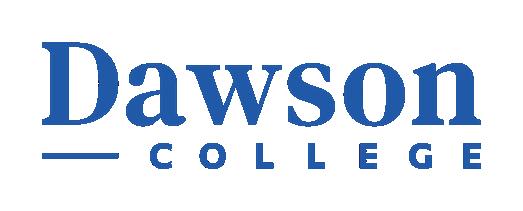
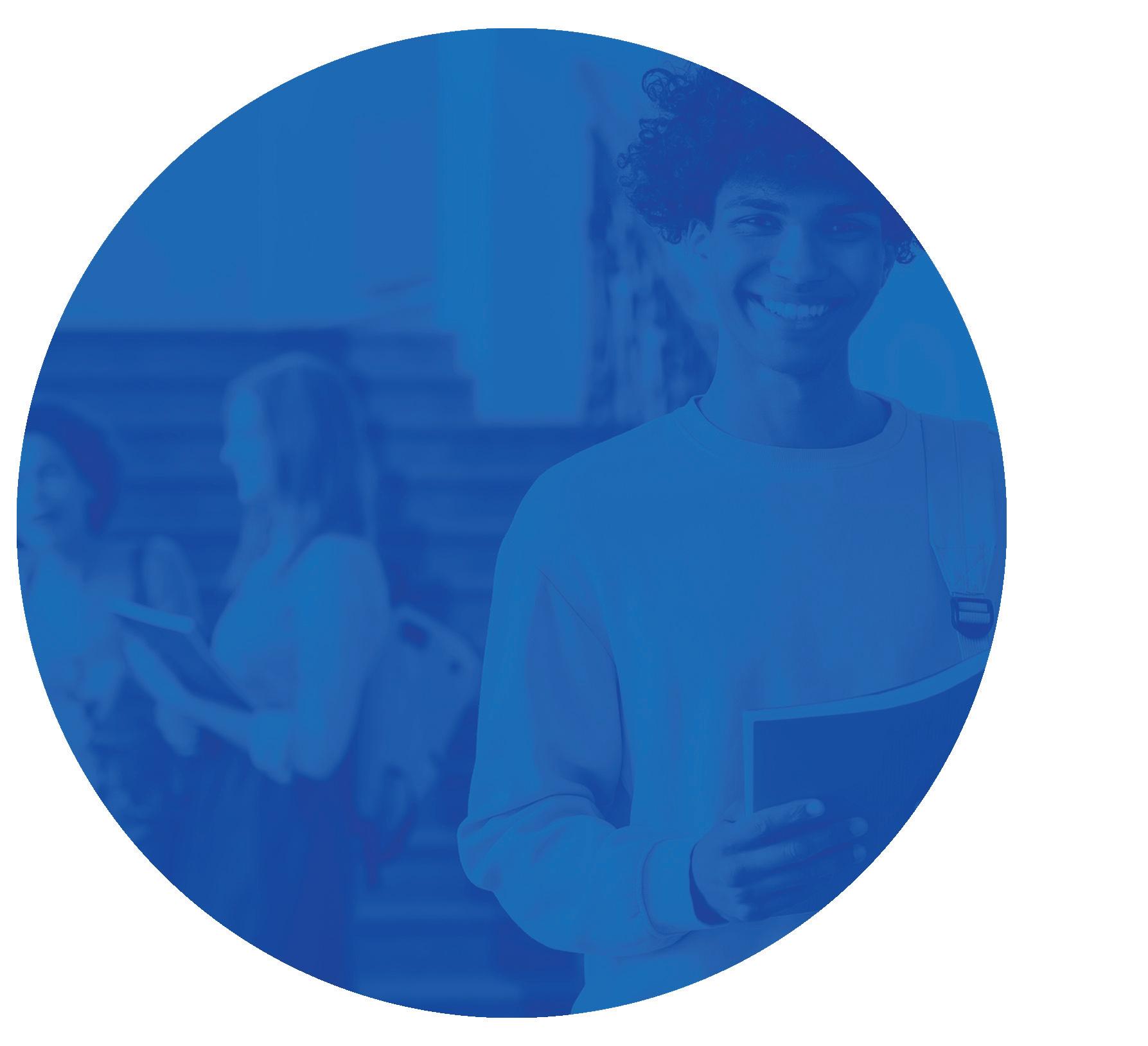

Full Viewbook at www.dawsoncollege.qc.ca/viewbook 2024 Viewbook Dawson College
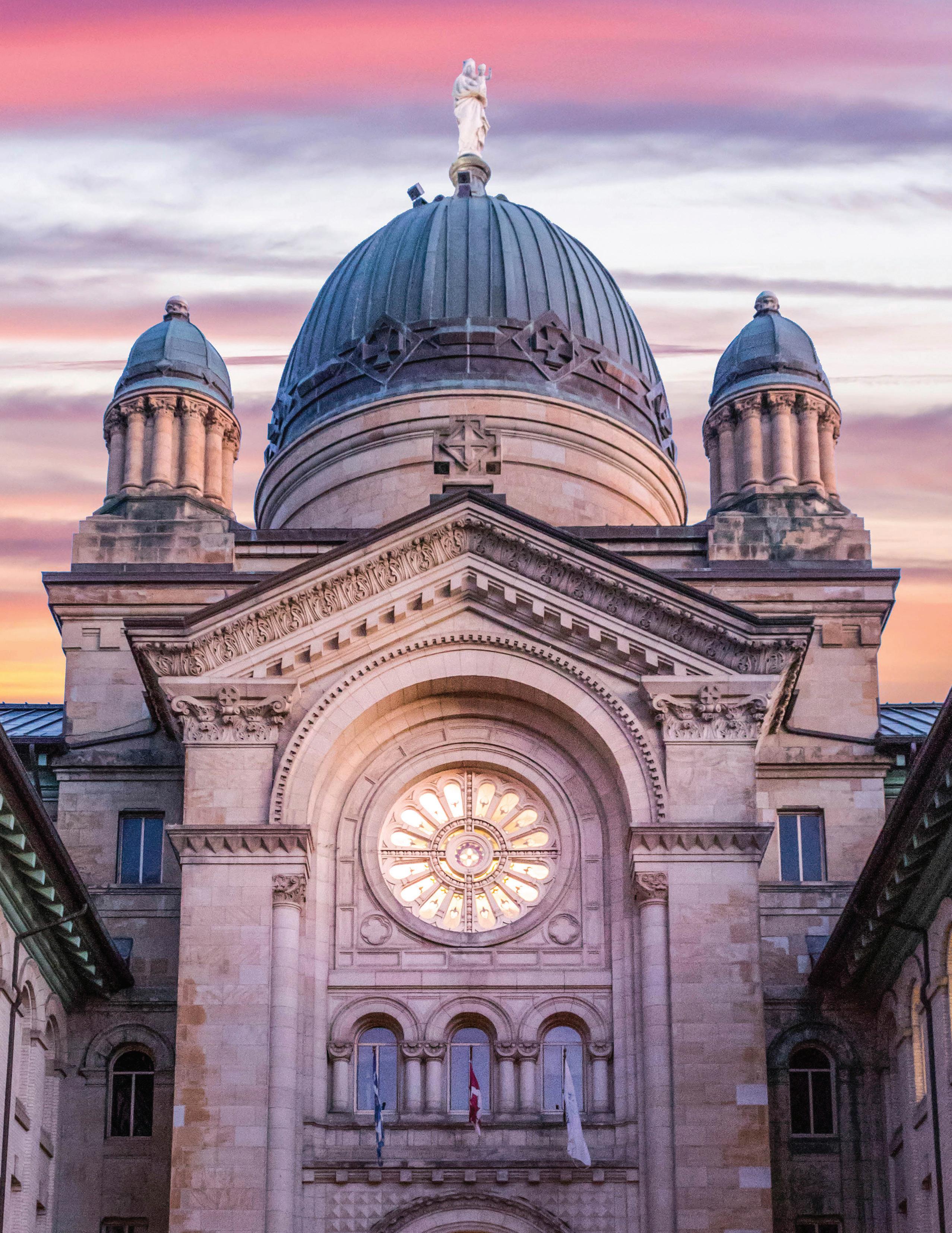
Top Ten Reasons You’ll Love Dawson 4 Pre-University Programs Overview 6 Technical Programs Overview 8 Continuing Education 10 Admission Process 11 Bill 96 (Law 14): What Does It Mean For You? 12 Services for Students 14 Athletics 16 Enhanced Learning and Extracurricular Activities 18 PRE-UNIVERSITY PROGRAMS Science 20 Pure and Applied Science 22 Enriched Pure and Applied Science 24 Health and Life Sciences 26 Enriched Health and Life Sciences 28 Science, Computer Science and Mathematics 30 Social Science 32 General Studies 34 Commerce 36 Education, Family and Childhood 38 International Business Studies 40 Law, Society and Justice 42 Psychology 44 Social Change and Solidarity 46 Society and Technology 48 Arts, Literature and Communication 50 Arts and Culture 54 Literature 56 Languages 58 Cinema | Communications 60 Studio Arts 62 Interactive Media Arts 64 Visual Arts 66 Liberal Arts 68 Journeys 70 TECHNICAL PROGRAMS Medical Biomedical Laboratory Technology 72 Radiation Oncology 74 Medical Ultrasound Technology 76 Diagnostic Imaging Technology 78 Physiotherapy Technology 80 Nursing 82 Engineering & Laboratory Laboratory Technology (Analytical Chemistry) 84 Civil Engineering Technology 86 Mechanical Engineering Technology 88 Electronics Engineering Technology 90 Community Service Social Service 92 Community, Recreation and Leadership Training 94 Business & Computer Science Accounting and Management Technology 96 Marketing and Management Technology 98 Computer Science Technology 100 Arts & Design Professional Theatre (Acting) 102 Industrial Design 104 Interior Design 106 Professional Photography 108 Graphic Design 110 Illustration 112 3D Animation & Computer Generated Imagery 114 Admission Requirements 116
TABLE OF CONTENTS
Learning Opportunities
Student Life
Programs
With 28 innovative programs in the sciences, arts, social sciences and more, there’s something for everyone.
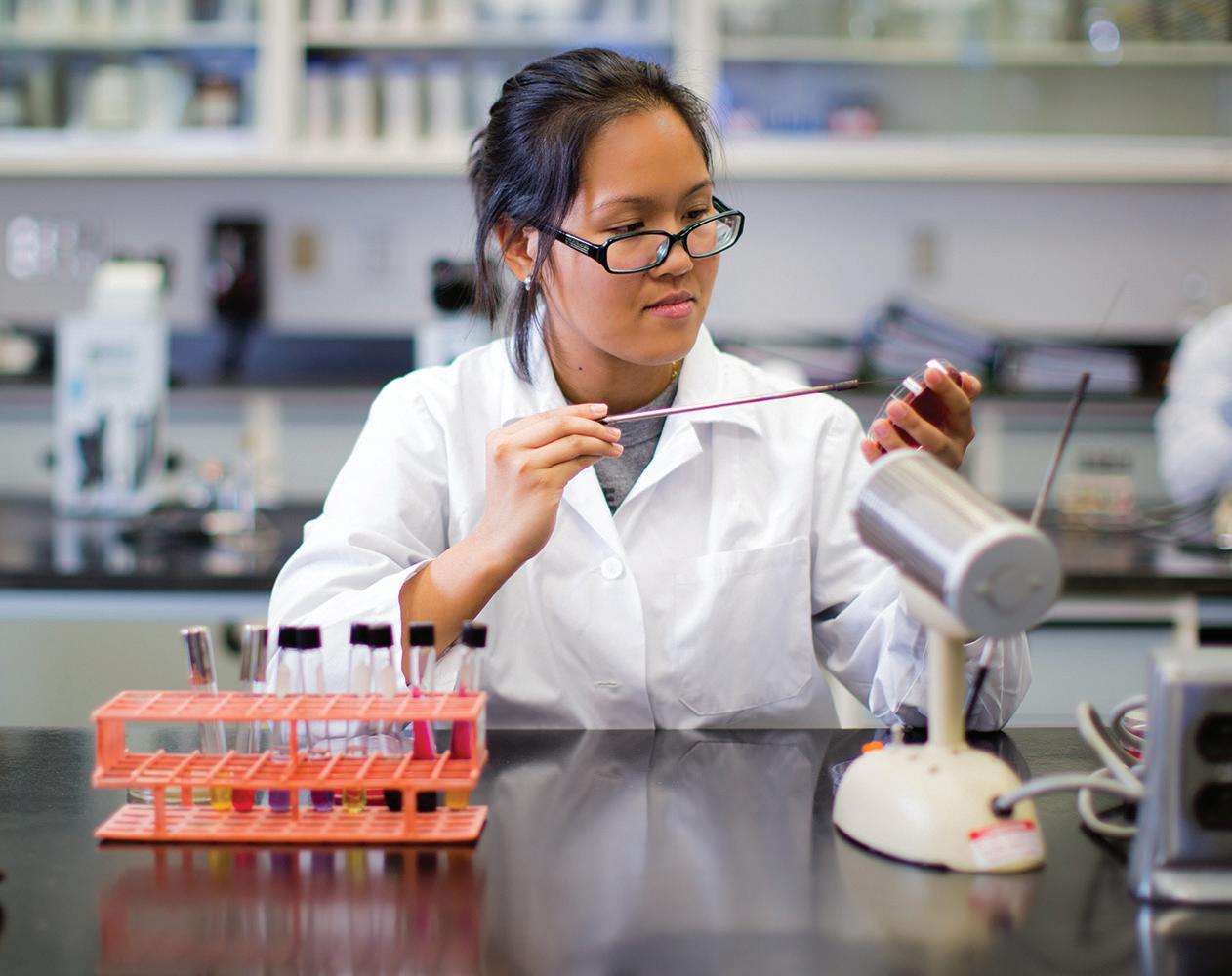
2 3 4
Learning happens outside the classroom too! Publish your research article in a journal, learn to code or participate in Model U.N.
You can join one (or many!) of Dawson’s student clubs, such as the E-Sports Association, the Green Earth Club or Dawson’s student newspaper The Plant.
Services
Dawson students have access to many free services including counselling, career planning, financial assistance and peer tutoring.
Community
Dawson is a big school, but a close community. No matter who you are or where you come from, you are welcome here.
DAWSON YOU’LL LOVE TOP TEN REASONS
6
Location
Dawson is downtown Montreal and connected to the Atwater Metro by an underground tunnel. This means an easy commute to school.
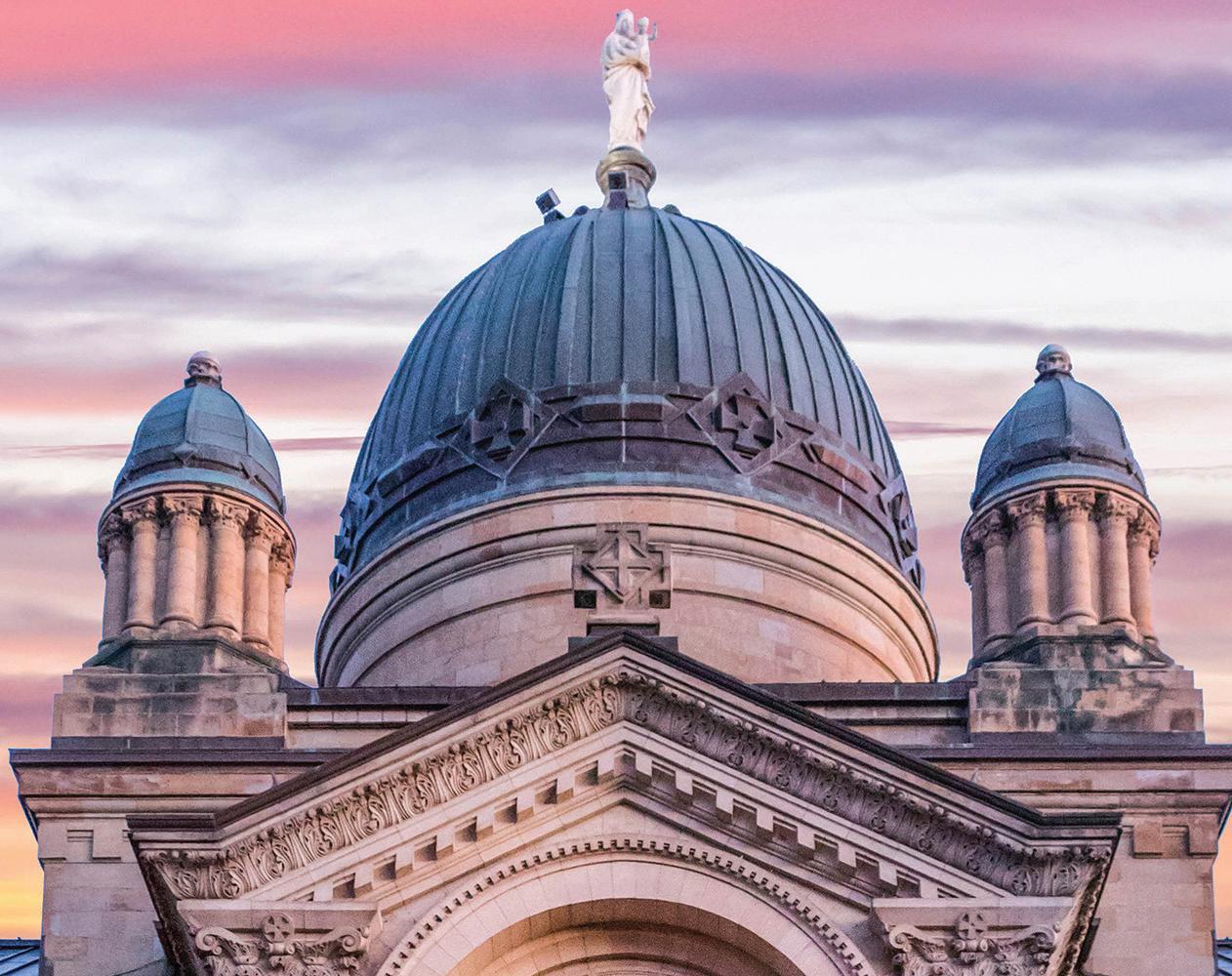
First-Year Students’ Office
New to CEGEP? You can get personalized advice and support at our First-Year Students’ Office.
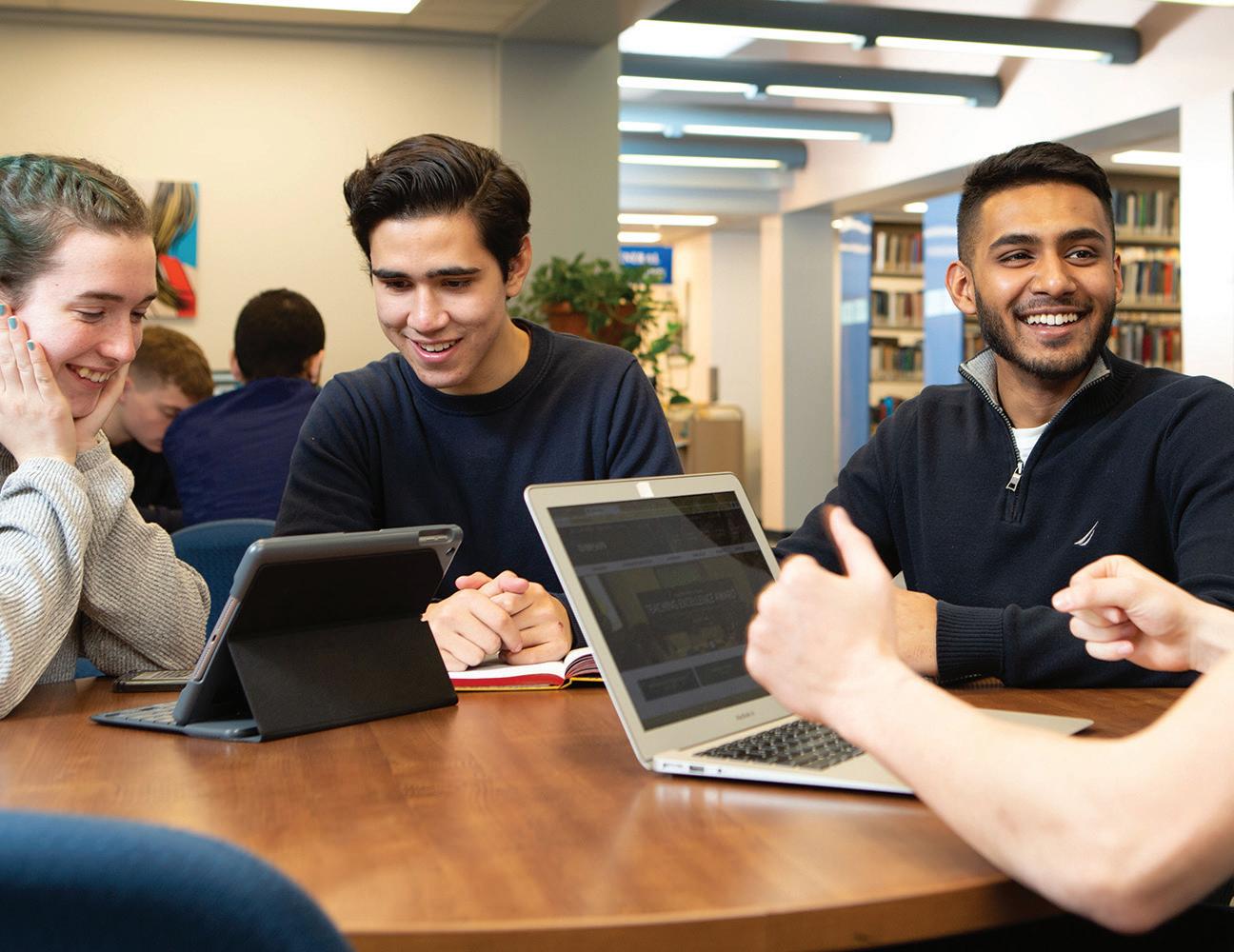
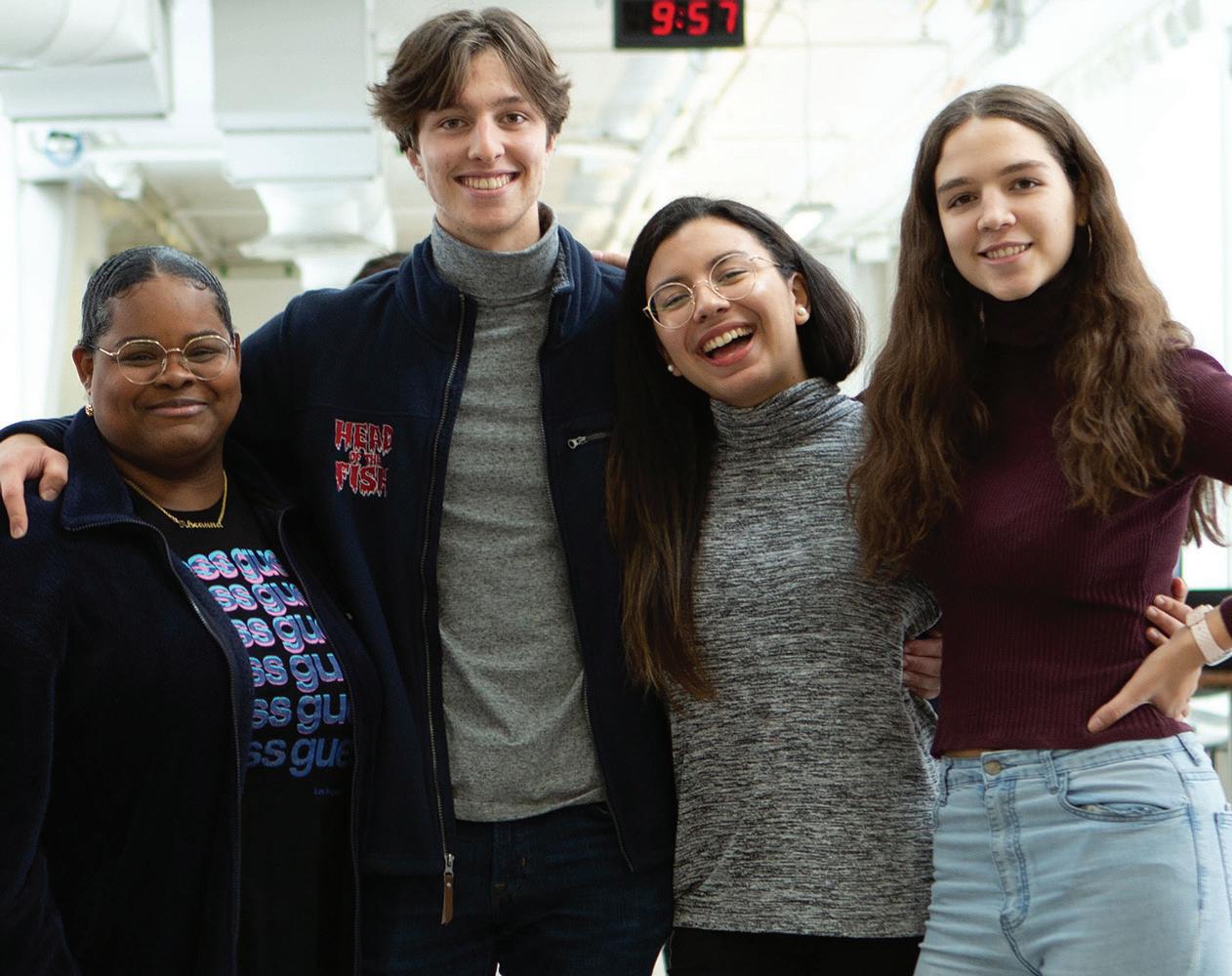
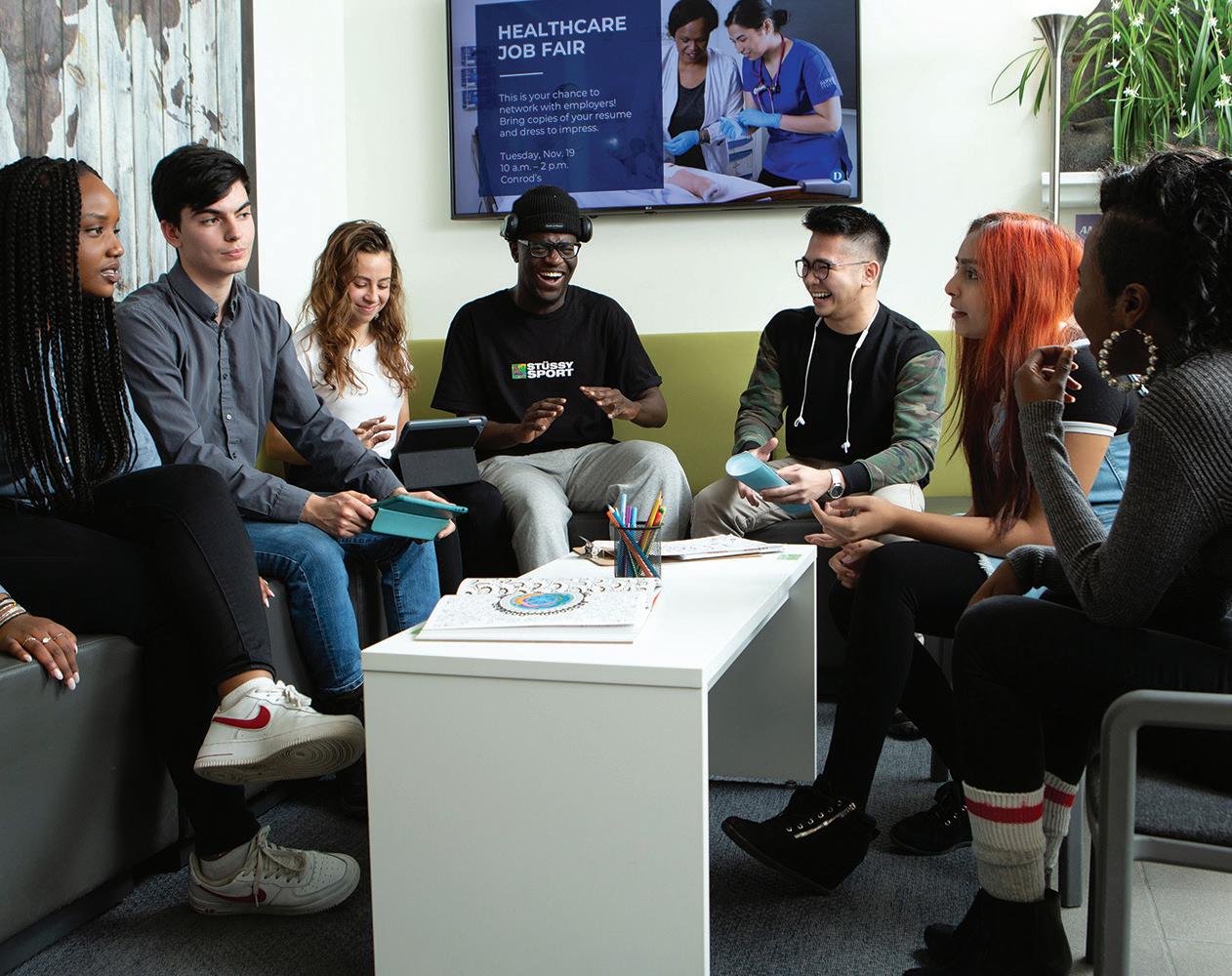
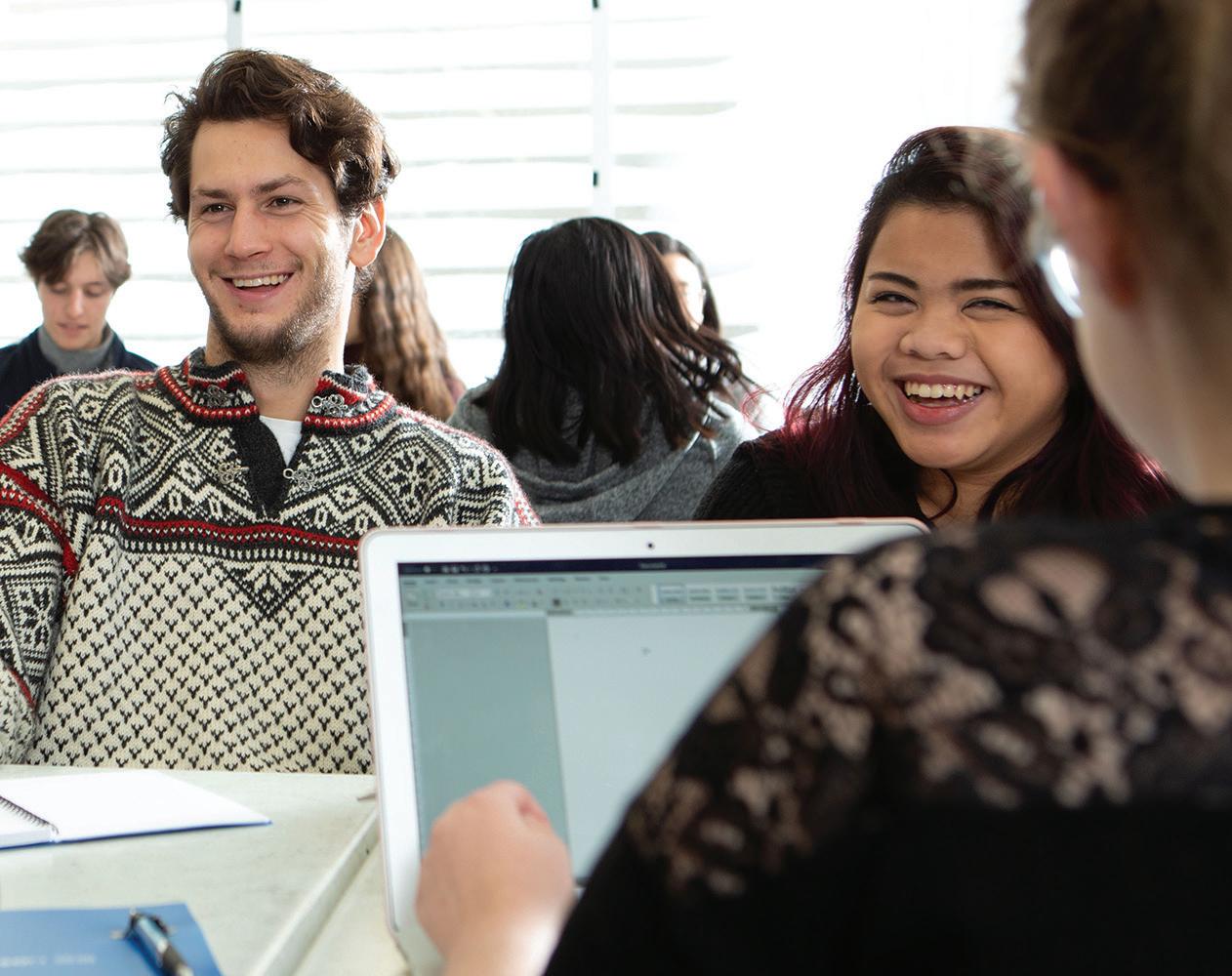
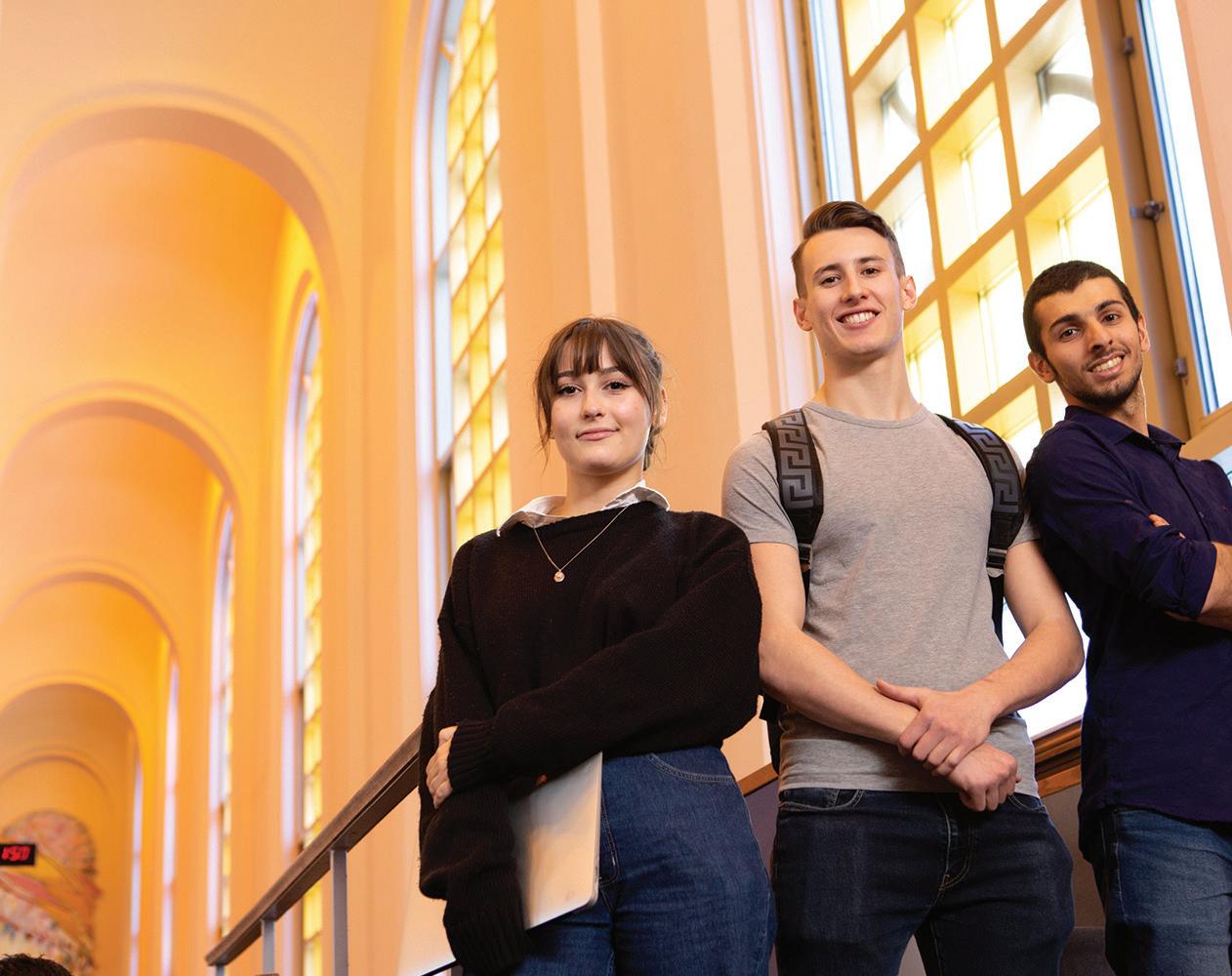
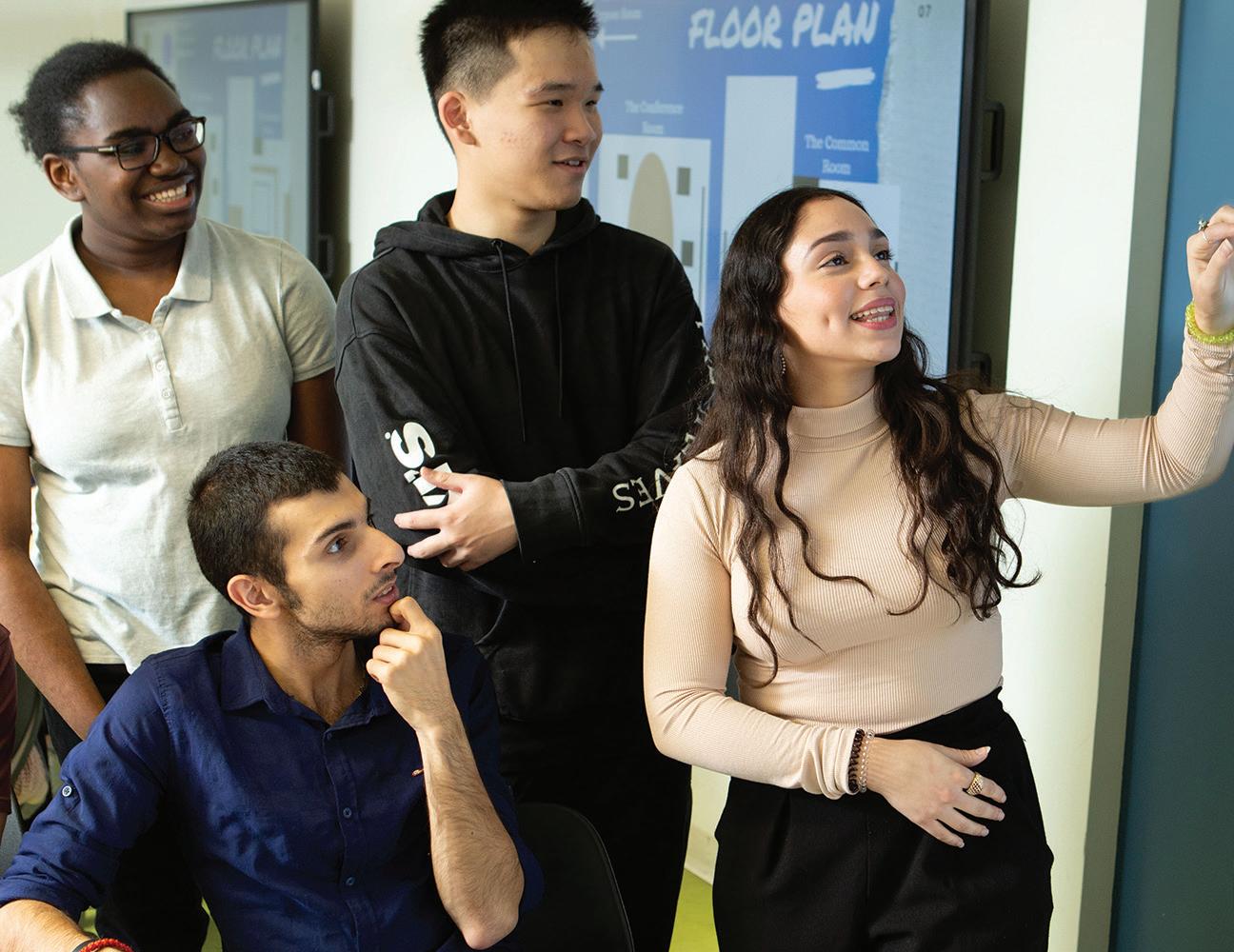
Athletics
Join one of our 16 intercollegiate and competitive teams or show up to cheer on the Blues at a game.

Sustainability
1 5 7 8 9 10
As a Carbon Neutral Forever institution, Dawson takes pride in its award-winning sustainability projects and Living Campus philosophy.
Campus
Dawson is a heritage site with modern upgrades, including a rock-climbing wall, an ecological Peace Garden, a majestic library and active learning classrooms and labs.
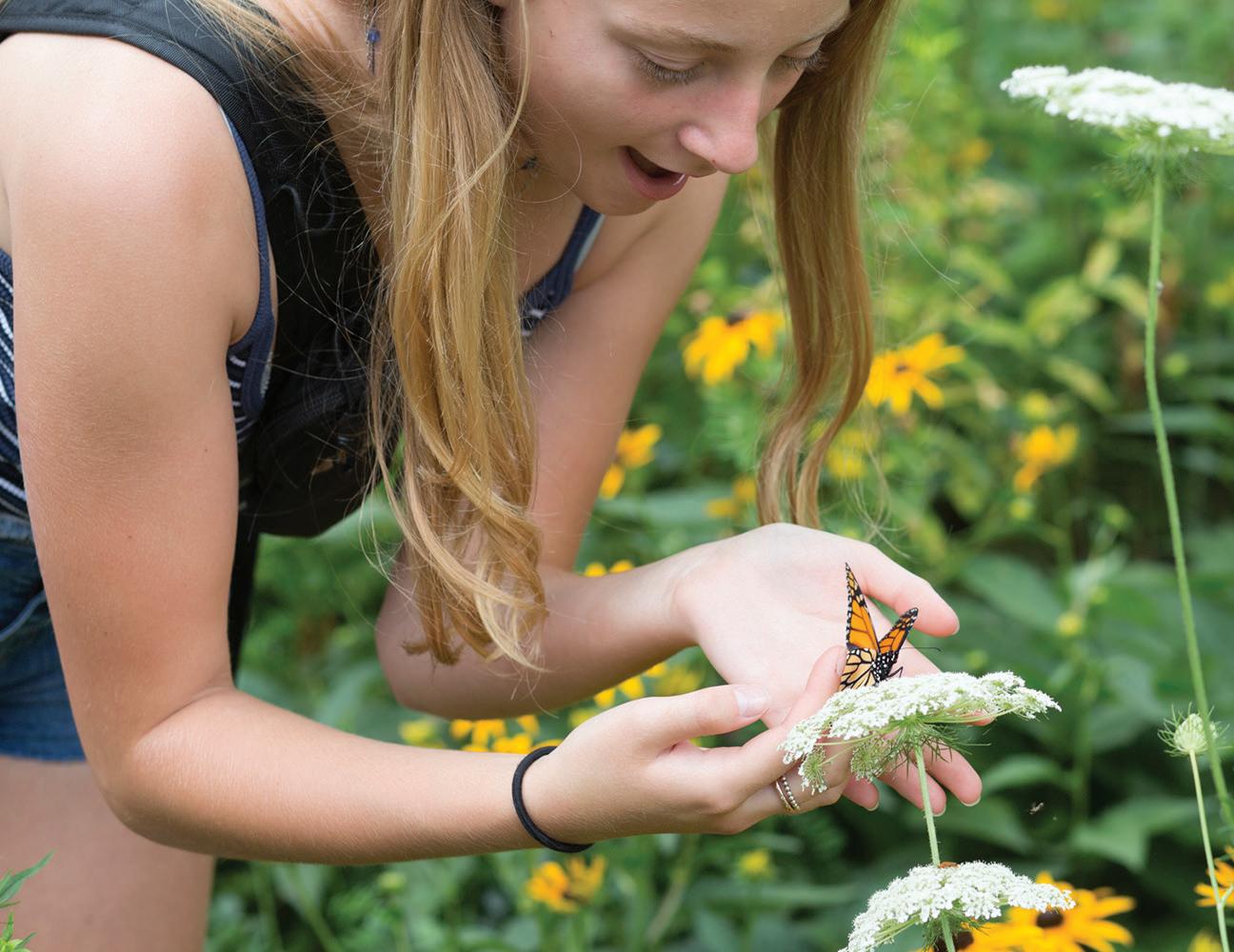
5 4
PRE-UNIVERSITY PROGRAMS
92%
“
My experience at Dawson was a journey of discovery, a continual learning process that got more and more interesting each semester.
Pre-university programs prepare you for entry to university and give you an important opportunity to explore your passions and strengths. Dawson has six pre-university programs and 18 different profiles, which means you have many options and can focus your studies on something you find really interesting. A profile is a specific stream of a program. For example, Psychology is a profile of Social Science. Although you apply directly to a profile during the admission process, your graduation diploma indicates the program you completed.
Science
■ Pure and Applied Science
■ Enriched Pure and Applied Science
■ Health and Life Sciences
■ Enriched Health and Life Sciences
Science, Computer Science and Mathematics
Social Science
■ Education, Family and Childhood
■ Commerce
■ General Studies
■ International Business Studies
■ Law, Society and Justice
■ Social Change and Solidarity
■ Society and Technology
■ Psychology
Arts, Literature and Communication
■ Arts and Culture
■ Cinema I Communications
■ Interactive Media Arts
■ Languages
■ Literature
■ Studio Arts
Visual Arts
Liberal Arts
TRANSITION PATHWAYS
Transition pathways are programs that prepare students for entry into another program.
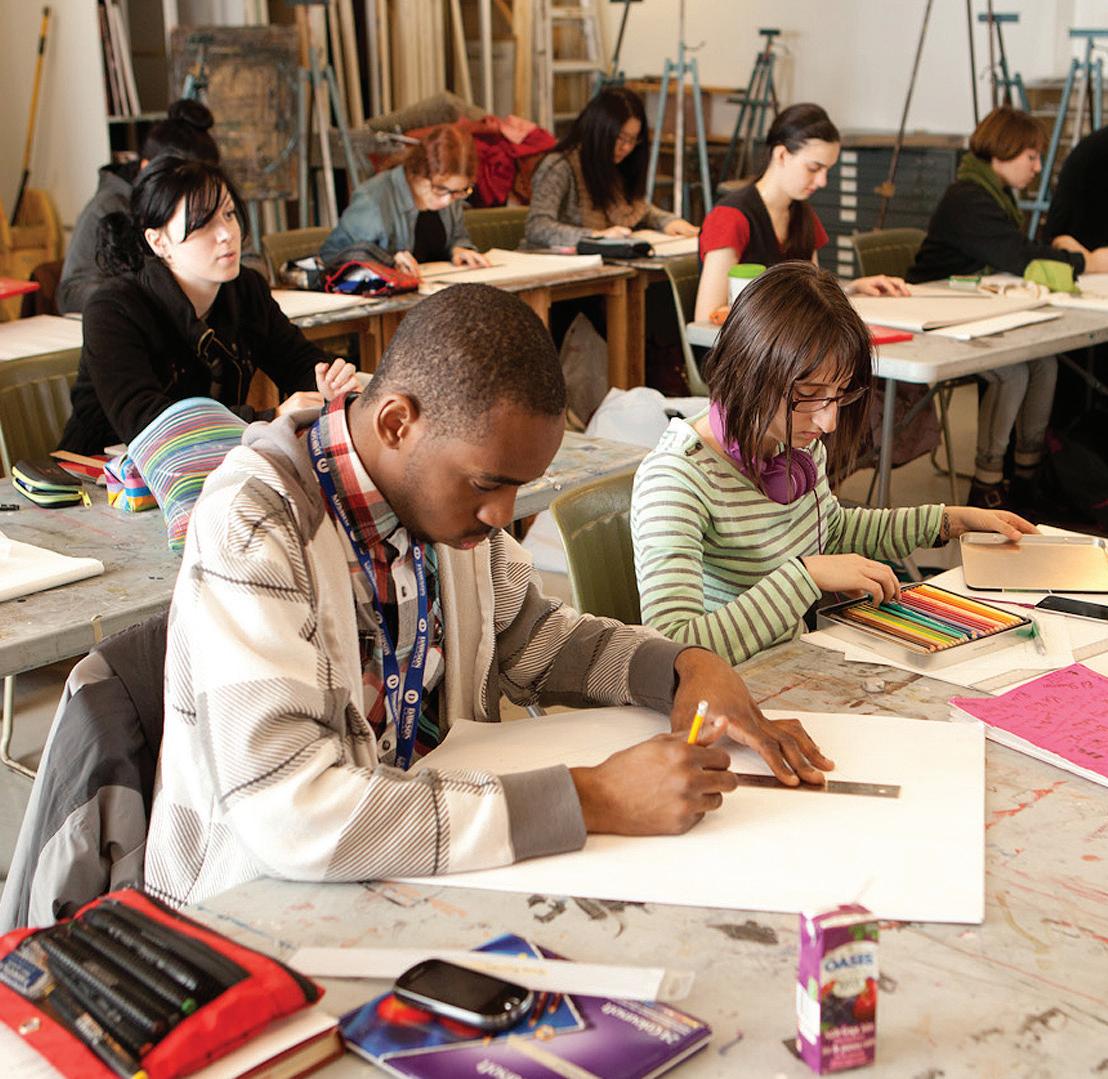
Journeys
A First Peoples College Transition Pathway
Pathways
A program for students who are missing high school prerequisites for Science Program or Technical Programs, or who want to explore CEGEP studies. For more information, visit our website.
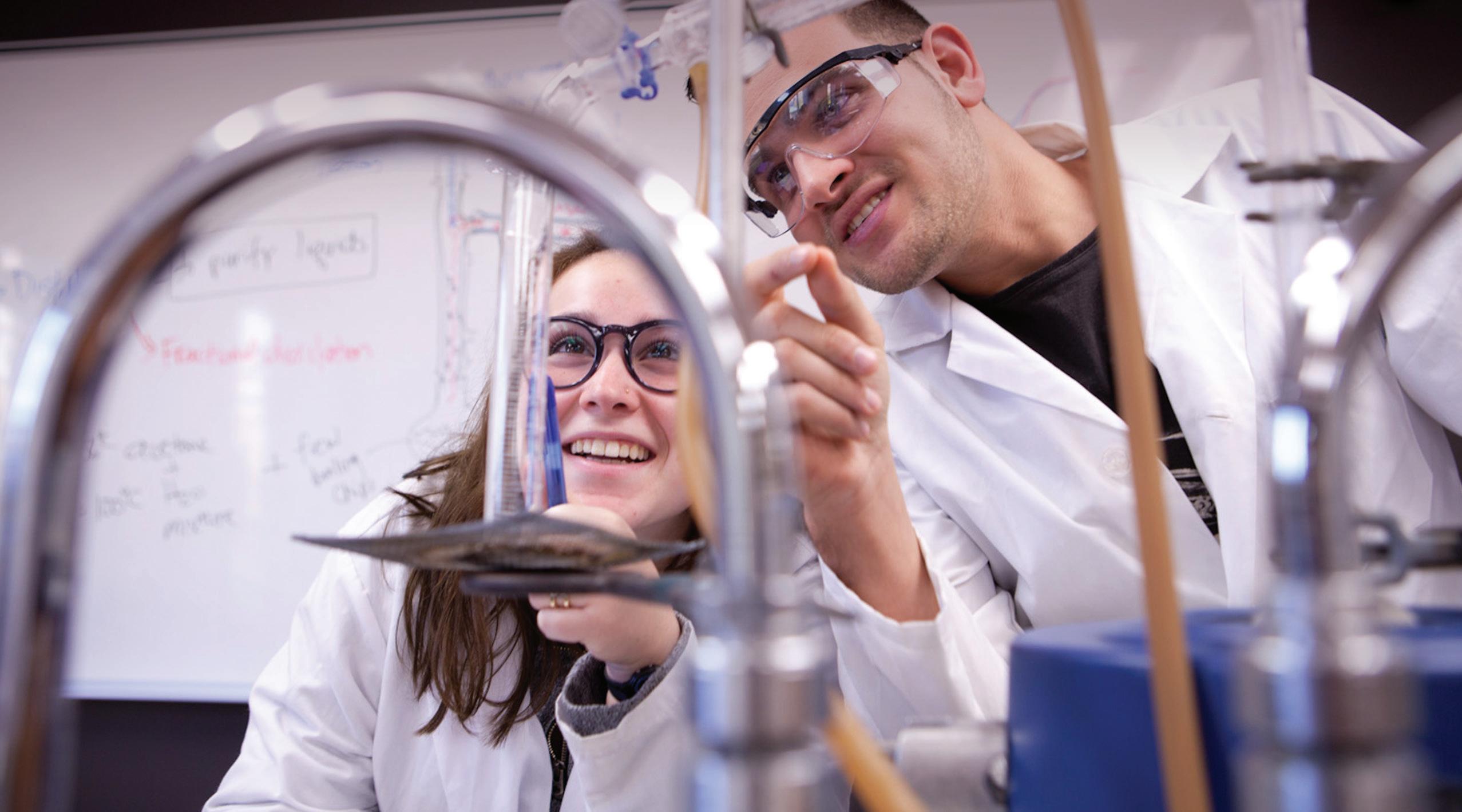
of Dawson pre-university program graduates who applied to a Quebec university were accepted. of first-year students would recommend Dawson College to a friend or family member.
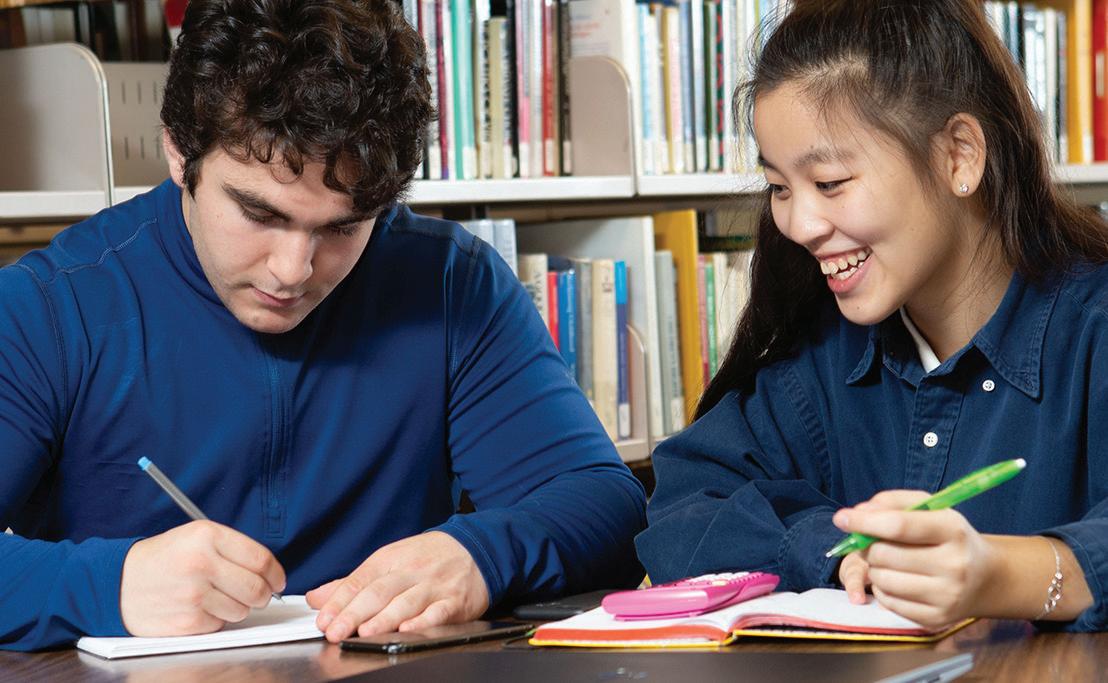
87%
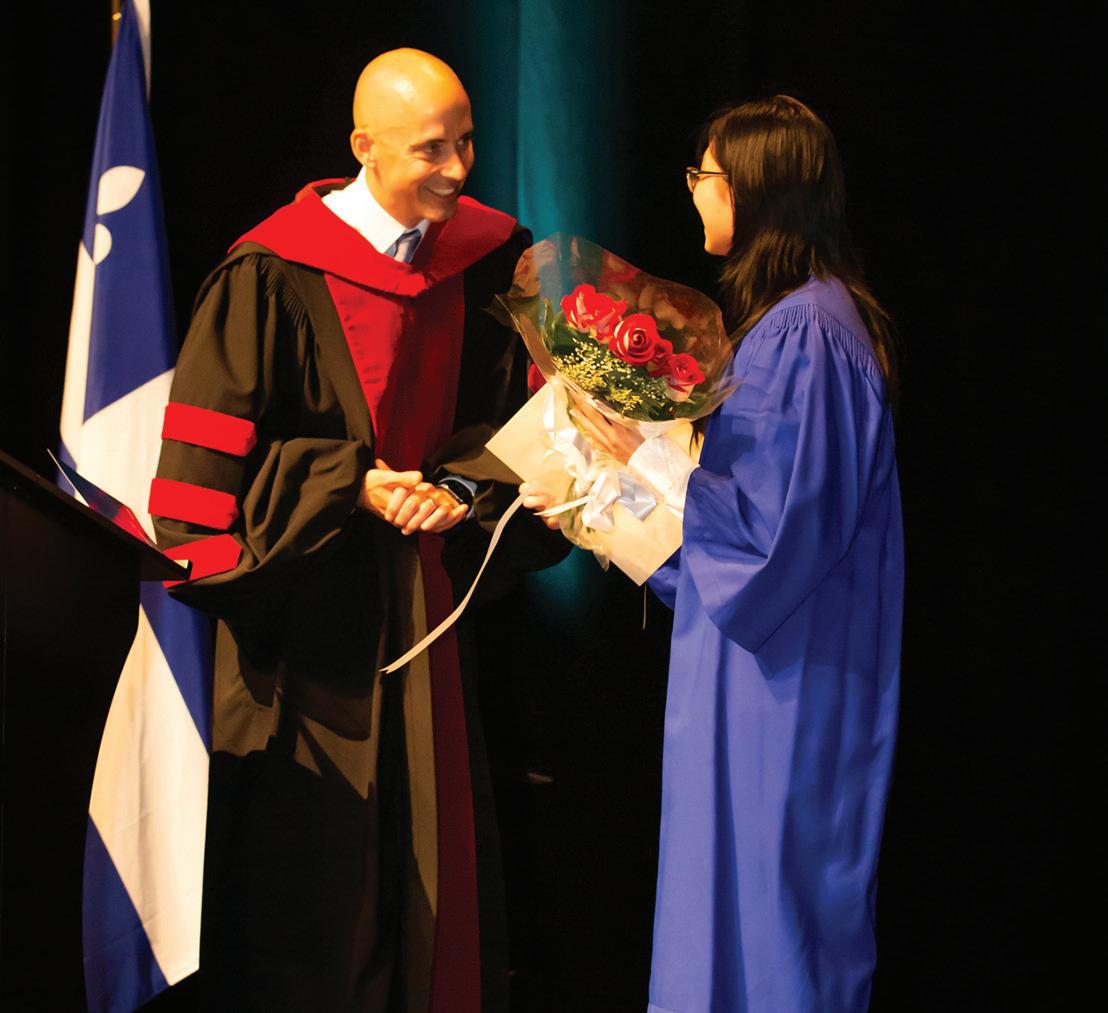
www.dawsoncollege.qc.ca/programs
Source: Bureau de coopération interuniversitaire 2018
Source: Dawson College Quality Assurance and Planning Office, 2020
2 YEARS
— Michelle K.
7 6
Technical programs will provide you with the skills and practice you will need to launch your career in a specific field or to continue your studies at university. Bear in mind that a college diploma in a technical program may give you advanced standing at university, or could require additional pre-requisites. During your studies, you will take program-specific courses as well as general education courses, such as English, French, Humanities and Physical Education, as well as complementary courses. These programs often offer work placements for hands-on experience.
Medical
• Biomedical Laboratory Technology
• Radiation Oncology
• Medical Ultrasound Technology
• Diagnostic Imaging Technology
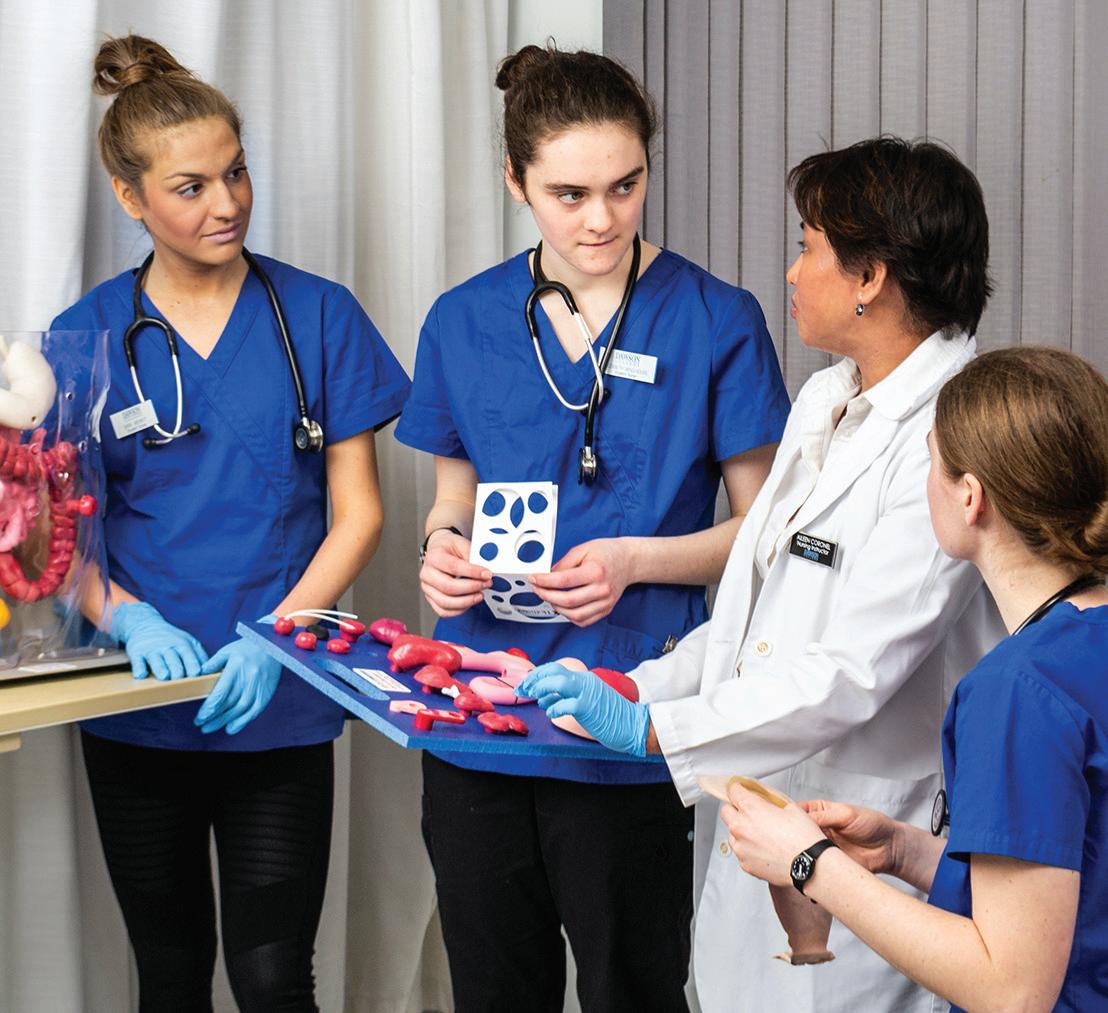
• Physiotherapy Technology
• Nursing*
Engineering & Laboratory
• Laboratory Technology (Analytical Chemistry)*
• Civil Engineering Technology*
• Mechanical Engineering Technology*
• Electronics Engineering Technology*
Community Service
• Social Service
• Community, Recreation and Leadership Training
Business & Computer Science
• Accounting and Management Technology
• Marketing and Management Technology
• Computer Science Technology*
Arts & Design
• Professional Theatre (Acting)
• Industrial Design
• Interior Design
• Professional Photography
• Graphic Design
• Illustration
• 3D Animation & Computer Generated Imagery*
*DID YOU KNOW?
Students entering this program are eligible for Bourses Perspective scholarships. These $1,500 scholarships will be awarded to students after each successful full-time term, for a total of $9,000 for a three-year program.
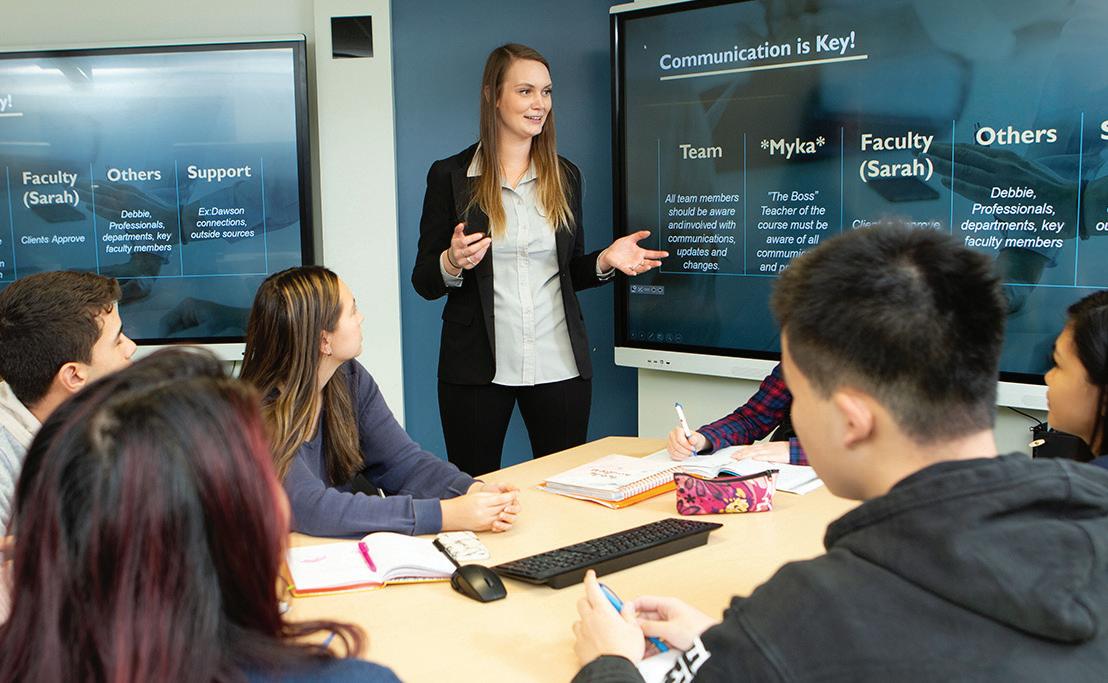

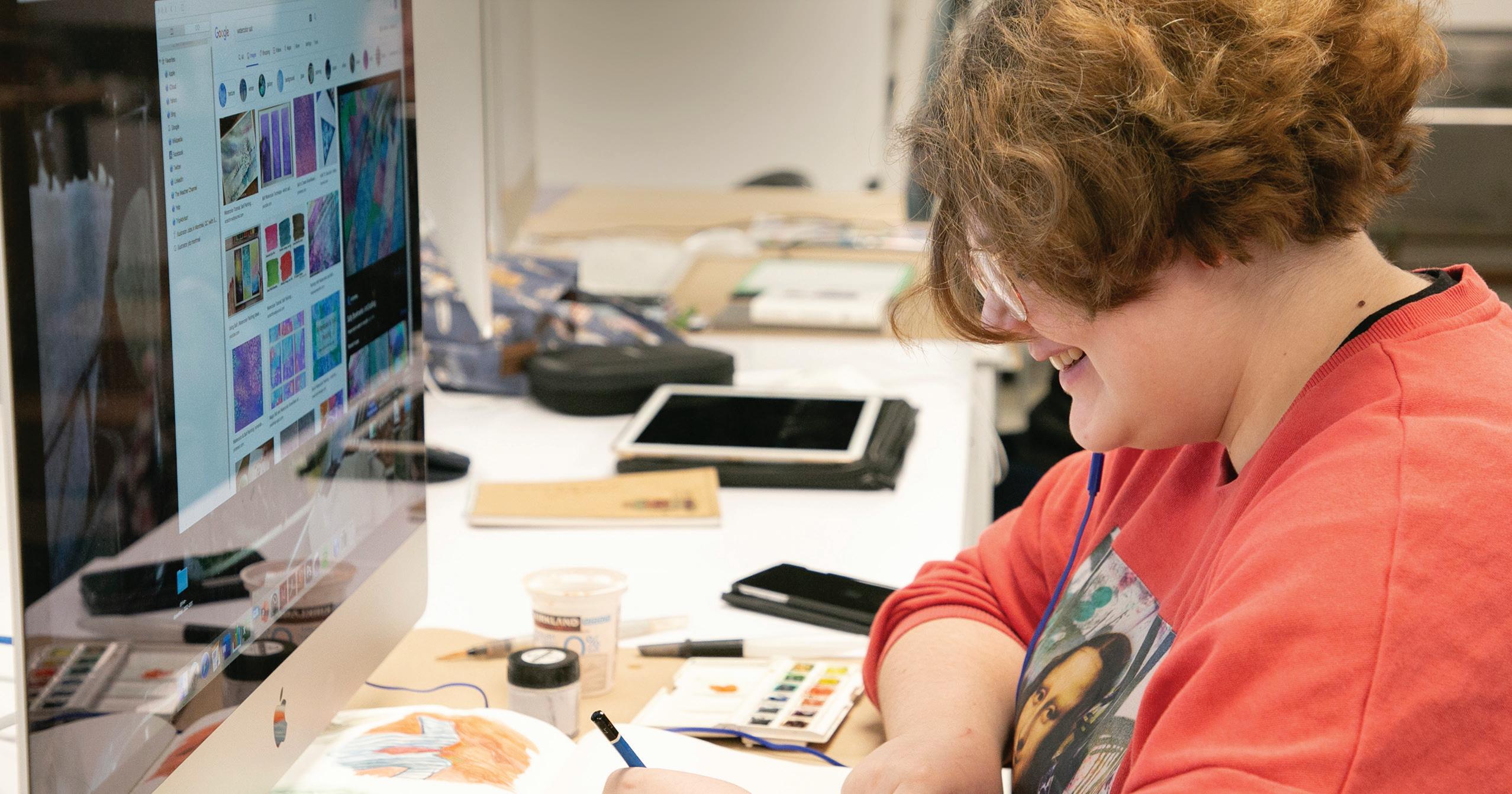
Information about how to apply can be found online by searching for “Québec Perspective Scholarship Program” in your browser.
Many of our graduates decide to pursue further studies in a related field and some CEGEP courses are credited.
www.dawsoncollege.qc.ca/programs
3 YEARS
TECHNICAL PROGRAMS
of Dawson technical program graduates found work in their field of study within a year of graduating.
Going to university after a technical program is possible!
74%
“
Mixing theoretical understanding and practical training, my program gave me the confidence and abilities to succeed in my profession.
Source: Government of Quebec, Relance Database, 2018
— Jasmine R.
9 8
CONTINUING EDUCATION ADMISSION PROCESS*
If a DEC program with classes during the day is not an option for you, Dawson offers Science and Social Science DEC programs in the evening as well. Classes are generally between 6 p.m. – 10:30 p.m. on weeknights and during the day on weekends. The application process starts in mid-May for the Fall semester and in mid-November for the Winter semester.
Springboard
If you want to:
■ Explore CEGEP studies
■ Complete prerequisites required for admission to a CEGEP program
■ Upgrade your academic record to improve chances of admission or readmission to a CEGEP program
■ Upgrade language skills
■ Complete a CEGEP program
Springboard could be the right option for you. Springboard allows you to take the specific courses you need in the evening, and although you cannot graduate from Springboard, it can be a good stepping stone to a DEC program. Most Springboard courses will count toward completion of a DEC.
www.dawsoncollege.qc.ca/credit
Choose a program
Decide which program is right for you.
1 4
Receive a decision
Check your application status regularly in the Application Centre.
It could take anywhere from a few weeks to a few months to process your application.
Review the requirements
Check the admission requirements for each program.
2 5
For international or out-of-province students, visit dawsoncollege.qc.ca/ admissions/admission-requirements
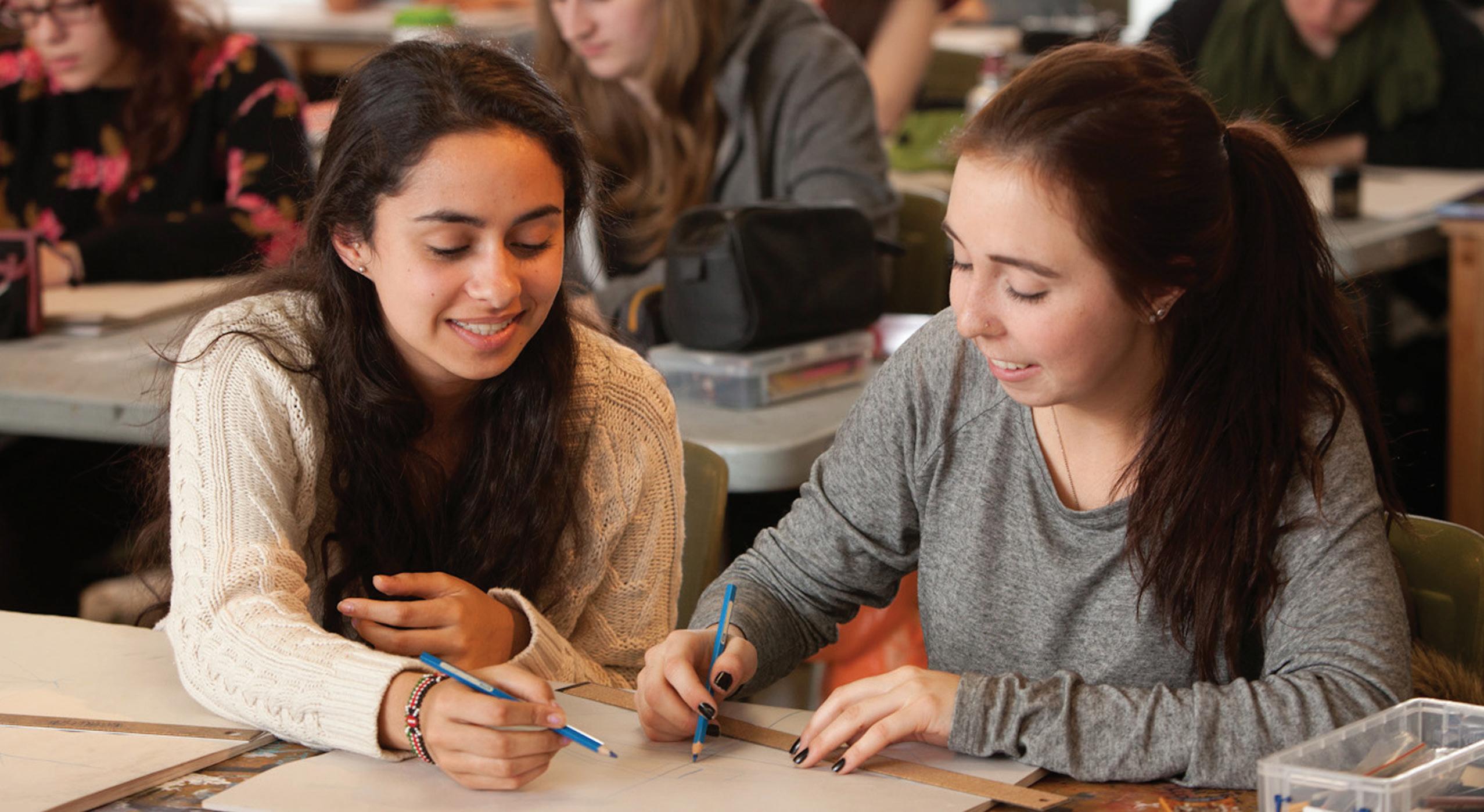
3
Submit your application
Create an online account, complete your application, upload the required documents and pay the fee: apply.dawsoncollege.qc.ca
Deadlines:
November 1 for the Winter semester
March 1 for the Fall semester
Confirm your acceptance
If you receive an offer of admission, confirm before the deadline.
Review your admissions package thoroughly for the next steps.
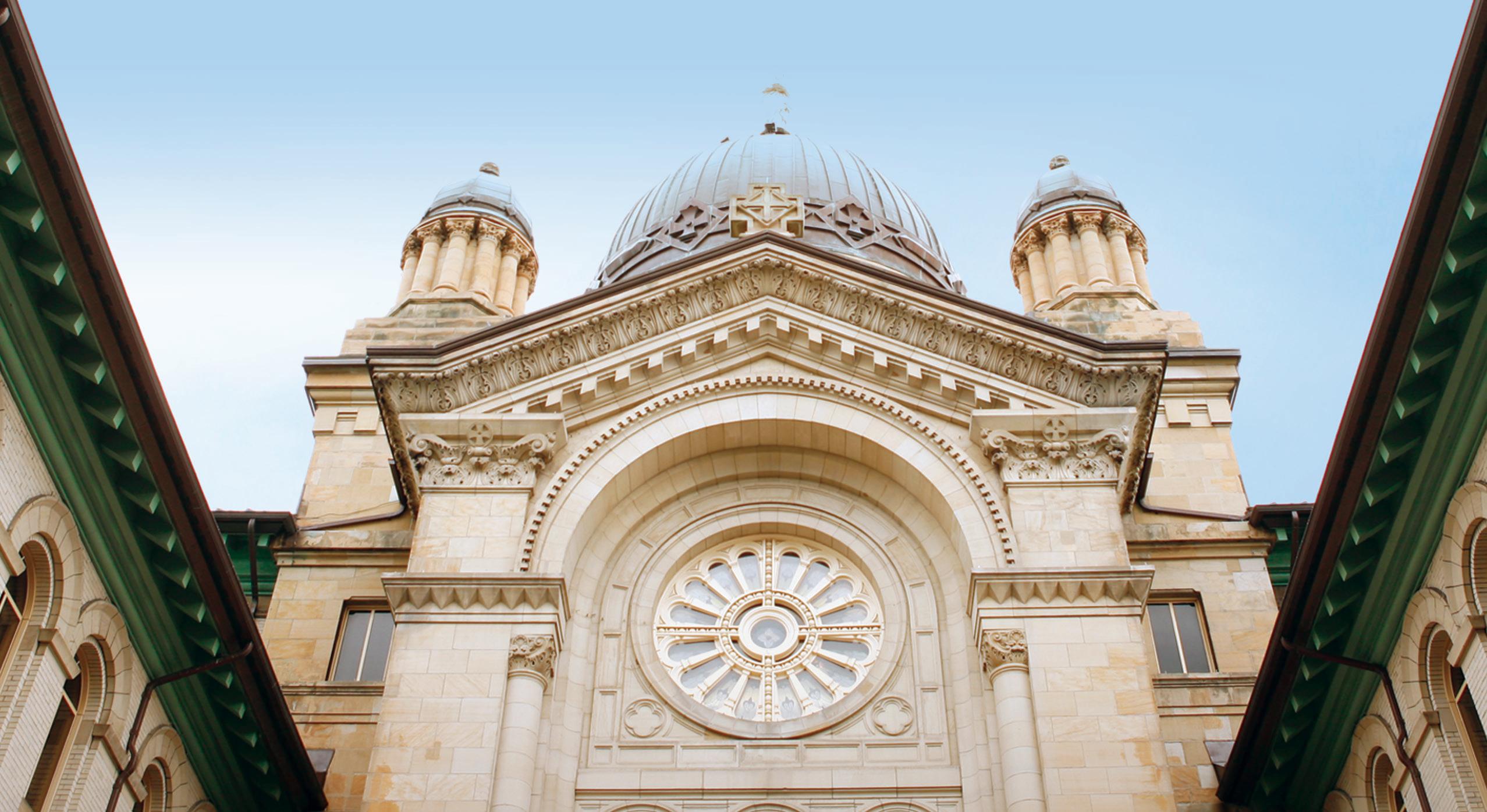
For more details
dawsoncollege.qc.ca/admissions/how-to-apply
Telephone 514 933-1234
admissions@dawsoncollege.qc.ca
Dawson College Registrar Office
4001 de Maisonneuve Blvd. West Room 2D.6
Hours Monday to Friday 8:30 a.m. to 5:00 p.m.
FEES | Tuition is free for permanent residents of Quebec who are Canadian citizens or landed immigrants and are taking at least four courses or 180 hours per semester. A non-refundable $30 application fee and about $200 in student fees per semester are charged. Non-Quebec resident fees are $1,728 per semester, while international student fees, depending on the program of study, will range from $6,796 to $10,533 per term as of the summer 2023 semester. Books and supplies cost between $500 to $1,000 per year, although supplies for some programs are more costly. More information can be found at: www.dawsoncollege.qc.ca/finance/student-fees
*This process is only for pre-university and technical programs that take place during the day. For Continuing Education Evening programs, visit: https://www.dawsoncollege.qc.ca/credit/
! ! ! ! !
EVENING
DEC
11 10
Some programs only accept applications for the Fall semester.
BILL 96 (LAW 14): WHAT DOES IT MEAN FOR YOU?
More detailed information: www.dawson.college/Bill96faq
Since 1977, under the Quebec Charter of the French Language (commonly known as Bill 101), only certain people holding a Certificate of Eligibility (COE) have the right to attend publicly funded English-language elementary schools or high schools in Quebec. Everyone else must attend French-language schools, with very few exceptions.
Under Law 14 adopted by Quebec’s National Assembly in May 2022, there are new amendments to the Charter that impact English-language CEGEPs.
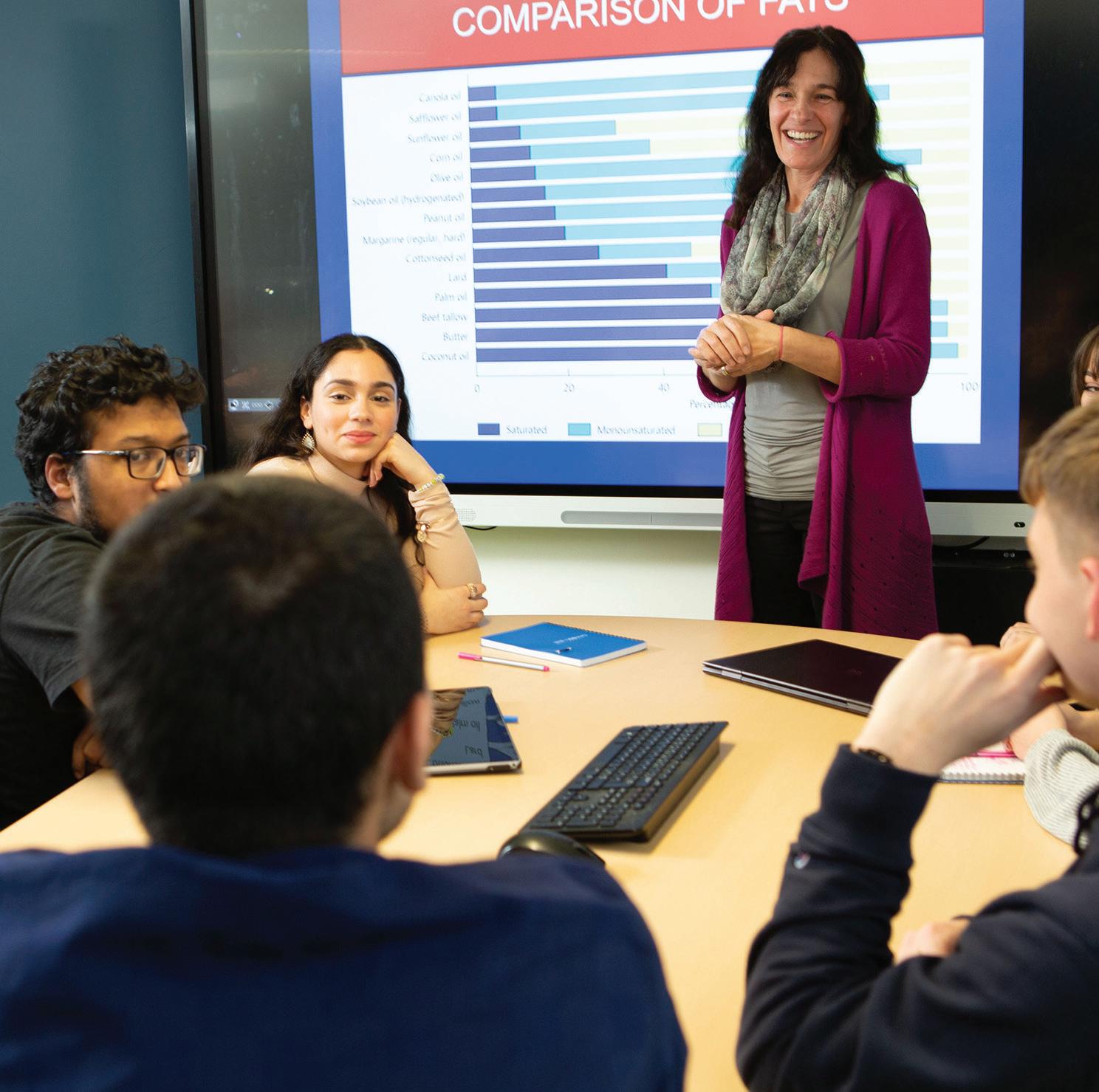
Today, at the CEGEP level, all Quebecers regardless of their status can still attend English-language CEGEPs. However, whether they hold a Certificate of Eligibility can mean different admission, course, and graduation requirements.
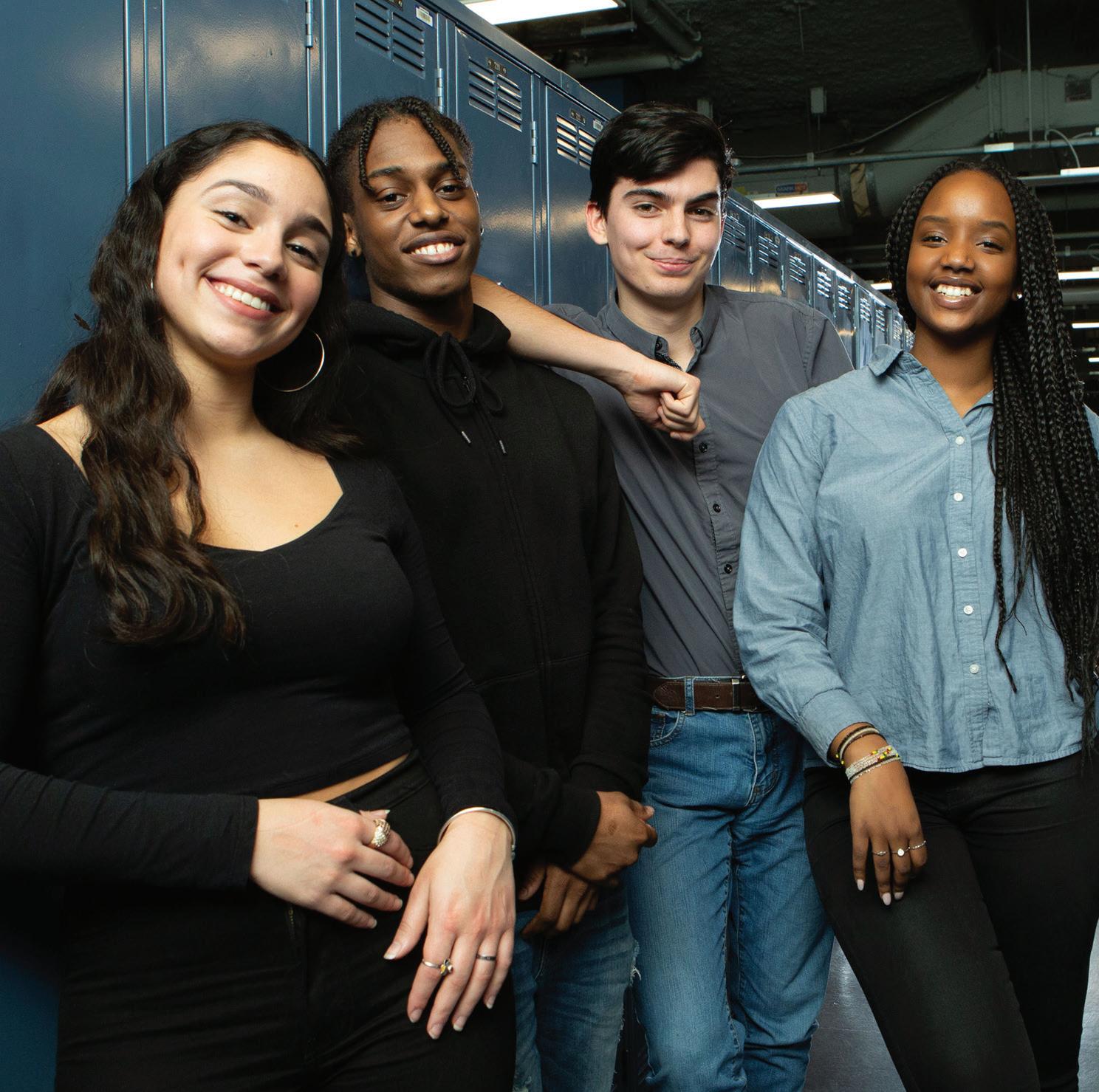
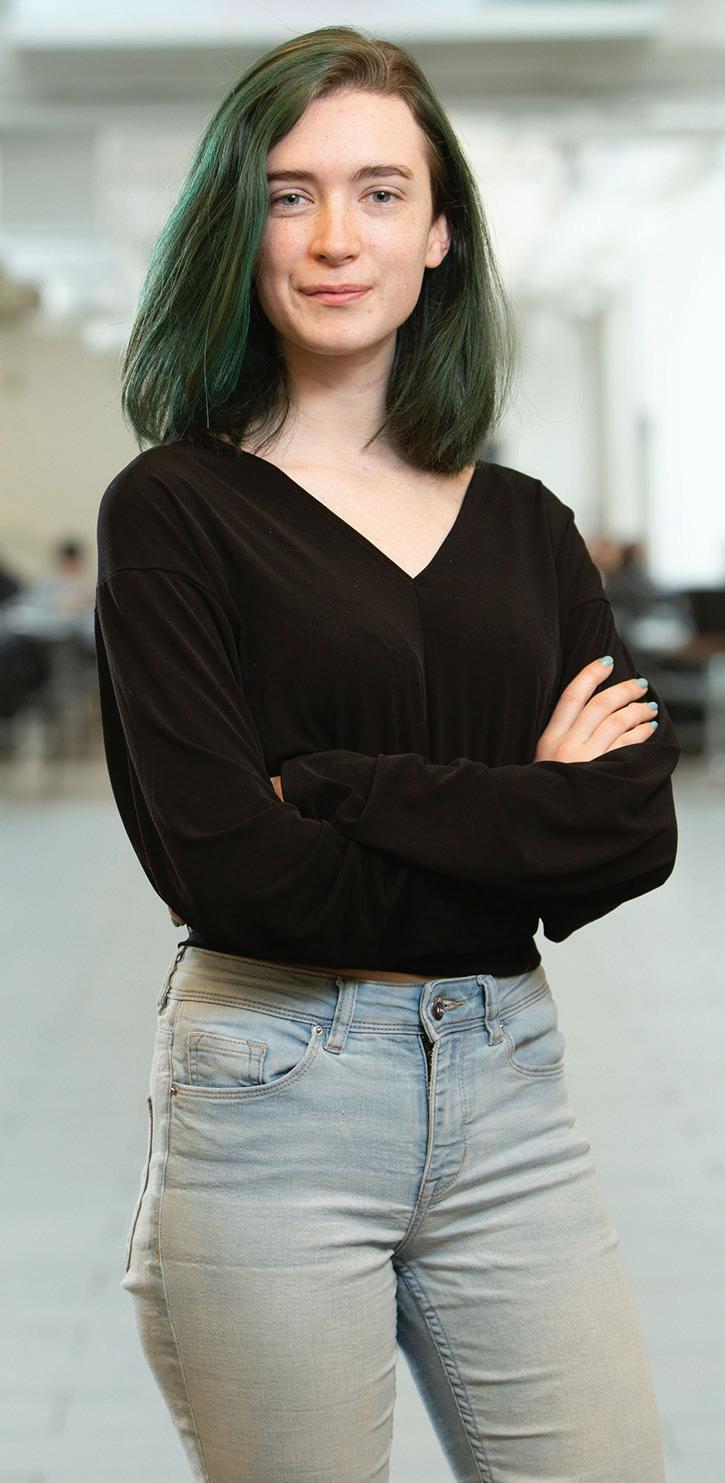
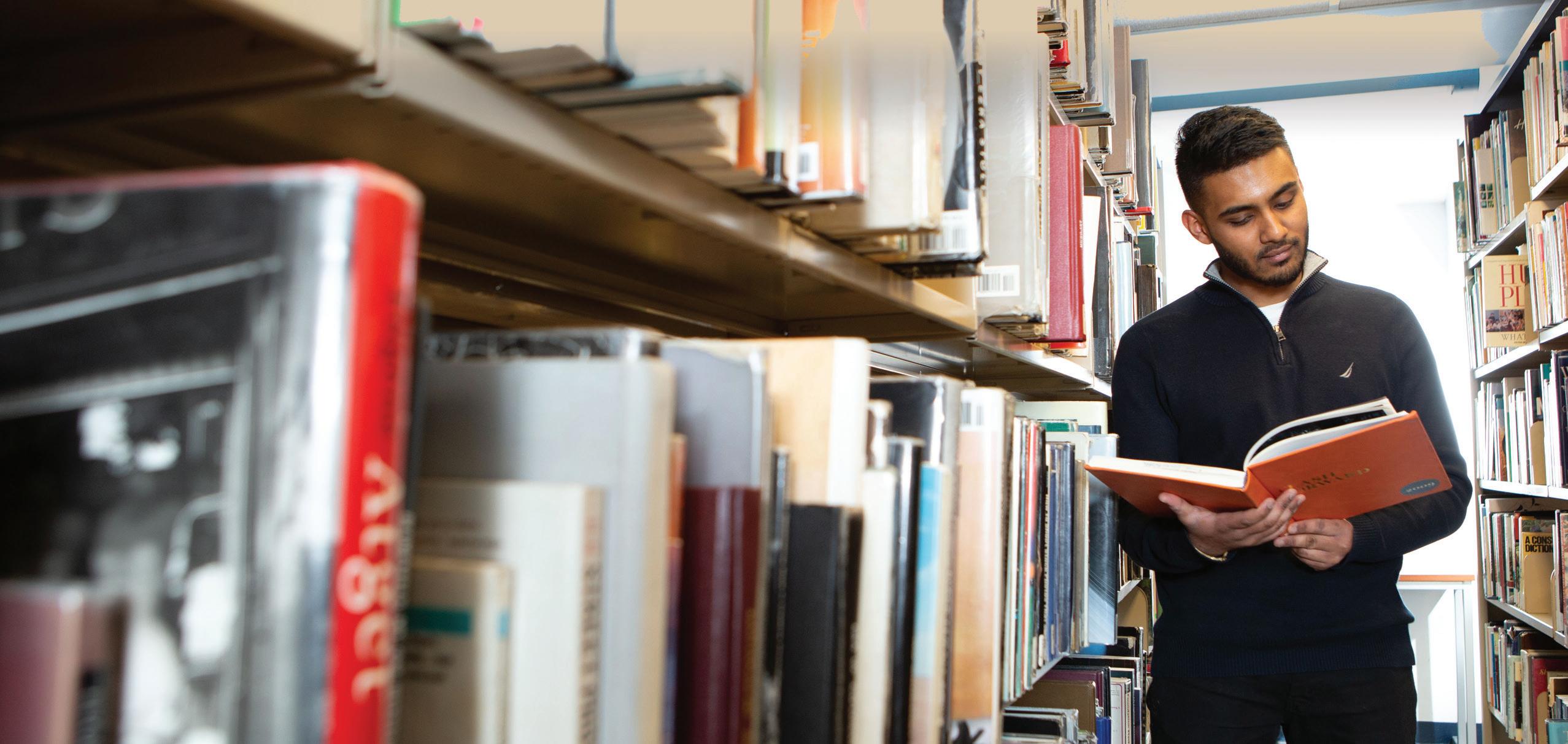
Certificates of Eligibility
For more information on who has a Certificate of Eligibility (COE) or how to obtain one, visit the Quebec Ministry of Education’s website. You must apply for your COE before completing your high school education, otherwise the Ministry will not grant you a certificate even if you are qualified to receive it under the law.
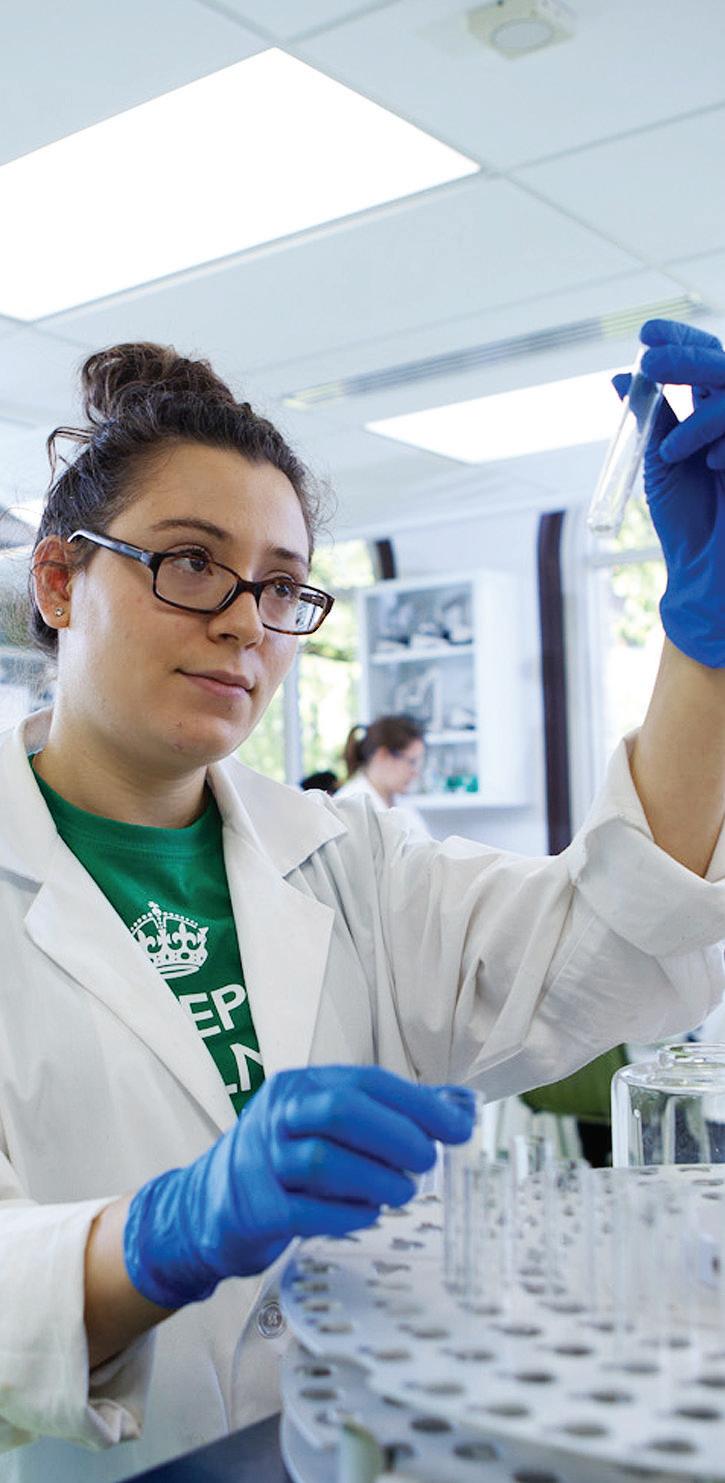
Priority admissions for certificate holders
For programs in which the number of applications for admission is higher than the number of spaces available, priority will be given to certificate holders based on collegedetermined standards. In all programs, there will still be space to admit those without a COE
French Exit Exam now required for non-certificate holders
Under Law 14, all CEGEP students in the province must pass either an English Exit Exam or a French Exit Exam to receive their Diploma of Collegial Studies (DCS).
■ Students with a COE attending an English CEGEP will need to pass the English Exit Test to graduate (no change)
■ Students without a COE attending an English CEGEP will now need to pass the French Exit Exam. The course content of our programs has been adjusted so that students who must write the French Exit Exam can develop their French skills to an appropriate level.
Courses in French
As of Fall 2024:
■ Students with a COE will have to take three program courses* in French OR three additional French language courses to improve their French language skills, depending on their level of ability.
■ Students without a COE will have to take three of their program courses* in French.
*Program courses that will be taught in French include complementary, specific education and/or Humanities courses.
13 12
SERVICES FOR STUDENTS
It’s my first time studying in English.
I just moved to Montreal and I don’t know anyone here.
I’m nervous about starting CEGEP because I have dyslexia.
Life as a Dawson student is more than just classes and exams. Your time at CEGEP will be a life-changing experience, where you will make new friends, explore your interests and grow as a person. When things get challenging or confusing, we’re here to help!
What We Offer
Academic Advising
Support with educational planning at Dawson and beyond. Program transfers, graduation requirements, applying to university… we can help! www.dawsoncollege.qc.ca/academic-advising
Student AccessAbility Centre
Accommodations for students with documented learning disabilities, mental health disorders and issues related to an accident or illness. Our Adapted Services Counsellors are here to support you. www.dawsoncollege.qc.ca/student-accessibility
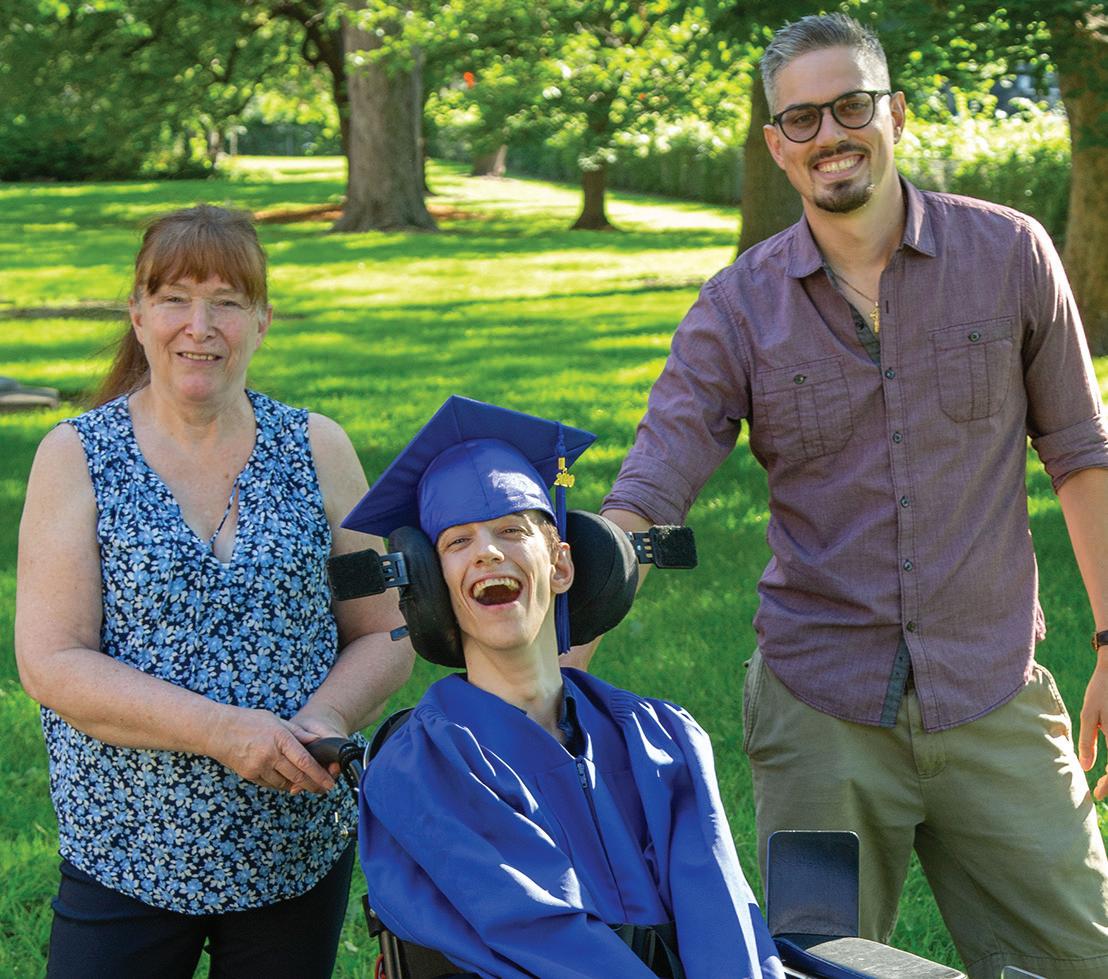
Campus Life and Leadership
Campus Life & Leadership (CLL) values and encourages student involvement. We provide programs to improve the quality of campus life through activities that offer educational, social, recreational, and leadership opportunities.
www.dawsoncollege.qc.ca/campus-life-leadership
Financial Aid
Check out this office for access to financial assistance (loans and bursaries) free snacks and even a food bank for groceries, toiletries and more. We’ve got you covered. www.dawsoncollege.qc.ca/financial-aid
Library
A quiet study space, access to books and research materials and help from our friendly staff. Many services and extensive research databases are also available online through our website. library.dawsoncollege.qc.ca
Awards and Scholarships
Every year, Dawson recognizes excellence and encourages perseverance in education through the awarding of over 120 Awards, Bursaries, and Scholarships. Check them out here: www.dawsoncollege.qc.ca/awards-scholarships

The First-Year Students’ Office is your one-stop shop to help you navigate your transition to CEGEP. We can answer any question or refer you to one of the services below.
www.dawsoncollege.qc.ca/first-year
Student Employment
Help finding a job, writing a CV or preparing for an interview. We also host job fairs on campus where you can apply directly with recruiters! www.dawsoncollege.qc.ca/student-employment
Student Health Services
Pregnancy and STI testing, contraceptive counselling and on-campus appointments with a doctor, gynecologist, psychiatrist or nurse. All your wellness questions can be answered here.
www.dawsoncollege.qc.ca/health-services
Counselling
This service provides an opportunity to explore your concerns in a supportive and non-judgmental environment. Whether you’re dealing with stress, loss, difficult relationships, feeling isolated or depressed, contact us for free and confidential counselling with a registered psychologist. www.dawsoncollege.qc.ca/counselling
Career Resource Centre
Information about university programs, paid internships and studyabroad programs. A great place to start if you’re unsure of your career path.
www.dawsoncollege.qc.ca/career-resource-centre
Academic Skills Centre
If you need help with your studies, the Academic Skills Centre will help you improve your learning, reading and writing skills. You can meet with professionals and peer tutors on an individual basis or in small groups. www.dawsoncollege.qc.ca/academic-skills-centre
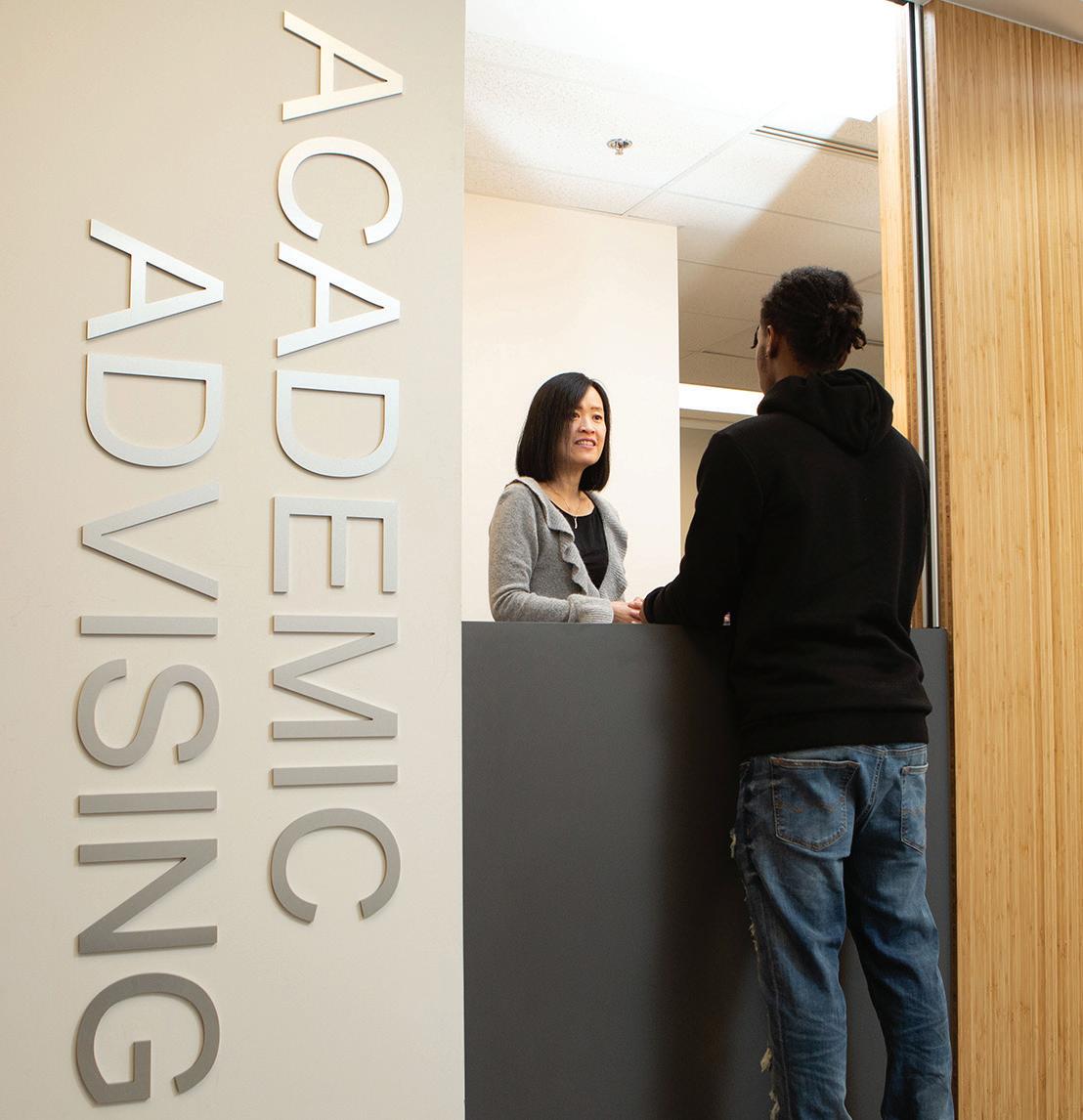
Ombudsperson’s Office
This independent and confidential service ensures that you receive fair and equitable treatment. We can investigate complaints and help negotiate solutions.
www.dawsoncollege.qc.ca/ombudsperson
First Peoples’ Centre
Comprehensive support for Indigenous students (First Nations, Metis, and Inuit). This welcoming space offers a peaceful, culturally sensitive environment where students can learn, study, socialize and find community.
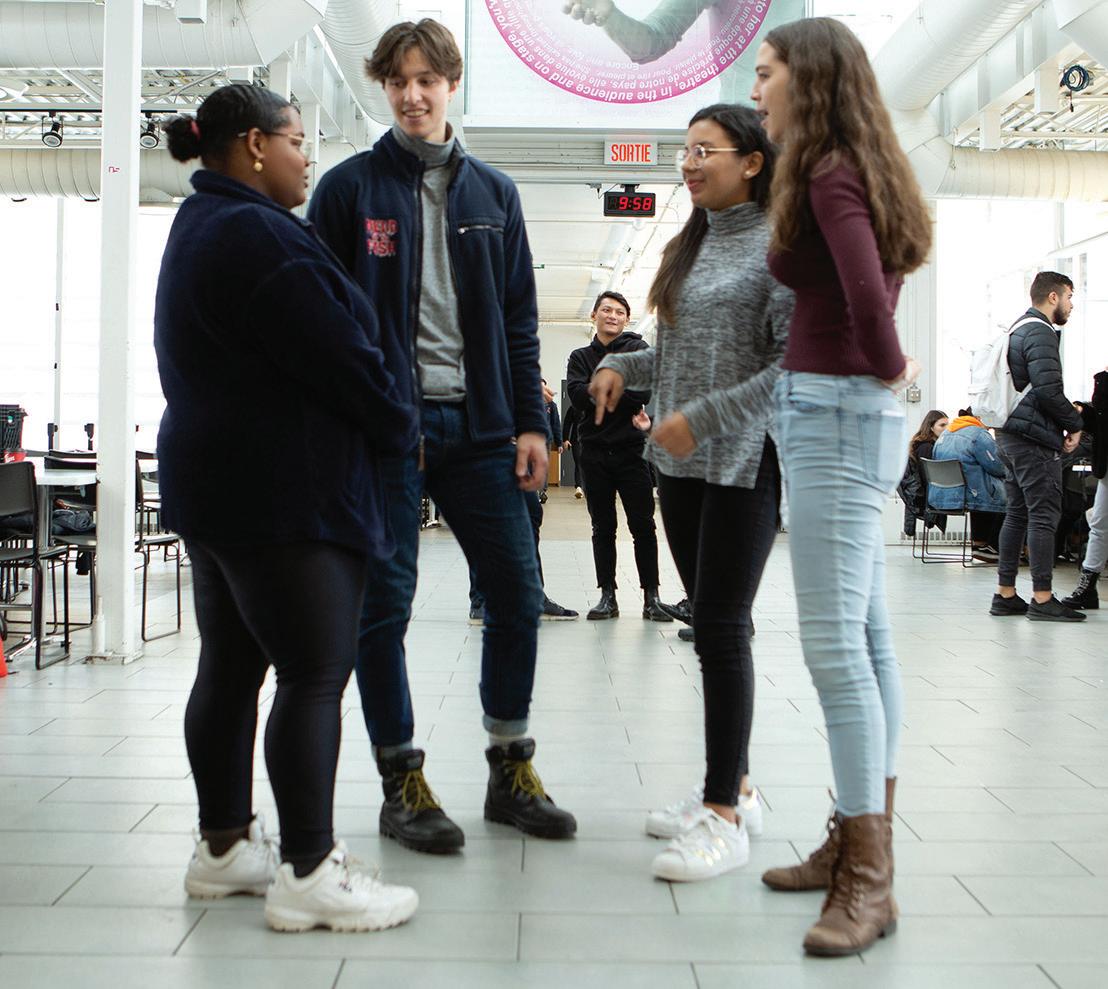
www.dawsoncollege.qc.ca/first-peoples-initiative
I don’t know if I can afford to move out.
I’ve been feeling really stressed out these days.
I have no idea what career I want to pursue.
78%
of new Dawson students said they adjusted to their program without difficulty.
Source: Dawson College Quality Assurance and Planning Office, 2020
At Dawson, there is always a team behind you, making you feel comfortable and helping you with anything you need.
“
— Chloë
15 14
ATHLETICS
https://athletics.dawsoncollege.qc.ca/ @DawsonCollegeBlues @dcblues_athletics
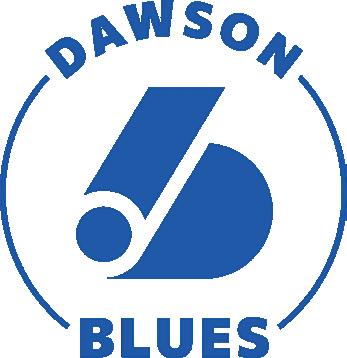
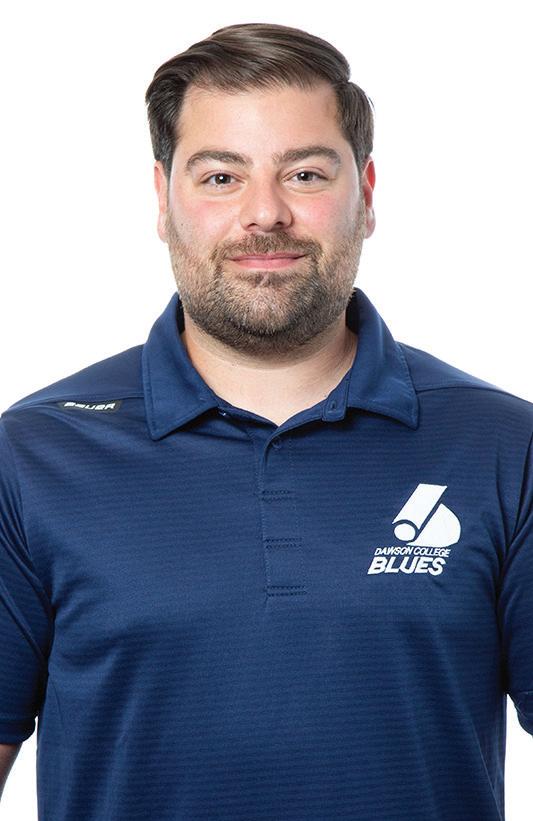
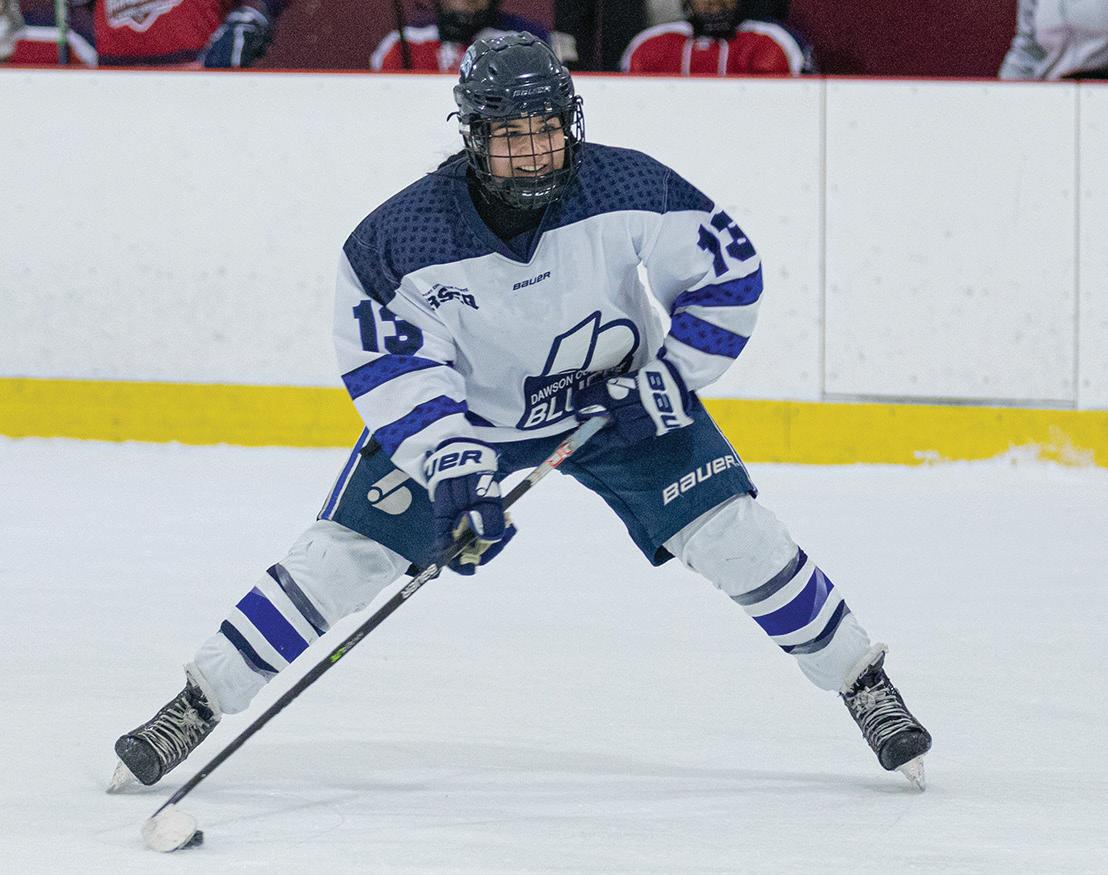
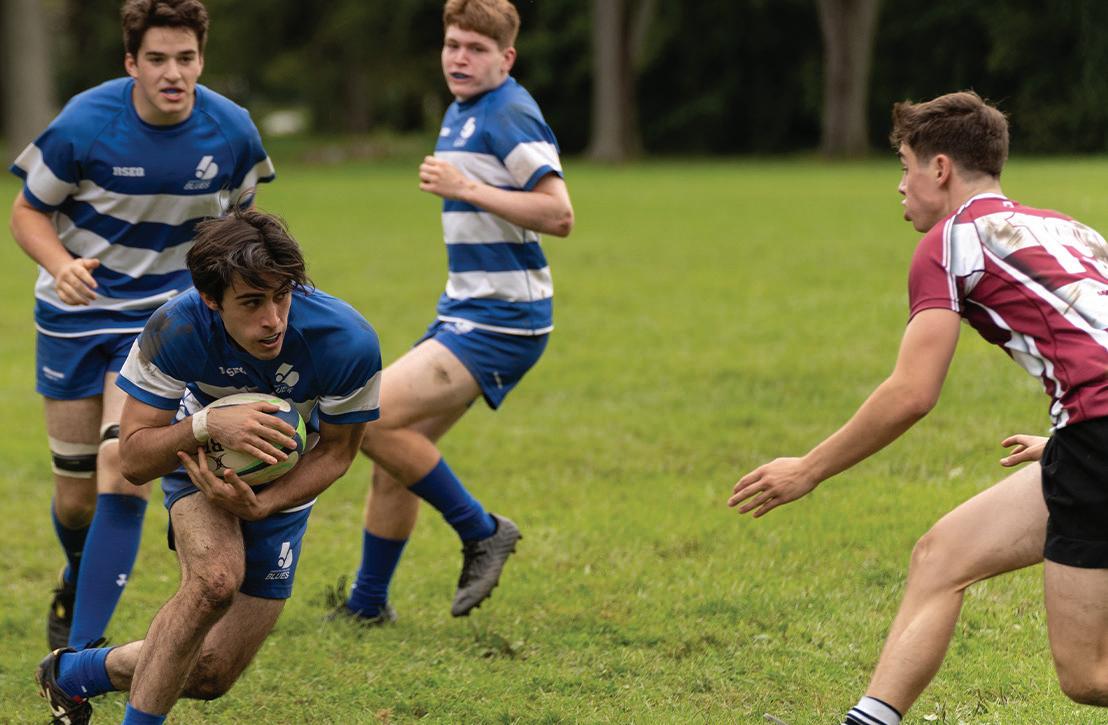

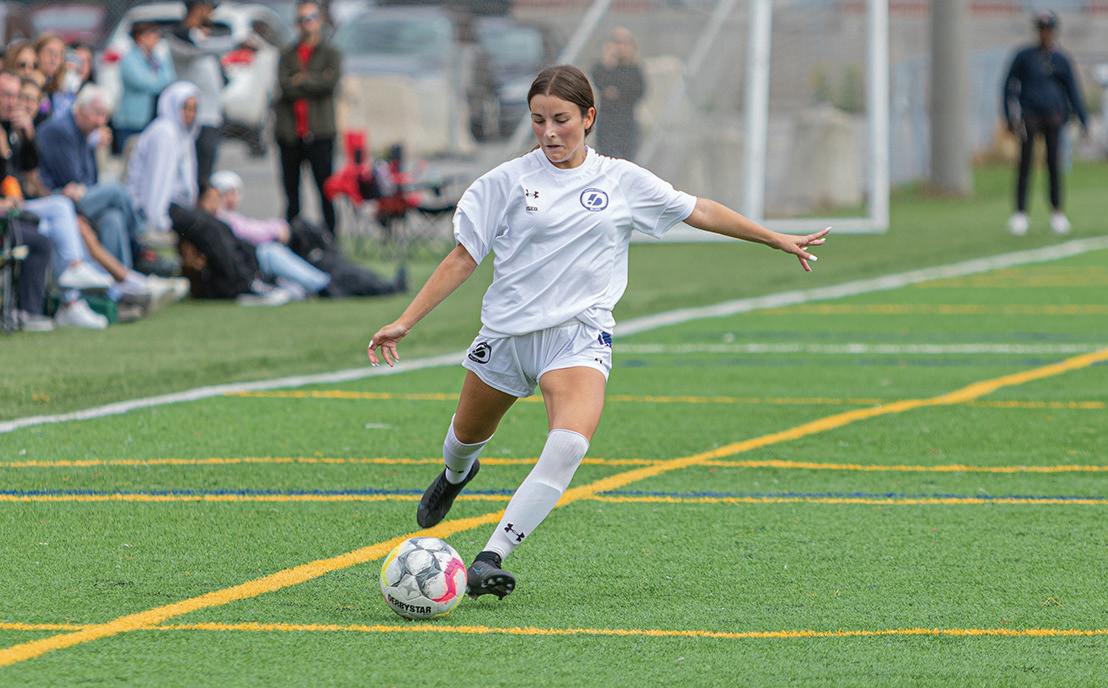
Dawson College has one of the largest athletics programs in Quebec, with 16 intercollegiate and competitive teams. As a Dawson Blues athlete, you will be part of a tight-knit community of talented and dedicated students who strive for excellence in sports and in the classroom. You will have access to professional coaching, a weight-room, free tutoring, academic accommodations and even free athletic therapy treatments. Over the years, many Dawson Blues athletes have received full sports scholarships to pursue their studies in Canada or internationally. Several well-known Olympians started their careers playing for the Dawson Blues! If your goal is to take your game to the next level, join the Dawson Blues.
Our Teams
Basketball
Men’s Division 1
Men’s Division 2
Women’s Division 1
Women’s Division 2
Hockey
Women’s Division 1
Soccer
Men’s Division 2
Women’s Division 1
Volleyball
Men’s Division 2
Women’s Division 2
Our Coaches
Our coaches are there for you in sports and in life, offering mentorship to help you reach your full potential. As former professional athletes and even Olympians, some have decades of experience coaching high-level sports.
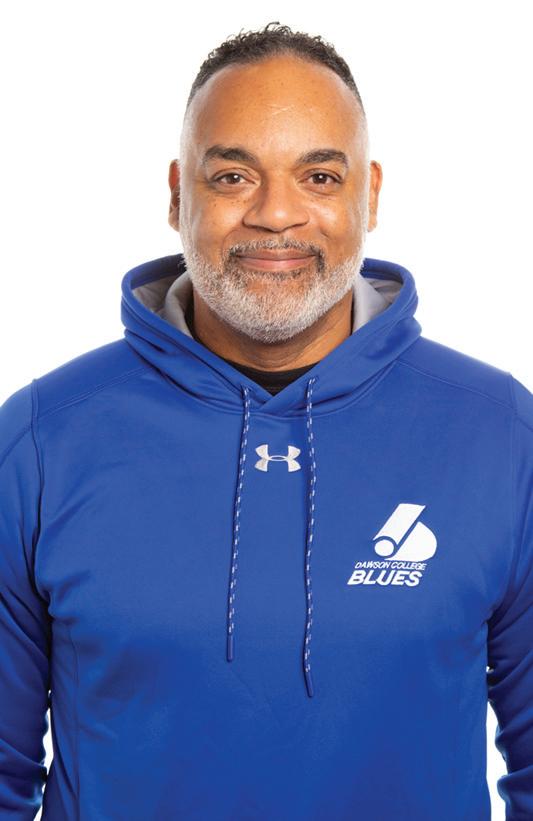
Certified athletic therapists at Dawson’s in-house clinic help our student athletes stay in top shape, treating any acute or chronic injury, on or off the field.
Badminton
Mixed Division 2
Rugby Men’s Women’s Rowing
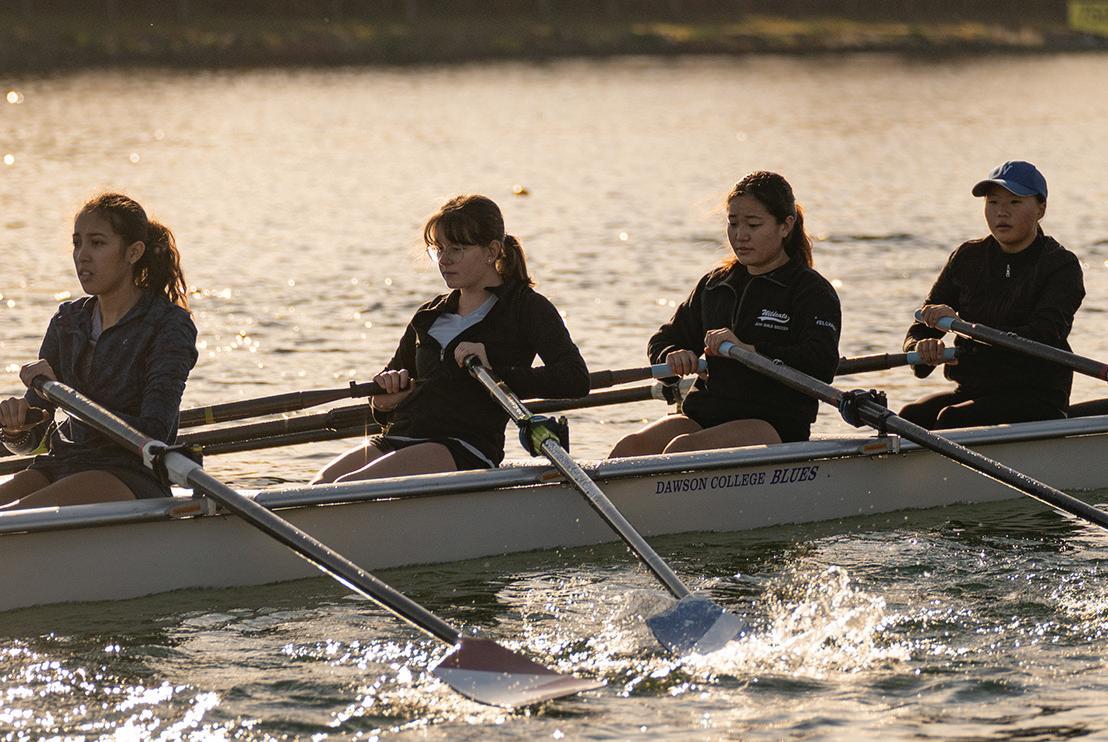
Mixed Team Baseball
Men’s Golf
Mixed Division 2
Cross Country Running
Mixed Division 2
Being a Dawson Blues athlete was one of the greatest experiences of my life. I got to be part of an amazing athletic community where I met hardworking and motivated individuals who became my closest friends.
Ashley Norfleet D2 Women’s Volleyball
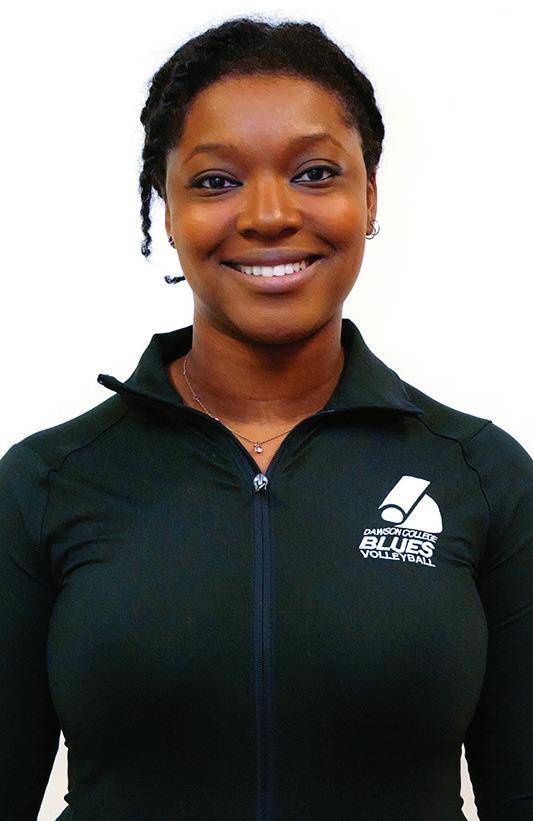
athletes proudly wear the Dawson Blues uniform.
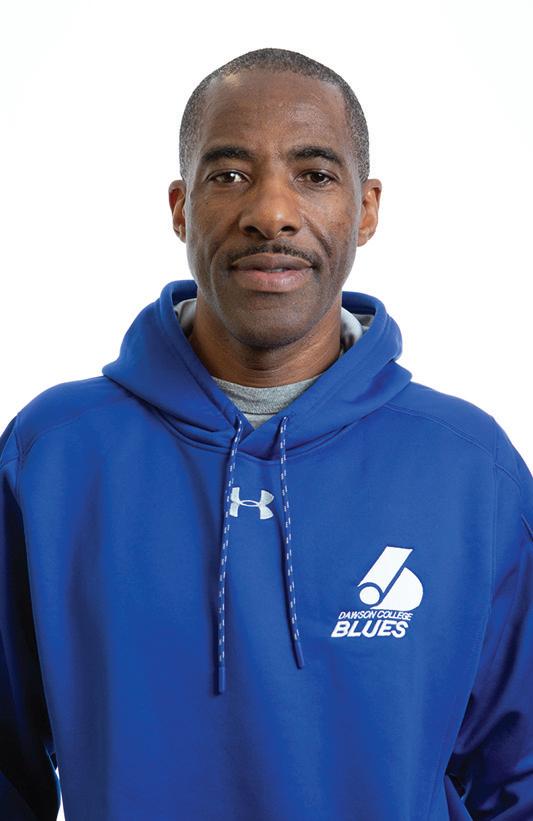
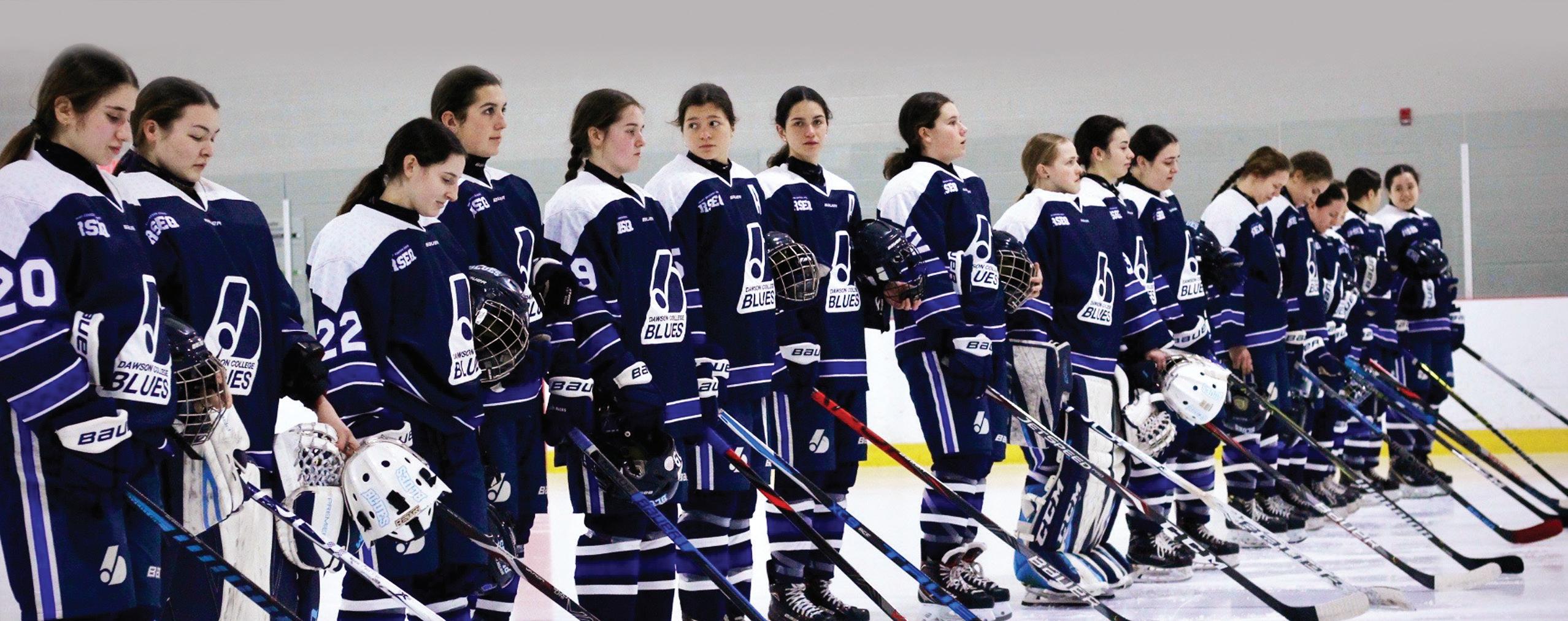
“
— Jillian L.
Trevor Williams D1 Women’s Basketball
Wayne Yearwood D1 Men’s Basketball
400+
Joey Brandone D1 Women’s Hockey
17 16
ENHANCED LEARNING AND EXTRACURRICULAR ACTIVITIES
OUT-OF-CLASS LEARNING AND FUN
Meet friends and make the most of your CEGEP experience by participating in activities that take learning beyond the classroom. Here are a few examples:
DCMUN (Dawson College Model UN): Improve your debating skills and learn about international political issues as you participate in local or international Model United Nations conferences.
Neuroscience Research Group: Work with experienced researchers from Dawson and local universities on real scientific research.
www.dawsoncollege.qc.ca/programs/certificates-special-fields-of-study
DEEPEN YOUR LEARNING WITH A CERTIFICATE
Add value to your academic experience by enrolling in a certificate after you have been admitted to a Dawson program. You will join a community of students and teachers who share a passion for thinking about and finding solutions to specific contemporary issues.
Certificates currently offered at Dawson Women’s/Gender Studies explores gender roles and how they shape, and are shaped by, our cultures, as well as the history of women’s rights movements around the world. Students are provided with opportunities to discuss topical issues as they relate to women and gender, such as reproductive rights, sexuality, queer identities, sexual violence and equity.
Decolonization and Indigenization Studies explores Canada’s settler-colonial relationship to the diverse Indigenous peoples who have been here for millennia, while providing opportunities for students to better understand the diversity and contributions of Indigenous peoples across Turtle Island and globally.
Environment and Sustainability explores real-world learning about social-ecological challenges, class and campus projects that make a difference, and a community of motivated students and teachers – all make this certificate ideal for those who want to both learn about and act for positive societal and environmental change. This certificate is for students in any program who care deeply about the natural world and our place within it.
Hellenic Studies Through the works of its philosophers, poets, artists and historians, Ancient Greece’s rich cultural legacies live on to this day. Dive deep into Western civilization by exploring this ancient yet enduring culture. Join a vibrant community offering courses and events on Greece’s history, mythology, language, drama, archaeology and art.
Peace Studies invites students to reflect critically and creatively on the complex roots of violence, nonviolence, and peace, their consequences and their roles in our world. The aim is to prepare students to work for justice and to build peace in any context, whether in their personal or professional lives, their communities, in society or on a global scale.
SPACE: Arts and Sciences Be part of a dynamic learning community! Through course work and co-curricular activities this certificate will guide students in making connections between the arts and sciences and offer them the opportunity to broaden their education beyond their chosen program and to deepen their knowledge and skills within their field of study.
OPT FOR A SPECIAL AREA OF STUDY
New School: Imagine having a say in what and how you learn, shaping the content of your own courses and relating to them in a personal way. This is New School. Open to all students, New School has its own unique space and offers an alternative way to take your mandatory General Education courses in a weekly late afternoon or evening seminar.
Reflections: Dedicated to interdisciplinary explorations of seminal works in literature, philosophy, social sciences and the arts, these challenging courses are given in seminar-style settings where students can earn credits in specific General Education and Social Science courses. Students have their own comfortable space to hang out between classes.
Coffee ‘n Code: Try out programming and learn to use python for artificial intelligence projects and web development.
Sustainabili-Team: Learn about urban agriculture, gardening and taking care of Nature by tending to our on-campus gardens.
Blue Ring: Volunteer for Dawson to make friends, act as an ambassador for the College and get a special mention on your transcript.
Events and lecture series: Attend art exhibitions, theatre productions, panel discussions, guest lectures and more as part of the many conferences, vernissages and festivals we have on campus.
JOIN ONE OF DAWSON’S LEARNING COMMUNITIES
Learning Communities courses highlight interdisciplinary learning about real-world topics and problems that matter to students. These courses are designed and co-taught by highly motivated teachers from different disciplines, and are available to students in several Social Science profiles, Science programs and Certificates. Learners grow together by enrolling in one, two or three courses with a single challenging interdisciplinary theme and by supporting each other as they acquire knowledge and develop essential skills. There is a proven link between learning communities and higher student achievement.
STUDENT CLUBS
The Dawson Student Union offers clubs for all kinds of interests and communities. Some of the clubs also offer learning opportunities.
The Plant newspaper: Develop your writing and reporting skills at The Plant, Dawson’s monthly student-run newspaper.
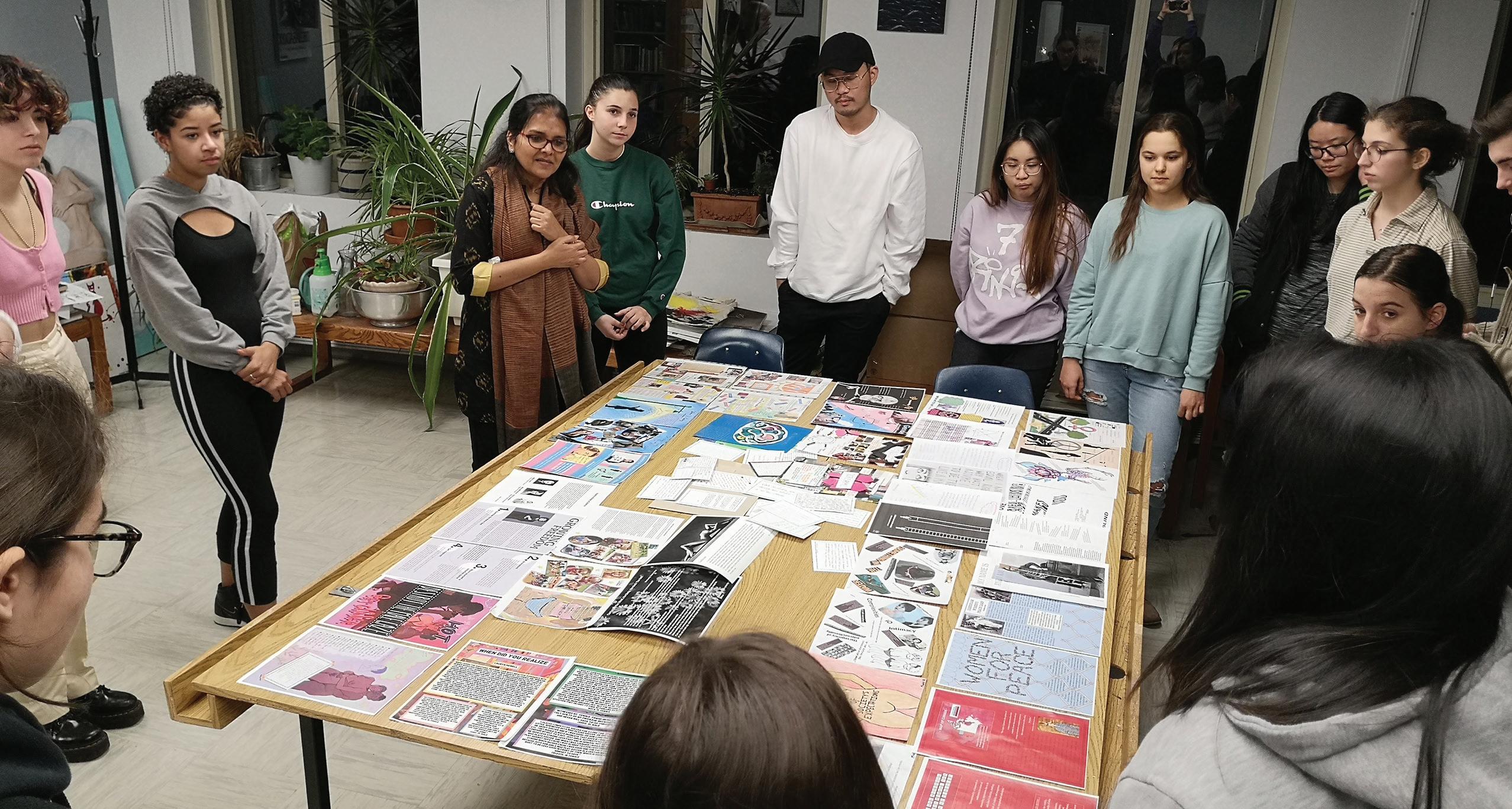
Etcetera: Dawson College’s LGBTQIA+ club provides a safe place for all students to feel comfortable and supported.

Dawson Debate Union: Improve your oracy skills, fine-tune your public speaking and sharpen your critical thinking as you debate for and against your own personal opinions.
www.dawsonstudentunion.com/clubs
“
Enrolling in a certificate at Dawson was one of the best choices I ever made. I expanded my knowledge, learned about issues, gained valuable experience and made several friends!
— Alissia M.
19 18
www.dawsoncollege.qc.ca/science
The Science Program is one of the most rigorous academic programs at Dawson College. Once here, you will enjoy studying with other enthusiastic learners and working in Dawson’s modern and well-equipped labs. Apart from the usual courses in Chemistry, Physics, Biology and Mathematics, you will have opportunities to learn outside the classroom. Perhaps you will present a project at ScienceFest, participate in a Neuroscience research project or join SPACE. There are two profiles in Science and two enriched options, which offer even more learning opportunities. No matter what you choose, you will have an excellent preparation for any science program at university: medicine, engineering, animal health, biochemistry, pharmacology and much more.
DID YOU KNOW?
Dawson is introducing a new Science, Computer Science and Mathematics Program with the first cohort starting in Fall 2024.
Profiles
The Health and Life Sciences Profile is designed for students with an interest in Biology or Chemistry, and who are interested in pursuing university studies in related areas such as medicine, dentistry, physiotherapy, physiology, biochemistry, pharmacology, veterinary medicine, ecology, or environmental sciences.
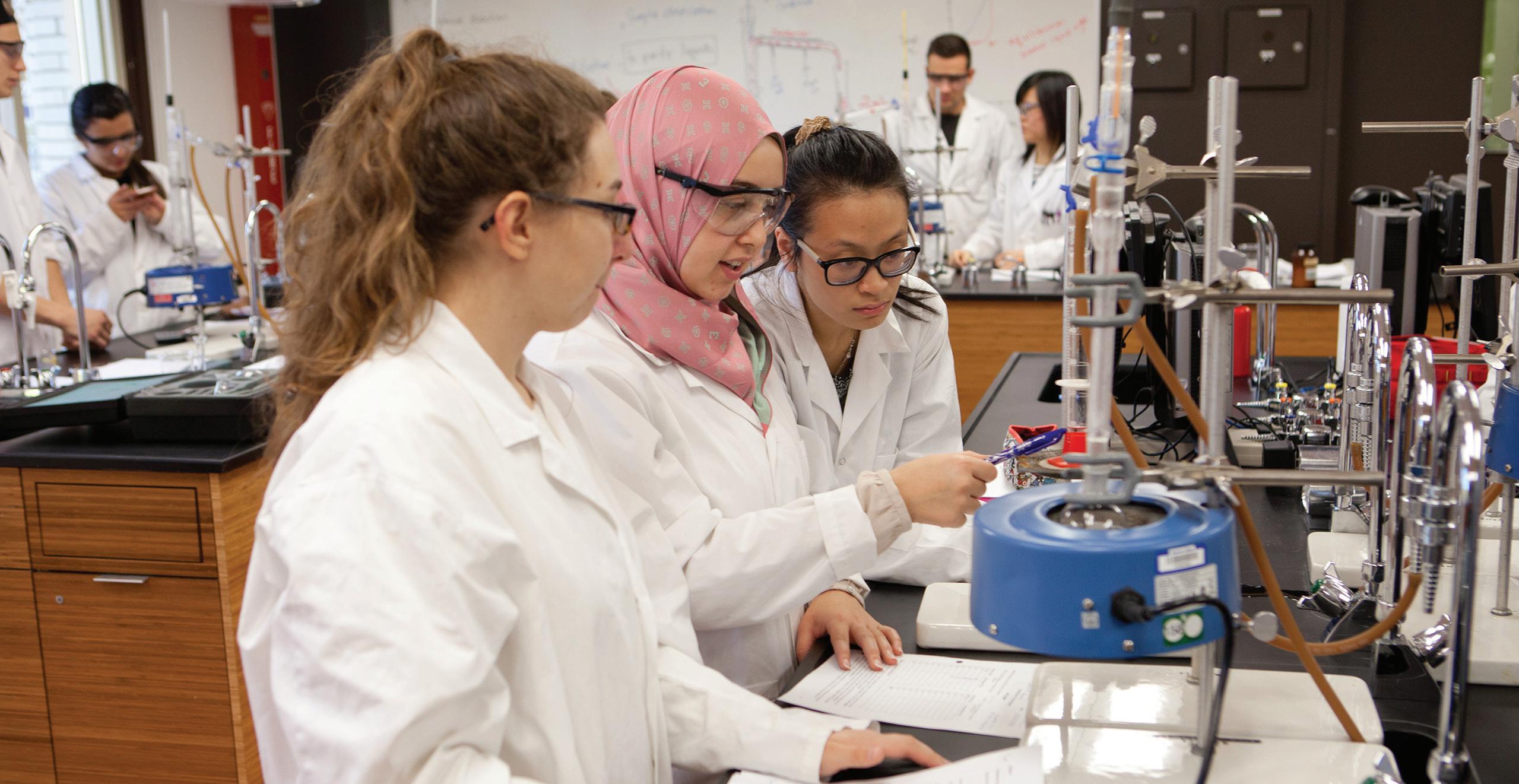
The Pure and Applied Science Profile is designed for students with an interest in Physics, Mathematics, or Computer Science, and who are interested in pursuing university studies in areas such as engineering, physics, mathematics, or computer science.
Highly motivated students may choose to pursue Enriched Health and Life Sciences or Enriched Pure and Applied Science. These profiles are designed to enhance the student learning experience in the sciences by engaging in curricular and extra-curricular activities that go above and beyond the regular Science Program.
Frequently Asked Questions
How many Science profiles do you offer? Students can choose between 2 profiles in the Science Program: Health and Life Sciences and Pure and Applied Science. For each of these profiles, there is a corresponding Enriched option for students who wish to get involved in Science outside the classroom with additional learning opportunities.
What are the differences between the Science profiles?
All Science students, regardless of profile, take a total of 15 Science courses including 13 compulsory Science courses: 2 in biology, 2 in chemistry, 4 in mathematics, 3 in physics, 1 computer programming course and 1 multidisciplinary project. The differences between the profiles are in the sequence of Science courses and the selection of the two Science option courses and Integrative Project, which can either be taken as a package or chosen individually.
Students in Health and Life Sciences are guaranteed priority access to option courses that are prerequisites for acceptance into medicine at university. Pure and Applied Sciences students may also take these medicine prerequisite courses if there is space.
What are the differences between the Science profiles and the Science, Computer Science and Mathematics Program?
Students within the Science Program must complete 1 Computer Science course, whereas students in the Science, Computer Science and Mathematics Program must complete 4 Computer Science courses.
While graduates of Health and Life Sciences and Pure and Applied Sciences (Enriched versions included) receive a diploma in Science, graduates of the new program receive a diploma in Science, Computer Science and Mathematics. What impact does the choice of profile have on my opportunities at university?
All profiles within the Science Program lead to a DEC in Science and thus to all science and engineering programs at university. Deciding between Health and Life Sciences and Pure and Applied, or deciding between regular and Enriched Science makes no difference when applying to university. They are great choices for students who are yet undecided about their future plans.
Science, Computer Science and Mathematics is a separate two-year pre-university program for those who already know they intend to study in one of these three areas at university. It does not include the prerequisites for students wishing to pursue medical professional university programs. It is the student’s responsibility to verify admission requirements directly with the university or program of interest.
Which grades are considered during admission?
Dawson calculates an overall average based on Secondary IV final and Secondary V midterm grades. For prerequisite courses, the Admissions Office looks at Secondary V midterms. If you are selected, you are sent a conditional offer of admission. In July, final grades are received from the Ministry of Education and reviewed to ensure that you have obtained your high school diploma and maintained appropriate grades in prerequisite courses.
How competitive is the Science Program at Dawson?
Admission to all Science profiles is very competitive. The number of students that Dawson can accept into the Science Program is limited, and admission averages change from year to year depending on the size and strength of the applicant pool.
Will being in Enriched Pure and Applied or Enriched Health and Life Sciences lower my R-Score?
No. Being in Enriched Science does not disadvantage students when it comes to the R-Score.
SCIENCE 2
200.B1 SCIENCE Pure and Applied Science 200.PR Health and Life Sciences 200.HR Enriched Pure and Applied Science 200.PE Enriched Health and Life Sciences 200.HE The information contained in this document was accurate and complete at the time of printing.
Sherbrooke St.
Montreal,
H3Z 1A4 dawsoncollege.qc.ca
YEARS
3040
West
Quebec
21 20
www.dawsoncollege.qc.ca/pure-applied
If you would like to:
Be well prepared for university studies in areas such as engineering, physics, mathematics, or computer science
Explore advanced ideas in mathematics, physics, chemistry and biology
Understand the natural world
Use logical reasoning to solve problems
Recognize how scientific knowledge is constructed
Have priority for Integrative Project sections that relate to physics, mathematics and engineering
Obtain a DEC in Science
Benefit from a maximum flexibility in course selection
Then the Pure and Applied Science Profile could be for you.
2 YEARS
Explore, research and discover what interests you most in the vast world of science. The Pure and Applied Science Profile offers exposure to many disciplines in the first year. In the second year, students can go deeper into topics of particular interest, such as ecology and the environment, engineering, and computer science. The Integrative Project is another opportunity to choose what you wish to learn.
What will you learn?
■ To think like a scientist
■ To employ a scientific method
■ To read and analyze scientific publications
■ To choose and appropriately use digital technologies to support learning, to present content, to model, to simulate and to program
■ To design and implement a scientific project
■ To collect, analyze and communicate experimental data
■ To solve complex problems
Where will this program lead you? Graduates of this profile are well prepared for a wide variety of university studies, such as engineering, physics, mathematics, or computer science.
What do you need to apply?
■ Secondary V Chemistry
■ Secondary V Physics
■ Secondary V Mathematics: Technical & Scientific option (TS) or Science option (SN)
Application Deadline
March 1 • November 1
Selection of Science Option Courses
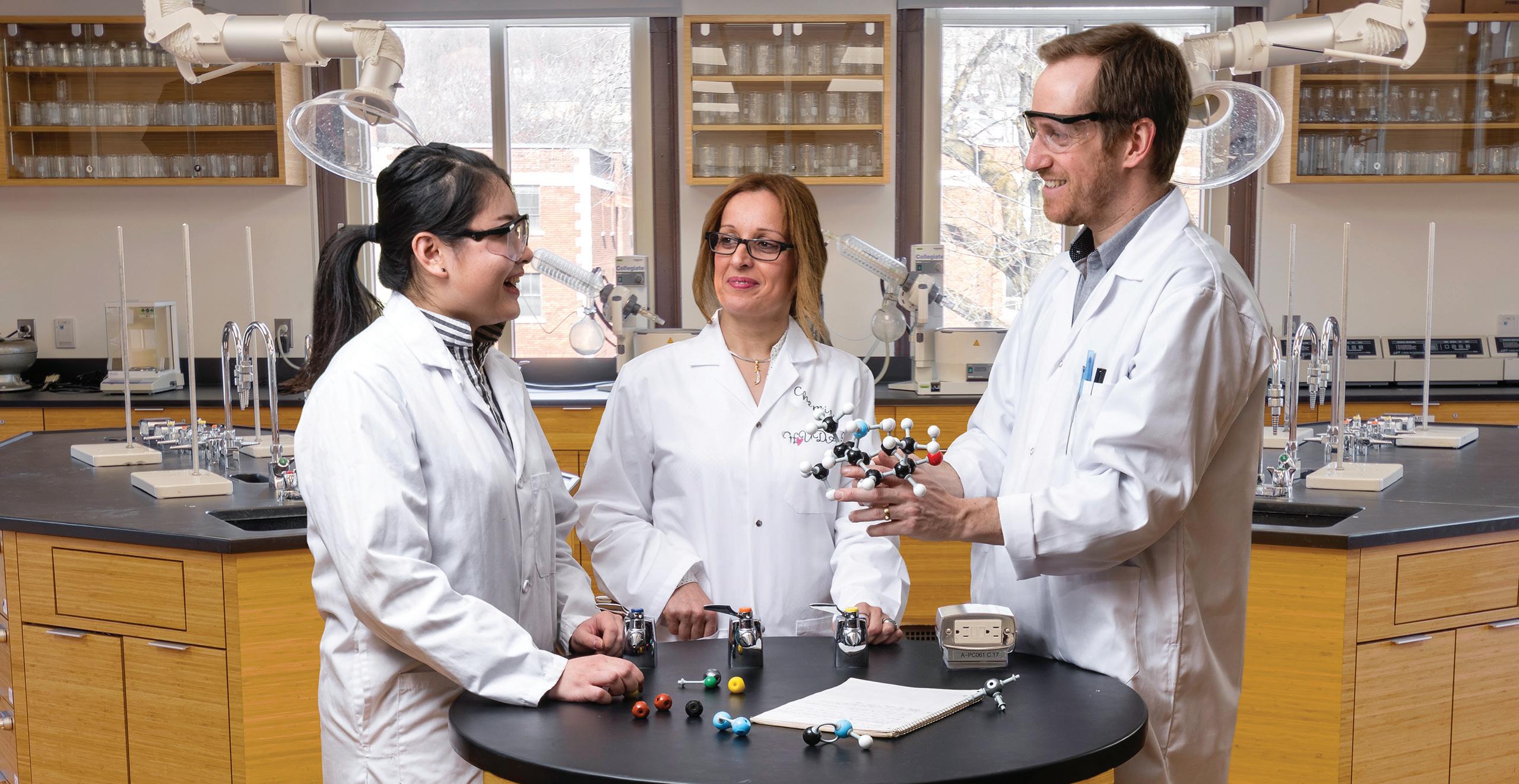
Pure and Applied Science students will choose two option courses from this list. Please note that not all courses are offered every year.
■ Human Anatomy and Physiology
■ Field and Community Ecology
■ Biotechnology
■ Topics in Biology
■ Multivariable Calculus
■ Discrete Mathematics
■ Linear Algebra 2
■ Topics in Mathematics
■ Organic Chemistry
■ Environmental Chemistry
■ Forensic Chemistry
■ Organic Chemistry 2
■ Topics in Chemistry
■ Astrophysics
■ Engineering Physics
■ Medical Physics
■ Topics in Physics
■ Physical Geology
■ Topics in Geology
■ Programming in Science 2
■ Programming for Data Science
■ Algorithms: Real World Applications
■ Topics in Computer Science
■ Applied Mathematics in Science
■ Topics in Science
notes
LIST OF SPECIFIC COURSES
All students must also take General Education courses such as English, French, Humanities and Physical Education, in addition to complementary courses.
Year 1 • Term 1
■ Calculus I
■ Mechanics
■ Programming in Science
■ Ecology and Evolution
Year 1 • Term 2
■ General Chemistry
■ Calculus II
■ Electricity and Magnetism
Year 2 • Term 3
■ Probability and Statistics
■ Waves and Modern Physics
■ Choice (2): Linear Algebra, Cellular Biology, Chemistry of Solutions, Option Course
Year 2 • Term 4
■ Choice (2): Linear Algebra, Cellular Biology, Chemistry of Solutions, Option Course*
■ Choice (1): Option Course
■ Integrative Project
DEC IN SCIENCE PURE
Science
AND APPLIED SCIENCE
“
200.PR The information contained in this document was accurate and complete at the
of printing.
The emphasis on collaboration and the importance of cross-disciplinary research are values taught here that will serve me well in the future as a scientist.
—
Benjamin C.
time
3040 Sherbrooke St. West Montreal, Quebec H3Z 1A4 dawsoncollege.qc.ca
23 22
www.dawsoncollege.qc.ca/enriched-pure-applied
If you would like to:
Be part of a small and super committed learning community
Go beyond the Pure and Applied Science curriculum and challenge yourself Learn outside the classroom through extracurricular activities
Participate in field trips to world-class research facilities
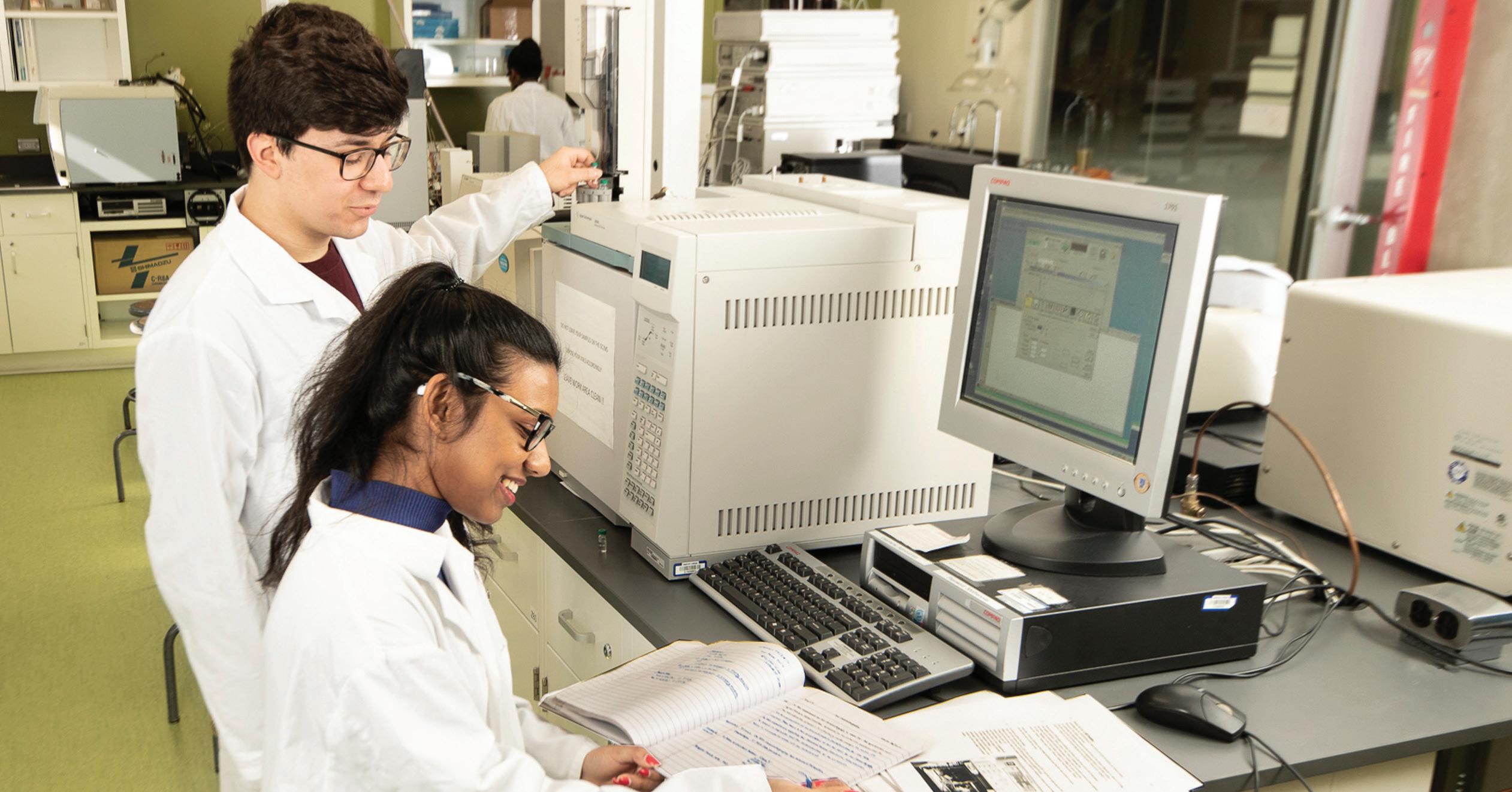
Conduct original research with Dawson teachers
Be well prepared for university studies in life sciences, medicine, ecology or environmental sciences
Then the Enriched Pure and Applied Science Profile could be for you.
Explore, research and discover what interests you most in the vast world of science. The Pure and Applied Science Profile offers exposure to many disciplines in the first year. In the second year, students can go deeper into topics of particular interest, such as ecology and the environment, engineering, and computer science. The Integrative Project is another opportunity to choose what you wish to learn.
What will you learn?
■ To think like a scientist
■ To employ a scientific method
■ To read and analyze scientific publications
■ To choose and appropriately use digital technologies to support learning, to present content, to model, to simulate and to program
■ To design and implement a scientific project
■ To collect, analyze and communicate experimental data
■ To solve complex problems
The program exposes students to another side of science not usually covered in the curriculum, such as aspects of Research and Development and applications of science in solving real-world problems.
— Lucas C.
Where will this program lead you?
Graduates of this profile are well prepared for a wide variety of university studies, such as engineering, physics, mathematics, or computer science.
What do you need to apply?
■ Secondary V Chemistry
■ Secondary V Physics
■ Secondary V Mathematics: Technical & Scientific option (TS) or Science option (SN)
Application Deadline
March 1
Selection of Science Option Courses
Pure and Applied Science students will choose two option courses from this list. Please note that not all courses are offered every year.
■ Human Anatomy and Physiology
■ Field and Community Ecology
■ Biotechnology
■ Topics in Biology
■ Multivariable Calculus
■ Discrete Mathematics
■ Linear Algebra 2
■ Topics in Mathematics
■ Organic Chemistry
■ Environmental Chemistry
■ Forensic Chemistry
■ Organic Chemistry 2
■ Topics in Chemistry
■ Astrophysics
■ Engineering Physics
■ Medical Physics
■ Topics in Physics
■ Physical Geology
■ Topics in Geology
■ Programming in Science 2
■ Programming for Data Science
■ Algorithms: Real World Applications
■ Topics in Computer Science
■ Applied Mathematics in Science
■ Topics in Science
notes
LIST OF SPECIFIC COURSES
All students must also take General Education courses such as English, French, Humanities and Physical Education, in addition to complementary courses.
Year 1 • Term 1
■ Calculus I
■ Mechanics
■ Programming in Science
■ Ecology and Evolution
■ Probability and Statistics
■ Waves and Modern Physics
■ Choice (2): Linear Algebra, Cellular Biology, Chemistry of Solutions, Option Course
Year 1 • Term 2 Year 2 • Term 4
■ General Chemistry
■ Calculus II
■ Electricity and Magnetism
■ Choice (2): Linear Algebra, Cellular Biology, Chemistry of Solutions, Option Course*
■ Choice (1): Option Course
■ Integrative Project
DEC IN SCIENCE ENRICHED PURE AND APPLIED SCIENCE Science
200.PE
2 YEARS
The information contained in this document was accurate and complete at the time of printing. 3040 Sherbrooke St. West Montreal, Quebec H3Z 1A4 dawsoncollege.qc.ca
“
Year
•
2
Term 3
25 24
HEALTH AND LIFE SCIENCES
What will you learn?
■ To think like a scientist
■ To employ a scientific method
■ To read and analyze scientific publications
■ To choose and appropriately use digital technologies to support learning, to present content, to model, to simulate and to program
■ To design and implement a scientific project
■ To collect, analyze and communicate experimental data
■ To solve complex problems
Where will this program lead you?
Graduates of this profile are well prepared for a wide variety of university studies, such as medicine, dentistry, physiotherapy, physiology, biochemistry, pharmacology, veterinary medicine, ecology, or environmental sciences.
What do you need to apply?
■ Secondary V Chemistry
■ Secondary V Physics
■ Secondary V Mathematics: Technical & Scientific option (TS) or Science option (SN)
www.dawsoncollege.qc.ca/health-life
If you would like to:
Be well prepared for university studies in life sciences, medicine, ecology or environmental sciences
Have priority for advanced chemistry and biology courses that are prerequisites for medicine
Have priority for Integrative Project sections that relate to biology and chemistry, including health and the environment
Explore advanced ideas in mathematics, physics, chemistry and biology
Understand the natural world
Use logical reasoning to solve problems
Recognize how scientific knowledge is constructed
Obtain a DEC in Science
Then the Health and Life Sciences Profile could be for you.
2 YEARS
Dreaming of a career in medicine, dentistry or health and life sciences? The Health and Life Sciences Profile is designed for students with a particular interest in biology and chemistry.
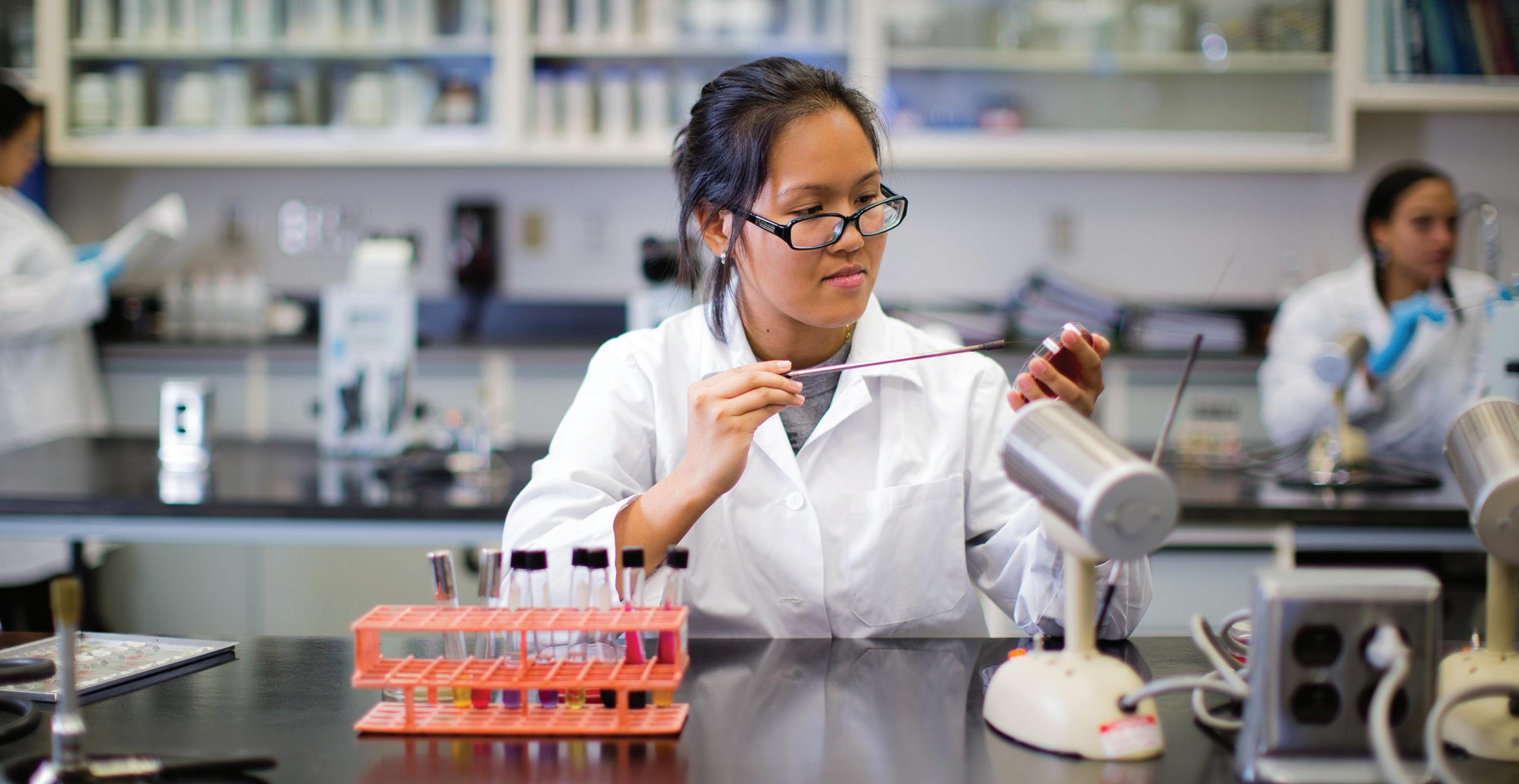
The first year gives students a wide variety of courses in science disciplines. The second year allows students to go deeper into disciplines related to health science. They will take the prerequisite courses for medicine: Human Anatomy and Physiology; and Organic Chemistry. In addition, they will have guaranteed spots in courses related to health and environmental science for their Integrative Project.
Students in this profile are part of a brilliant and curious learning community. Dawson’s Health and Life Sciences students are Quebec’s future leaders in medicine, research, industry and academia.
Application Deadline March 1 • November 1
Health Science Option Courses
Health Science students will choose two option courses from this list. Please note that not all courses are offered every year.
■ Human Anatomy and Physiology
■ Field and Community Ecology
■ Biotechnology
■ Topics in Biology
■ Multivariable Calculus
■ Discrete Mathematics
■ Linear Algebra 2
■ Topics in Mathematics
■ Organic Chemistry
■ Environmental Chemistry
■ Forensic Chemistry
■ Organic Chemistry 2
■ Topics in Chemistry
■ Astrophysics
■ Engineering Physics
■ Medical Physics
■ Topics in Physics
■ Physical Geology
■ Topics in Geology
■ Programming in Science 2
■ Programming for Data Science
■ Algorithms: Real World Applications
■ Topics in Computer Science
■ Applied Mathematics in Science
■ Topics in Science
LIST OF SPECIFIC COURSES
All students must also take General Education courses such as English, French, Humanities and Physical Education, in addition to complementary courses.
YEAR 1 YEAR 2
Term 1 Term 3
■ Calculus I
■ General Chemistry
■ Ecology and Evolution
■ Probability and Statistics
■ Electricity and Magnetism
■ Cellular Biology OR Chemistry of Solutions
■ Choice (1): Option Course
Term 2 Term 4
■ Calculus II
■ Mechanics
■ Cellular Biology OR Chemistry of Solutions
■ Programming in Science
■ Linear Algebra and Vector Geometry
■ Waves and Modern Physics
■ Choice (1): Option Course
■ Integrative Project
DEC IN SCIENCE
Science
“
Health Science at Dawson was the perfect preparation for university. It gave me the opportunity to learn, become autonomous, have fun and make life-long memories and friendships.
200.HR The information contained in this document was accurate and complete at the time of printing.
St. West
dawsoncollege.qc.ca
— Sophie E.
3040 Sherbrooke
Montreal, Quebec H3Z 1A4
27 26
www.dawsoncollege.qc.ca/enriched-health-life
If you would like to:
Be part of a small and super committed learning community
Go beyond the Health and Life Sciences curriculum and challenge yourself Learn outside the classroom through extracurricular activities
Participate in field trips to world-class research facilities
Conduct original research with Dawson teachers
Be well prepared for university studies in life sciences, medicine, ecology or environmental sciences
Ensure you have the prerequisites required for medicine
Then the Enriched Health and Life Sciences Profile could be for you.
2 YEARS
Dreaming of a career in medicine, dentistry or health and life sciences? The Health and Life Sciences Profile is designed for students with a particular interest in biology and chemistry. The first year gives students a wide variety of courses in science disciplines. The second year allows students to go deeper into disciplines related to health science. They will take the prerequisite courses for medicine: Human Anatomy and Physiology; and Organic Chemistry. In addition, they will have guaranteed spots in courses related to health and environmental science for their Integrative Project.
Students in this profile are part of a brilliant and curious learning community. Dawson’s Health and Life Sciences students are Quebec’s future leaders in medicine, research, industry and academia.
The Enriched Science program has taught me to think outside of the box when it comes to science. I enjoy being able to solve complex problems with my peers in an interactive classroom, designing my own lab experiments, and partaking in multiple extra-curricular activities that fuel my passion about science as a whole!
—
Mahan M.
What will you learn?
■ To think like a scientist
■ To employ a scientific method
■ To read and analyze scientific publications
■ To choose and appropriately use digital technologies to support learning, to present content, to model, to simulate and to program
■ To design and implement a scientific project
■ To collect, analyze and communicate experimental data
■ To solve complex problems
Where will this program lead you?
Graduates of this profile are well prepared for a wide variety of university studies, such as medicine, dentistry, physiotherapy, physiology, biochemistry, pharmacology, veterinary medicine, ecology, or environmental sciences.
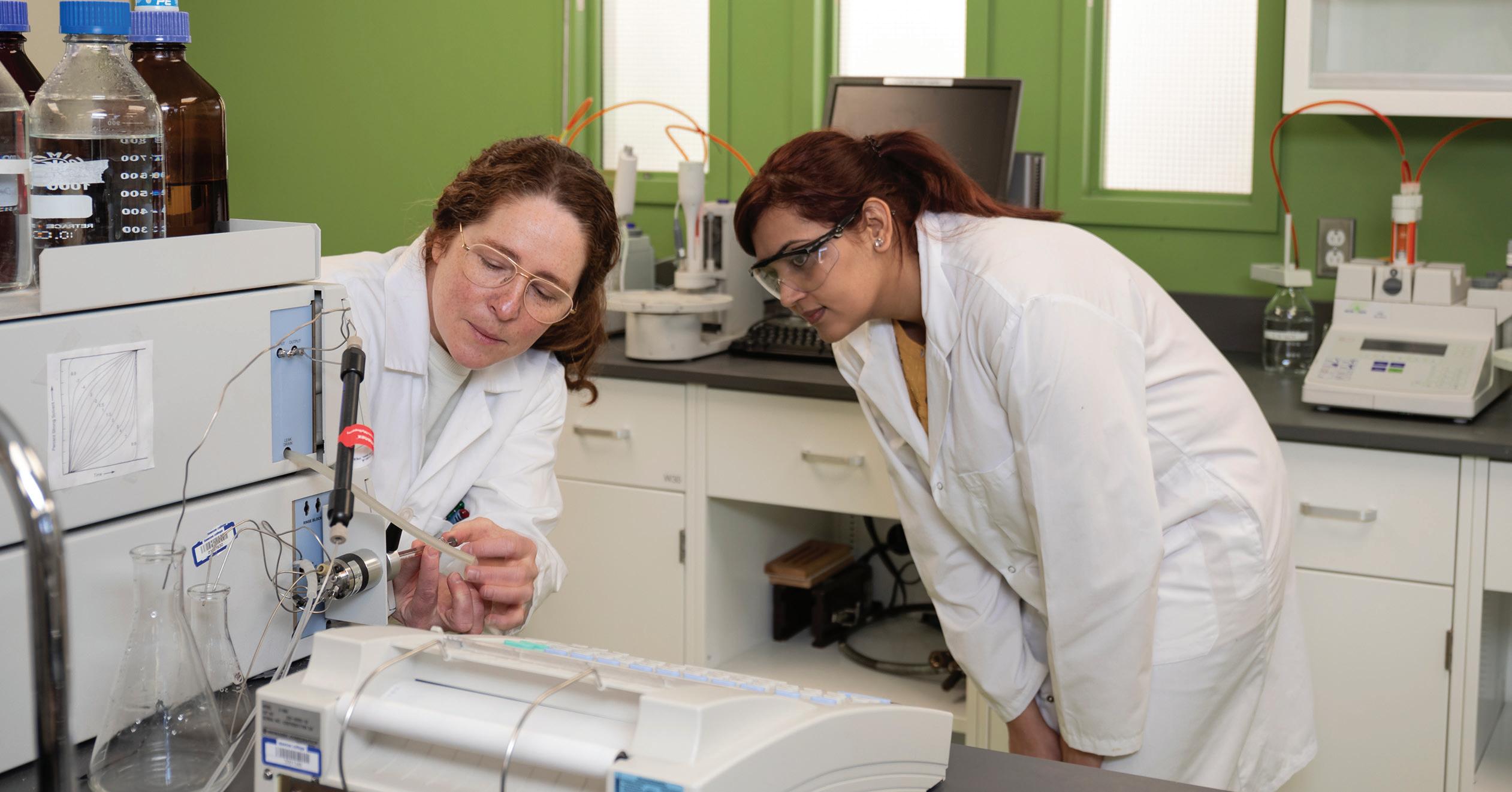
What do you need to apply?
■ Secondary V Chemistry
■ Secondary V Physics
■ Secondary V Mathematics: Technical & Scientific option (TS) or Science option (SN)
Application Deadline
March 1
Health Science Option Courses
Health Science students will choose two option courses from this list. Please note that not all courses are offered every year.
■ Human Anatomy and Physiology
■ Field and Community Ecology
■ Biotechnology
■ Topics in Biology
■ Multivariable Calculus
■ Discrete Mathematics
■ Linear Algebra 2
■ Topics in Mathematics
■ Organic Chemistry
■ Environmental Chemistry
■ Forensic Chemistry
■ Organic Chemistry 2
■ Topics in Chemistry
■ Astrophysics
■ Engineering Physics
■ Medical Physics
■ Topics in Physics
■ Physical Geology
■ Topics in Geology
■ Programming in Science 2
■ Programming for Data Science
■ Algorithms: Real World Applications
■ Topics in Computer Science
■ Applied Mathematics in Science
■ Topics in Science
LIST OF SPECIFIC COURSES
All students must also take General Education courses such as English, French, Humanities and Physical Education, in addition to complementary courses.
YEAR 1 YEAR 2
Term 1 Term 3
■ Calculus I
■ General Chemistry
■ Ecology and Evolution
■ Probability and Statistics
■ Electricity and Magnetism
■ Choice (1): Cellular Biology OR Chemistry of Solutions
■ Choice (1): Option Course
Term 2 Term 4
■ Calculus II
■ Mechanics
■ Choice (1): Cellular Biology OR Chemistry of Solutions
■ Programming in Science
■ Linear Algebra and Vector Geometry
■ Waves and Modern Physics
■ Choice (1): Option Course
■ Integrative Project
DEC IN SCIENCE ENRICHED
Science
HEALTH AND LIFE SCIENCES
200.HE
The information contained in this document was accurate and complete at the time of printing. 3040 Sherbrooke St. West Montreal, Quebec H3Z 1A4 dawsoncollege.qc.ca
“
29 28
SCIENCE, COMPUTER SCIENCE AND MATHEMATICS
Where will this program lead you?
This program prepares students for university studies in computer science and mathematics as well as in several fields in engineering and pure and applied sciences.
What do you need to apply?
■ Secondary V Chemistry
■ Secondary V Physics
■ Secondary V Mathematics: Technical & Scientific option (TS) or Science option (SN)
Application Deadline
March 1
What else should you know?
All students in the second year will complete a 75-hour course, Integrative Project in Computer Science and Mathematics (IP), taught by Computer Science. Students will need to design, implement, and present the results of a programming project, including concepts learned in another Science discipline (mathematics, physics, or chemistry). Projects are to be completed by groups but student assessment must be done for each individual student.
www.dawsoncollege.qc.ca/science-computer-science-and-math
If you would like to:
Have an excellent preparation for university studies in computer science, mathematics, engineering or related field
Learn about science while developing programming skills
Explore various disciplines in science and have courses in computer science every semester
Belong to a learning community of students who are just as passionate about programming and scientific research as you
Be part of something brand new at Dawson
Then the Science, Computer Science and Mathematics Program could be for you.
Scientists in today’s world need to be agile problem solvers who can work collaboratively and adapt to changing needs. This pre-university program provides a tight-knit community for students passionate about computer science, mathematics, and engineering, offering them the opportunity to cultivate these essential skills.
— Ben Seamone, Program Coordinator
2 YEARS
This brand-new two-year pre-university program at Dawson is designed for students who do not want to choose between their two passions of science and computer science. The disciplines of math and physics are emphasized and there are four courses in computer science, including a Integrative Project course combining computer science with another science discipline.

What will you learn?
■ To integrate and synthesize appropriate disciplinary knowledge to identify and analyze questions in a scientific context
■ To employ a scientific method, demonstrating structured thinking, academic rigour, and critical judgment
■ To read and analyze scientific publications and technical documentation
■ To apply computational skills and computer programming to explore and solve scientific problems, perform experiments, analyze data, and present results
■ To choose and appropriately use digital technologies to support their learning, including tools for research, presenting content and processing information, as well as specialized applications to model and simulate in a scientific context
■ To design and implement a scientific project
notes
LIST OF SPECIFIC COURSES
All students must also take General Education courses such as English, French, Humanities and Physical Education, in addition to complementary courses.
YEAR 1 YEAR 2
Term 1 Term 3
■ Differential Calculus
■ Discrete Mathematics
■ Introduction to Programming
■ Probability and Statistics
■ Electricity and Magnetism
■ General Chemistry
■ Program Development in a Graphical Environment
Term 2 Term 4
■ Integral Calculus
■ Mechanics
■ Data Structures and Objected Oriented Programming
■ Linear Algebra and Vector Geometry
■ Waves and Modern Physics
■ Integrative Project in Computer Science and Mathematics
200.C1 The information contained in this document was accurate and complete at the time of printing. 3040 Sherbrooke St. West Montreal, Quebec H3Z 1A4 dawsoncollege.qc.ca NEW
“
31 30
www.dawsoncollege.qc.ca/social-science
The Social Science Program at Dawson College provides an amazing opportunity for you to explore many disciplines and establish life-long friendships with other students as you journey together through the program. Dawson College’s largest program has more than 150 passionate teachers who are experts in their disciplines. Many are active researchers and share their latest insights in class. Dawson has the broadest offering of courses in Social Sciences including less common subjects at CEGEP, such as Philosophy, Religion, Anthropology and Classics. There are eight profiles to choose from that allow you to focus on a particular area of interest. You can further enhance your learning by choosing to complete a certificate in Peace Studies, Hellenic Studies, Women’s/Gender Studies and Decolonization and Indigenization Studies. In early February, we celebrate Social Science Week at Dawson with five days devoted to special events.
Profiles
General Studies: The General Studies Profile gives you the opportunity to explore and discover various disciplines at CEGEP before committing to more focused studies at university.
Commerce: The Commerce Profile will allow you to explore the foundations of business, take mathematics courses and participate in teamwork. This is great preparation for further studies in commerce at the university level.
Education, Family and Childhood: Focusing on the role of children in family and society, this profile is a great path for those interested in pursuing a career in education, social work, psychology or other child and youth-related fields.
International Business Studies: This profile grounds your exploration of the Social Sciences in the fields of business and globalization. It also gives you the mathematics classes you need to pursue studies in Business and Commerce at the university level.
Law, Society and Justice: In a small community of enthusiastic students interested in pursuing careers in law and public service, you will explore the relationship between law and society.
Psychology: In the Psychology Profile, you will learn about the mental, social and cultural processes that shape the human mind and behaviour through courses, guest lectures and laboratory studies.
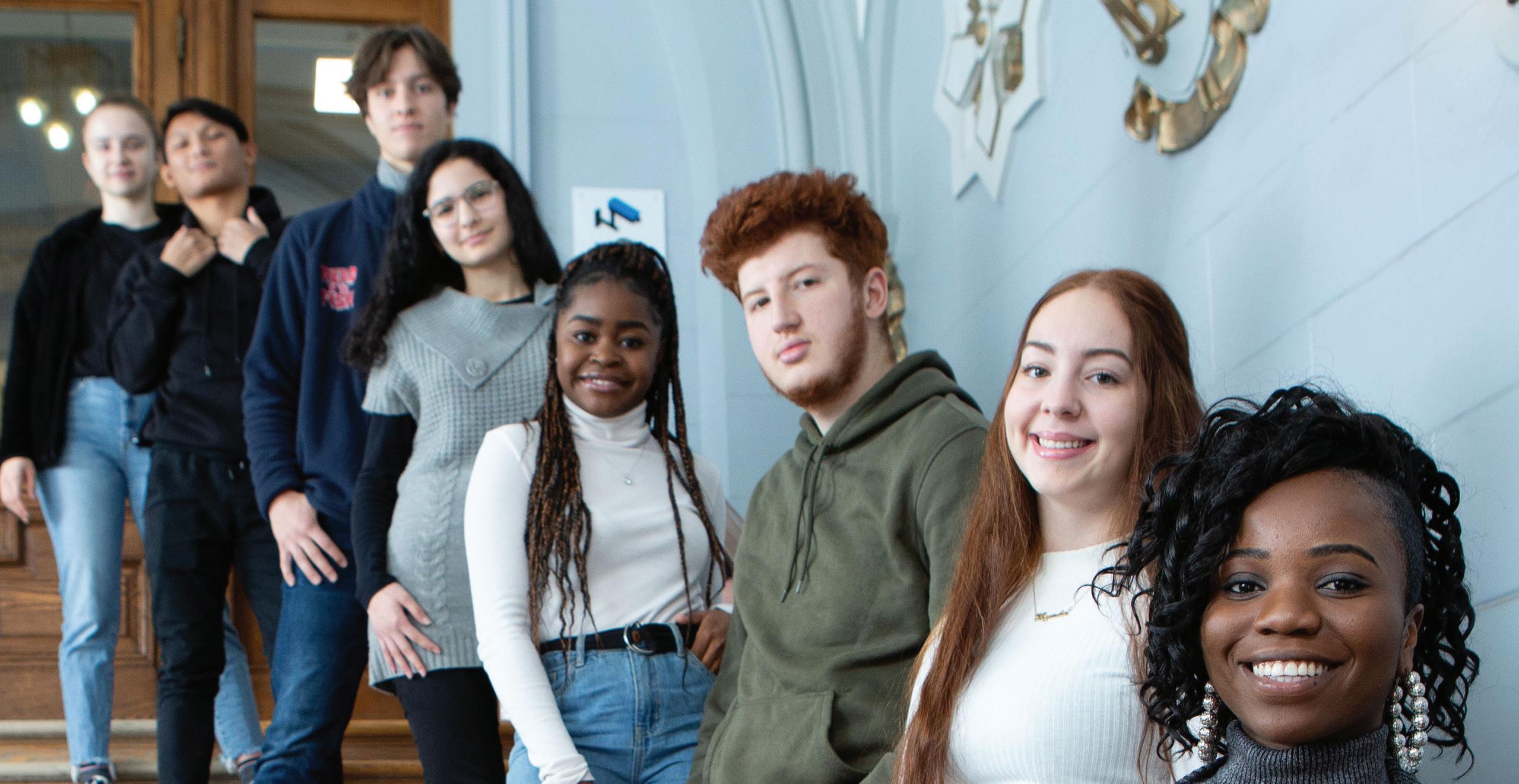
Social Change and Solidarity: This profile will give you an overview of Social Science disciplines related to international development through experiential learning. In the second year, students choose between the global stream which includes a three-week trip to a community in the Global South, or the local stream in which they participate in a hands-on project with a local organization.
Society and Technology: This future-looking profile allows you to explore contemporary cultural, social and policy issues related to technology through a wide range of social science disciplines.
Frequently Asked Questions
Will the profile of study I choose be recognized?
All eight profiles in Social Science lead to a DEC in Social Science. Each profile offers a unique path through the broader program. The value of a profile is being part of a small learning community, making friends and focusing on topics that are of interest to you.
Do I have to be in Law, Society & Justice to study law at university or in the Psychology Profile to be admitted to psychology at university?
No. All of the Social Science profiles provide suitable preparation for these university programs.
How many courses would I take each semester?
The normal course load is seven or eight courses per semester in Social Science. A minimum of four courses is required to be a fulltime student.
What will I get from studying Social Science?
■ Great preparation for university
■ An understanding of what it means to be human in a world that is constantly changing
■ Better communication skills
■ Critical thinking skills
■ Ability to research
■ Increased awareness and understanding of the processes of change in your community and the world at large
■ An understanding of how the world works
■ Ability to identify root causes of societal problems and discover more effective solutions
Why are there four methods courses?
Students at the university level are expected to have a basic understanding and ability to critically evaluate research using scientific methods. Whether or not students plan to go to university, learning to critically evaluate information using the scientific method is important. Methods courses help students develop the skills to make reasoned decisions in their personal and professional lives.
Students must take and pass the four following methods courses to obtain a DEC in Social Science:
■ Introduction to Social Science Research
■ Qualitative Methods
■ Quantitative Analysis
■ Integrative Seminar
Can I take College maths, even if I do not take the Sec V Mathematics: Science Option or Technical and Scientific Option? No. You need the appropriate prerequisites in order to take college-level mathematics. However, students lacking prerequisites may have the opportunity to take remedial high school-level mathematics courses.
Do I need to be in the Commerce Profile to take Calculus I, Calculus II and Linear Algebra?
There are two profiles that include mathematics as compulsory courses in their grid: Commerce and International Business Studies. The General Studies Profile allows students to take one, two, or three of the mathematics courses.
While it is possible to take some mathematics courses in other profiles, access is limited by the various constraints of courses included in the profiles. See the profile charts for the specific maths options.
Please ensure that you verify the prerequisites required by your university program of choice so you can take all the required courses at Dawson before applying. In the case where your profile of choice limits access to those courses, you may take them outside of the program, during a regular or a summer semester.
SOCIAL SCIENCE 2 YEARS 300.A1 SOCIAL SCIENCE Commerce 300.GB Law, Society and Justice 300.GK Society and Technology 300.GS International Business Studies 300.GH Social Change and Solidarity 300.GM General Studies 300.GA Education, Family and Childhood 300.GE Psychology 300.GP The information contained in this document was accurate and complete at the time of printing. 3040 Sherbrooke St. West Montreal, Quebec H3Z 1A4 dawsoncollege.qc.ca
33 32
GENERAL STUDIES
What will you learn?
■ To explain social phenomena and human behaviour using theories, perspectives, and approaches specific to the disciplines of social science
■ To integrate methodologies, perspectives, and approaches of inclusion, equity, diversity, decolonization, and antioppression when analyzing social phenomena and human behaviour
■ To conduct an interdisciplinary, individual research project
■ To explain how differences in social identities and world views could influence opinions, beliefs, values, and social interactions
■ To integrate an understanding of the root causes of environmental crises to take actions both locally and globally
Where will this profile lead you?
A DEC in Social Science offers solid preparation for a wide variety of university degrees in the Social Sciences as well as in fields such as Education, Law and Humanities. Following university, graduates may pursue careers in social service, education, law, governmental and non-governmental organizations, business, the economic sector, finance and psychology. A Social Science DEC signifies to future employers that the individual has acquired a vast number of skills and knowledge that are easily transferable to a multitude of industries.
www.dawsoncollege.qc.ca/general-studies
If you would like to:
Have maximum flexibility in choosing courses in the Social Science Program
Investigate ethical, social and legal issues
Dive into the history and foundations of human civilizations
Deepen your knowledge of human psychology
Understand political and economic systems
Get to know different peoples, cultures and religions
Take up to three university prerequisite courses out of five options (mathematics and biology)
Gain skills and knowledge from a variety of social science subjects
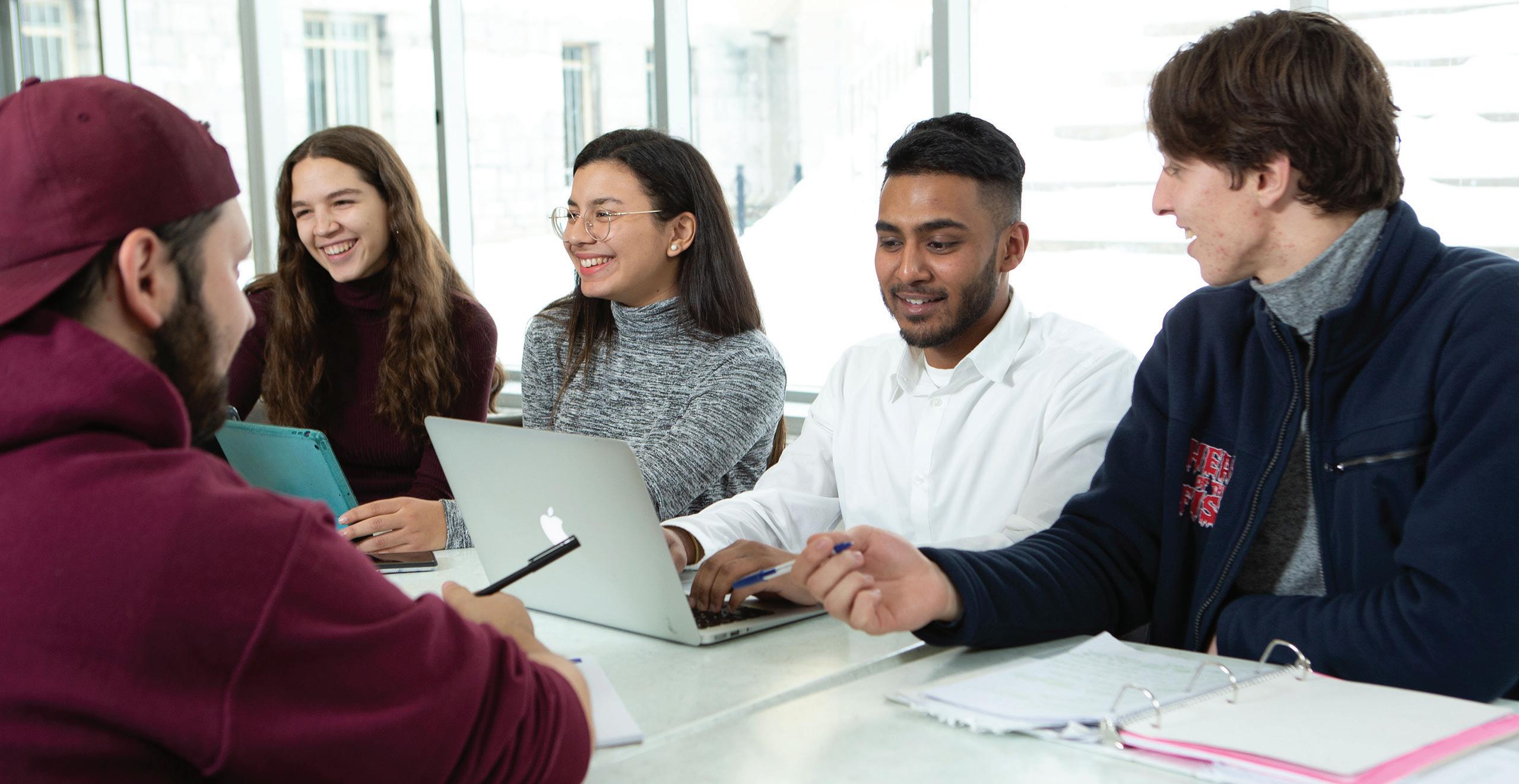
Learn to apply the scientific method and how to collect and analyze data
Then the General Studies Profile could be for you.
Freedom to choose courses is why many students choose the General Studies Profile. Dawson’s Social Science Program has 11 social science disciplines and more than 150 teachers who are experts in their field. Students in General Studies forge their own academic path by selecting courses to suit their interests, satisfy their intellectual curiosity or take university prerequisites in biology and math (up to three courses). Students who are undecided about their future studies or career can explore the social sciences by taking introductory and enrichment courses in up to seven different disciplines. Participating in a Learning Community or taking a Certificate are additional ways a student can choose to enhance their learning.
LIST OF SPECIFIC COURSES
What do you need to apply?
■ A Diploma of Secondary Studies (DES) or academic background judged equivalent to the DES
■ Secondary IV Mathematics: Cultural, Social & Technical option 563-404/414
What else should you know?
■ While a DEC in Social Science means you can apply to a wide variety of university programs, graduates must verify that they have completed the required prerequisites before applying. For example, many Commerce programs require mathematics prerequisites
■ The Profile Coordinator organizes social events for students so that they can develop a strong sense of community in the profile
■ Social Science Week happens in the Winter Semester offers the opportunity to learn from distinguished researchers, academics and public personalities
■ You can enhance your learning by taking a certificate in: Decolonization and Indigenization Studies, Environment and Sustainability, Hellenic Studies, Peace Studies, SPACE: Arts and Sciences Certificate and Women’s/ Gender Studies.
Application Deadline
March 1 • November 1
All students must also take General Education courses such as English, French, Humanities and Physical Education, in addition to complementary courses.
1 Term 3
■ Introduction to Social Science Research
■ Choice (2) of compulsory Introductory Social Science discipline
■ Choice (1) of optional Introductory Social Science discipline OR U prerequisite
■ Choice of Qualitative Methods OR Quantitative Analysis
■ Choice (1) of compulsory Introductory Social Science discipline
■ Choice (1) of Analysis
■ Choice (1) of optional Introductory Social Science discipline OR U prerequisite
■ Choice of Qualitative Methods OR Quantitative Analysis
■ Choice (1) of optional Introductory Social Science discipline
■ Choice (1) of Analysis
■ Choice (1) of Thematic Issues OR U pre- requisite
■ Integrative Seminar
■ Choice (1) of optional Introductory Social Science discipline OR U prerequisite
■ Choice (1) of Analysis
■ Choice (1) of Observation*
DEC IN SOCIAL SCIENCE
Social Science 2 YEARS
My program gave me the chance to sample a variety of subjects. Now I know what to focus my studies on in the future.
“
300.GA The information contained in this document was accurate and complete at the time of printing. * The Observation course is not taken by the students who have taken and passed Calculus I: Differential Calculus for Social Sciences in previous terms.
St. West
1A4
— Faisal H.
3040 Sherbrooke
Montreal, Quebec H3Z
dawsoncollege.qc.ca
Term
YEAR 1 YEAR 2
Term 2 Term 4
35 34
www.dawsoncollege.qc.ca/commerce
If you would like to:
Learn the essential areas of business
Be well prepared to study Commerce or Business
Administration at the university level
Know how to manage business enterprises
Develop new ideas and work in teams
Apply ideas learned in class to real-life situations
Gain skills and knowledge from a variety of Social Science subjects
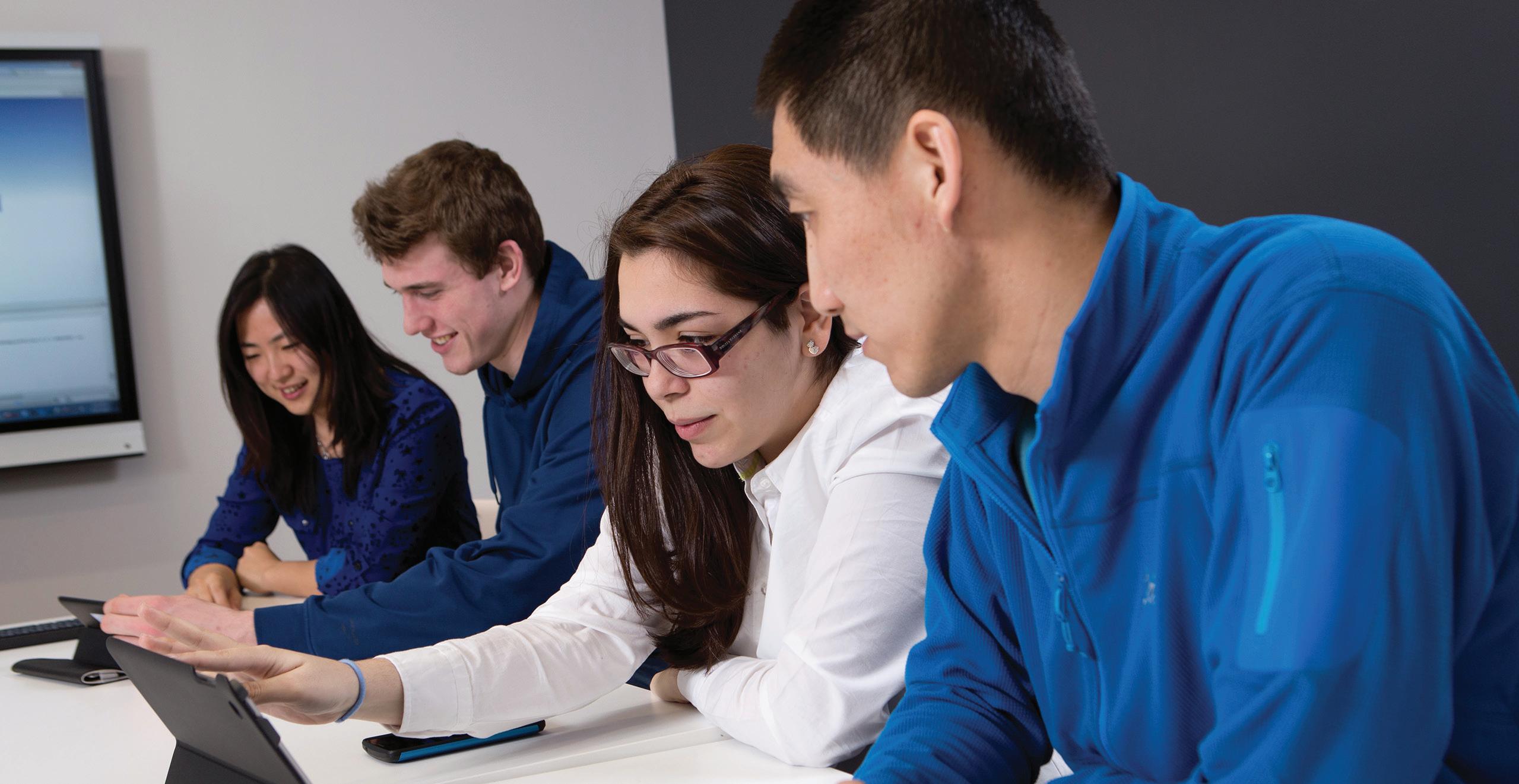
Learn to apply the scientific method and how to collect and analyze data
Then the Commerce Profile could be for you.
Choosing this profile allows you to explore a variety of Social Science subjects while learning the basics of business. The mathematics courses give you the prerequisites to apply to most university business programs in the country. Students journey through this profile together as part of a small community.
What will you learn?
The Commerce Profile is part of the Social Science Program and encompasses all of the knowledge and skills of that program. Its distinctiveness comes from the particular themes, topics and lens of analysis related to business, economics and mathematics.
Commerce Profile students will learn to:
■ Recognize the significant role the Social Sciences play in understanding the business environment
■ Use mathematical analysis to guide business decisions
■ Analyze business problems, assess alternatives and propose solutions
■ Apply relevant economic, business and marketing concepts to business problems
■ Understand how micro and macro factors affect business
■ Clearly and effectively communicate oral and written arguments and ideas
■ To explain social phenomena and human behaviour using theories, perspectives, and approaches specific to the disciplines of social science
■ To integrate methodologies, perspectives, and approaches of inclusion, equity, diversity, decolonization, and antioppression when analyzing social phenomena and human behaviour
■ To conduct an interdisciplinary, individual research project
■ To explain how differences in social identities and world views could influence opinions, beliefs, values, and social interactions
■ To integrate an understanding of the root causes of environmental crises to take actions both locally and globally
Where will this profile lead you?
Like all Social Science profiles, Commerce leads to a DEC in Social Science, which qualifies you for most university programs in the social sciences or humanities. The Commerce Profile is designed for students interested in pursuing university studies in accounting, marketing, finance and economics. Following university, graduates may pursue careers in human resources, management, advertising, entrepreneurship and public administration.
What do you need to apply?
■ A Diploma of Secondary Studies (DES) or academic background judged equivalent to the DES
■ Sec V Mathematics – Technical & Scientific option or Science option 564-506 or 565-506
What else should you know?
■ Students explore various business issues by working on case studies together
■ A variety of industry expert guest speakers share their knowledge and experience with students
■ Every year, academic advisors from HEC, John Molson School of Business at Concordia University and the Desautels Faculty of Management at McGill University are invited to Dawson to speak about their business and management programs
Application Deadline
March 1 • November 1
LIST OF SPECIFIC COURSES
All students must also take General Education courses such as English, French, Humanities and Physical Education, in addition to complementary courses.
YEAR 1 YEAR 2
Term 1 Term 3
■ Introduction to Social Science Research
■ Introduction to Economics
■ Introduction to Business
■ Calculus I: Differential Calculus for Social Sciences
■ Quantitative Analysis for Commerce
■ Macroeconomics: Commerce
■ Language of Business: Accounting
■ Linear Algebra and Vector Geometry for Social Sciences
Term 2 Term 4
■ Qualitative Methods
■ Introduction to Global History
■ Introduction to Psychology
■ Calculus II: Integral Calculus for Social Sciences
■ Integrative Seminar
■ Choice (1) of optional Introductory Social Science discipline
■ Choice of Microeconomics OR Application in Marketing
DEC IN SOCIAL SCIENCE
Social Science
COMMERCE
2 YEARS
“
300.GB The information contained in this document was accurate and complete at the time of printing.
After learning about many spheres of commerce including marketing, economics, statistics and business, I was able to understand my interests and make decisions about my future direction.
—
Manelle S.
3040 Sherbrooke St. West Montreal, Quebec H3Z 1A4 dawsoncollege.qc.ca
37 36
EDUCATION, FAMILY AND CHILDHOOD
What will you learn?
As a profile, Education, Family and Childhood encompasses all of the knowledge and skills of the Social Science Program. Its distinctiveness comes from the particular themes, topics and lens of analysis related to the education, care and development of children.
Students in Education, Family and Childhood will learn about:
■ The key stages of child and youth development
■ How different cultures experience motherhood, fatherhood and parenthood
■ How the institution of family developed in different parts of the world and how social, political, and economic forces shape the experience of family
■ How the education system and public policy impact society and each of us as individuals
■ What it’s actually like to work with children and youth in fieldwork settings
■ To explain social phenomena and human behaviour using theories, perspectives, and approaches specific to the disciplines of social science
■ To integrate methodologies, perspectives, and approaches of inclusion, equity, diversity, decolonization, and antioppression when analyzing social phenomena and human behaviour
■ To conduct an interdisciplinary, individual research project
2 YEARS
www.dawsoncollege.qc.ca/education-family-childhood
If you would like to:
Learn about how culture, history, public policies and psychology shape and impact child and youth development
Pursue a career in education, social work, psychology or other child and youth-related fields
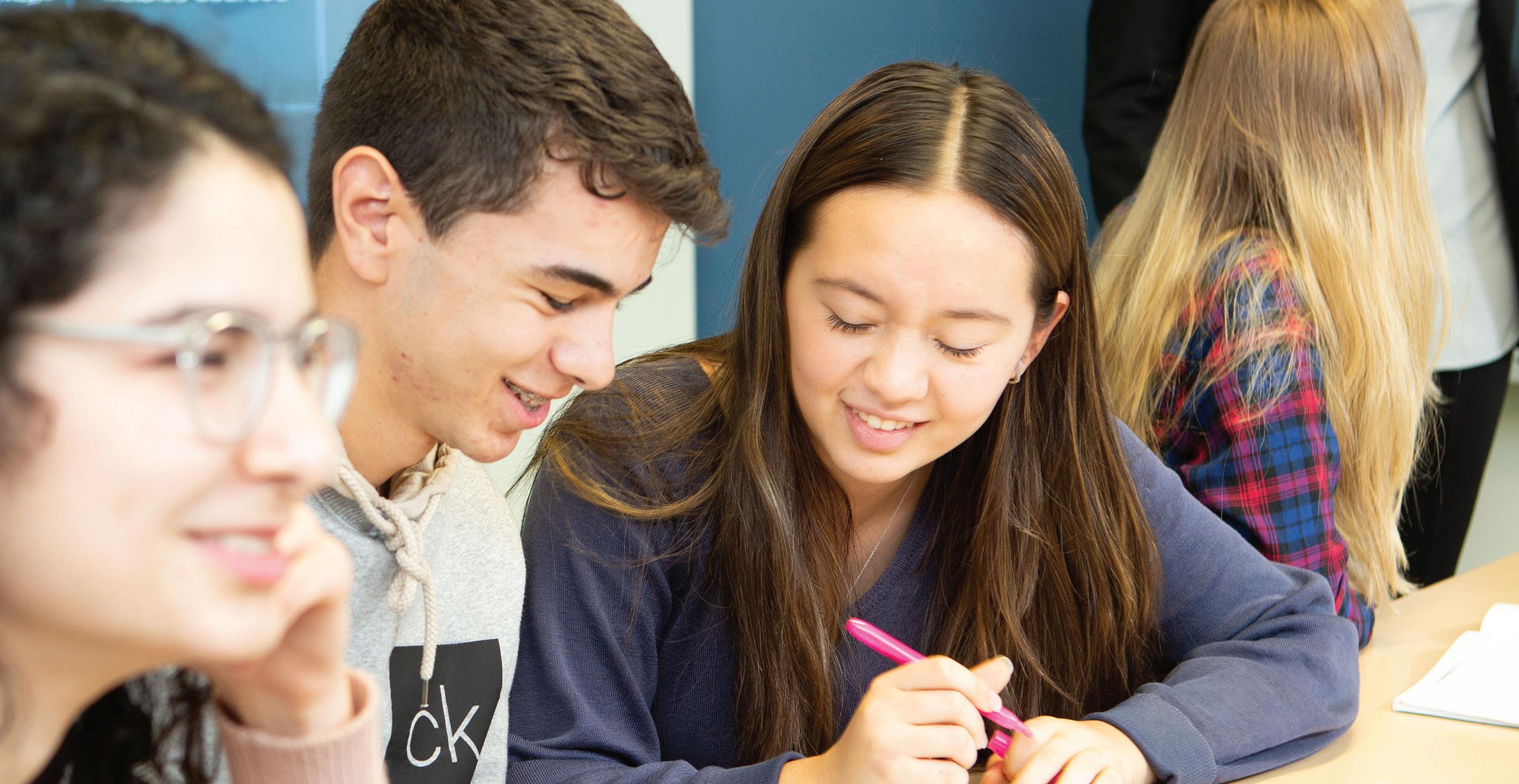
Gain hands-on experience working with children and young people
Deepen your knowledge of different family styles and structures
Make a positive contribution to your community through fieldwork
Work with children and youth
Then the Education, Family and Childhood Profile could be for you.
If you are contemplating a career in education, social work or psychology, the Education, Family and Childhood Profile of Dawson’s Social Science Program is designed especially for you! It could also interest students who would like to pursue other fields of work related to health and social services for children and families. We take a multidisciplinary approach to studying and understanding the social, psychological, and cultural development of children from birth to adulthood. Students will learn how society, community, education and public policy influence the structure of the family and the development of children. In addition, this profile has a fieldwork component in the second and fourth terms in collaboration with schools, community centers and daycares around Dawson and all of Montreal.
■ To explain how differences in social identities and world views could influence opinions, beliefs, values, and social interactions
■ To integrate an understanding of the root causes of environmental crises to take actions both locally and globally
Where will this profile lead you?
Like all Social Science profiles, Education, Family and Childhood leads to a DEC in Social Science, which qualifies you for most university programs in the social sciences or humanities. The Education, Family and Childhood Profile is especially designed for students pursuing university studies in Education, Social Work or Psychology. Following university, graduates may pursue careers in teaching, family and social services, counselling, policy analysis, public health and research.
What do you need to apply?
■ A Diploma of Secondary Studies (DES) or academic background judged equivalent to the DES
■ Sec IV Mathematics: Cultural, Social & Technical option 563-404/414
What else should you know?
■ Two courses include a fieldwork opportunity in the second and final semesters. Students who opt to participate in the fieldwork component can be placed in school, youth group or hospital settings in order to observe professionals and develop skills related to working with children and teenagers
■ Students must pass a mandatory police background check in the first semester to be placed in a fieldwork setting
Application Deadline
March 1 • November 1
LIST OF SPECIFIC COURSES
All students must also take General Education courses such as English, French, Humanities and Physical Education, in addition to complementary courses.
YEAR 1 YEAR 2
Term 1 Term 3
■ Introduction to Social Science Research
■ Introduction to Psychology
■ Introduction to Global History
■ Introduction to Sociology
■ Quantitative Analysis
■ Introduction to Economics
■ Sociology of Education
■ Thematic Issues
Term 2 Term 4
■ Qualitative Methods
■ Introduction to Anthropology
■ Choice of Introduction to Geography
OR Introduction to Religious Studies
■ The Developing Child
* 7 Calculus I: Differential Calculus for Social Sciences is not included as an option in this profile.
■ Integrative Seminar
■ Anthropology of Parenthood
■ Social Constructs in History: The Family
■ Choice (1) of optional Introductory Social Science discipline OR U prerequisite*
DEC IN SOCIAL SCIENCE
Social Science
“
This profile showed me what working with children would be like and confirmed this is what I want to do with my life.
300.GE The information contained in this document was accurate and complete at the time of printing. 3040 Sherbrooke St. West Montreal, Quebec H3Z 1A4 dawsoncollege.qc.ca
— Sabrina M.
39 38
www.dawsoncollege.qc.ca/international-business-studies
If you would like to:
Understand the world of business and learn about the global needs and market opportunities
Discover the effects of globalization and international trade
Explore real business cases and investigate strategies and the dynamics of competition
Research international markets and negotiation between cultures and countries
Gain skills and knowledge from a variety of social science subjects
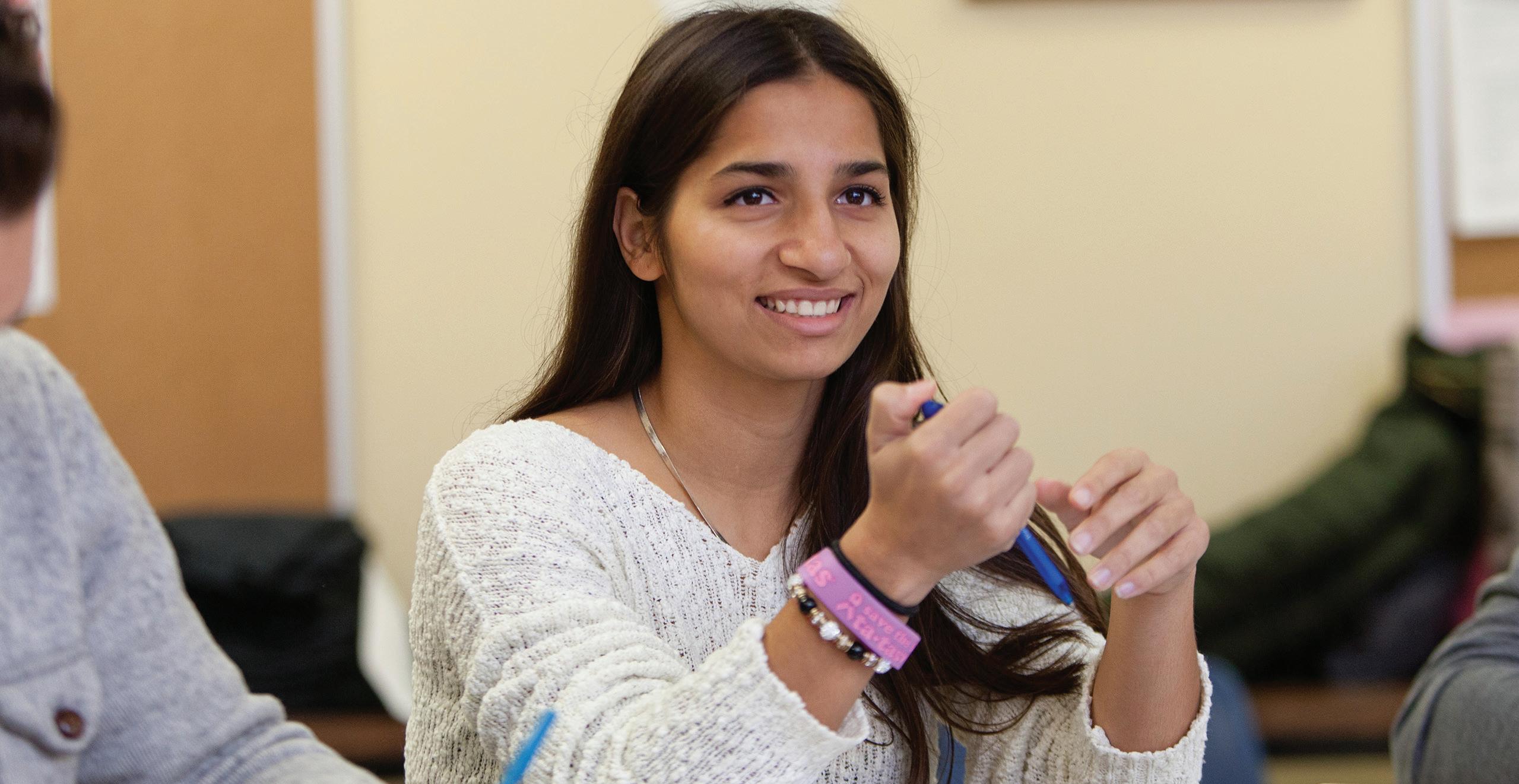
Learn to apply the scientific method and how to collect and analyze data
Then the International Business Studies Profile could be for you.
2 YEARS
The International Business Studies Profile grounds your exploration of social sciences in the fields of business and globalization and gives you the mathematics classes you need to pursue business studies at the university level. Students explore a variety of issues and choose between anthropology and geography to develop a better understanding and sensitivity towards different cultures. The program includes courses in economics, history, psychology, and business.
What will you learn?
The International Business Profile is part of the Social Science Program, and encompasses the knowledge and skills of that program. Its distinctiveness comes from the particular themes, topics and lens of analysis related to the fields of business and globalization.
Students in International Business Studies learn about:
■ The positive and negative effects of globalization on the nation-states of the world
■ The role and activities of international organizations such as the United Nations, The North Atlantic Treaty Organization (NATO), the Organisation for Economic Co-operation and Development (OECD) as well as nongovernmental organizations
■ The political economy of trade agreements such as the Canada-United States-Mexico Agreement (CUSMA) and the role of international organizations such as the International Monetary Fund (IMF) and the World Trade Organization (WTO)
■ Concepts and theories of international economics such as patterns of international trade and investment
■ Advanced mathematical skills used in the analysis, understanding and resolution of issues
■ To conduct an interdisciplinary, individual research project
■ To explain social phenomena and human behaviour using theories, perspectives, and approaches specific to the disciplines of social science
■ To integrate methodologies, perspectives, and approaches of inclusion, equity, diversity, decolonization, and antioppression when analyzing social phenomena and human behaviour
■ To explain how differences in social identities and world views could influence opinions, beliefs, values, and social interactions
■ To integrate an understanding of the root causes of environmental crises to take actions both locally and globally
Where will this profile lead you?
Like all Social Science profiles, International Business leads to a DEC in Social Science, which qualifies you for most university programs in the social sciences or humanities. The International Business Studies Profile is designed for students interested in pursuing university studies in Business Administration, Accounting, Marketing, Management, International Relations, Development, Economics, Industrial Relations and Communications. Following university, graduates may pursue careers in management, marketing, accounting, corporate finance, consultancy and human resources.
What do you need to apply?
■ A Diploma of Secondary Studies (DES) or academic background judged equivalent to the DES
■ Sec V Mathematics: Technical & Scientific option or Science option 564-506 or 565-506
What else should you know?
The International Business Studies Profile has two obligatory mathematics courses: Calculus I and Linear Algebra. Students may take a third optional mathematics class, Calculus II, which is a prerequisite for Management and Commerce programs at some universities.
Students are invited to enter the annual Bourstad stock market competition every year with support from teachers. The profile also provides engaging forums for students to learn from and interact with guest speakers.
Application Deadline
March 1 • November 1
LIST OF SPECIFIC COURSES
All students must also take General Education courses such as English, French, Humanities and Physical Education, in addition to complementary courses.
YEAR 1
Term 1
■ Introduction to Social Science Research
■ Introduction to Economics
■ Introduction to Business
■ Calculus I: Differential Calculus for Social Sciences
Term 2
■ Quantitative Analysis
■ Introduction to Psychology
■ Choice of Introduction to Anthropology or Introduction to Geography
■ Linear Algebra and Vector Geometry for Social Sciences
YEAR 2
Term 3
■ Qualitative Methods
■ Introduction to Global History
■ Choice of International Business or Geography of the World Economy
■ Choice of Thematic Issues or Calculus II: Integral Calculus for Social Sciences OR Probability and Statistics for Social Sciences
Term 4
■ Integrative Seminar
■ International Trade and Commercial Policy
■ Choice (1) of Analysis
3040 Sherbrooke St. West Montreal, Quebec H3Z 1A4 dawsoncollege.qc.ca
DEC IN SOCIAL SCIENCE
Social Science
INTERNATIONAL BUSINESS STUDIES
This profile gave me knowledge about the economy and business in general. I liked the small program size and relevant courses.
“
300.GH The information contained in this document was accurate and complete at the time of printing.
— Ekaterina P.
41 40
LAW, SOCIETY AND JUSTICE
What will you learn?
As a profile, Law, Society and Justice encompasses all of the knowledge and skills of the Social Science Program. Its distinctiveness comes from the particular themes, topics and lens of analysis related to justice, crime, law, democracy and politics.
Law, Society and Justice students will learn:
■ Critical thinking
■ Oral communication
■ Debating skills
■ Law and politics in historical and social contexts
■ A sense of civic responsibility and citizenship
■ To explain social phenomena and human behaviour using theories, perspectives, and approaches specific to the disciplines of social science
■ Approaches of inclusion, equity, diversity, decolonization, and anti-oppression when analyzing social phenomena and human behaviour
■ To conduct an interdisciplinary, individual research project
■ To explain how differences in world views could influence values and social interactions
■ To integrate an understanding of the root causes of environmental crises with social scientific analysis
www.dawsoncollege.qc.ca/law-society-justice
If you would like to:
Work on important social problems with highly engaged teachers and peers
Understand the world of law, politics and government
Analyze the connection between the legal system and issues in society
Gain skills and knowledge from a variety of social science subjects
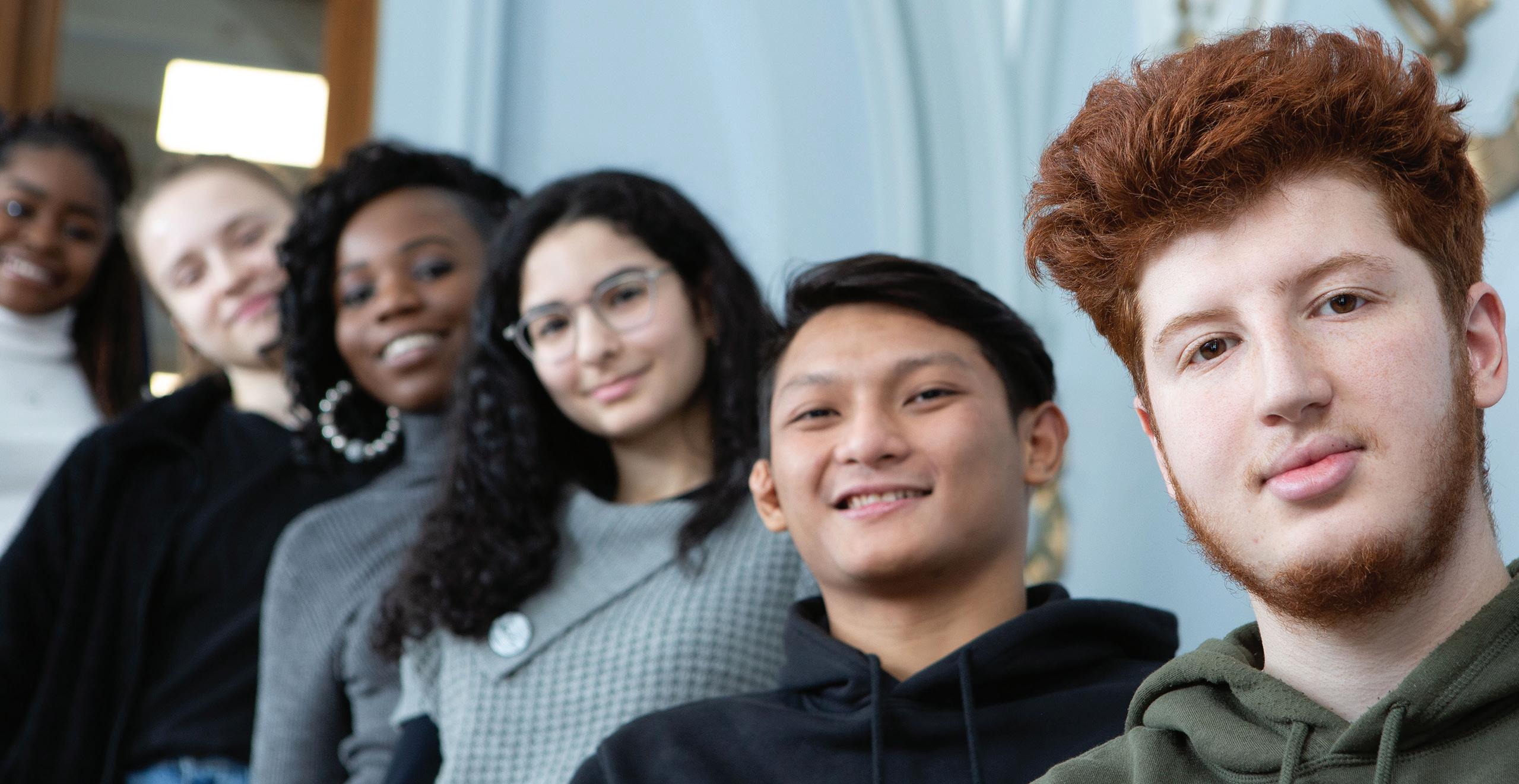
Learn to apply the scientific method and how to collect and analyze data
Then the Law, Society and Justice Profile could be for you.
2 YEARS
Examine the relationship between law and society by applying to Dawson’s highly regarded Law, Society and Justice Profile. Students are part of a community of enthusiastic and hardworking students interested in pursuing careers in law, politics, advocacy and public service. You will meet people serving in government at various levels, lawyers involved in interesting cases and activists working to advance human rights.
This profile will open your eyes to the realities of past and current issues in society and the legal and justice systems both in Canada and internationally.
— Jon M.
Where will this profile lead you?
Like all Social Science profiles, the Law, Society and Justice Profile leads to a DEC in Social Science, which qualifies you for most any university program in the social sciences or humanities. The Law, Society and Justice Profile is designed for students interested in pursuing university studies in Law, Political Science, Social Science and History.
What do you need to apply?
■ A Diploma of Secondary Studies (DES) or academic background judged equivalent to the DES
■ Secondary IV Mathematics: Cultural, Social & Technical option 563-404/414
What else should you know?
You will have the opportunity to visit institutions such as the Supreme Court of Canada, Houses of Parliament and Quebec’s National Assembly. MPs, MNAs and lawyers often come speak to students in the Profile.
While the Law, Society and Justice Profile provides an excellent foundation for studying law at the university level, acceptance into law school is not guaranteed. Most law schools in Canada require a bachelor’s degree to apply.
Application Deadline
March 1 • November 1
LIST OF SPECIFIC COURSES
All students must also take General Education courses such as English, French, Humanities and Physical Education, in addition to complementary courses.
YEAR 1 YEAR 2
Term 1 Term 3
■ Introduction to Social Science Research
■ Introduction to Economics
■ Introduction to Global History
■ Introduction to Sociology
■ Quantitative Analysis
■ Choice of Introduction to Classics
OR Introduction to Philosophy
■ Canadian Democracy
■ Canadian History: Justice and Injustice
Term 2 Term 4
■ Qualitative Methods
■ Introduction to Psychology
■ Introduction to Political Science
■ Thematic Issues
■ Integrative Seminar
■ Choice (1) of optional Introductory Social Science discipline
OR U prerequisite
■ Choice (1) of Analysis
■ Choice of Forensic Psychology
OR Social Justice and the Limits of the Law*
* These courses cannot be taken by students who choose to take Calculus I: Differential Calculus for Social Sciences in Term 4.
3040 Sherbrooke St. West Montreal, Quebec H3Z 1A4 dawsoncollege.qc.ca
was accurate and complete at the time of printing.
DEC IN SOCIAL SCIENCE
Social Science
“
300.GK The information contained in this
document
43 42
PSYCHOLOGY Social Science
2 YEARS
www.dawsoncollege.qc.ca/psychology
If you would like to:
Understand human behaviour
Learn about the mind and how it functions
Learn about mental health
Research and explore human potential
Gain skills and knowledge from a variety of social science subjects
Learn to apply the scientific method and how to collect and analyze data
Then the Psychology Profile could be for you.
Understanding humans and human potential is at the heart of the social sciences. The Psychology Profile provides a specific focus on human behaviour and the mental, social and cultural processes that shape how humans think, act and feel. Its aim is to understand “what makes humans tick.” The profile delivers courses in a variety of disciplines such as Psychology, Sociology, Biology, Philosophy and Religion.
What will you learn?
■ To adopt a scientific approach to the study of human behaviours
■ To become familiar with concepts and insights related to various areas of psychology
■ To understand the interaction of factors, which influence human behaviours
■ To apply the methods and concepts of psychology to reallife situations
■ To explain social phenomena and human behaviour using theories, perspectives, and approaches specific to the disciplines of social science
■ To integrate methodologies, perspectives, and approaches of inclusion, equity, diversity, decolonization, and antioppression when analyzing social phenomena and human behaviour
■ To conduct an interdisciplinary, individual research project
■ To explain how differences in social identities and world views could influence opinions, beliefs, values, and social interactions
■ To integrate an understanding of the root causes of environmental crises to take actions both locally and globally
Application Deadline
March 1 • November 1
Where will this profile lead you?
Like all Social Science profiles, Psychology leads to a DEC in Social Science, which qualifies you for most university programs in the social sciences or humanities. The Psychology Profile is designed for students interested in Psychology, although graduates can pursue university studies in a wide range of fields including Business and Marketing, Education, Counselling, Human Resources and Law.
What do you need to apply?
■ A Diploma of Secondary Studies (DES) or academic background judged equivalent to the DES
■ Secondary IV Mathematics: Cultural, Social & Technical option 563-404/414
What else should you know?
■ Students get to experience hands-on learning at the General Psychology Laboratory
■ Extra-curricular activities welcome students into a community of mutual support
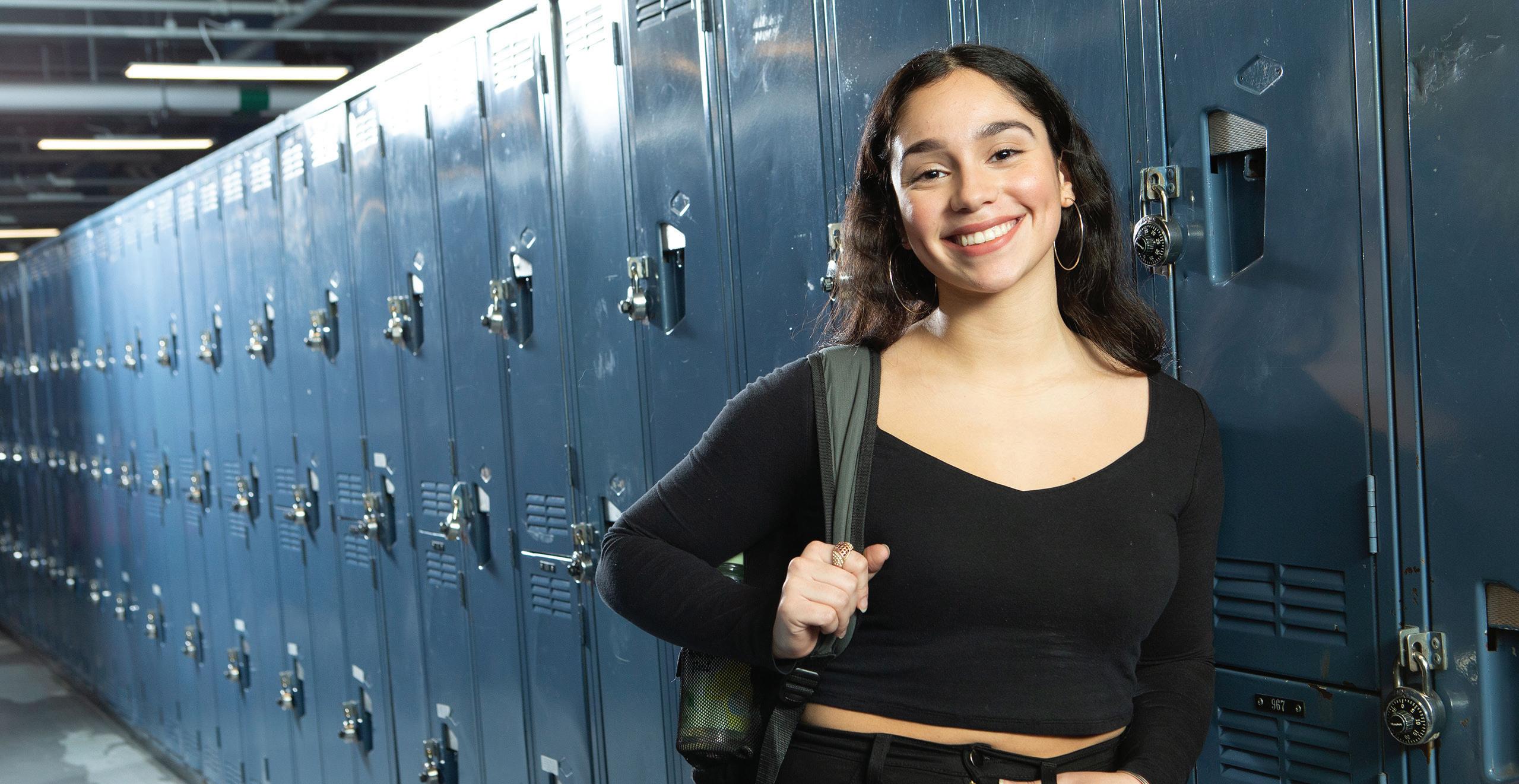
■ The Psychology Profile Students’ Committee organizes a series of student-led activities such as fundraisers and study groups, and has established a successful presence and community life on social media
■ Speakers of international and national renown such as Psychology experts (researchers and practitioners) and medical professionals are regular guests
■ Opportunities for students to do real research with Dawson’s Neuroscience Research Group
■ The Psychology Profile Award is presented to graduating students who have exceptional grade averages and have demonstrated citizenship and community service related to the field of mental health and well-being
LIST OF SPECIFIC COURSES
All students must also take General Education courses such as English, French, Humanities and Physical Education, in addition to complementary courses.
■ Introduction to Social Science Research
■ Introduction to Psychology
■ Behavioural Biology
■ Choice of Introduction to Philosophy OR Introduction to Religious Studies
■ Qualitative Methods
■ Introduction to Global History
■ Choice of Sexuality & Society OR Psychology, Religion, and Spirituality
■ Choice of Thematic Issues OR Calculus I: Differential Calculus for Social Sciences
Term 2 Term 4
■ Quantitative Analysis
■ Introduction to Economics
■ Introduction to Sociology
■ Choice of Biological Psychology OR Cognitive Psychology
■ Integrative Seminar
■ Choice (1) of optional Introductory Social Science discipline OR U prerequisite*
■ Choice (1) of Analysis
■ Choice of Psychological Disorders OR Social Psychology
DEC IN SOCIAL SCIENCE
The Psychology Profile helped me a lot with my logical thinking and problem-solving skills, as well as understanding the behaviour of others. “
300.GP The information contained in this document was accurate and complete at the time of printing.
— Graduate student
St. West
H3Z 1A4
3040 Sherbrooke
Montreal, Quebec
dawsoncollege.qc.ca
YEAR
YEAR
1
2 Term 1 Term 3
45 44
* This course is not taken by the students who have taken and passed Differential Calculus in previous terms.
SOCIAL CHANGE AND SOLIDARITY
What will you learn?
■ To develop academic skills: writing, critical thinking, systems thinking and communication skills
■ To develop soft skills acquired through experiential learning: empathy, relationship-building, openness
■ To feel a sense of global social responsibility
■ To integrate experiential knowledge into your studies
■ To contribute to local and global change
■ To develop Spanish communication skills (in the global stream)
■ To explain social phenomena and human behaviour using theories, perspectives, and approaches specific to the disciplines of social science
■ To integrate methodologies, perspectives, and approaches of inclusion, equity, diversity, decolonization, and antioppression when analyzing social phenomena and human behaviour
■ To conduct an interdisciplinary, individual research project
■ To explain how differences in social identities and world views could influence opinions, beliefs, values, and social interactions
■ To integrate an understanding of the root causes of environmental crises to take actions both locally and globally
Where will this program lead you?
2 YEARS
www.dawsoncollege.qc.ca/social-change-solidarity
If you would like to:
Gain knowledge and skills to understand the root causes of inequality and injustice
Deepen your awareness of social justice issues locally and globally, including colonialism, racism, climate justice, and other key issues
Develop critical interdisciplinary skills in research, analysis, information literacy, communications, and advocacy
Get inspired by transformative movements for social change, and learn how to act in solidarity with communities both locally and globally
Experience an alternative and hands-on education that addresses real-world issues beyond the classroom
Become part of a vibrant community and network of scholars and change-makers
Then the Social Change and Solidarity Profile could be for you.
This reimagined profile is part of the legacy of the North South Studies profile that was in place at Dawson for the last 30 years.
Be part of a small and engaged community while you make lifelong friendships, learn and work for social and environmental justice. The Social Change and Solidarity profile provides a meaningful introduction to the social sciences, giving students the theoretical and practical tools to understand and analyze the social, political, economic, and historical contexts of the world around them. We do this by learning beyond the classroom through field trips and hands-on learning. The heart of our program is an experiential learning opportunity in the second year, which includes two options:
■ Students in the global stream go on a three-week trip to a community in the Global South, where they live with a local family, and learn alongside youth and community organizations.
■ Students in the local stream participate in a hands-on, collaborative project with a local community organization or movement.
Like all Social Science profiles, Social Change and Solidarity leads to a DEC in Social Science, which qualifies you for most any university program in the social sciences or humanities. Popular fields of study for Social Change and Solidarity graduates include Community Development, Public Affairs, International Relations and International Development. Many graduates pursue careers in politics and social policy, education, law, journalism, social work, international organizations and relations, human rights, socially responsible business, community outreach work, non-profit and grassroots organizations, community organizing and advocacy.
What do you need to apply?
■ A Diploma of Secondary Studies (DES) or academic background judged equivalent to the DES
■ Secondary IV Mathematics: Cultural, Social & Technical option 563-404/414
What else should you know?
■ The Social Change and Solidarity profile continues with the tradition of the North South Studies profile, a profile that existed for 30 years at Dawson College
■ The experiential learning opportunities – including the global field trip (global stream) or the local community project (local stream) – are key parts of the profile, giving students meaningful, engaged, and transformative experiences
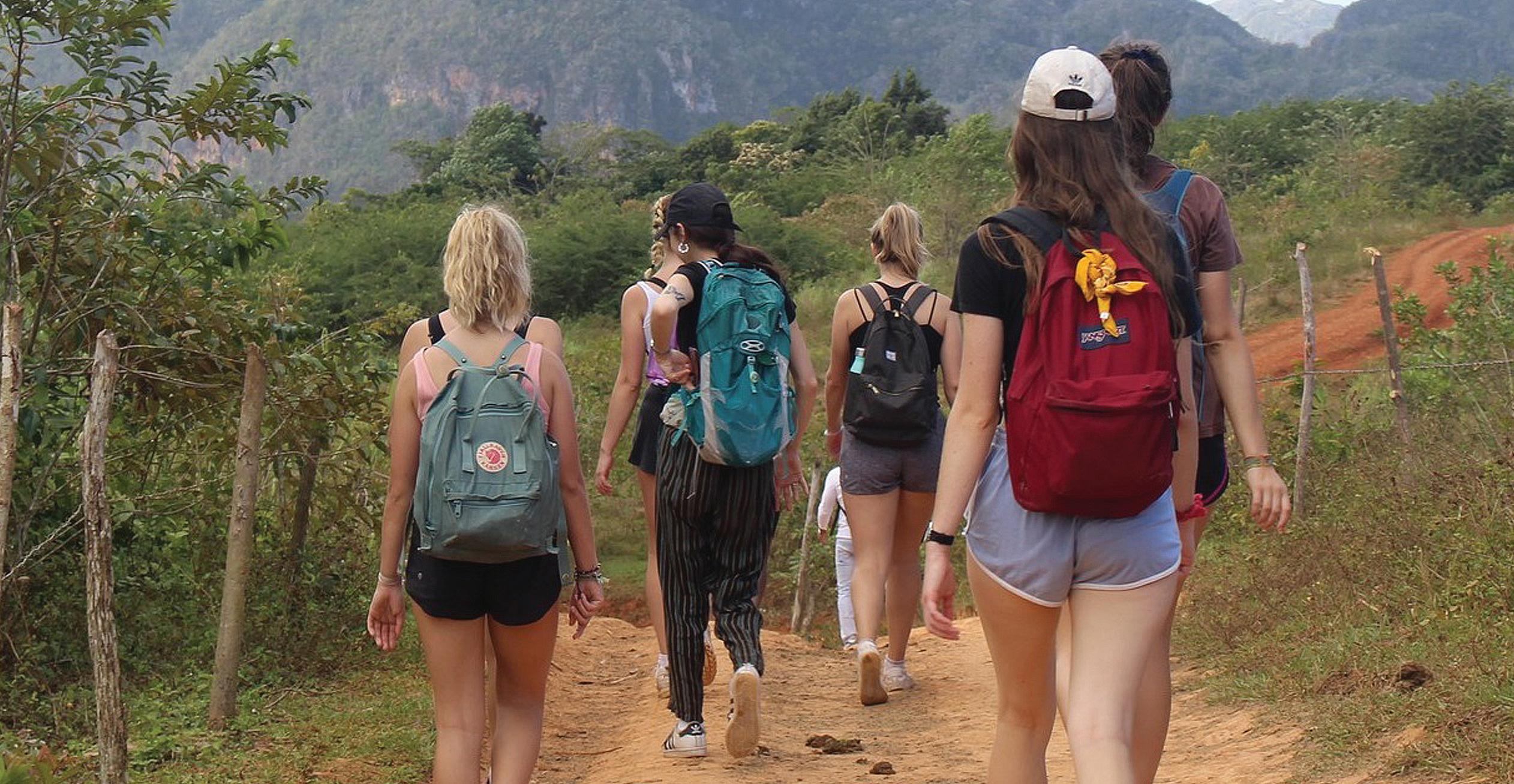
■ Social Change and Solidarity students have access to a communal space shared with the New School. The eighthfloor space includes a lounge, kitchen, classrooms, and teachers’ offices
■ The profile organizes a regular Friday Seminar where students, teachers and the broader social justice community learn together
Application Deadline
March 1
LIST OF SPECIFIC COURSES
All students must also take General Education courses such as English, French, Humanities and Physical Education, in addition to complementary courses.
YEAR 1
Term 1
■ Introduction to Social Science Research
■ Introduction to Global History
■ Introduction to Geography
■ Introduction to Sociology
Term 2
■ Qualitative Methods
■ Introduction to Psychology
■ Introduction to Political Science
■ Colonization and Decolonization
YEAR 2
Term 3
■ Quantitative Analysis
■ Introduction to Economics
■ Geography of the World Economy
■ Thematic Issues*
Term 4
■ Integrative Seminar
■ Choice (1) of optional Introductory Social Science discipline OR U prerequisite**
■ Choice (1) of Analysis
■ Choice of Solidarity in Action: A local perspective OR Solidarity in Action: A global perspective
* Preparation for the local project or international trip, depending on stream.
** Choice of university prerequisite courses does not include Cal I: Differential Calculus for Social Sciences or Cal II: Integral Calculus for Social Sciences.
DEC IN SOCIAL SCIENCE
Social Science
300.GM The information contained in this document was accurate and complete at the time of printing.
3040 Sherbrooke St. West Montreal, Quebec H3Z 1A4 dawsoncollege.qc.ca
“
By helping me understand and advance issues I care about, this profile motivated me to be a good student and an engaged global citizen.
— Demetrius D.
47 46
SOCIETY AND TECHNOLOGY
What will you learn?
■ To identify the challenges and opportunities technology poses to society, including to health, the environment, the economy, arts and culture, the media and politics
■ To be scientifically and technologically literate, an essential skill for personal empowerment and professional success
■ To increase one’s own autonomy and well-being in relation to technology
■ To understand how science is related to social forces
■ To understand the positive and negative potentials of technology for social justice
■ To explain social phenomena and human behaviour using theories, perspectives, and approaches specific to the disciplines of social science
■ To integrate methodologies, perspectives, and approaches of inclusion, equity, diversity, decolonization, and anti-oppression when analyzing social phenomena and human behaviour
■ To conduct an interdisciplinary, individual research project
■ To explain how differences in social identities and world views could influence opinions, beliefs, values, and social interactions
Where will this program lead you?
www.dawsoncollege.qc.ca/society-and-technology
If you would like to:
Explore the social sciences in an exciting new way
Discover the social impact of technology through hands-on projects
Look toward the future and better understand the rapid changes in our world
Develop scientific and technological literacy essential for success in a wide range of careers
Study how technology is disrupting culture, society and policy
Connect with the Artificial Intelligence community at Dawson and in Montreal
Encounter the Montreal high-tech ecosystem
Learn to apply the scientific method and how to collect and analyze data
Then the Society and Technology Profile could be for you.
2 YEARS
What does the rapid advance of science and technology mean for our world, and for your future in it? This unique profile offers a broad education in the social sciences designed to help you better understand, contribute to, and succeed in a world profoundly shaped by technology. Choose from a variety of cutting edge, innovative courses in a wide range of disciplines and develop an understanding of science and technology that is increasingly in demand as the world strives to safely and justly take advantage of technological progress.
The Society and Technology Profile is designed for students interested in pursuing university studies in any field in the social sciences or humanities, such as Urban Planning, Sociology, Data Science, Geography, Arts, Commerce, Communication Studies, Political Science, Philosophy, Education and more.
Like all Social Science profiles, Society and Technology leads to a DEC in Social Science, which qualifies you for most university programs in the social sciences or humanities. Following university, graduates may pursue careers in a wide range of fields for which understanding the social impact of science and technology is increasingly in demand. These include advocacy and public policy for health, the environment, consumer protection and data ethics; journalism and communications; education; law; urban planning; user design; international development; museum management; and library and information science.
What else should you know?
■ Great option for students who are not yet sure about their future studies or career path
■ Taking advantage of Montreal’s status as a tech industry hub, the profile offers students real-world exposure to the intersection of technology and social issues through field trips to local tech companies and technology conferences.
■ Students can enjoy a vibrant profile community and extracurricular life through the profile’s FutureVisions series, which features engaging talks, films and discussions on the promise and peril of technology for the world of tomorrow.
■ Society and Technology students can choose courses leading to a certificate in SPACE (Sciences Participating in Arts and Culture in Education), a student enrichment initiative connecting the arts, sciences, and social sciences.
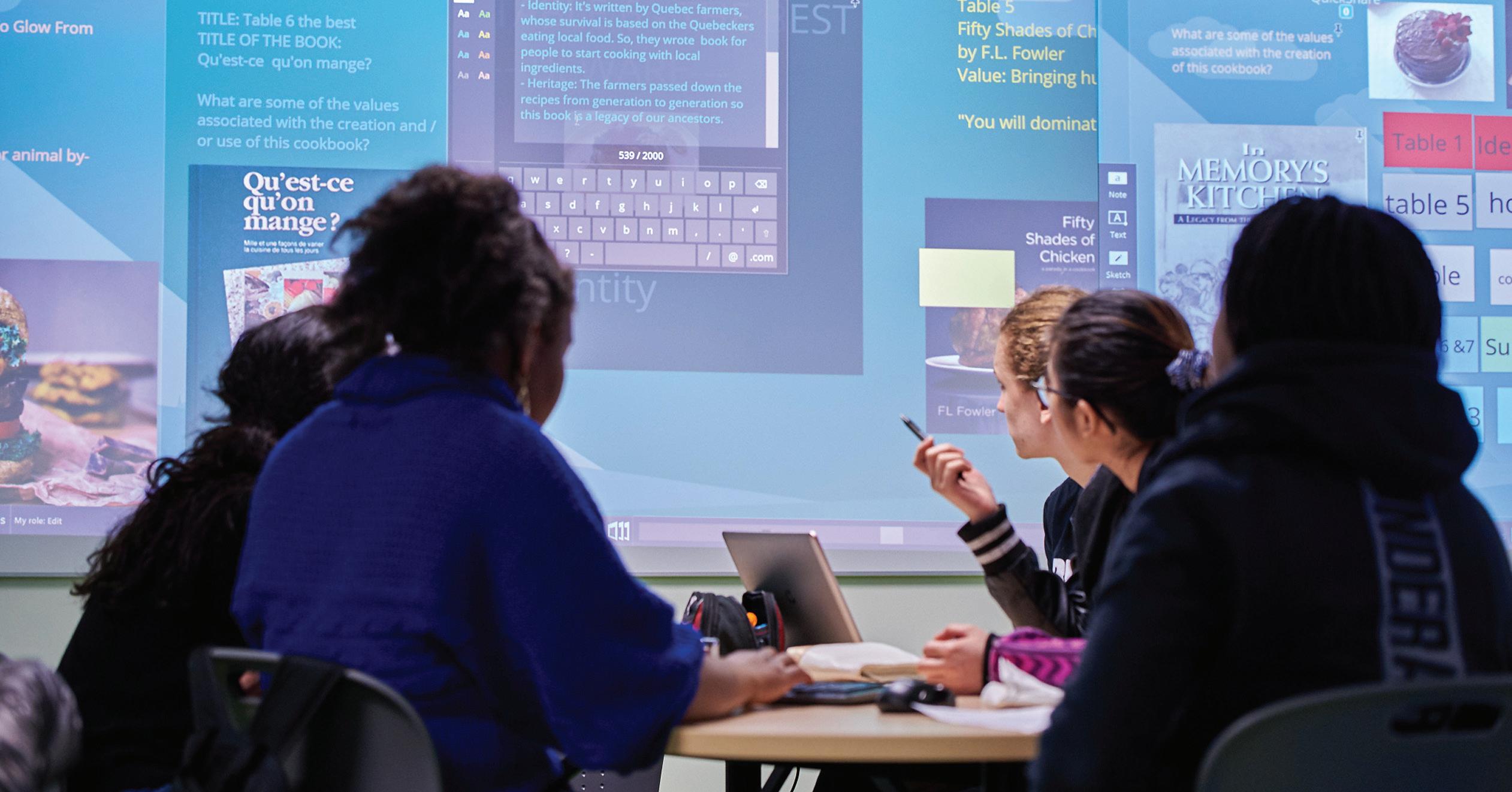
■ Other certificates available to profile students include Environment and Sustainability, Decolonization and Indigenization Studies, Peace Studies and Women’s and Gender Studies.
■ Students have many choices as they progress in the program
■ You do not need to know how to use technology or be a programmer or coder
■ You can take one math or biology course, which may be required as prerequisites for commerce and other programs at university, as part of your program
■ You may take further math courses outside of the program through Dawson’s Continuing Education
Application Deadline
March 1
LIST OF SPECIFIC COURSES
All students must also take General Education courses such as English, French, Humanities and Physical Education, in addition to complementary courses.
YEAR 1
Term 1
■ Introduction to Social Science Research
■ Introduction to Psychology
■ Introduction to Global History
■ Introduction to Political Science
Term 2
■ Quantitative Analysis
■ Introduction to Economics
■ Choice of Introduction to Geography OR Introduction to Philosophy
■ History of Science and Technology
YEAR 2
Term 3
■ Qualitative Methods
■ Thematic Issues
■ Choice of Introduction to Anthropology OR Introduction to Religious Studies
What do you need to apply?
■ A Diploma of Secondary Studies (DES) or academic background judged equivalent to the DES
■ Secondary IV Mathematics: Cultural, Social & Technical option 563-404/414
■ Choice of Technology and Environment OR Human and Machine (based on Term 2 Intro choice)
Term 4
■ Integrative Seminar
■ Choice (1) of optional Introductory Social Science discipline OR U prerequisite
■ Choice of Material Culture in a Digital Age OR Tech Gods (based on Term 3 Intro choice)
■ Choice of Data Story Telling OR The Economics of Public Policy*
* These courses cannot be taken by students who choose to take Calculus I: Differential Calculus for Social Sciences in Term 4.
DEC IN SOCIAL SCIENCE
Social Science
“
Students in this profile will be well equipped for many careers where understanding the social impact of science and technology is in great demand.
300.GS The information contained in this document was accurate and complete at the time of printing. 3040 Sherbrooke St. West Montreal, Quebec H3Z 1A4 dawsoncollege.qc.ca
— Brian Redekopp, Society and Technology Profile Coordinator
49 48
www.dawsoncollege.qc.ca/arts-literature-and-communication
Profiles
Arts and Culture This is the “buffet” profile of Arts, Literature and Communication where you can sample from a wide variety of courses, including Music, Theatre and Journalism.
Cinema Communications Look at media differently, be exposed to the best films, television and media works in history from all over the world and learn what makes a film or media project great.
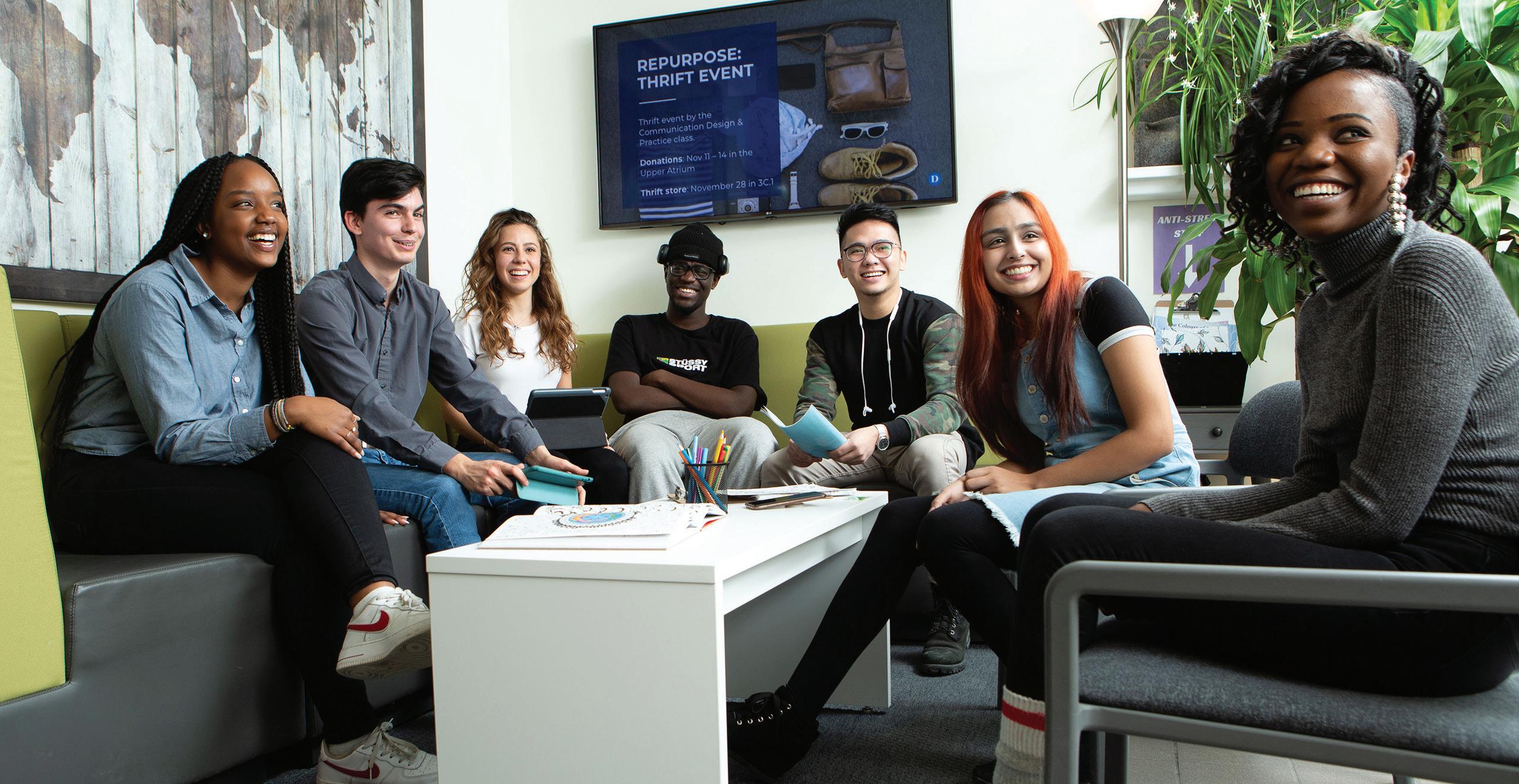
Languages Build bridges between people, cultures and nations by becoming fluent in multiple languages, such as Spanish, Italian, German, Mandarin (Chinese), Hebrew and Modern Greek.
Literature Explore and deepen your passion for the written word. This is the profile for enthusiastic readers and aspiring writers.
Studio Arts Cultivate an appreciation for the arts by studying Art History, visiting museums and creating your own art in Dawson’s professional studios.
Interactive Media Arts Combine your love for the latest technology with your creativity and artistic abilities in this unique profile exclusive to Dawson College.
2 YEARS
Writers, content creators and lovers of literature and the arts, this is the program for you! Each profile in ALC allows you to experience all the tastes and flavours of the program, with the Arts and Culture Profile offering the greatest range of options. All ALC students and teachers share their passions for the arts in tight-knit communities of like-minded artists, writers and communicators. Required and supplementary course choices allow students to build a strong foundational knowledge in a number of artistic fields. Dawson ALC students benefit from events and shows at our downtown campus and have easy access to all the arts and culture offerings of Montreal. In an age when artificial intelligence is leading to rapid changes in society, there is a big demand for creativity and innovative thinking. Students with skills that are uniquely human and an appreciation for the value of art will be well equipped for the challenges of tomorrow.
Minors
Enhance your learning with an ALC Minor. Students in all ALC profiles, except Languages, can take an ALC Minor in one of the following subjects: Journalism, Music or Theatre. Each minor has four courses. If you successfully complete a minor, you will receive a letter of recognition from the Dean of Creative and Applied Arts.
ARTS, LITERATURE AND COMMUNICATION
500.A1 ARTS, LITERATURE AND COMMUNICATION Arts and Culture 500.G1 Cinema | Communications 500.G4 Literature 500.G2 Studio Arts 500.G5 Interactive Media Arts 500.G6 Languages 500.G3 The information contained in this document was accurate and complete at the time of printing.
Sherbrooke St. West
H3Z 1A4
3040
Montreal, Quebec
dawsoncollege.qc.ca
notes 51 50
1 1
■ Drawing Techniques
■ Exploring Creativity
■ Guitar 1
■ Introduction to Singing
■ Journalism: Writing News Stories
■ Scripting for Media
■ Sight and Sound
A
■ Alternative Cinema
■ Animation
■ Documentary Approaches
■ Ethics of Journalism
■ Graphic Novels and Artists’ Books
■ Photography: Themes and Evolution
■ Special Topics in Literature
■ Technoculture and Interactive Media
1 2
■ Appreciating Music
■ Cave to Renaissance Art
■ Cinema and Culture
■ Concept and Craft in Theatre
■ Culture without Borders
■ Digital Art
■ Philosophy and Culture
■ Religion and Art
■ The Networked World
■ World Literature
B
■ Popular Music Culture
■ Vocal Interpretation
■ Collage and Mixed Media
■ Dance: Style and Form Comprehensive
■ Guitar Techniques
■ Journalism and the Web
■ Photo Art
■ Tangible Media: Making Things Interactive
■ Vocal Performance
2 3
■ Contemporary Art
■ Cinema Styles
■ Emergent Media
■ Focus on Culture
■ Introduction to Painting
■ Jazz Culture
■ Literary Currents
■ Plays and Playwrights
■ The Art of Game Design
■ Why Art Matters
C
■ German 1
■ Greek 1
■ Hebrew 1
■ Italian 1
■ Italian Mother Tongue 1
■ Spanish 1
2 4
■ Acting Workshop
■ Computer Communication of Arts and Culture
■ Computer Music and Sound Art
■ Guitar 2
■ Journalism: Writing Feature Articles
■ Literature and Creative Practice
■ Multimedia Techniques
■ Sculpture: Creativity and Processes
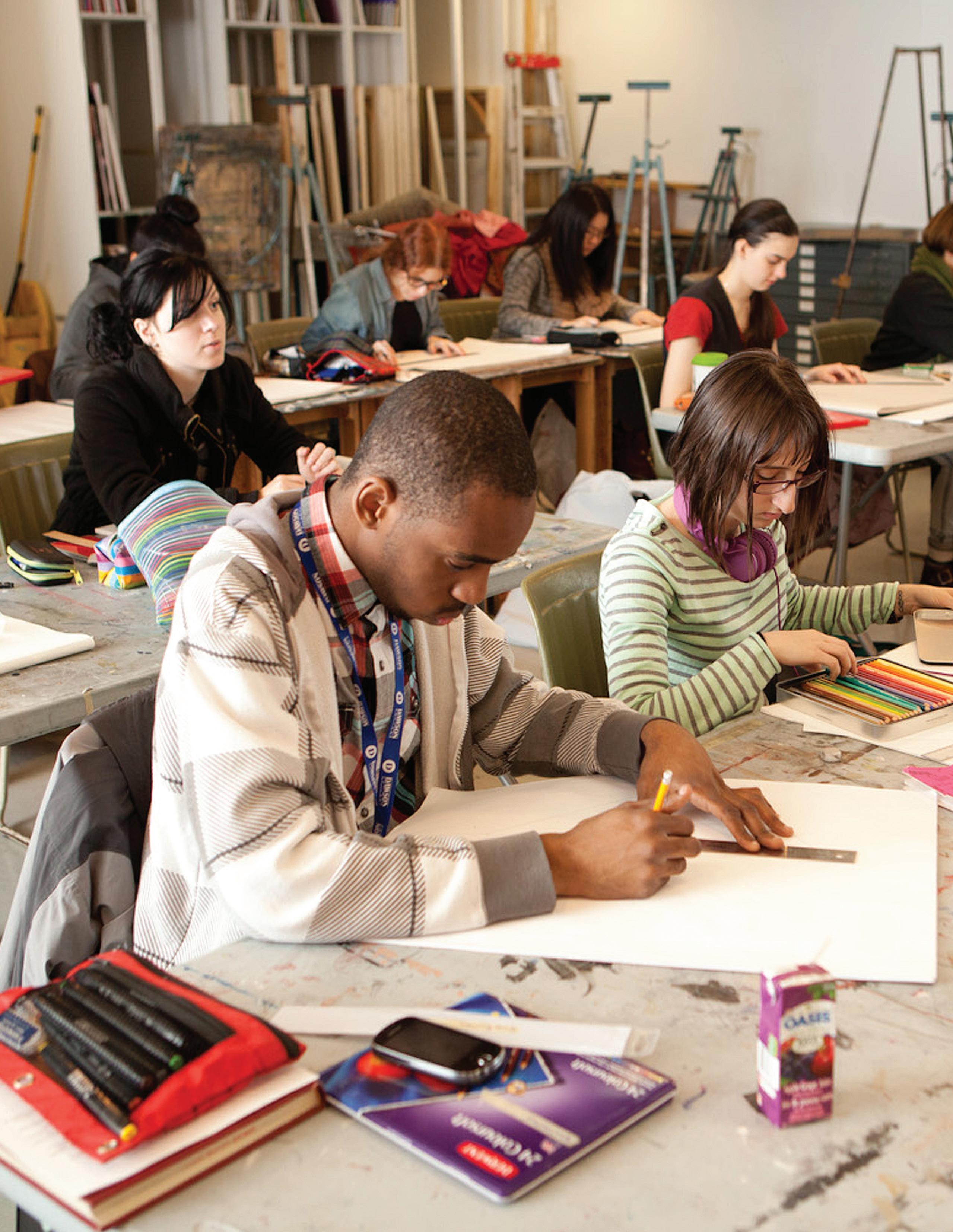
■ Video Basics
■ Vocal Expression
E
F
D
■ Mandarin (Chinese) 2
■ German 2
■ Greek 2
■ Hebrew 2
■ Italian 2
■ Italian Mother Tongue 2
■ Spanish 2
■ German 3
■ Italian
■ Spanish
■ German
■ Italian
■ Spanish
3 5
■ Animation Atelier
■ Communications Design and Practice
■ Computer Graphics and Web Design
■ Creative Writing
■ Decoding Visual Art
■ Drawing and Ideas
■ Game Making
■ Media Development and Production
■ Performance Workshop
4 6
■ Drawing Techniques
■ Exploring Creativity
■ Guitar 1
■ Introduction to Singing
■ Journalism: Writing News Stories
■ Scripting for Media
■ Sight and Sound
The information contained in this document was accurate and complete at the time of printing.
Sherbrooke St. West Montreal, Quebec H3Z 1A4
3040
dawsoncollege.qc.ca Term Choice List Courses
Option List Courses
3
3
4
4
4 ALC Choice Course List ALC Option Course List 53 52
www.dawsoncollege.qc.ca/arts-culture
If you would like to:
Learn about other cultures in a creative environment
Develop communication skills and the ability to formulate strong arguments
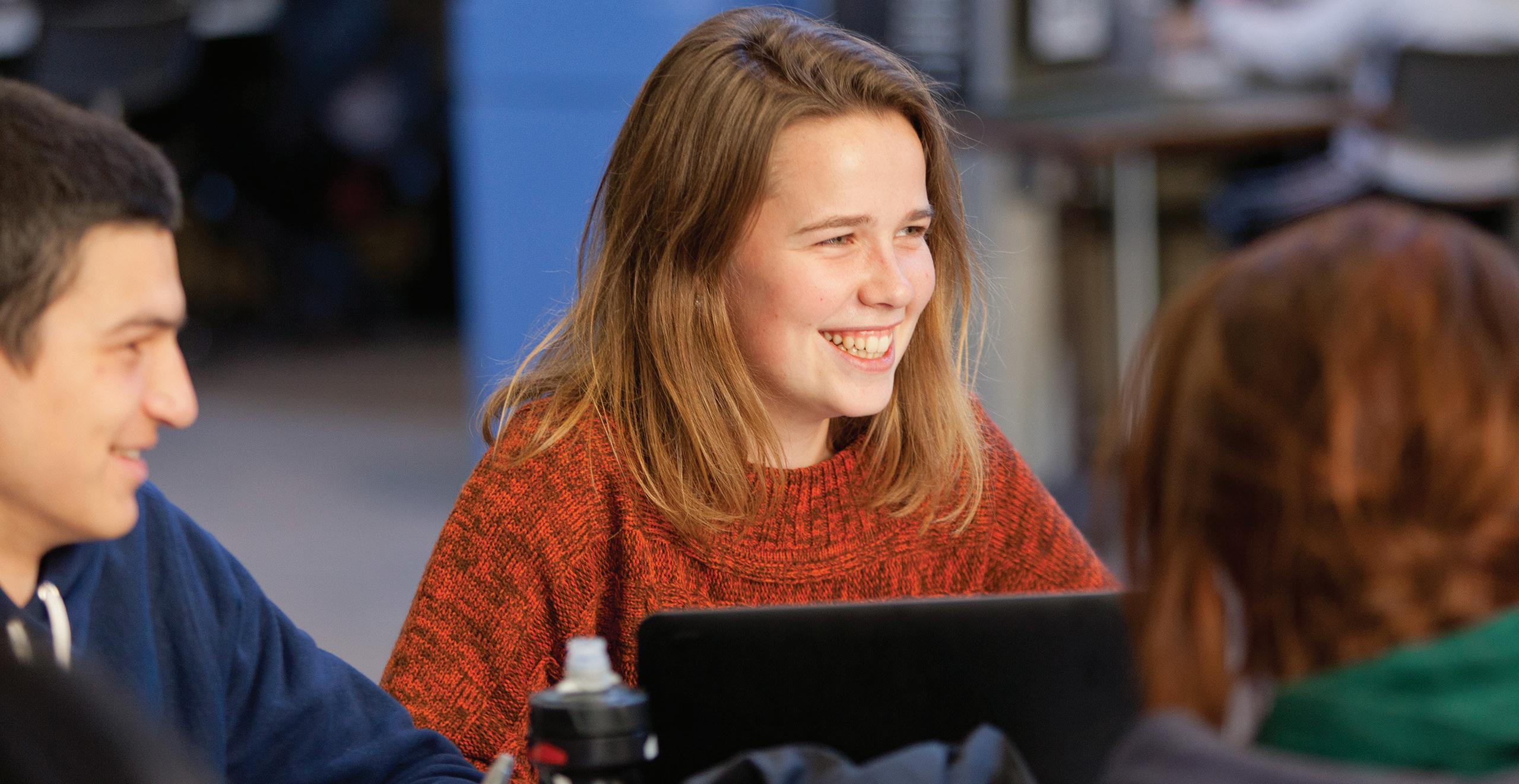
Explore cultural and art events in the city
Improve your writing skills
Satisfy your intellectual curiosity
Then the Arts and Culture Profile could be for you.
2 YEARS
The Arts and Culture Profile lets you take a wide variety of courses in the Arts, Literature and Communication Program. The profile takes an interdisciplinary approach to your college education so that you can explore different avenues in the arts. The ability to study different disciplines will allow you to decide what subjects interest you and therefore be helpful when choosing a university path.
What will you learn?
■ To become a better writer
■ To develop solid research skills that will prepare you for university
■ To explore different genres of expression
■ To think more critically and creatively
■ To communicate clearly
Where will this program lead you?
Graduates of the Arts and Culture Profile often choose to pursue university studies in the various Arts and Humanities programs. Their career options are diverse and typically encompass professions centered around people and ideas, including journalism, education, and many others.
What do you need to apply?
A Diploma of Secondary Studies (DES) or academic background judged equivalent to the DES.
What else should you know?
As a student in the Arts & Culture Profile, you will participate in the Arts, Literature and Communication Gala along with other festival events. Students also benefit from field trips to explore Montreal’s arts and culture offerings.
Application Deadline
March 1 • November 1
notes
LIST OF SPECIFIC COURSES
All students must also take General Education courses such as English, French, Humanities and Physical Education, in addition to complementary courses.
YEAR 1 YEAR 2
Term 1 Term 3
■ Introduction to Arts and Culture
■ Choose one from ALC Choice Course List 1
■ Choose one from ALC Choice Course List 2
■ Philosophy: Thinking for Ourselves OR Music History
■ The Novel OR Interactive Media Workshop OR Film Theory OR Communication Theory OR Introduction to Printmaking OR Introduction to Internet Art and Culture
■ Choose one from ALC Choice Course List 5
■ Option Course 1 (see Option Course List A–F)
Term 2 Term 4
■ Renaissance to Modern Art OR Religion and Popular Culture OR A Way with Words
■ Choose one from ALC Choice Course List 3
■ Choose one from ALC Choice Course List 4
Note: In terms 3 and 4, students must choose one course from each of two different disciplines.
3040 Sherbrooke St. West Montreal, Quebec H3Z 1A4 dawsoncollege.qc.ca
■ Integrating Activity
■ Creative Writing Workshop OR The Art of Physical Computing OR Media Lab OR Drawing/Painting Studio Projects OR Sculpture Studio Projects
■ Choose one from ALC Choice Course List 6
The information contained in this document was accurate and complete at the time of printing.
DEC IN ARTS, LITERATURE AND COMMUNICATION ARTS AND CULTURE Arts, Literature and Communication
“
From sculpture to interactive art, computer or real-life painting, I was able to direct my educational path towards my artistic interests.
500.G1
— Heloise A.
■ Option Course 2 (see Option Course List A–F) 55 54
What will you learn?
■ To write well and edit meticulously
■ To think critically
■ To execute a creative project
■ To analyze the use of language in cultural objects
■ To situate key literary periods or movements
■ To make connections with social and cultural changes
■ To articulate a critical judgement
■ To learn about national culture and be equipped to comment on cultural issues
■ To appreciate contemporary cultural diversity in literary texts, artworks, artifacts, performances
Where will this program lead you?
Graduates can pursue university studies in the arts or social sciences in fields such as literature, creative writing, communication studies, cultural studies, english, journalism, education, languages and law.
Some possible future careers include: writer, editor/publisher, filmmaker, podcast producer, translator, communications director, journalist, teacher and lawyer.
What do you need to apply?
A Diploma of Secondary Studies (DES) or academic background judged equivalent to the DES.
What else should you know?
■ Courses in creative writing and journalism are also offered
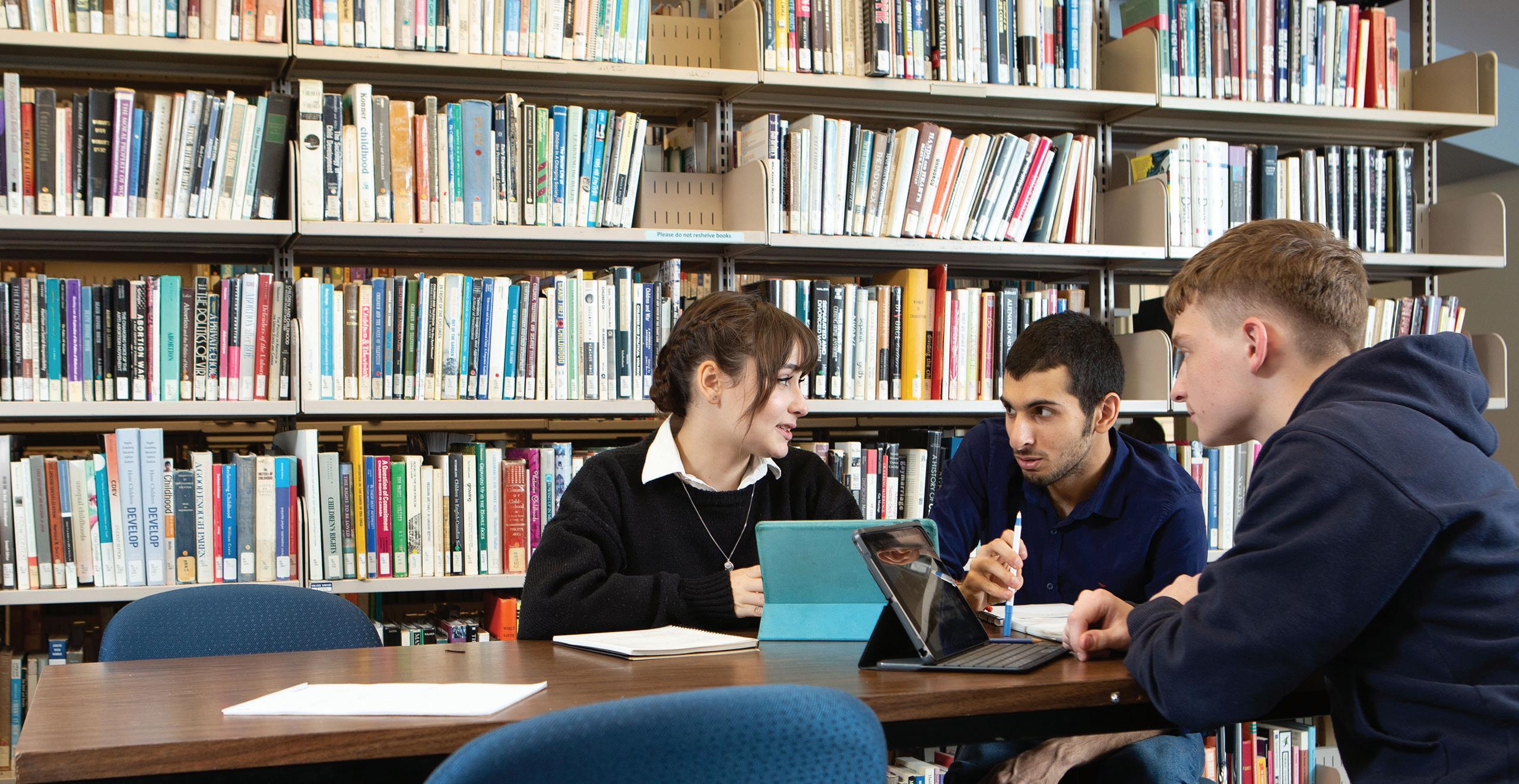
■ If you choose to take all four journalism courses, you will earn a journalism minor
■ You can also take minors in Theatre or Music
■ Teachers are available for extensive one-on-one time
■ An annual literary student conference and arts festival happens each spring
■ “Lit at lunch” events and live student readings occur regularly
■ Students enjoy workshops given by renowned visiting authors as well as field trips to local art exhibitions, book launches, theatrical presentations and poetry and book readings
■ Students can also publish their academic or creative work, or volunteer as editors for the profile’s Creations Journal, the Dawson English Journal or the school newspaper, The Plant
Application Deadline
March 1
www.dawsoncollege.qc.ca/literature
If you would like to:
Read novels, poems, plays, essays and other works of literature
Write Analyze and discuss works of literature, movies and works of art
Conduct research
Communicate and debate your ideas
Report and reflect on current events
Then the Literature Profile could be for you.
Calling all enthusiastic readers, aspiring writers and journalists! Explore and deepen your passion for the written word with a tight-knit community of like-minded students and teachers. In addition to the mandatory four English courses for all CEGEP students, you will take up to 12 more literature and creative writing courses! Develop your writing and analytical skills as you read and discuss works of literature from a variety of times, places and cultures. A broad range of options within the arts will give you the opportunity to gain knowledge and expertise across multiple arts disciplines. Enjoy the cultural offerings of Dawson College, including special events for Literature students, and the amazing museums, galleries and theatres of downtown Montreal.
LIST OF SPECIFIC COURSES
All students must also take General Education courses such as English, French, Humanities and Physical Education, in addition to complementary courses.
YEAR 1 YEAR 2
Term 1 Term 3
■ Literary Movements
■ Choose one from ALC Choice Course List 1
■ Choose one from ALC Choice Course List 2
■ Literary Theory and Criticism
■ The Novel
■ Choose one from ALC Choice Course List 5
■ Option Course 1 (see Option Course List A–F) Term 2 Term 4
■ Poetry and Prosody
■ Choose one from ALC Choice Course List 3
■ Choose one from ALC Choice Course List 4
■ Integrating Activity
■ Creative Writing Workshop
■ Choose one from ALC Choice Course List 6
■ Option Course 2 (see Option Course List A–F)
dawsoncollege.qc.ca
DEC IN ARTS, LITERATURE AND COMMUNICATION
Arts, Literature and Communication
LITERATURE
2 YEARS
“
The Literature Profile prepared me perfectly for university studies, by giving me a strong foundation in writing, reading and analysis.
500.G2 The information contained in this document was accurate and complete at the time of printing. Note: Students must choose courses outside their profile from ALC Choice Course List 1 and Option Course List B. 3040 Sherbrooke St. West Montreal, Quebec H3Z 1A4
— Bridget G.
57 56
www.dawsoncollege.qc.ca/languages
If you would like to:
Learn two or more new languages
Explore different cultures
Study in a multilingual and multicultural environment
Connect with people who love language and culture
Study in a small and engaging program where teachers and students get to know each other Then the Languages Profile could be for you.
2 YEARS
Discover how people who are fluent in multiple languages and can empathize with different cultural viewpoints are able to build bridges between people, cultures and nations. At Dawson, you can choose from a wide selection of languages: Spanish, Italian, German, Mandarin (Chinese), Hebrew and Greek.
In addition, you will be introduced to a variety of cultural, historical and linguistic aspects of those languages. This profile offers exciting learning opportunities, such as a student exchange trip to Germany, an internship in Spain and oneon-one time with German and Spanish language assistants. Students may pursue the German language diploma (DSD I), a DELE Spanish Language Certificate, a CILS Italian Language Certificate or the Certificate in Hellenic Studies.
What will you learn?
■ To understand, speak, read and write in two or more new languages
■ To discover other cultures
■ To learn the fundamentals of language structure and use
■ To advance your creative skills and critical thinking
■ To develop and execute a creative project
Where will this program lead you?
Dawson’s Languages Profile will open doors to most disciplines and complement all professions. Languages are the most transferable skills for any job or career and an asset in today’s globalized world.
Graduates are well prepared for university studies in the arts and social sciences in fields such as:
■ Communication Studies
■ Cultural Studies
■ Interpretation or Translation
■ Literature
■ English, Hispanic, German, Asian, Italian or French Studies
■ Journalism
■ Education
■ Business and Commerce
■ Entrepreneurship
■ Human Resources
■ Tourism
■ Teaching English (TESL) or French as a foreign language
■ Linguistics
■ Psychology
■ Philosophy … and more!
Career possibilities will depend on what you choose to study at university. Dawson’s Languages Profile will open doors to most disciplines and professions.
Some possible future careers include: translator, linguist, journalist, researcher, teacher, speech pathologist.
What do you need to apply?
A Diploma of Secondary Studies (DES) or academic background judged equivalent to the DES. French placement* at 101 level or higher (testing may be required).
*For the most up-to-date and complete details, visit www.dawsoncollege.qc.ca/languages
LIST OF SPECIFIC COURSES
What else should you know?
■ Our Languages Department is the largest in the Quebec CEGEP network and the only one to offer Hebrew and Modern Greek
■ Students can benefit from working in the language labs and with language tutors
■ Students can boost their language competency and cultural connection through conversations, cultural workshops, and one-on-one sessions with German and Spanish language assistants
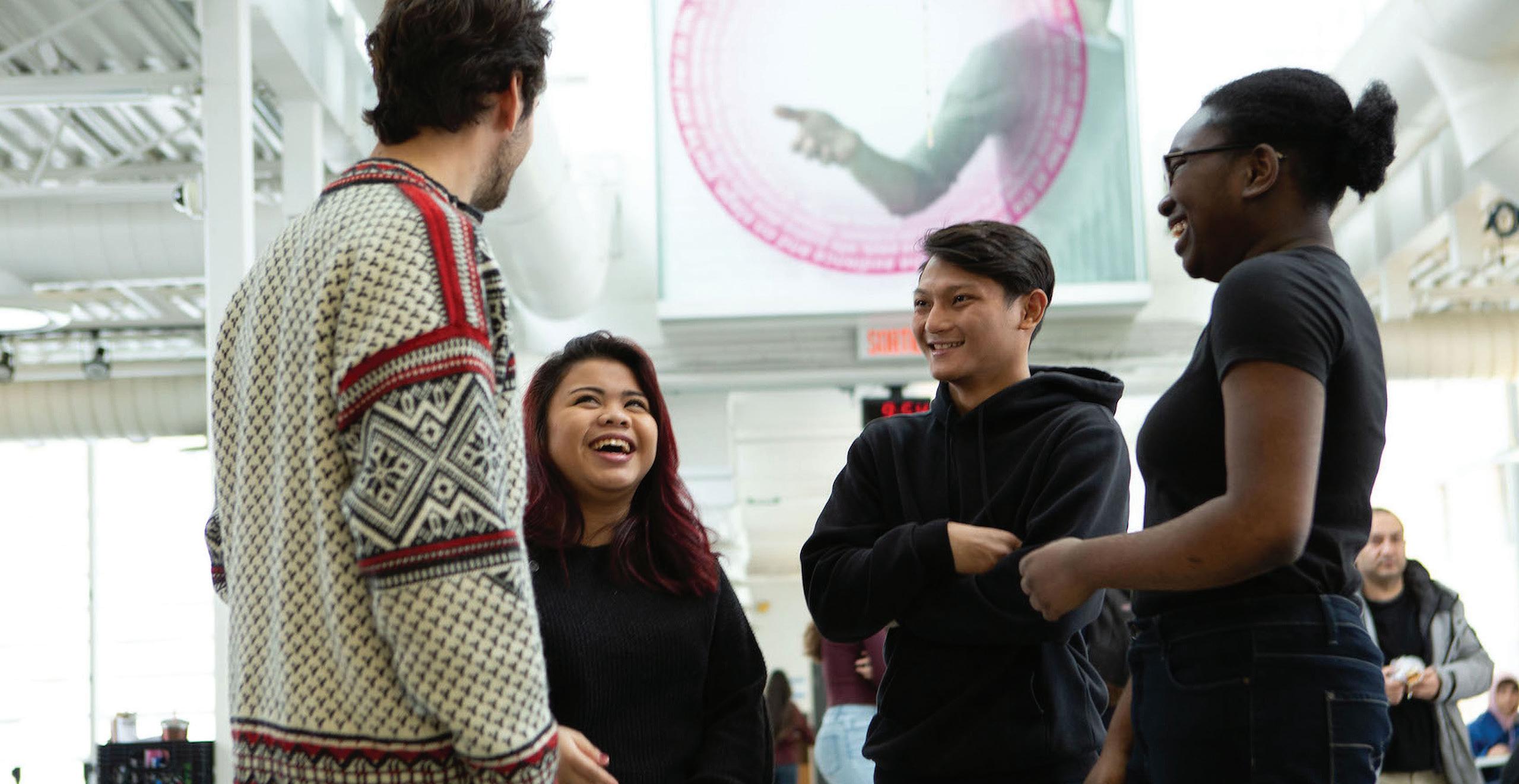
■ The Language Study Centre is our students’ own space where they can meet each other informally, practice their new language skills, do homework, participate in organized conversation workshops, attend special events and work on group projects
■ Students go on field trips to local art exhibitions, theatrical presentations and other activities
■ Guest speakers or artists are invited
■ There is a possibility to do an internship in Malaga, Spain, where students live with a host family, attend conferences and work
■ Students can also participate in an exchange trip to Freiburg and Berlin, in Germany
■ There is an opportunity to participate in the annual Chinese speech contests organized by the Chinese Government in Canada
■ This Profile offers a close-knit community and strong profile identity
■ Teachers connect with students for extensive one-on-one time
Application Deadline
March 1
All students must also take General Education courses such as English, French, Humanities and Physical Education, in addition to complementary courses.
YEAR 1 YEAR 2
Term 1 Term 3
■ Culture through the Ages
■ Language 1A (placement test may be required)
■ Language 2A (placement test may be required)
■ Lost in Translation
■ Introduction to Linguistics
■ Language 1C
■ Choose one from ALC Choice Course List 2
Term 2 Term 4
■ A Way with Words
■ Language 1B
■ Language 2B
■ Choose one from ALC Choice Course List 3
■ Integrating Activity
■ Language 1D
■ Questions d’identité (given in French)
■ Choose one from ALC Choice Course List 6
DEC IN ARTS, LITERATURE AND COMMUNICATION
Arts, Literature and Communication
LANGUAGES
“
500.G3 The information contained in this document was accurate and complete at the time of printing. 3040 Sherbrooke St. West Montreal, Quebec H3Z 1A4 dawsoncollege.qc.ca
Small class sizes ensured that I always had support from my teachers and got to meet other students who shared my interests.
— Anne-Aurelle S.
59 58
This program is being updated. Please visit our website for the most up-to-date information.
CINEMA | COMMUNICATIONS
What will you learn?
■ To analyze a film or media practice
■ To make a critical judgement
■ To empathize and appreciate other cultural perspectives through media
■ To understand the elements of effective storytelling
■ To write scripts for media
■ To edit and produce videos
■ To understand multimedia production
■ To appreciate a collection of works
■ To think critically and be creative
■ To explain and offer valuable commentary on national cultural issues
■ To use creative techniques or processes for creative purposes
■ To execute a creative project
Where will this program lead you?
Graduates are well prepared for university studies in Media, Communications, Journalism, Cinema Studies, Film Production, Animation, the Arts , Education and Law.
Some possible future careers include filmmaker, film editor, film producer, communications director, journalist, cinematographer/videographer, podcast producer, writer, designer and translator.
www.dawsoncollege.qc.ca/cinema-communications
If you would like to:
Become a critical thinker
Deepen your appreciation for film and media
Learn production skills in video, animation, and sound
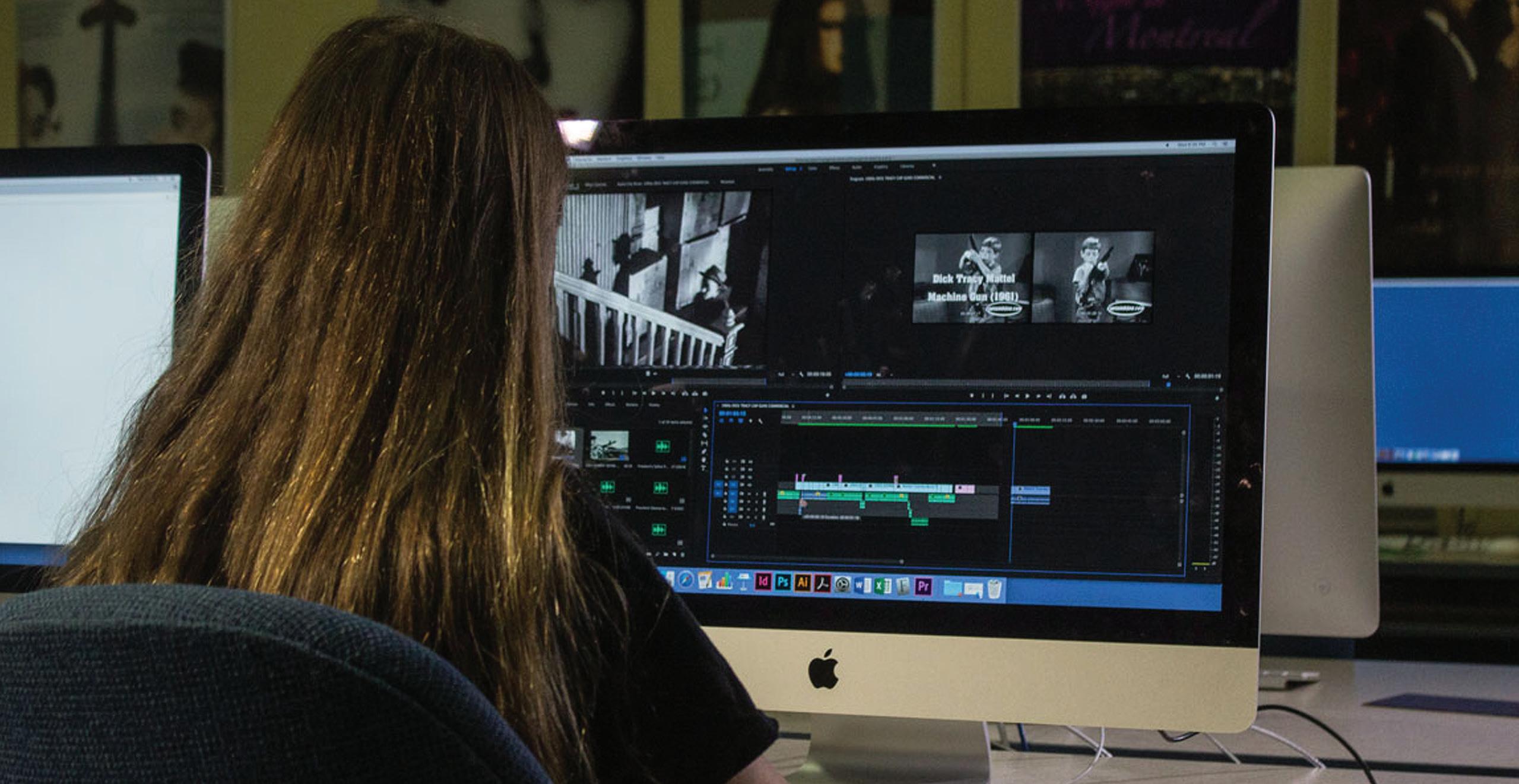
Develop your skills in research, writing and organization
Pitch and review creative project ideas
Conduct interviews and take photos
Then the Cinema Communications Profile could be for you.
Study the world through a media lens. By being exposed to some of the most renowned, contemporary and historical works of media (like films, television, podcasts, photography and installation art), the Cinema l Communications Profile provides a chance for you to discover multiple critical perspectives and ideas.
Be ready to assess and discuss a range of media practices and productions including social media, news stories, new media techniques, sound art and augmented reality. Learn how to communicate effectively in written form or using sound and image as you undertake your own journalistic, film, sound, and multimedia productions. In addition, you will also make your own films and media, giving you a solid foundation in Cinema and Communication studies.
LIST OF SPECIFIC COURSES
What do you need to apply?
A Diploma of Secondary Studies (DES) or academic background judged equivalent to the DES.
What else should you know?
■ No portfolio is required for admission
■ Students have access to two dedicated state-of-the-art computer labs, an animation atelier, a lighting studio and a sound recording booth
■ Students get to use a wide range of consumer and professional grade video and sound recording technologies and lighting equipment
■ A general-purpose space exists for students to work on group projects outside of class time
■ Teachers are available for extensive one-on-one time with students
■ A broad range of options within the arts allow students to gain knowledge and expertise across multiple arts disciplines
■ There is an opportunity to take minors in this profile
■ Students are part of a small community of film enthusiasts and media artists
■ Students take field trips to visit local photo and art exhibitions, theatrical presentations, book launches and poetry and book readings
■ Distinguished filmmakers and media producers are invited to share their knowledge and experience
■ Students are encouraged to intern
Application Deadline
March 1 • November 1
All students must also take General Education courses such as English, French, Humanities and Physical Education, in addition to complementary courses.
YEAR 1 YEAR 2
Term 1 Term 3
■ Explorations in Cinema and Communications
■ Choose one from ALC Choice Course List 1
■ Choose one from ALC Choice Course List 2
■ Writing Lab
■ Film Theory OR Communication Theory
■ Choose one from ALC Choice Course List 5
■ Option Course 1 (see Option Course List A–F)
Term 2 Term 4
■ Cinema and Media History
■ Choose one from ALC Choice Course List 3
■ Choose one from ALC Choice Course List 4
■ Integrating Activity
■ Media Lab
■ Choose one from ALC Choice Course List 6
■ Option Course 2 (see Option Course List A–F)
DEC IN ARTS, LITERATURE AND COMMUNICATION
Arts, Literature and Communication
2 YEARS
“ — Kaël M. 500.G4 The information contained in this document was accurate and complete at the time of printing. 3040 Sherbrooke St. West Montreal, Quebec H3Z 1A4 dawsoncollege.qc.ca
The Cinema | Communications Profile gave me the creative freedom and time to discover and better understand myself.
61 60
STUDIO ARTS
What will you learn?
■ To use creative techniques or processes for creative purposes
■ To carry out a creative project
■ To appreciate a collection of works
■ To think creatively
■ To apply methods suited to the study of arts, literature and communications

■ To explain the basic characteristics of an arts, literature and communication field
■ To explain national cultural issues
■ To make a critical judgement
■ To appreciate contemporary cultural diversity
■ To appreciate the language specific to an arts, literature and communication field
■ To demonstrate the capacity to integrate learning in arts, literature and communication
Where will this program lead you?
www.dawsoncollege.qc.ca/studio-arts
If you would like to:
Draw, paint and sculpt
Do printmaking
Sew (Fibre Arts)
Make and watch movies
Visit exhibitions
Discuss works of art
Meet artists
Read and write
Then the Studio Arts Profile could be for you.
2 YEARS
Cultivate an appreciation for the arts through Art History courses and visits to galleries and museums just steps away from our downtown Montreal campus. Create your own art in Dawson’s professional studios for printmaking, painting, drawing, sculpting, digital art and more. Quebec’s most diverse arts profile in English offers you the flexibility to choose your own courses to advance your personal interests and skills. In addition to the Studio Arts courses, you can study Cinema, Literature, Music, Languages and Theatre. All the experience and learning gained in the profile is brought together with a self-directed project, which is exhibited at a vernissage event.
Graduates pursue university studies in Studio Arts, Design, Computational Arts, Film Studies, Film Production, Animation, Communication Studies, Art History. Possible future careers include: writer, print editor, artist, filmmaker, film editor or producer, cinematographer/ videographer, podcast producer, animator, designer, communications director, publicist, journalist, reporter, photographer, blogger, teacher, critic, advertising director, event planner.
LIST OF SPECIFIC COURSES
What do you need to apply?
A Diploma of Secondary Studies (DES) or academic background judged equivalent to the DES.
What else should you know?
■ No portfolio, art classes or experience are needed for admission
■ All art classes are introductory level
■ Teachers are available for extensive one-on-one time
■ This profile offers a close-knit community and strong profile identity
■ Our teachers are also practising artists who take pride in their creative work, exhibiting in the city and abroad
■ Studio Arts Profile students have access to: drawing/ painting studios, free live model sessions, a professional printmaking studio equipped for relief, silkscreen and intaglio, a sculpture studio with a woodshop, a metal shop and studios for clay and plaster
■ Art History instructors and studio instructors organize field trips to visit local galleries, museums and other places of interest like the Botanical Gardens or St. Joseph’s Oratory
■ Students can go on overnight and weekend field trips to Ottawa, Toronto and New York
Application Deadline
March 1 • November 1
All students must also take General Education courses such as English, French, Humanities and Physical Education, in addition to complementary courses.
■ Introduction to Studio Art
■ Choose one from ALC Choice Course List 1
■ Choose one from ALC Choice Course List 2
2
■ Renaissance to Modern Art
■ Choose one from ALC Choice Course List 3
■ Choose one from ALC Choice Course List 4
■ Sculpture and Ideas
■ Introduction to Printmaking OR Introduction to Internet Art and Culture
■ Choose one from ALC Choice Course List 5
■ Option Course 1 (see Option Course List A-F)
4
■ Integrating Activity
■ Drawing / Painting Studio Projects OR Sculpture Studio Projects
■ Choose one from ALC Choice Course List 6
■ Option Course 2 (see Option Course List A-F)
DEC IN ARTS, LITERATURE AND COMMUNICATION
Arts, Literature and Communication
“
The Studio Arts Profile pushed me to grow and allowed me to acquire plenty of experience while being surrounded by like-minded people.
500.G5 The information contained in this document was accurate and complete at the time of printing. Note: Students in this profile must choose courses outside their profile from ALC Choice Course List 2 and Option Course List B. 3040 Sherbrooke St. West Montreal, Quebec H3Z 1A4 dawsoncollege.qc.ca
— Alexandra B.
YEAR 1 YEAR 2 Term 1 Term 3
Term
Term
63 62
INTERACTIVE MEDIA ARTS Arts, Literature and Communication
What will you learn?
■ To define creative concepts involving interactivity, play and digital technologies
■ To create projects using digital tools such as microcontrollers, game engines, computer code and more
■ To recognize and appreciate diverse forms of interactive media art and design
■ To make connections with social, environmental and cultural issues related to digital technology, social media, the Internet and artificial intelligence
■ To contextualize the intricacies of cultural objects such as artificial intelligence, the worldwide web, emergent media, social media and the Internet of things
■ To explore national cultural issues through the lenses of local and international media artists, such as the effects of social media on individuals and societies, technology and the environment, gender and Indigenous representations in games
Where will this program lead you?
www.dawsoncollege.qc.ca/interactive-media-arts
If you would like to:
Interact with technology in self-reflective ways
Create interactive music, sound and video art
Develop interactive installations, reactive or kinetic sculptures, toys and robots
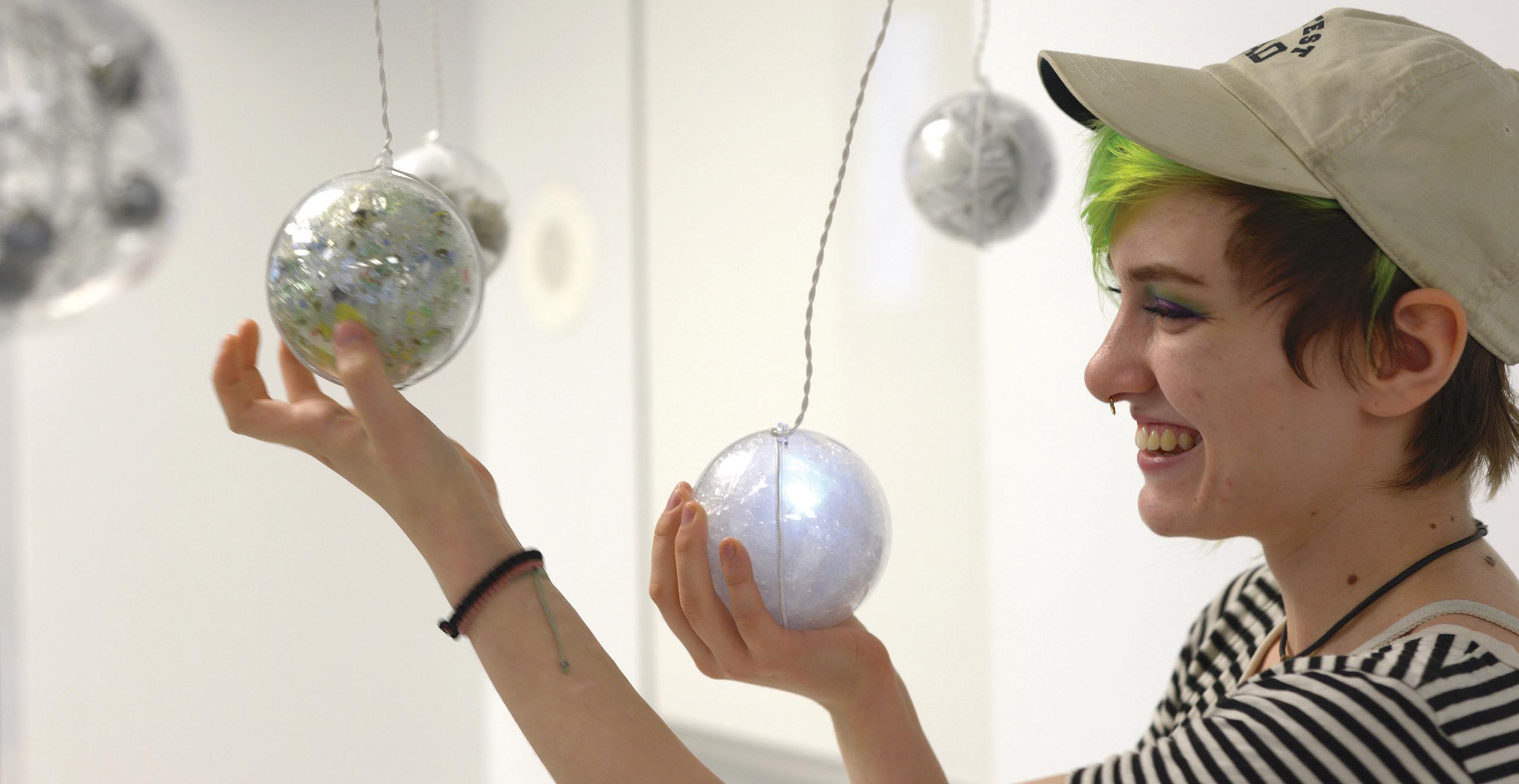
Build apps and mobile media
Design and make games
Use technology in new ways that are unexpected, sustainable, expressive and creative
Then the Interactive Media Arts Profile could be for you.
2 YEARS
Combine your love for the latest technology with your creativity and artistic abilities. The Interactive Media Arts Profile is a unique profile in Arts, Literature and Communication exclusive to Dawson College. Come join the next generation of artists and creators in Quebec who are redefining art, design and creative exploration in our professional lab and workshop. No previous technical knowledge is required to enter Interactive Media Arts. Our hands-on, project-based training will introduce you to simple yet powerful technological tools. Whether you are making physical projects like sculptures or screen-based objects like computer games, the emphasis will always be on the creativity of your efforts.
Graduates generally pursue university studies in Fine Arts, Intermedia, Computation Arts and Game Design, as well as other fields in the Arts, Humanities and Education. Graduates of university programs generally find employment opportunities in interactive design and development, game design and development, user experience design, creative and applied arts, web design and development among others. They can become successful entrepreneurs and artists, game designers, interactive media developers, human computer interaction designers, content creators, teachers, reporters and more.
LIST OF SPECIFIC COURSES
What do you need to apply?
A Diploma of Secondary Studies (DES) or academic background judged equivalent to the DES.
What else should you know?
■ A state-of-the-art computer lab and a separate, fullyequipped production workshop provide students with tools to develop interactive media art works, computer music, games, video games, physical and wearable computing projects
■ After-hours access to the lab and workshop enables students to do additional work outside of class
■ One-on-one time with teachers provides personalized feedback and training
■ This profile offers extensive hands-on learning, based on developing your own projects
■ You will visit professional production studio workshops, museums and gallery exhibitions
■ Professional artists and designers come in to present their work
Application Deadline March 1
All students must also take General Education courses such as English, French, Humanities and Physical Education, in addition to complementary courses.
YEAR 1 YEAR 2
Term 1 Term 3
■ Introduction to Interactive Media
■ Choose one from ALC Choice Course List 1
■ Choose one from ALC Choice Course List 2
■ The Interactive Experience
■ Interactive Media Workshop
■ Choose one from ALC Choice Course List 5
■ Option Course 1 (see Option Course List A–F) Term 2 Term 4
■ Systems, Modelling and Creative Computation
■ Choose one from ALC Choice Course List 3
■ Choose one from ALC Choice Course List 4
■ Integrating Activity
■ The Art of Physical Computing
■ Choose one from ALC Choice Course List 6
■ Option Course 2 (see Option Course List A–F)
3040 Sherbrooke St. West Montreal, Quebec H3Z 1A4 dawsoncollege.qc.ca
DEC IN ARTS, LITERATURE AND COMMUNICATION
“
This Profile is designed to help you discover your passions. We are exposed to a wide variety of practices, allowing you to experiment and discover different mediums.
500.G6 The information contained in this document was accurate and complete at the time of printing.
Students in this profile must choose courses outside their profile from ALC Choice Course List 2 and Option
— Colin C.
Note:
Course List B.
65 64
VISUAL ARTS
Where will this program lead you?
Visual Arts graduates often pursue university studies in Visual Arts, Studio Arts, Painting and Drawing, Art History, Art Education, Art Therapy, Design and Photography. Others find studio work in the production of paintings, drawings, prints, sculpture and multimedia. Other possibilities include careers in art restoration/conservation, advertising, communications and other creative careers.
What do you need to apply?
■ A Diploma of Secondary Studies (DES) or academic background judged equivalent to the DES
■ Portfolio*
*For the most up-to-date and complete details, visit www.dawsoncollege.qc.ca/visual-arts
What else should you know?
As a student in the Visual Arts Program, you will have access to a dedicated resource room, an extensive Visual Art library and a computer lab. You will visit diverse art exhibitions, and get to meet artists, meet curators, restorers, art educators and art therapists.
Application Deadline
March 1
www.dawsoncollege.qc.ca/visual-arts
If you would like to:
Learn in fully-equipped studios
Develop your drawing, painting, sculpture, printmaking and media art skills
Acquire skills in traditional and contemporary art production

Exhibit your artwork at program exhibitions
Produce a catalogue of artwork for your university portfolio
Then the Visual Arts Program could be for you.
If you are looking to express your vision of the world, develop your technical skills, explore your creative process and build relationships with an audience through your productions, this is the right program for you!
2 YEARS
The Visual Arts Program will provide you with the hands-on training and studio experience to develop as an artist. Your teachers have expertise in a variety of visual art forms and will help harness your creativity and hone your artistic skills. In addition to the practical training, you will learn about the cultural and historical aspects of art. You will graduate with strong visual expression skills, an appreciation of creative processes and a comprehensive portfolio of artwork.
What will you learn?
■ To use technical and conceptual processes to create works of art in painting, drawing, printmaking, sculpture and new media
■ To recognize and interpret works of art from different eras
■ To solve problems and use critical thinking skills
notes
LIST OF SPECIFIC COURSES
All students must also take General Education courses such as English, French, Humanities and Physical Education, in addition to complementary courses.
YEAR 1 YEAR 2
Term 1 Term 3
■ Art History I
■ Drawing I
■ Colour and Painting I
■ Sculpture I
■ New Media
■ Printmaking I
■ Drawing III
■ Painting III
■ Sculpture III
■ New Media and Video
Term 2 Term 4
■ Art History II
■ Drawing II
■ Painting II
■ Sculpture II
■ Photography
■ Printmaking II
■ Drawing IV
■ Painting IV
■ Sculpture IV
■ Art Now
510.A0
“ —
The information contained in this document was accurate and complete at the time of printing.
Emma P.
3040 Sherbrooke St. West Montreal, Quebec H3Z 1A4 dawsoncollege.qc.ca
■ Integrating Studio Practices 67 66
LIBERAL ARTS
Where will this program lead you?
The Liberal Arts Program offers a solid preparation for university that is unique in both design and quality. Graduates pursue university studies in Law, History, Literature, Philosophy, Psychology, Political Science, Classics, International Development, Journalism, Communications, Business Administration and Linguistics. Following university, careers could be in law, teaching, banking, journalism, psychology, entrepreneurship, writing, translation and music production.
What do you need to apply?
■ A Diploma of Secondary Studies (DES) or academic background judged equivalent to the DES
■ Sec IV Mathematics - Cultural, Social & Technical option
563-414
■ A high school overall average of at least 78%
■ Strong grades in English, History and the Social Sciences are considered an asset
LIST OF SPECIFIC COURSES
www.dawsoncollege.qc.ca/liberal-arts
If you would like to:
Learn about the fascinating connections between different subjects: history, literature, philosophy, humanities, the arts, mathematics and science
Explore a variety of subjects
Develop marketable 21st-century skills: effective writing, creative and critical thinking and solid argumentation skills
Customize your DEC by taking option courses, such as Mathematics and/or courses chosen from other pre-university programs
Be part of a close community that builds longlasting friendships
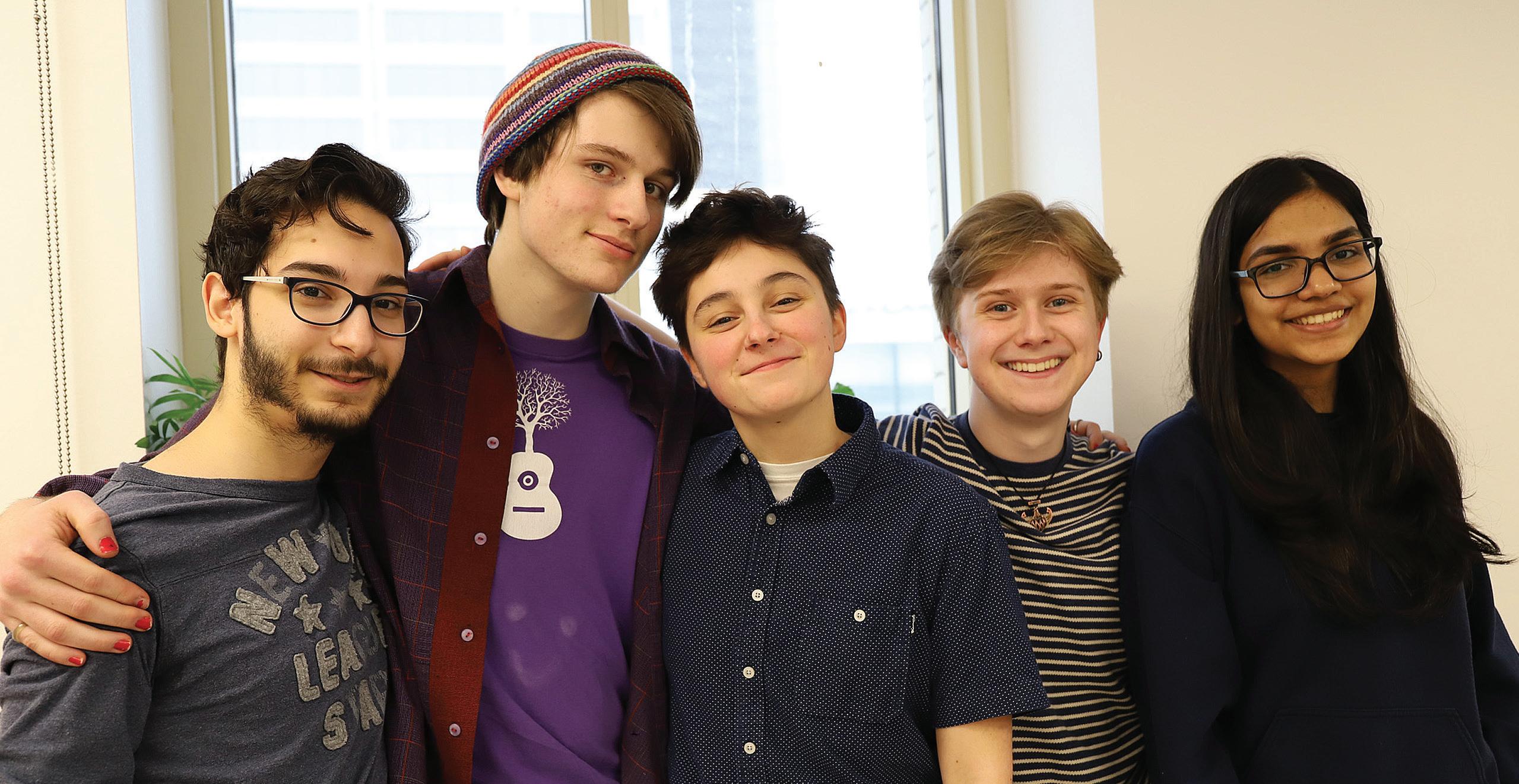
Then the Liberal Arts Program could be for you.
2 YEARS
Be prepared for a rapidly evolving world with a classical education in the Liberal Arts. Dawson’s program will give you the broad vision you need to be a difference-maker in society. You will also gain reflective and analytical skills that are in high demand in the job market. A small community of students who are curious and enthusiastic about learning will help motivate you to do your best. This is your opportunity to explore arts and science in a comprehensive fashion, develop an exceptional worldview and grow your general culture and knowledge.
What will you learn?
■ Reflective and analytical skills that are in demand in all fields of studies and career paths
■ Effective expression of thought in written and oral argument
■ Critical thinking skills
■ An impressive bank of common knowledge
■ Confidence in your ability to argue a point of view based on factual information and careful assessment of evidence
■ Appreciation and tolerance for others by engaging in meaningful discourse
■ How to effectively work through problems
■ Solid research skills
■ Ethical discernment
What else should you know?
■ The Liberal Arts Program ensures one-on-one time with teachers who are passionate about their subjects
■ Students have an opportunity to contribute to the annual Liberal Arts Anthology, a publication comprised of creative student work
Application Deadline
March 1
All students must also take General Education courses such as English, French, Humanities and Physical Education, in addition to complementary courses.
YEAR 1 • Term 1
■ Ancient Philosophy
■ Greco-Roman Tradition
■ Research Methods: Research in Liberal Arts Disciplines
■ Group 1 Option *
YEAR 1 • Term 2
■ Modern Philosophy
■ Post Classical History
■ Renaissance to Baroque Art
■ Principles of Mathematics and Logic
■ Sacred Writings
YEAR 2 • Term 3
■ Modern History: 19th and 20th Centuries
■ Science: History and Methodology
■ Group 1 Option*
■ Group 2 Option*
YEAR 2 • Term 4
■ Integrative Seminar for Liberal Arts
■ Group 2 Option*
■ Group 3 Option*
■ Group 4 Option*
OTHER • Options
The option courses are offered by other pre-university programs and represent a large variety of disciplines related to the Liberal Arts required courses. Students may take no more than four courses in any one subject area.
Students may take courses in the following subject areas:
■ Anthropology
■ Art History
■ Biology
■ Business Administration
■ Chemistry
■ Cinema
■ Classics
■ Computer Science (as it relates to Arts, Literature and Communication)
■ Economics
■ English
■ French
■ Geography
■ History
■ Interactive Media Arts
■ Journalism
■ Mathematics
■ Modern Languages (Chinese, German, Greek, Hebrew, Italian, Spanish)
■ Music
■ Philosophy
■ Physics
■ Political Science
■ Psychology
■ Quantitative Methods
■ Religion
■ Sociology
■ Visual Arts (offered by Arts, Literature and Communication)
■ Theatre (offered by Arts, Literature and Communication) Students may also take multidisciplinary courses in the fields of arts, literature, communication and social science.
The information contained in this document was accurate and complete at the time of printing. 3040
700.B0
St.
1A4 dawsoncollege.qc.ca
Sherbrooke
West Montreal, Quebec H3Z
“
69 68
The teachers created an extraordinary learning environment where I developed a deep knowledge of history, literature, philosophy and other humanities subjects.
— Romy S.
www.dawsoncollege.qc.ca/journeys
If you would like to:
Be part of a supportive, holistic, and culturally relevant learning community
Get to know your teachers and learn collaboratively
Meet other First Nations, Inuit and Métis students
Have access to peer tutoring and mentoring
Hang out between classes at the First Peoples’ Centre, a home away from home (with community, cultural and spiritual support)
Then Journeys could be for you.
Journeys is an introduction to CEGEP designed for First Nations, Inuit and Métis students. This one-year transition program gives you the opportunity to do your prerequisites, obtain college credits, explore your options and settle in to the city to pursue your higher education. You will gain learning strategies that will set you up for success at CEGEP. Everyone knows your name in our tight-knit community and we work together to motivate and support each other in class and outside of class. Flexibility and a student-centred approach are core values of the program. In addition, students benefit from academic, cultural and spiritual support.
What will you learn?
■ Strategies and tools for college-level studies
■ Indigenous and western perspectives in education and learning
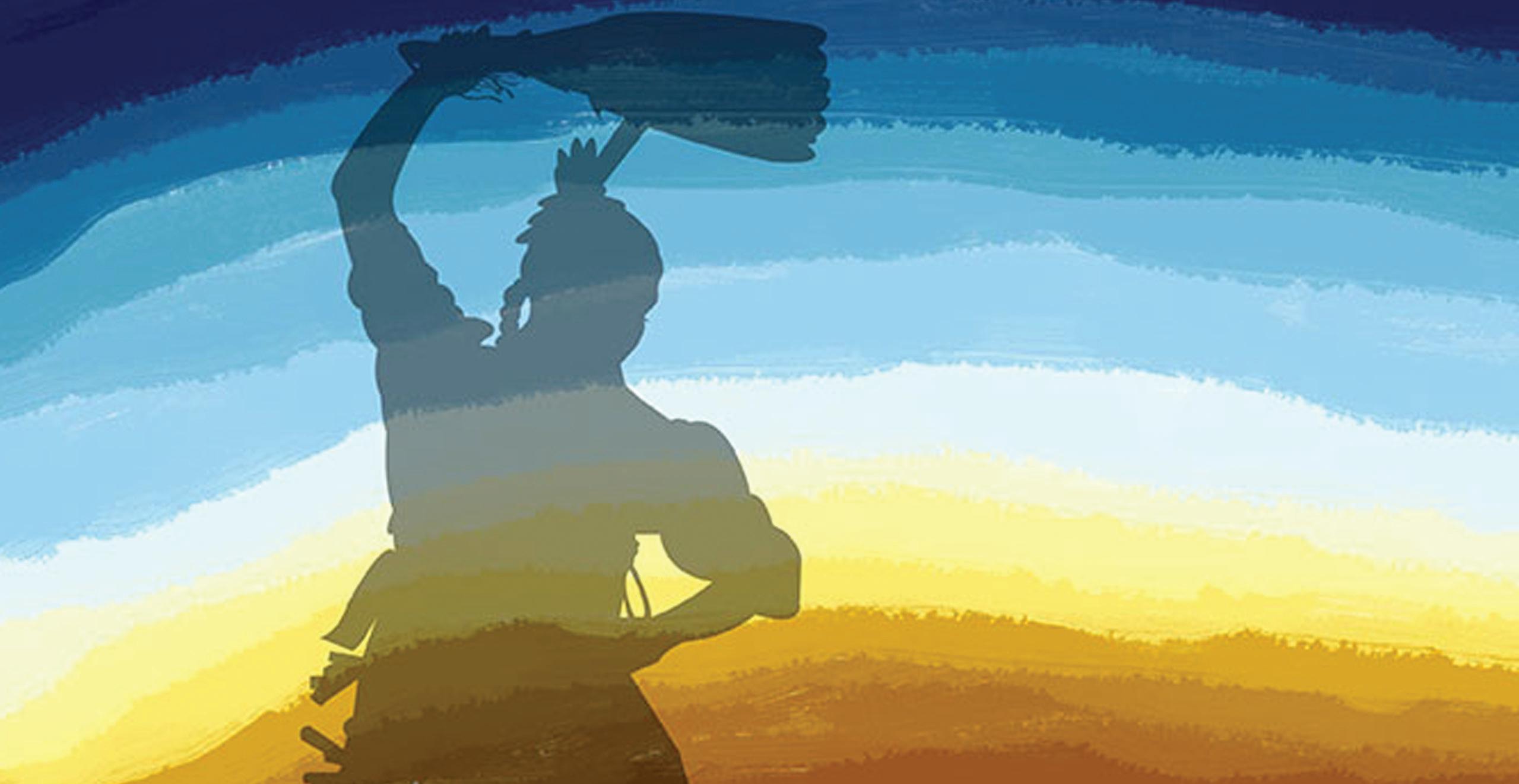
■ Critical thinking, analysis and research
■ Collaborative, team and individual learning
■ Autonomy and advocacy skills in a post-secondary learning environment
■ Reading, writing and presentation skills
■ French-language skills (preparation for credited French courses)
What do you need to apply?
■ A Diploma of Secondary Studies (DES) or academic background judged equivalent to the DES
■ Letter of intent (including self-identification as an Indigenous person*)
*For the most up-to-date and complete details, visit www.dawsoncollege.qc.ca/journeys
Conditional admission is based on Secondary IV final and Secondary V mid-term grades. Final admission into the Journeys program is contingent on obtaining a DES or equivalent.
Where will this program lead you?
Students can transition to any field of study at CEGEP including the Arts, Social Sciences, Sciences and technical programs. Some prerequisite classes needed for Science and technical programs may not be offered by Journeys, but are available at Dawson College.
What else should you know?
■ Courses are taught by culturally aware and engaged teachers working closely with Indigenous communities to include culturally relevant content and approaches
■ Journeys includes land-based learning opportunities, field trips, participation in Indigenous gatherings and activities including Indigenous Peoples’ Week
■ Journeys collaborates closely with the First Peoples’ Centre, a welcoming space where Indigenous students can access cultural activities, academic and para-academic support, computers, printing and more
■ Journeys courses and study labs take place in a dedicated classroom
Application Deadline March 1
notes
■ Choice†
■ Choice†
■ Learning Perspectives I*
■ English
■ French
■ Humanities
■ Choice†
■ Choice†
■ Learning Perspectives II*
■ English
■ French
■ Humanities
*Learning Perspectives courses use a co-teaching model with Indigenous scholars. †Choice courses can include: Physical Education, prerequisite courses in Mathematics, Physics or Chemistry, specific courses in the Arts, Literature and Communication (ALC) and/or Social Science Programs or specific courses in Career Programs (space permitting).
3040 Sherbrooke St. West Montreal, Quebec H3Z 1A4 dawsoncollege.qc.ca
JOURNEYS
YEAR 081.67
1
“
Being in Journeys is like being part of a family. The teachers and other students are there to support us no matter what the situation.
— Journeys student
The information contained in this document was accurate and complete at the time of printing.
1
2 • 4
COURSE LIST YEAR
Term 1 • 4 to 6 courses Term
to 6 courses
71 70
BIOMEDICAL LABORATORY TECHNOLOGY
What will you learn?
■ To apply health and safety practices to protect yourself, patients, co-workers and the environment
■ To use highly specialized instruments and techniques to analyze biological specimens
■ To perform laboratory analyses in hematology and hemostasis (the study of blood cells and blood coagulation), clinical biochemistry (the study of body functions and chemical processes), histology (the study of body tissues and organs), clinical microbiology (the study of microorganisms), transfusion science (the study of blood transfusions) and molecular biology (the study of biology on a molecular level).
■ To produce reliable results which aid in the diagnosis of disease and in research into medical conditions and treatments
■ To develop interpersonal and communications skills that allow you to interact as a team member and with patients
■ To adapt to evolving technologies and techniques in biomedical analysis
Where will this program lead you?
www.dawsoncollege.qc.ca/biomedical-laboratory-technology
If you would like to:
Become a member of a healthcare team and provide essential laboratory results to aid in patient care
Perform clinical laboratory testing using automated instrumentation and the latest testing methodologies
Learn in small classes with personalized attention from your teachers
Complete clinical internships in diagnostic or research laboratories to prepare you for your professional career
Then the Biomedical Laboratory Technology Program could be for you.
3 YEARS
Certification
Ordre professionnel des technologistes médicaux du Québec Canadian Society for Medical Laboratory Science
The Biomedical Laboratory Technology Program gives students the theoretical knowledge and practical skills to contribute to the prevention, diagnosis and treatment of disease by providing biomedical laboratory services to physicians and other clients.
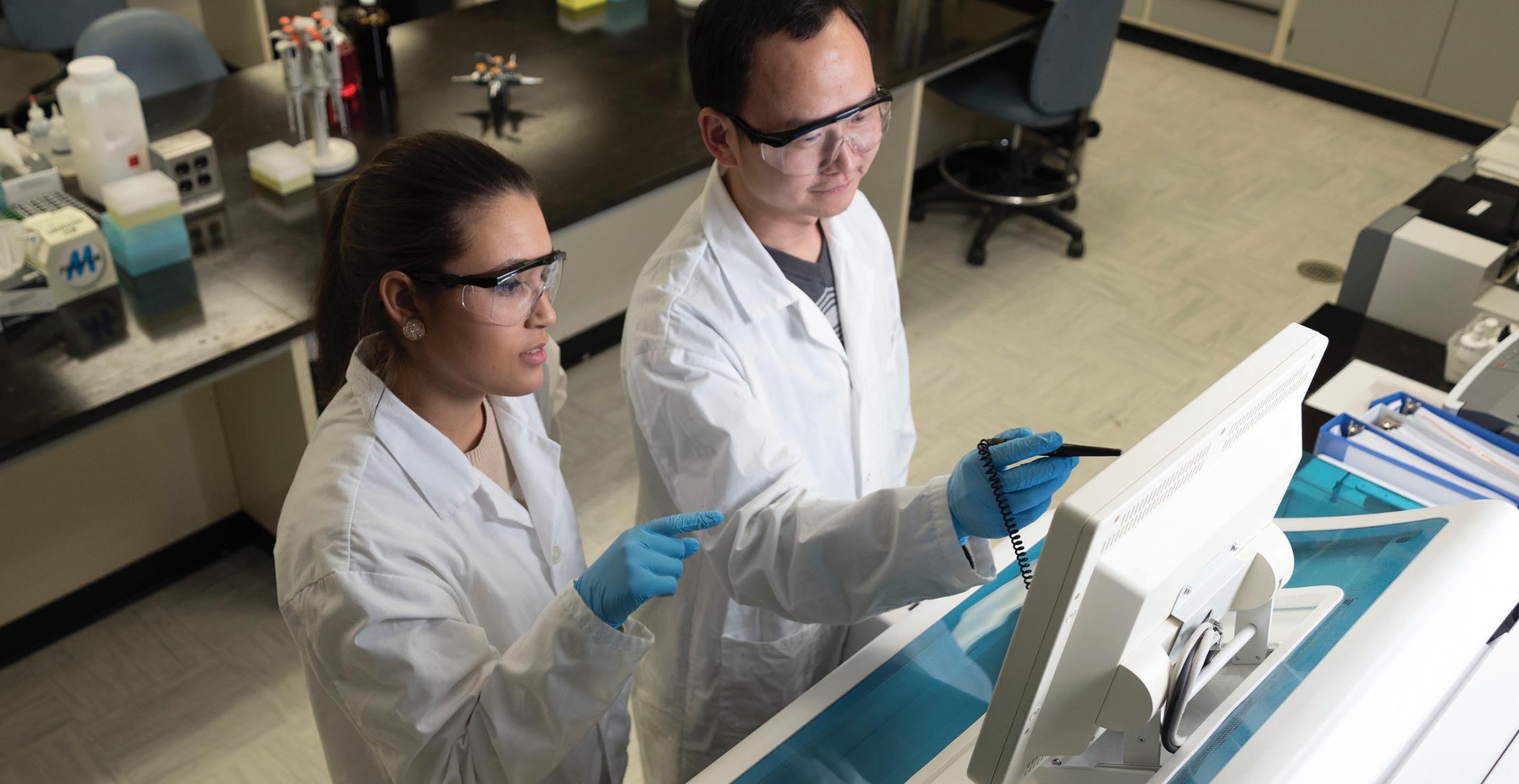
The broad training in many specialties results in excellent employment opportunities locally and across Canada. Many jobs are available in hospitals, research centres, clinics and private laboratories as well as the Canadian Armed Forces. A number of employment opportunities also exist with pharmaceutical companies and biotechnology research laboratories.
You can become a member of the Ordre professionnel des technologistes médicaux du Québec upon completion of the program. You can also become nationally certified by the Canadian Society for Medical Laboratory Science, which will allow you to be recognized anywhere in Canada as a medical technologist.
Some graduates continue their education at the university level in programs including Microbiology, Immunology, Genetics, Biochemistry, Laboratory Management and Medicine. Additional prerequisites may be required and, in some cases, advanced credit is given.
What do you need to apply?
■ A Diploma of Secondary Studies (DES) or academic background judged equivalent to the DES
■ Sec IV Mathematics – Technical & Scientific option or Science option 564-426 or 565-426 or Sec V Cultural, Social & Technical option 563-504
■ Sec V Chemistry 551-504
■ Sec V Physics 553-504
■ Interview*
■ Placement at College English 101 and Basic French 100 (testing may be required)
3040 Sherbrooke St. West Montreal, Quebec H3Z 1A4 dawsoncollege.qc.ca
What else should you know?
Once admitted to the program, students must:
■ pass a criminal record check
■ provide proof of a complete immunization record
Application Deadline March 1
LIST OF SPECIFIC COURSES
All students must also take General Education courses such as English, French, Humanities and Physical Education, in addition to complementary courses.
YEAR 1 • Term 1
■ Human Anatomy and Physiology
■ Quality Assurance for Clinical Laboratories
■ Laboratory Principles and Introduction to Hematology
■ Basic Techniques and Instrumentation
YEAR 1 • Term 2
■ Microorganisms and Disease 1
■ Applied Immunology
■ Clinical Chemistry 1
■ Descriptive Histology
YEAR 2 • Term 3
■ Specialized Biochemical Techniques
■ Microorganisms and Disease 2
■ Hemostasis
■ Clinical Chemistry 2
■ Applied Molecular Biology
YEAR 2 • Term 4
■ Clinical Hematology
■ Diagnostic Microbiology 1
■ Basic Histotechniques
■ Transfusion Practices 1
■ Clinical Chemistry 3
■ Procurement Internship (one week)
YEAR 3 • Term 5
Intensive 10 weeks
■ Special Histotechniques
■ Transfusion Practices 2
■ Professional Practice in the Healthcare
■ Introduction to Core Lab
■ Diagnostic Microbiology 2
YEAR 3 • Term 6
25-week clinical internship
■ Transfusion Science Internship
■ Histology/Molecular Biology Internship
■ Core Lab Internship
■ Clinical Microbiology Internship
■ Pharmacology for Biomedical Technologists (online)
visit www.dawsoncollege.qc.ca/biomedical-laboratory-technology
“
This program was an excellent stepping stone into my profession, training me with skills I will use every day in the workforce.
— Yousha A.
140.C0
The information contained in this document was accurate and complete at the time of printing. *For the most up-to-date and complete details,
73 72
RADIATION ONCOLOGY
What will you learn?
■ To participate in the healthcare process in the radiation oncology environment
■ To safely use ionizing radiation for the treatment of cancer and benign conditions
■ To educate patients and their families with respect to their radiation treatment process
■ To work effectively as part of a team of healthcare professionals
■ To ensure the well-being of patients by providing humanized care through cultural sensitivity
■ To establish a valuable patient relationship and provide treatment management within the scope of practice of a radiation oncology technologist
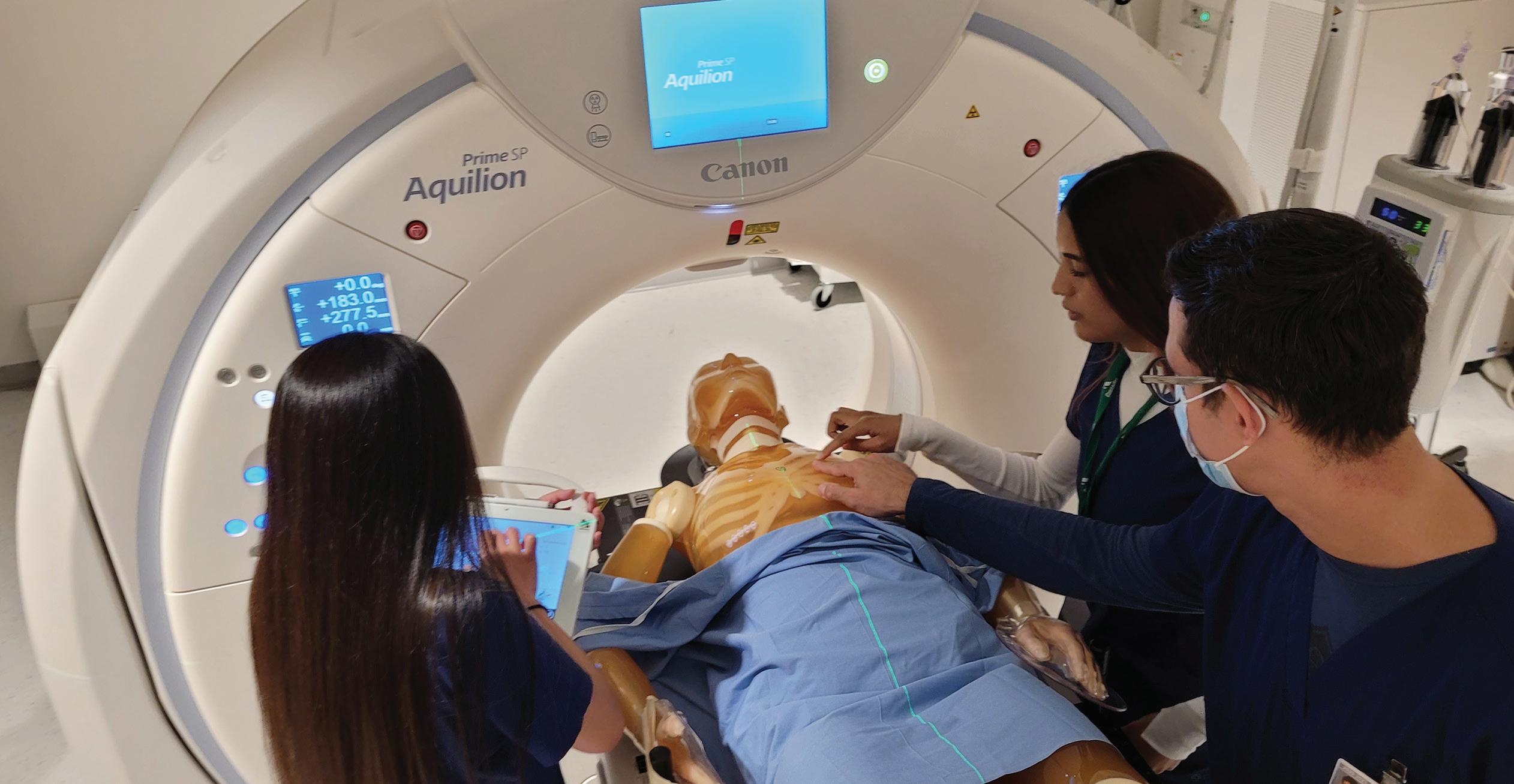
Where will this program lead you?
Graduates of the program often pursue careers as radiation oncology technologists in areas such as virtual planning, CT simulation, dosimetry and brachytherapy. Other options include employment as hospital administrators, commercial representatives, academic or clinical educators as well as researchers and faculty in higher education. Others continue their education at the university level in programs such as Biology and Physics. Additional prerequisites may be required in some cases.
3 YEARS
www.dawsoncollege.qc.ca/radiation-oncology
If you would like to:
Prepare for a rewarding career as a healthcare professional
Learn to treat patients using sophisticated equipment
Learn in small class settings with one-on-one attention from teachers
Plan and administer treatments using specialized apparatus in radiation oncology
Experience clinical practice in the workplace during your third-year stage
Study with modern equipment that simulates hospital equipment
Then the Radiation Oncology Program could be for you.
Certification
Ordre des technologues en imagerie médicale, en radiooncologie et en électrophysiologie médicale du Québec Canadian Association of Medical Radiation Technologists
The Radiation Oncology Program will prepare you with the knowledge and skills necessary to work as a radiation oncology technologist. As a healthcare professional, you will care for patients undergoing radiation therapy over the course of their treatment. You will learn to adapt to a variety of work environments and rapidly changing technology. Students will graduate with the ability to use radiation oncology to cure or improve the quality of life of patients.
LIST OF SPECIFIC COURSES
What do you need to apply?
■ A Diploma of Secondary Studies (DES) or academic background judged equivalent to the DES
■ Sec V Mathematics - Technical & Scientific option or Science option 564-506 or 565-506
■ Sec IV Environmental Science & Technology or Environmental Science 558-404 or 558-402
■ Placement at College English 101 and Basic French 100 (testing may be required)
■ Interview*
*For the most up-to-date and complete details, visit www.dawsoncollege.qc.ca/radiation-oncology
What else should you know?
Once admitted to the program, students must:
■ Complete 24 hours of volunteer work in a care-centred environment
■ provide proof of a complete immunization record
Upon successful completion of a certification exam, you will become a member of the Ordre des technologues en imagerie médicale, en radio-oncologie et en électrophysiologie médicale du Québec. You can also become nationally certified by the Canadian Association of Medical Radiation Technologists, which will allow you to be recognized anywhere in Canada as a radiation therapist.
Application Deadline March 1
All students must also take General Education courses such as English, French, Humanities and Physical Education, in addition to complementary courses.
YEAR 1 YEAR 2 YEAR 3
Term 1 Term 3 Term 5
■ Introduction to the Profession
■ Biological Systems in Radiation Oncology
■ Patient Care 1
■ Anatomy in Radiation Oncology
■ Radiation Effects and Safety 1
■ Apparatus in Radiation Oncology
■ Principles of Oncology 2
■ CT Simulation and Treatment Planning
■ Internship 2
■ Internship 3
Term 2 Term 4 Term 6
■ Fundamentals of Radiation Oncology
■ Treatment Application 1
■ Principles of Oncology 1
■ Internship 1
■ Patient Care 2
■ Applied Dosimetry
■ Treatment Application 2
■ Radiation Effects and Safety 2
■ Internship 4
■ Internship 5
■ Reflection on Professional Practice
The teaching staff and stateof-the-art facilities, paired with inspiring clinical experiences, helped me become a skilled and empathic clinician.
“
— Peilong Z.
142.D0
information contained in this document was accurate and complete at the time of printing.
The
3040 Sherbrooke St. West Montreal, Quebec H3Z 1A4 dawsoncollege.qc.ca
75 74
MEDICAL ULTRASOUND TECHNOLOGY
What will you learn?
■ To understand the fundamentals of ultrasound equipment and quality control
■ To care for patients
■ To develop communication skills
■ To adapt to various clinical and patient settings
■ To interpret exam requisitions and clinical information
■ To acquire optimal ultrasound images and videos
■ To perform various types of ultrasound examinations
■ To collaborate in an interdisciplinary healthcare team
■ To assist in various medical interventional procedures
■ To stay current on developments in technology within the profession
■ To engage in continuous professional development and transfer of knowledge to others
Where will this program lead you?
Medical ultrasound technologists are ready for work in Quebec at the end of their program. They can work in the following sub-sectors of medical ultrasound technology: abdominal, pelvic, surface, obstetrical, musculoskeletal, cardiac, vascular and breast ultrasound.

Possible Workplaces:
■ CIUSSS
■ Community hospitals
■ Medical clinics
■ University hospitals
LIST OF SPECIFIC COURSES
3 YEARS
If you would like to:
Learn through hands-on experience
Work in a fast-paced medical environment
Study biology and physics
Show your inherent empathy with patients
Develop strong communication skills as part of a team
Take responsibility, be autonomous and show initiative
Make use of your natural curiosity and ability to adapt
Work in a physically demanding profession
Then the Medical Ultrasound Technology Program could be for you.
Ultrasound technologists are in high demand because their work is essential for diagnosing patients and developing treatment plans. They perform ultrasound examinations and acquire images, videos and information, which they communicate to a specialized physician. As part of an interdisciplinary team, they assist in medical interventional procedures. Seeing a developing fetus for the first time is an exciting part of the job in the obstetrics specialty. Other subsectors include cardiac and abdominal ultrasonography. At Dawson, Medical Ultrasound Technology students will enjoy hands-on learning in a stimulating environment, including state-of-the-art equipment, with a small group and one-onone support from teachers. This program launched in 2021. It is the only program of its kind offered in English in Quebec.
What do you need to apply?
■ A Diploma of Secondary Studies (DES) or academic background judged equivalent to the DES
■ Sec IV Mathematics - Cultural, Social & Technical option 563-414
■ Sec IV Science & Technology or Applied Science & Technology 555-444 or 557-416
■ Placement at College English 101 and Basic French 100 (testing may be required)
■ Video statement*
*For the most up-to-date and complete details, visit www.dawsoncollege.qc.ca/medicalultrasound-technology
What else should you know?
■ Clinical training complements the learning on campus
■ Students will benefit from Dawson’s innovative Interprofessional Education (IPE) approach with students from Dawson’s five other medical technology programs
■ Once admitted to the program, students must:
■ pass a criminal record check
■ provide proof of a complete immunization record
■ English and French communication skills are essential
■ As a member of a professional order, the Ultrasound Technologist must obtain educational credits each year to maintain their professional license
Application Deadline
March 1
All students must also take General Education courses such as English, French, Humanities and Physical Education, in addition to complementary courses.
YEAR 1 YEAR 2 YEAR 3
Term 1 Term 3 Term 5
■ Anatomy and Physiology 1
■ Medical Ultrasound: Fundamentals of the Profession
■ Patient Care, Health and Safety
■ Ultrasound Instrumentation and Imaging Modalities
■ Physics of Medical Ultrasound
■ Obstetrical and Gynecological Ultrasound I
■ Abdominal, Pelvic and Surface Ultrasound 2
■ Cardiac Ultrasound 1
■ Breast and Surface Ultrasound
■ Clinical 1
■ Clinical 2
Term 2 Term 4 Term 6
■ Anatomy and Physiology 2
■ Ultrasound Instrumentation and Quality Control
■ Abdominal, Pelvic and Surface Ultrasound 1
■ Medical Records of Ultrasound Patients
■ Patient Care and Pharmacology
■ Communication and Wellbeing in the Medical Ultrasound Profession
■ Obstetrical and Gynecological Ultrasound 2
■ Vascular Ultrasound
■ Cardiac Ultrasound 2
■ Muscoloskeletal Ultrasound
■ Continuous Improvement of Ultrasound Practice
■ Clinical 3
■ Clinical 4
■ Integration and Consolidation
142.G0 The information contained in this document was accurate and complete at the time of printing. 3040 Sherbrooke St. West Montreal, Quebec H3Z 1A4 dawsoncollege.qc.ca
77 76
DIAGNOSTIC IMAGING TECHNOLOGY
What will you learn?
■ To operate state-of-the-art equipment, digital imaging technology and software to perform medical imaging examinations and procedures
■ To produce high quality images of the human body to assist physicians with the diagnosis and subsequent treatment of injury and disease
■ To develop analytical and critical thinking skills
■ To provide care to patients before, during and after medical imaging procedures
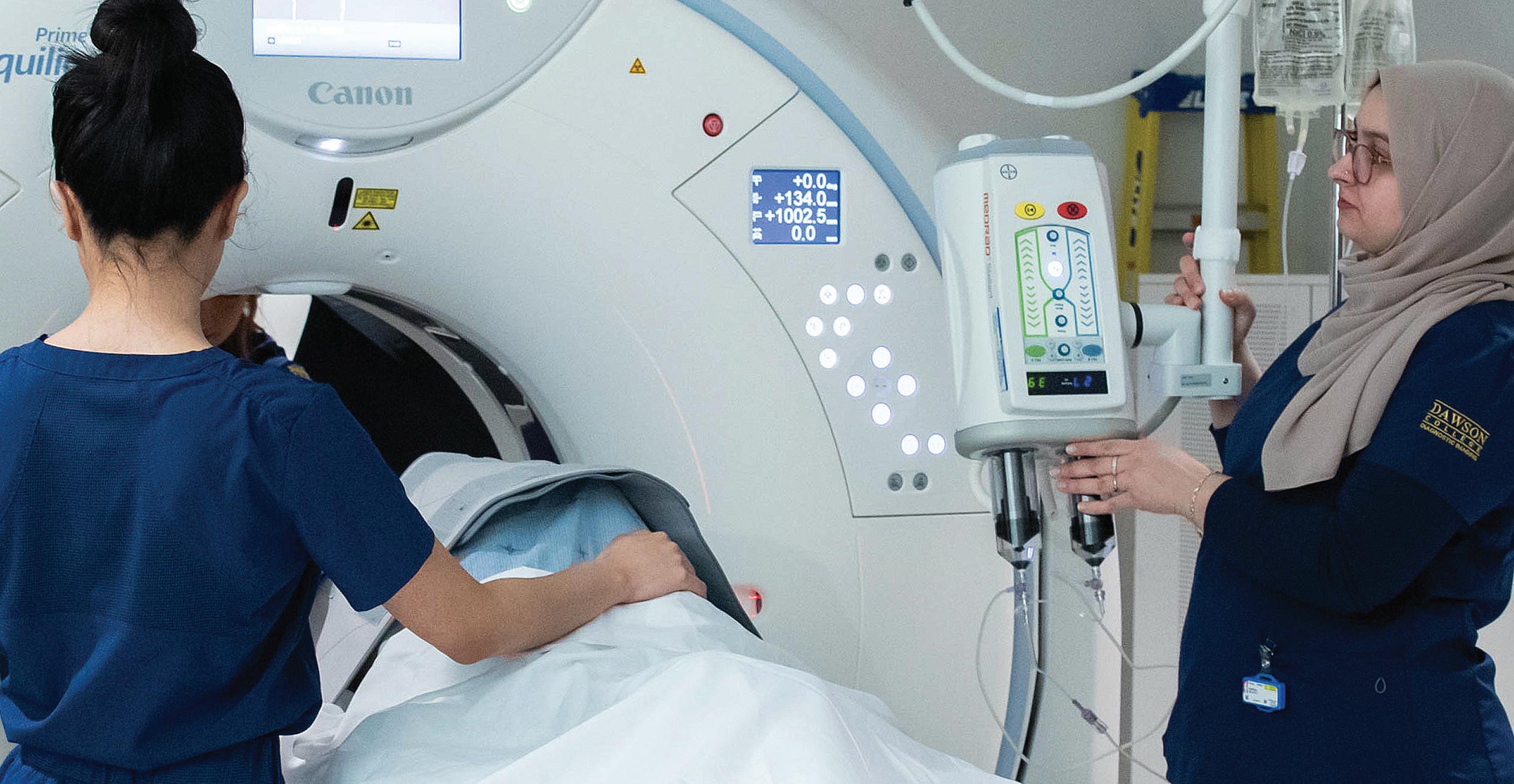
■ To work alongside physicians and assist them with complex interventional procedures
■ To perform professional duties with empathy and autonomy
■ To function as an essential member of a collaborative healthcare team that provides professional medical care and support to patients and families
■ To employ safe work habits
■ To practice stress management and self-care
Where will this program lead you?
Possible careers:
■ Medical Imaging Technologist (MIT) in hospitals and private clinics
■ Management and coordination of Medical Imaging Departments
■ Application Specialist for Imaging Equipment
www.dawsoncollege.qc.ca/diagnostic-imaging
If you would like to:
Dedicate your career to helping people
Work in a fast-paced medical field
Understand the human body and how it functions
Take anatomical images that are essential to the diagnosis and treatment of injury and disease
Develop strong communication, observation and interpersonal skills
Analyze and solve problems
Adapt to evolving technology
Perform physically demanding tasks
Be part of an interdisciplinary healthcare team
Then the Diagnostic Imaging Technology Program could be for you.
3 YEARS
Certification
Ordre des technologues en imagerie médicale, en radiooncologie et en électrophysiologie médicale du Québec
Canadian Association of Medical Radiation Technologists
An exciting and gratifying career as a healthcare professional can be yours when you complete the Diagnostic Imaging Technology Program, totally updated and revised in 2020. You will be qualified to work as a Medical Imaging Technologist (MIT) in the Medical Imaging and Emergency/ Trauma departments of hospitals as well as in the Operating Room. Training in using specialty imaging modalities such as Mobile Radiography, Radioscopy, CT and MRI is also part of the program. Through hands-on learning both on campus and in health facilities, you will be prepared to provide an optimal service and experience to the patient.
■ Career in Sales of Medical Imaging Equipment and related products
■ PACS (Picture Archiving and Communication System) administration
■ Medical research
■ Teaching
■ Canadian Armed Forces Health Services team
Some graduates choose to pursue university studies in management programs or science programs such as advanced certification in specialized imaging modalities.
What do you need to apply?
■ A Diploma of Secondary Studies (DES) or academic background judged equivalent to the DES
■ Sec IV Mathematics - Cultural, Social & Technical option
563-414
■ Sec IV Environmental Science & Technology or Environmental Science 558-404 or 558-402
■ Placement at College English 101 and Basic French 100 (testing may be required)
What else should you know?
■ Once admitted to the program, students must:
■ pass a criminal record check
■ provide proof of a complete immunization record
■ The Diagnostic Imaging Technology Program has computer workstations for each student on campus that are networked and equipped with software simulation tools found in the specialty modalities such as CT and MRI
■ The program offers clinical stages in different hospital/ clinical sites that provide the students with hands-on training
■ Graduates must pass the provincial order (OTIMROEPMQ) exam and must obtain the French proficiency (OQLF) requirement in order to receive a license to practice in Quebec
■ Graduates can pass the national (CAMRT) certification exam to practice elsewhere in Canada
■ As a member of a professional order or association, the Medical Imaging Technologist must obtain educational credits each year, to maintain the professional license and continuously update their education and professional skills
■ The Diagnostic Imaging profession is challenging on a physical level thus stamina and manual dexterity are essential in this field
Application Deadline
March 1
LIST OF SPECIFIC COURSES
All students must also take General Education courses such as English, French, Humanities and Physical Education, in addition to complementary courses.
Year 1 • Term 1 Year 1 • Term 2
■ Medical Imaging –Fundamentals of the Profession
■ Physics of Medical Imaging
■ Radiographic Anatomy
■ Patient Care and Health & Safety 1
■ Image Formation & Management Systems
■ Biology of Medical Imaging
■ Radiographic Procedures 1
■ Radiographic Procedures 2
■ Patient Care and Health & Safety 2
■ Medical Imaging Instrumentation
■ Clinical Practice 1 (INTENSIVE)
Year 2 • Term 3 Year 2 • Term 4
■ Computed Tomography 1
■ Magnetic Resonance Imaging 1
■ Radiographic Procedures 3
■ Radiobiology & Protection
■ Imaging & Interventional Procedures 1
■ Letter of intent*
■ Interview*
*For the most up-to-date and complete details, visit www.dawsoncollege.qc.ca/diagnosticimaging
■ Computed Tomography 2
■ Magnetic Resonance Imaging 2
■ Radiographic Procedures 4
■ Imaging & Interventional Procedures 2
Year 3 • Term 5 Year 3 • Term 6
■ Clinical Practice 2
■ Clinical Practice 3
■ Professional Integration 1
■ Clinical Practice 4
■ Clinical Practice 5
■ Professional Integration 2
142.H0
“
Being able to work on different specialties within one program gave me all the necessary skills to be a competent technologist.
— Alicia M.
The information contained in this document was accurate and complete at the time of printing. 3040 Sherbrooke St. West Montreal, Quebec H3Z 1A4 dawsoncollege.qc.ca
79 78
Photo by Grace Kennedy
PHYSIOTHERAPY TECHNOLOGY
Where will this program lead you?
Graduates of the Physiotherapy Technology Program often pursue careers as physiotherapy technologists in hospitals, CLSCs, rehabilitation centres, private physiotherapy clinics and other organizations.
Other graduates choose to continue their studies at the university level in programs such as Physiotherapy, Kinesiology, Athletic Therapy and Physical Education. These programs sometimes require additional prerequisites.
What do you need to apply?
■ A Diploma of Secondary Studies (DES) or academic background judged equivalent to the DES
■ Sec V Physics 553-504
■ Eligibility to take College English 603-101 and Basic French 602-100 (testing may be required)
■ Video statement*
Completion of the prerequisites within the last 5 years is considered an asset.
*For the most up-to-date and complete details, visit www.dawsoncollege.qc.ca/physiotherapytechnology
What else should you know?
Once admitted to the program, students must:
■ have a clean criminal record check
■ provide proof of a complete immunization record
As a student in this program, you will participate in a clinical component during which you will work with patients in hospitals and clinics under professional supervision. These clinical placements will take place during the second and third years of the program.
Upon graduation with a DEC in Physiotherapy Technology, graduates are required to apply to the Ordre professionnel de la physiothérapie du Québec to obtain a license to practice as a Physiotherapy Technologist.
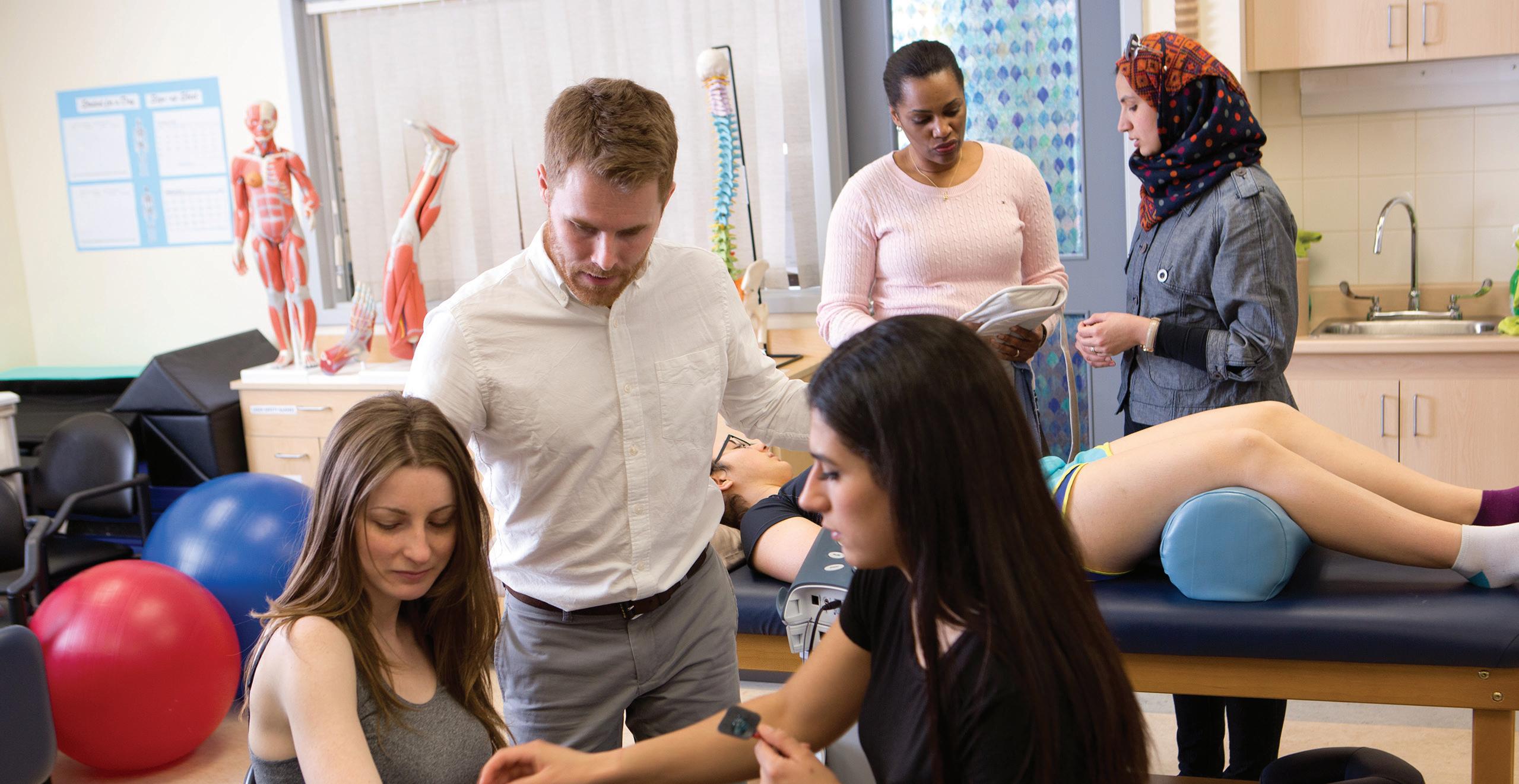
Application Deadline
March 1
3 YEARS
www.dawsoncollege.qc.ca/physiotherapy-technology
If you would like to:
Learn about how the human body works
Help people improve their quality of life
Work in a social and motivating healthcare environment
Study in a modern therapeutic setting
Acquire experience in clinics and hospitals while completing your DEC
Then the Physiotherapy Technology Program could be for you.
Certification
Ordre professionnel de la physiothérapie du Québec
The Physiotherapy Technology Program will prepare you to work with physicians and physiotherapists to help patients recover from injury and illness. While studying to be a healthcare provider, you will learn hands-on clinical skills that will prepare you for work in a variety of settings. You will get to apply your knowledge while at Dawson by treating community members in our in-house clinic or at affiliated centres.
What will you learn?
■ To improve a patient’s strength, movement and mobility with the goal of maximizing function and overall well-being
■ To engage in problem solving, critical thinking and clinical judgement
■ To multitask and adapt to unforeseen circumstances
■ To employ patient intervention techniques using exercise, hands-on techniques and electrical modalities
■ To build trusting relationships based on empathy
LIST OF SPECIFIC COURSES
All students must also take General Education courses such as English, French, Humanities and Physical Education, in addition to complementary courses. YEAR 1
■ Introduction to the Profession
■ Physics for Physiotherapy Technology
■ Anatomy I
■ Human Biology I
■ Management: Orthopedic Conditions I
■ Management: Orthopedic Conditions II
■ Management: Optimizing Function & Autonomy
■ Clinical Education I
■ Internship I
■ Current Topics in Physiotherapy Technology
■ Management: Geriatric Profiles
■ Therapeutic Relations
■ Human Biology II
■ Kinesiology
■ Anatomy II
■ Principles of Electrophysical Agents
■ Principles of Data Collection & Intervention
■ Management: Orthopedic Conditions III
■ Management: Neurological Conditions
■ Management: Cardiovascular & Respiratory Conditions
■ Communication & Interpersonal Interaction
■ Clinical Education II
3040 Sherbrooke St. West Montreal, Quebec H3Z 1A4 dawsoncollege.qc.ca
■ Internship II
■ Integration of Case Management
■ Health Promotion
“
This program allowed me to see the bigger picture of how the body works and how we can help heal it.
— Jasmine R.
144.A1
The information contained in this document was accurate and complete at the time of printing.
YEAR
Term 1 Term 3 Term 5
YEAR 2
3
Term
Term 4 Term 6
2
81 80
www.dawsoncollege.qc.ca/nursing
If you would like to:
Provide skilled care to restore and maintain the health and well-being of your patients
Teach others how to maintain or restore their health
Accompany people and their families in the most critical moments of their lives: birth, major illness, death
Collaborate with members of a healthcare team
Work in various clinical settings including hospitals and community clinics
Enjoy a career that offers opportunities to try new things and keep learning
Then the Nursing Program could be for you.
3 YEARS
Certification
Ordre des infirmières et infirmiers du Québec (OIIQ)
Your meaningful career in nursing starts with a clinical placement during the first semester of the Nursing Program at Dawson College. Throughout the program, you will experience hands-on learning in Dawson’s labs and high-tech simulation rooms and during weekly clinical placements. Students practice their skills on Dawson’s high-fidelity mannequins that breathe and react to interventions.
Upon graduation, nursing students will have received training in many different clinical settings including acute care, longterm care, pediatric units, and obstetrical units. The program culminates with a clinical internship in a hospital setting during the sixth semester. Nursing students are paired with a preceptor for 32 hours per week.
What will you learn?
■ To establish professional relationships with patients, peers, and teachers
■ To deal with social and cultural realities related to healthcare
■ To teach and assist patients in the maintenance and improvement of their health
■ To establish links between pharmacology and a clinical situation
■ To collect and analyze data
■ To plan, implement and evaluate nursing care
■ To intervene with patients requiring medical-surgical, postnatal, pediatric, psychiatric, geriatric and ambulatory care
■ To perform nursing tasks: taking blood pressure, preparing medications, doing injections, managing wounds, conducting assessments for newborns, mothers and children
Where will this program lead you?
Graduates are encouraged to continue their studies at the university level. McGill University offers Quebec CEGEP Nursing graduates the two-year Bachelor of Nursing (Integrated) (BNI) Program.
After completing the Dawson Nursing Program and passing the Ordre des infirmières et infirmiers du Québec (OIIQ) license exam, graduates can work in a variety of nursing jobs in hospitals and health centres.
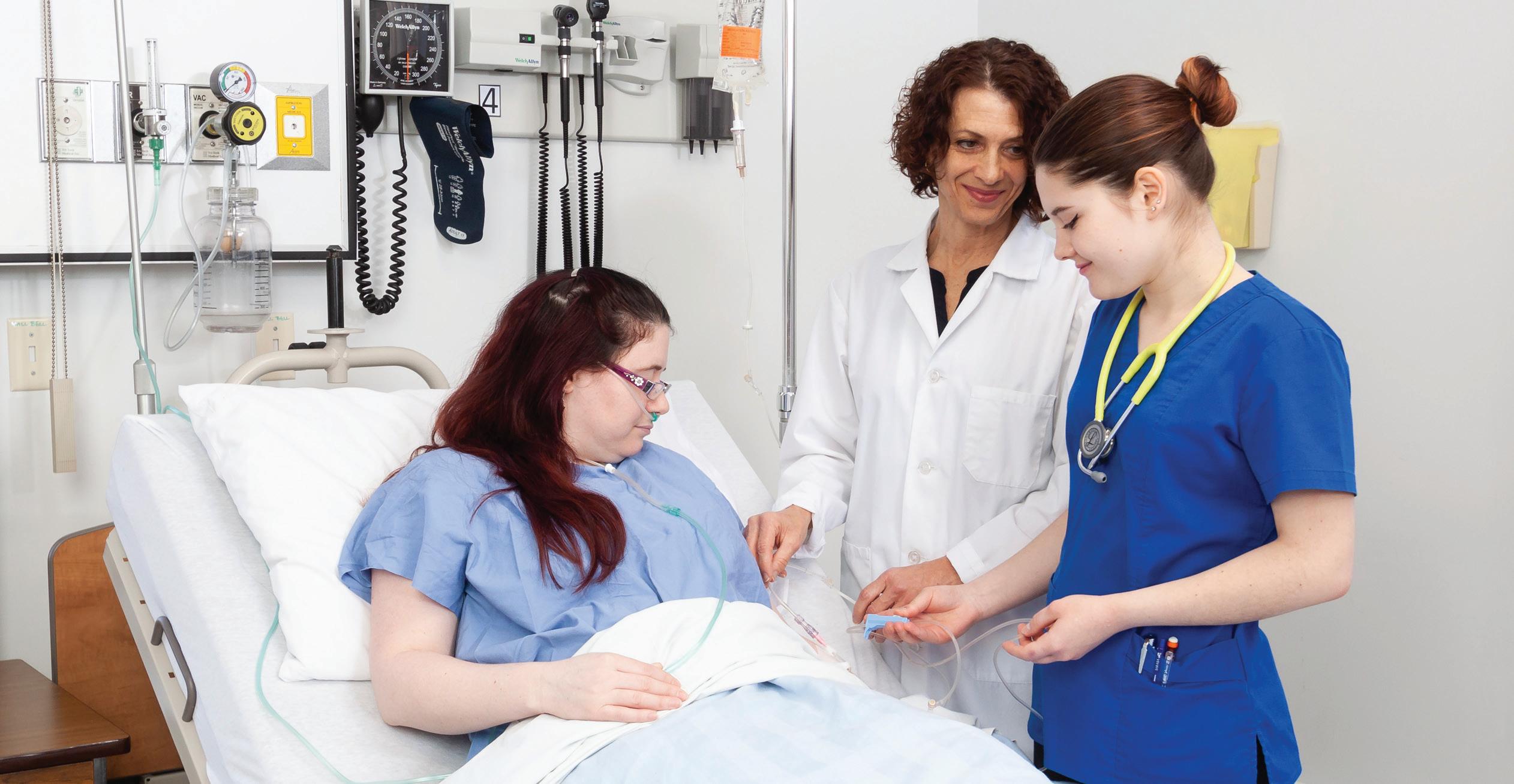
What do you need to apply?
■ A Diploma of Secondary Studies (DES) or academic background judged equivalent to the DES
■ Sec IV Environmental Science & Technology or Environmental Science 558-404 or 558-402
■ Sec V Chemistry 551-504
■ Secondary IV enriched Mathematics or Secondary V Mathematics are considered assets
■ Placement at College English 101 (testing may be required)
■ Letter of intent*
LIST OF SPECIFIC COURSES
All students must also take General Education courses such as English, French, Humanities and Physical Education, in addition to complementary courses.
YEAR 1
Term 1 Term 2
■ Human Body for Nurses I
■ Introduction to Nursing
■ Human Body for Nurses II
■ Nursing the Hospitalized Adult
■ Basic Health Assessment
■ Psychology: Human Development
YEAR 2
Term 3 Term 4
■ Human Body for Nurses III
■ Collaborative Therapies I
■ Maternal/Child Health OR Medical/Surgical Nursing
YEAR 3
■ Human Body for Nurses IV
■ Collaborative Therapies II
■ Medical/Surgical Nursing OR Maternal/Child Health
Term 5 Term 6
■ Promoting Autonomy
■ Sociology of Healthcare
DID YOU KNOW?
■ Completion of the science prerequisites within the last 5 years is considered an asset
*For the most up-to-date and complete details, visit www.dawsoncollege.qc.ca/nursing
What else should you know?
■ Once admitted to the program, students must:
■ complete the O.I.I.Q. nursing student registration application
■ pass a criminal record check
■ provide proof of a complete immunization record
■ You can complete the program in three or four years
■ There are two pathways (both five years full-time) to complete a Bachelor’s degree in Nursing in Quebec:
1. Take a DEC in Nursing at CEGEP (3 years) and then do a Bachelor’s in Nursing (2 years) = 5 years to obtain a BNI
2. Take a DEC in Science (2 years) and then do a Bachelor’s of Science in Nursing (3 years) = 5 years to obtain a B.Sc.(N)
■ After completing the DEC in Nursing, graduates must write the license exam given by the Ordre des infirmières et infirmiers du Québec (OIIQ) to obtain their registered nurse’s license
■ Internship
Students entering this program are eligible for Bourses Perspective scholarships. These $1,500 scholarships will be awarded to students after each successful full-time term, for a total of $9,000 for a three-year program.
Information about how to apply can be found online by searching for “Québec Perspective Scholarship Program” in your browser.
3040 Sherbrooke St. West Montreal, Quebec H3Z 1A4 dawsoncollege.qc.ca
■ Graduates who obtained their post-secondary education outside of Quebec may have to pass a French test in order to obtain their RN license for Quebec
Application Deadline
March 1 The
“
NURSING 180.A0
I chose to be a nurse because it is satisfying to contribute to the restoration of someone’s health.
— Wedcher R.
information
in this document was accurate and complete at the time of printing.
contained
83 82
LABORATORY TECHNOLOGY (ANALYTICAL CHEMISTRY)
Where will this program lead you?
Graduates of the Laboratory Technology (Analytical Chemistry) Program often pursue careers as laboratory analysts, chemical research technologists, quality control technicians, biochemistry technologists or chemical engineering technologists. These sectors have a high demand for graduates of the program.
Other graduates choose to continue their studies at the university level in Chemistry. In this case, some of your Dawson courses may be credited.
What do you need to apply?
■ A Diploma of Secondary Studies (DES) or academic background judged equivalent to the DES
■ Sec V Mathematics - Technical & Scientific option or Science option 564-506 or 565-506
■ Sec V Chemistry 551-504
What else should you know?
As a student in this program, you will have access to industrylevel chemistry labs located in a renovated area of the college. The program offers courses in active learning classrooms, spaces in which students can share and engage using interactive boards in small groups.
Application Deadline March 1
3 YEARS
www.dawsoncollege.qc.ca/laboratory-technology
If you would like to:
Learn in a modern, hands-on laboratory setting using the latest technology and specialized computer software
Perform chemical and biochemical analyses with advanced instrumental methods
Carry out physicochemical measurements and microbiological testing
Learn to collect, analyze and interpret scientific data and reports
Help create products that are available in the marketplace
Then the Laboratory Technology (Analytical Chemistry) Program could be for you.
The laboratories are very well equipped. The teachers and staff are amazing, and the program is very closely connected to the industry which includes remunerated internships.
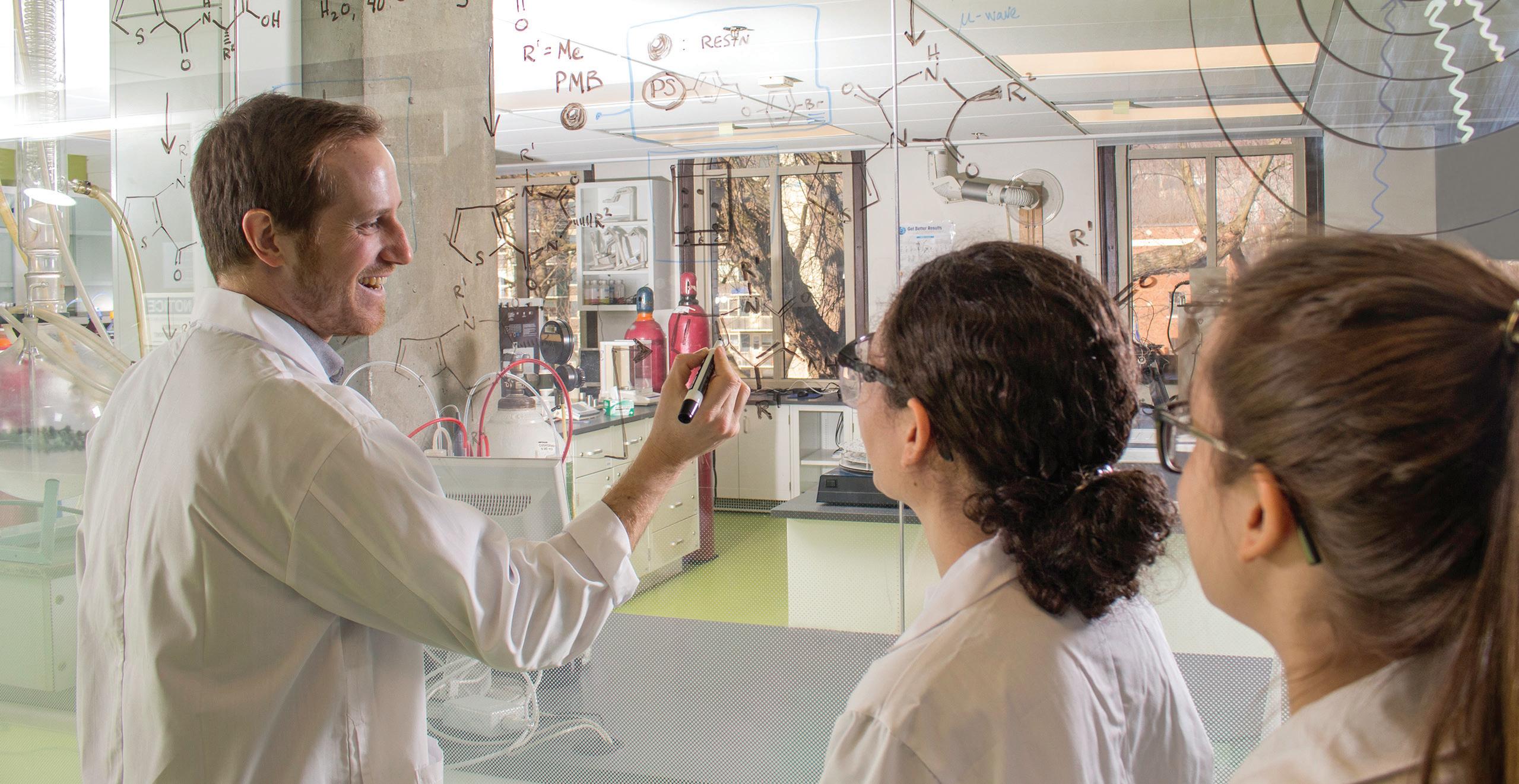
— Carl B.
The Laboratory Technology (Analytical Chemistry) Program will prepare you to work in fields such as pharmaceuticals, cosmetics, environmental testing, oil testing, quality control, government and teaching labs among others. You will study in an engaging laboratory environment with teachers who can deliver one-on-one instruction. You will participate in internships as part of the program. You may also qualify for paid internships that alternate with your studies (called a Work-Study Option or Alternance Travail-Études) and accumulate up to six months of industrial work experience prior to graduation.
What will you learn?
■ To use conventional and modern instrumental methods in analytical chemistry
■ To apply key principles of quality assurance systems in a chemical laboratory
■ To collect and prepare analytical samples and standard chemical solutions
■ To use chromatographs, auto-analyzers, spectrophotometers and other instruments
■ To test for harmful micro-organisms found in industrial samples
DID YOU KNOW?
Students entering this program are eligible for Bourses Perspective scholarships. These $1,500 scholarships will be awarded to students after each successful full-time term, for a total of $9,000 for a three-year program.
Information about how to apply can be found online by searching for “Québec Perspective Scholarship Program” in your browser.
notes
LIST OF SPECIFIC COURSES
All students must also take General Education courses such as English, French, Humanities and Physical Education, in addition to complementary courses.
■ Applied Mathematics
■ Introduction to Statistical Methods
■ General Chemistry
■ Introduction to Laboratory Technology
■ Basic Laboratory Techniques
■ Calculus I
■ Chemistry of Solutions
■ Introduction to Analysis Techniques
■ Applied Optics
■ Introduction to Organic Techniques
■ Analytical Spectroscopy
■ Basic Circuits and Instrumentation
■ Samples in Analytical Chemistry
■ Advanced Analytical Techniques
■ Electrochemistry
■ Organic Analysis
■ Physicochemical Measurements
■ Microbiology I
■ Instrumental Separations
■ Organic Chemistry
■ Internship
■ Advanced Analytical Techniques II
■ Biomolecules
■ Chemical Processes
■ Laboratory Technology Project
“
210.A0
The information contained in this document was accurate and complete at the time of printing.
Sherbrooke St. West Montreal,
H3Z
3040
Quebec
1A4 dawsoncollege.qc.ca
YEAR 1 YEAR 2 YEAR 3 Term 1 Term 3 Term 5
Term 2 Term 4 Term 6
85 84
CIVIL ENGINEERING TECHNOLOGY
What will you learn?
■ To prepare engineering drawings using both digital and traditional drafting techniques
■ To develop project management skills such as construction schedules and cost control
■ To assess the environmental impact of various construction projects
■ To perform basic design calculations for steel, concrete and wood structures
■ To plan, design, construct and manage various infrastructure projects
■ To estimate and prepare construction proposals and bids
Where will this program lead you?
Graduates of the program often pursue careers as civil engineering technologists in areas such as engineering design offices, municipalities, construction companies (as general & specialty contractors) and in the manufacturing and sales of engineering materials. There is strong demand for graduates in the field and the long-term outlook for employment opportunities is positive.
Other graduates continue their education at the university level in Engineering, where they enter undergraduate programs with the advantage of having a great deal of practical engineering experience, which can only be obtained in a technical program like Civil Engineering Technology.
3 YEARS
www.dawsoncollege.qc.ca/civil-engineering-technology
If you would like to:
Prepare for a rewarding career as a civil engineering technologist
Learn in a hands-on setting in small class sizes
Supervise construction site operations
Analyze civil engineering projects
Learn about environmental engineering
Train for a career in a thriving industry
Then the Civil Engineering Technology Program could be for you.
Certification
Ordre des technologues professionnels du Québec (OTPQ)
The Civil Engineering Technology Program will prepare you with the knowledge and skills necessary to work as a Civil Engineering Technologist. You will learn to interpret engineering drawings and estimate quantities and workforce costs, materials and equipment required for construction projects. You will acquire surveying skills, evaluate the condition of infrastructure, design and layout of existing structures and new rehabilitation projects. In a province undergoing massive investment in renewal, your expertise will help make a difference in the safety and efficiency of cities’ infrastructure.
LIST
What do you need to apply?
■ A Diploma of Secondary Studies (DES) or academic background judged equivalent to the DES
■ Sec V Mathematics - Technical & Scientific option or Science option 564-506 or 565-506
■ Sec IV Environmental Science & Technology or Environmental Science 558-404 or 558-402
What else should you know?
Students are qualified as Civil Engineering Technologists and are eligible for membership in the Ordre des technologies professionnels du Québec (OTPQ).
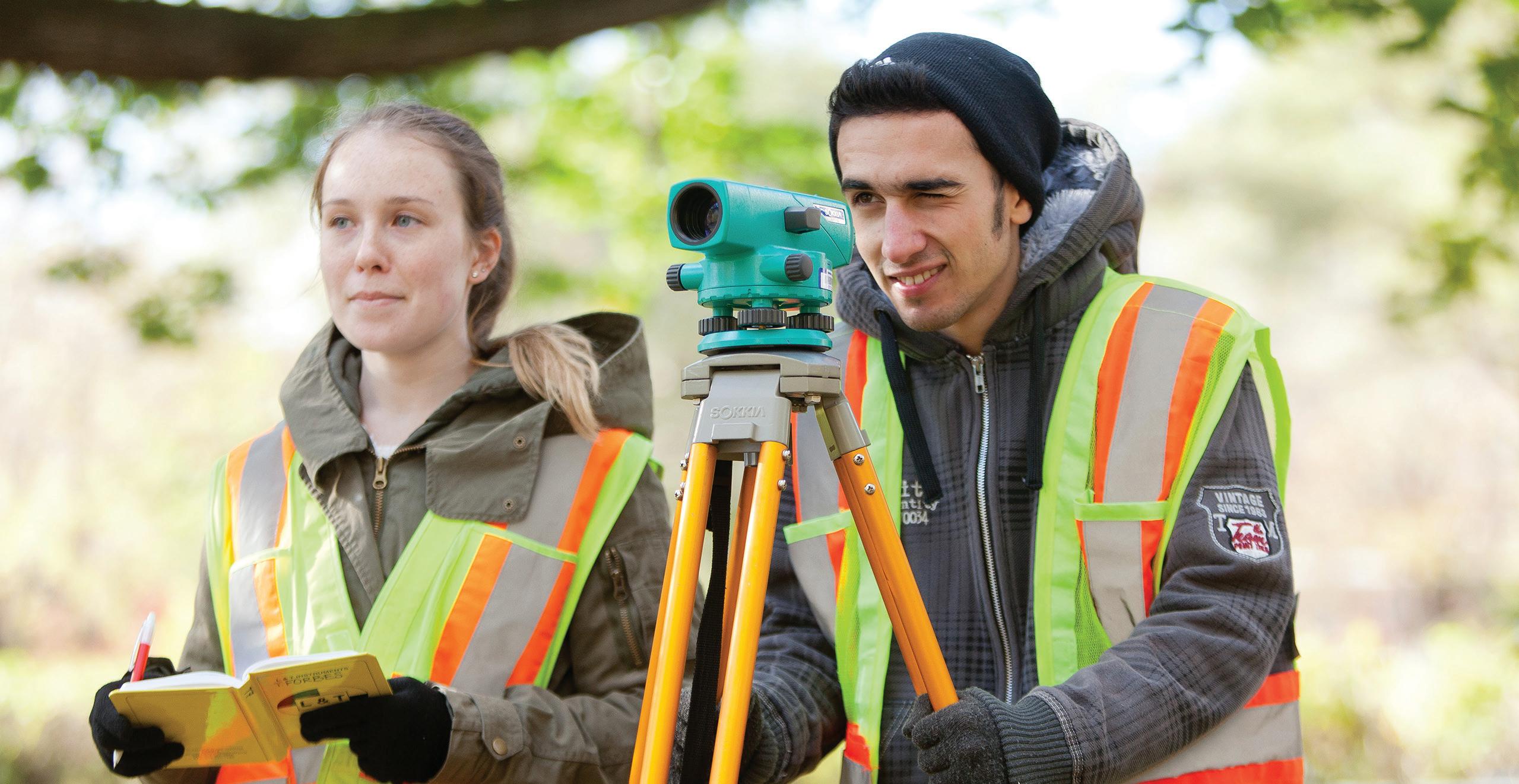
Application Deadline
March 1
DID YOU KNOW?
Students entering this program are eligible for Bourses Perspective scholarships. These $1,500 scholarships will be awarded to students after each successful full-time term, for a total of $9,000 for a three-year program.
Information about how to apply can be found online by searching for “Québec Perspective Scholarship Program” in your browser.
All students must also take General Education courses such as English, French, Humanities and Physical Education, in addition to complementary courses.
■
■ Health and Safety
■ Technology of Aggregates
■ Civil Engineering Physics II
■ Civil Engineering Drawings II
■ Concrete
■ Specifications
■ Municipal Engineering I
■ Estimating II
■ Project Management I
■ Roads I
■ Reinforced Concrete
■ Stage Evaluation
■ Soils II
■ Physical Environment
Term 2 Term 4 Term 6
■ Civil Engineering Physics I
■ Soils I
■ Construction II
■ Surveying II
■ Estimating I
■ Bituminous Mix
■ Structural Analysis
■ Stage Preparation
■ Municipal Engineering II
■ Steel Structures
■ Wood Structures
■ Inspections
■ Roads II
■ Building Systems
■ Project Management II
■ Engineering & Environment
“
Being a Civil Engineering Technology student at Dawson doesn’t only mean lectures and exams. It also means great friends, teachers, services and activities.
— Jahn S.
221.B0
The information contained in this document was accurate and complete at the time of printing. 3040 Sherbrooke St. West Montreal, Quebec H3Z 1A4 dawsoncollege.qc.ca
OF SPECIFIC COURSES
YEAR 1 YEAR 2 YEAR 3 Term 1 Term 3 Term 5
Introduction
Mathematics
to Applied
Drawings I
■ Civil Engineering
■ Construction I
I
■ Surveying
87 86
MECHANICAL ENGINEERING TECHNOLOGY
What do you need to apply?
■ A Diploma of Secondary Studies (DES) or academic background judged equivalent to the DES
■ Sec IV Mathematics – Technical & Scientific option or Science option 564-426 or 565-426 or Sec V Cultural, Social & Technical option 563-504
■ Sec V Physics 553-504
What else should you know?
As a student in Mechanical Engineering Technology, you will choose either the Mechanical Design or the Automated Manufacturing option for the final year of the program. Students often find summer internships due to steady demand from local industry. In addition to being recognized across Canada, graduates can work in the U.S.A. and Mexico under the TN NAFTA Professionals agreement (please consult the official agreement for further information).
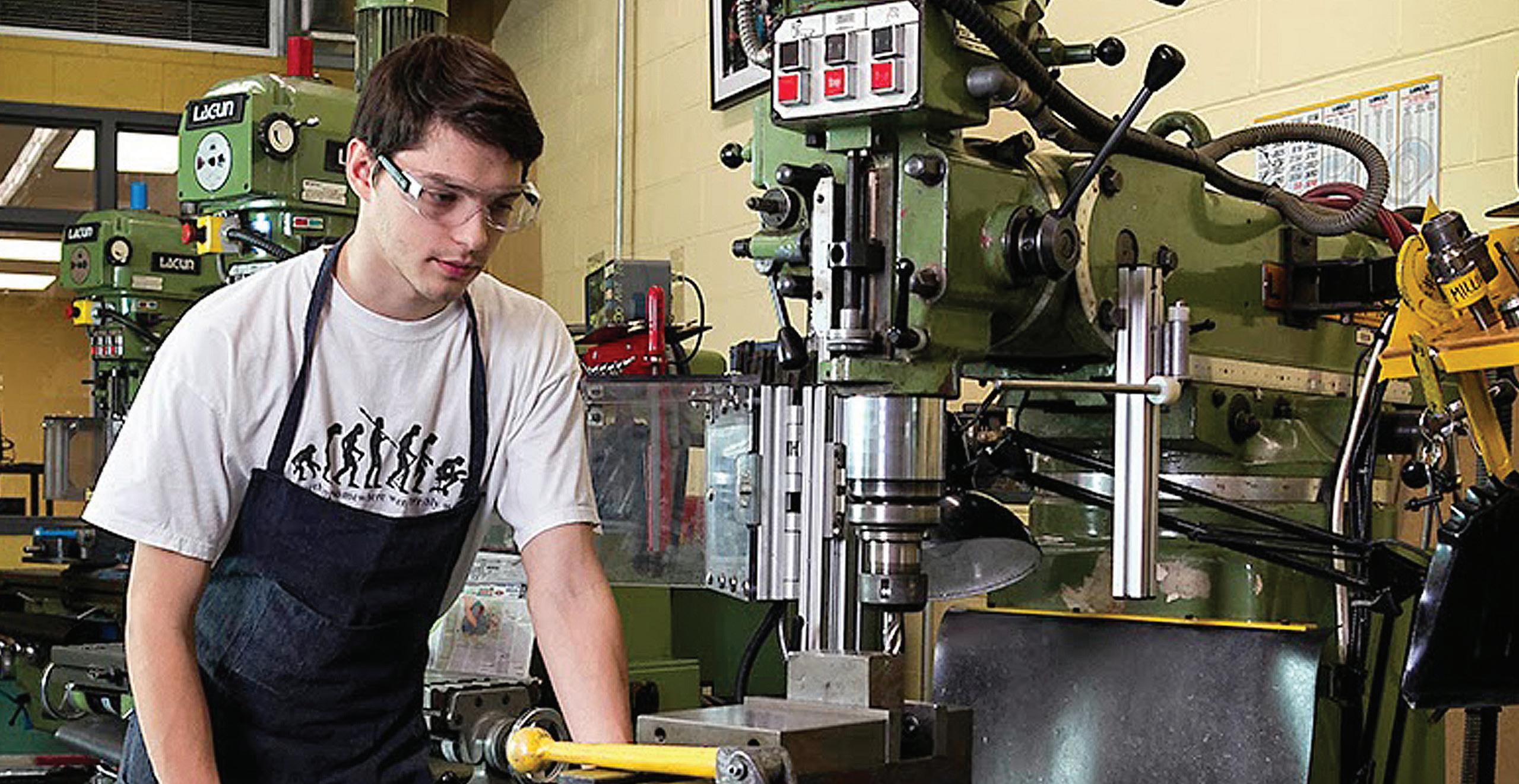
Application Deadline
March 1
DID YOU KNOW?
www.dawsoncollege.qc.ca/mechanical-engineering-technology
If you would like to:
Learn about robotics, automation and machinery
Use advanced technology in a hands-on mechanical laboratory setting
Collaborate in a team environment
Have the option of studying Automated Manufacturing or Mechanical Design Design, build and prototype anything you can imagine
Then the Mechanical Engineering Technology Program could be for you.
3 YEARS
The Mechanical Engineering Technology Program will prepare you to work in the design, construction, installation, control and use of mechanical devices in the manufacturing of goods. The labs at Dawson are equipped with both conventional equipment (lathes and welding facilities) and high-tech resources (CAD, CNC machining tools and robotics) to give you the skills needed to work in the exciting field of Mechanical Engineering. Study with small teams of students and gain experience that often leads to immediate employment upon graduation.
What will you learn?
■ To program and service automated equipment
■ To machine and operate conventional and CNC equipment
■ To communicate and present technical information
■ To plan and manage the manufacture of goods
■ To design mechanical devices of moderate complexity
Where will this program lead you?
Graduates of the program often pursue careers as mechanical engineering technologists in the following areas: Computer Aided Manufacturing (CAM), Computer Aided Design (CAD), quality control and inspection, research and development, technical sales and project management. Other graduates choose to continue their studies at the university level in Engineering or other programs. These sometimes require additional prerequisites.
Students entering this program are eligible for Bourses Perspective scholarships. These $1,500 scholarships will be awarded to students after each successful full-time term, for a total of $9,000 for a three-year program. Information about how to apply can be found online by searching for “Québec Perspective Scholarship Program” in your browser.
LIST OF SPECIFIC COURSES
All students must also take General Education courses such as English, French, Humanities and Physical Education, in addition to complementary courses.
YEAR 1 YEAR 2 YEAR 3 • Mechanical Design YEAR 3 • Automated Manufacturing
■ Engineering Mathematics I
■ Introduction to CIM
■ Introduction to Mechanical Engineering Technology
■ Metrology
■ Engineering Graphics
■ Engineering Materials
■ Engineering Physics I
■ Machine Tools I
■ Mechanical Components I
■ Quality Control
■ CAD I
■ Heat Treatment
■ Engineering Mathematics II
■ CAD II
■ Machine Tools II
■ Manufacturing Processes
■ Pneumatic Systems
■ Machine Design
■ Sheet Metal Design
■ Design Modification
■ CAD IV
■ System Design I
■ Design Modifications
■ Production Tooling
■ Production Planning
■ NC Lathe
■ Automated Circuits I
■ Industrial Automation
■ Engineering Physics II
■ Tooling Manufacturing
■ CNC Operation
■ Mechanical Components II
■ CAD III
3040 Sherbrooke St. West Montreal, Quebec H3Z 1A4 dawsoncollege.qc.ca
■ Emerging Technologies
■ 3D Modelling
■ System Design II
■ Design Project
■ Graphic Programming
■ Automated Circuits II
■ Industrial Systems
■ Manufacturing Project
“
Through hands-on learning in the machine shop and with the software, I got to apply theoretical knowledge and gain practical experience in manufacturing.
— Navid H.
241.A0
The information contained in this document was accurate and complete at the time of printing.
Term 1 Term 3 Term 5 Term 5
Term
2 Term 4 Term 6 Term 6
notes
89 88
ELECTRONICS ENGINEERING TECHNOLOGY
In the electronics courses:
■ How to build electronic circuits, troubleshoot and make measurements
■ How to fabricate printed circuit boards (PCBs) and soldering conforming to industry standards
■ How to work with embedded systems using both hardware and software tools
Where will this program lead you?
Graduates of the Electronics Engineering Technology Program often pursue exciting and challenging careers as electronic technologists that involve solutions dealing with electronics, repair, maintenance, upgrades, installation, and configuration of systems in the field of Computer and Networks.
What do you need to apply?
■ A Diploma of Secondary Studies (DES) or academic background judged equivalent to the DES
■ Sec IV Mathematics – Technical & Scientific option or Science option 564-426 or 565-426 or Sec V Cultural, Social & Technical option 563-504
■ Sec IV Science & Technology or Applied Science & Technology 555-444 or 557-416
What else should you know?
As a student in the Electronics Engineering Technology Program, you will have access to the most advanced labs complete with real-world systems in networking and telecommunications.
You will be trained to meet industry needs and be prepared to obtain certifications necessary for work in your field of study.
Others go on to study at the university level in programs such as Electrical Engineering, Computer Engineering, Software Engineering, IT Engineering or Computer Science. Application Deadline March 1
DID YOU KNOW?
Students entering this program are eligible for Bourses Perspective scholarships. These $1,500 scholarships will be awarded to students after each successful full-time term, for a total of $9,000 for a three-year program. Information about how to apply can be found online by searching for “Québec Perspective Scholarship Program” in your browser.
3 YEARS
www.dawsoncollege.qc.ca/electronics-engineering-technology
If you would like to:
Develop skills to build electronic circuits and systems
Understand how everyday electronics/ communication systems work
Interact with individuals just like you who are interested in the latest technology trends
Work within an advanced laboratory environment using some of the latest technologies
Study in a program with strong employment opportunities
Then the Electronics Engineering Technology Program could be for you.
The Electronics Engineering Technology Program offers a specialization in Computer and Networks.
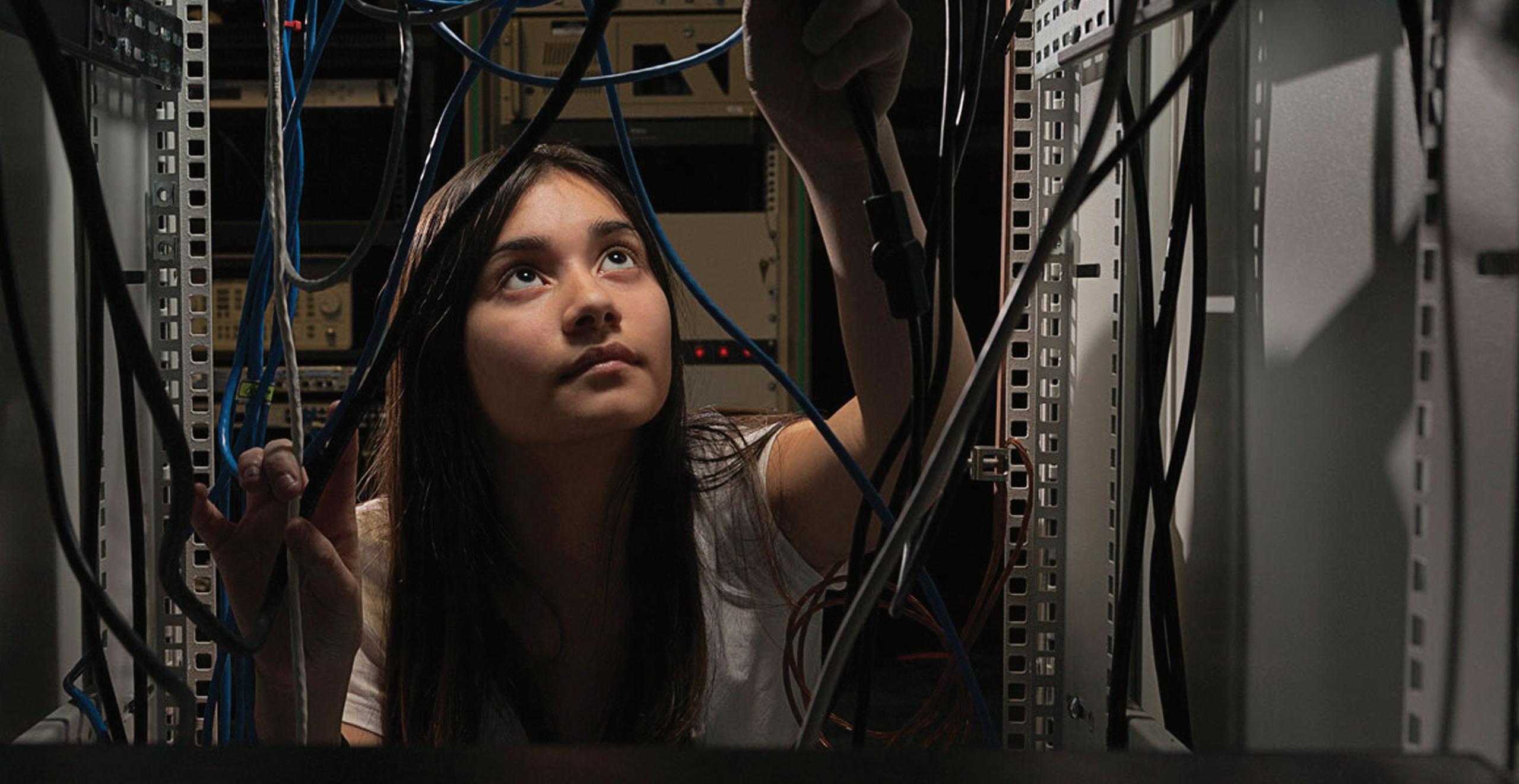
What will you learn?
■ How to install hardware and software, configure and service a computer/laptop and its peripherals
■ How to become proficient in networking and network security
■ How to define, configure and manage all the elements of a local area network to ensure reliability and security of data transfer
LIST
All students must also take General Education courses such as English, French, Humanities and Physical Education, in addition to complementary courses.
— Demetrius D.
“
With everything I have learned in the Electronics Engineering Technology Program, I feel ready to join the workforce and take on any challenge in the electronics field.
243.F0 This program is being updated. Please visit our website for the most up-to-date information.
The information contained in this document was accurate and complete at the time of printing. 3040 Sherbrooke St. West Montreal, Quebec H3Z 1A4 dawsoncollege.qc.ca
OF SPECIFIC COURSES
YEAR 1 YEAR 2 • Computer and Networks
YEAR 3 • Computer and Networks Option Term 1 Term 3 Term 5
Introduction to the Occupation
Applied Mathematics
Combinational Circuits
Direct Current Circuits
Networking Fundamentals
Integrated Logic Circuits
Linear Circuits
Wireless Fundamentals
Unix I
Electronic Techniques
Embedded System Hardware
LAN Switching & Configuration
Client
OS
Environment
Fundamentals of Web Servers
Wireless LANs Term 2 Term 4 Term 6 ■ Calculus I ■ Sequential Circuits
Alternating Current Circuits ■ Power Supplies
Embedded System Programming
Telephony ■ Network Routing
PC Hardware & Software ■ Unix II ■ Computer Network Project
Network Planning
Network Security
Wide Area Networks
Communication in the Workplace
Option
■
■
■
■
■
■
■
■
■
■
■
■
■
Based
& Server
■
■
■
■
■
■
■
■
■
■
notes 91 90
www.dawsoncollege.qc.ca/social-service
If you would like to:
Make a difference in the lives of individuals and communities
Work with vulnerable populations
Collaborate with people from various communities and cultural backgrounds
Support people living with physical, psychological and mental health issues
Develop positive changes in public policy
Work as part of a team
Then the Social Service Program could be for you.
3 YEARS
The heart of social service is to accompany individuals, families and communities, helping them overcome difficult life challenges. In this program, you will learn skills and techniques that will help you accompany, care for and guide vulnerable individuals, families and communities. You will be challenged to explore the systems that maintain inequalities and injustice in our society, and learn skills and strategies to empower people and accompany them in the fight for social justice. With these skills, you will intervene in difficult situations with empathy, find resources, inform clients about their rights, bring people together to break isolation and empower them to achieve their goals. Classroom learning is put into practice during two internships in the community.
What will you learn?
■ To develop core social work skills: empathy, active listening, non-violent communication, conflict resolution
■ To perform needs assessments
■ To perfect interview and group facilitation skills
■ To create and maintain helpful relationships with clients and co-workers
■ To practice crisis situation intervention
■ To gain knowledge of community resources
■ To develop and implement community action projects
■ Empowerment models such as the strength-based approach, anti-oppressive practice and cultural sensitivity training
■ To be sensitive to the defence of rights (individual and collective)
Where will this program lead you?
A DEC in Social Service Technology prepares graduates to work in a variety of health and social service organizations, such as hospitals, community health centres (CLSCs), youth protection agencies as well as rehabilitation centers and longterm care facilities.
Graduates also work for the Ministère de l’Emploi et de la solidarité and for the Ministère d’Éducation. They are employed by schools, community organizations, shelters, senior centres, advocacy groups, popular education groups and drop-in centers, working with very diverse populations— from the elderly to youth and families, to immigrants and people with mental health issues, as examples— in the following roles:
■ Social service workers
■ Educators in group homes
■ Child care workers or behaviour technicians in schools
■ Group facilitators
■ Outreach workers
■ Community intervention workers
Graduates who pursue university often apply to programs such as Social Work or Applied Human Services.
What do you need to apply?
■ A Diploma of Secondary Studies (DES) or academic background judged equivalent to the DES
■ Interview*
■ Two recommendation forms*
*For the most up-to-date and complete details, visit www.dawsoncollege.qc.ca/social-service
What else should you know?
■ Teachers are experienced social service workers who are passionate about teaching and coaching students through the rewards and challenges of working in the human services field
■ An interdisciplinary approach brings students together for shared courses with students from Nursing, Diagnostic Imaging Technology and Physiotherapy Technology
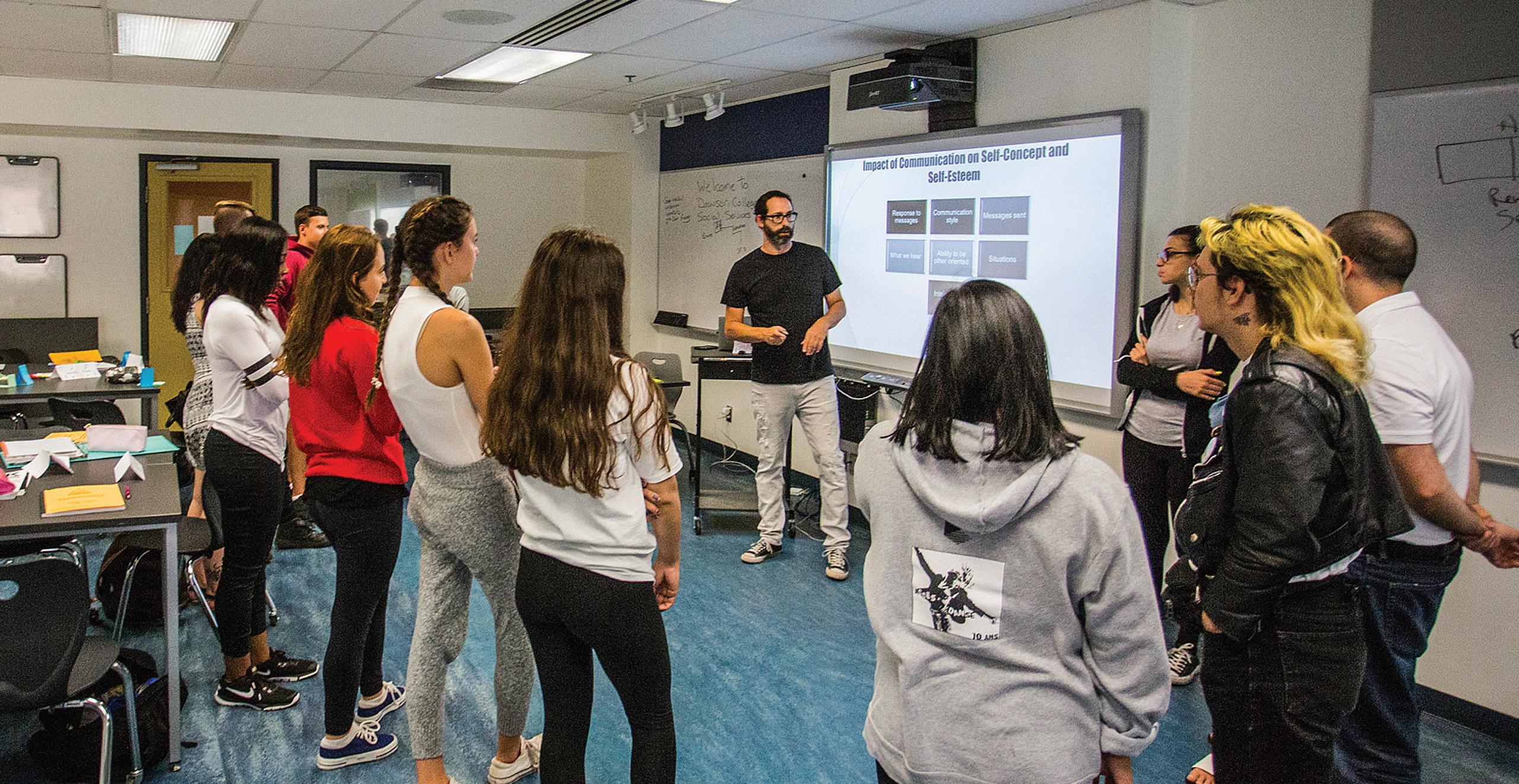
■ Dedicated video recording equipment is available for assignments and practice
■ Students benefit from one-on-one time with teachers
■ Students have access to a dedicated student lounge that is equipped with a microwave and sink
■ Students must pass a mandatory police background check in the first semester in order to participate in fieldwork
Application Deadline
March 1
LIST OF SPECIFIC COURSES
All students must also take General Education courses such as English, French, Humanities and Physical Education, in addition to complementary courses.
Year 1 • Term 1 Year 1 • Term 2
■ Introduction to the Social Service Practice
■ Resources for Human Needs
■ Communication Skills in Social Service Practice
■ Addressing Social Problems I
■ Social Welfare & Legislation
■ Fieldwork I
■ Groupwork I
■ Addressing Social Problems II
■ Abnormal Psychology
■ Introduction to Intervention
Year 2 • Term 3 Year 2 • Term 4
■ Fieldwork II
■ Groupwork II
■ Understanding Families I
■ Intervention with Individuals
■ Health, Illness & Aging: Topics in Understanding Intervention I
■ Fieldwork III
■ Social Service Research
■ Multicultural Montreal
■ Understanding Families II
■ Addiction, Disability & Homelessness: Topics in Understanding Intervention II
Year 3 • Term 5 Year 3 • Term 6
■ Fieldwork IV
■ Crisis Intervention
■ Intervention with Mandated Clienteles
■ Practice Models
■ Fieldwork V
■ Developing Services & Resources
■ Community Intervention
The teachers gave me all the knowledge I needed, and then I applied it through case scenarios or fieldwork. I was constantly learning!
“
SOCIAL SERVICE 388.A0
— Jessica G.
The information contained in this document was accurate and complete at the time of printing.
3040 Sherbrooke St. West Montreal, Quebec H3Z 1A4 dawsoncollege.qc.ca
93 92
This program is being updated. Please visit our website for the most up-to-date information.
COMMUNITY, RECREATION AND LEADERSHIP TRAINING
Where will this program lead you?
A DEC in Community Recreation and Leadership Training prepares graduates to work in multiple settings, such as:
■ community centres
■ municipal recreation
■ outdoor recreation
■ hospital and therapeutic recreation
■ school and campus recreation
■ special events companies
■ fitness centres and community recreation associations
■ tourist destinations, resorts and overnight camps
■ … and many more!
Many CRLT graduates choose to pursue university studies in programs such as Recreation Management, Therapeutic Recreation, Recreation and Leisure Studies, Education, Human Resource Management, Kinesiology, Physical Education and Sports Management.
CRLT graduates may receive advanced standing credits from particular universities (e.g. Concordia University) for specific programs, making it possible to complete a degree in only two years.
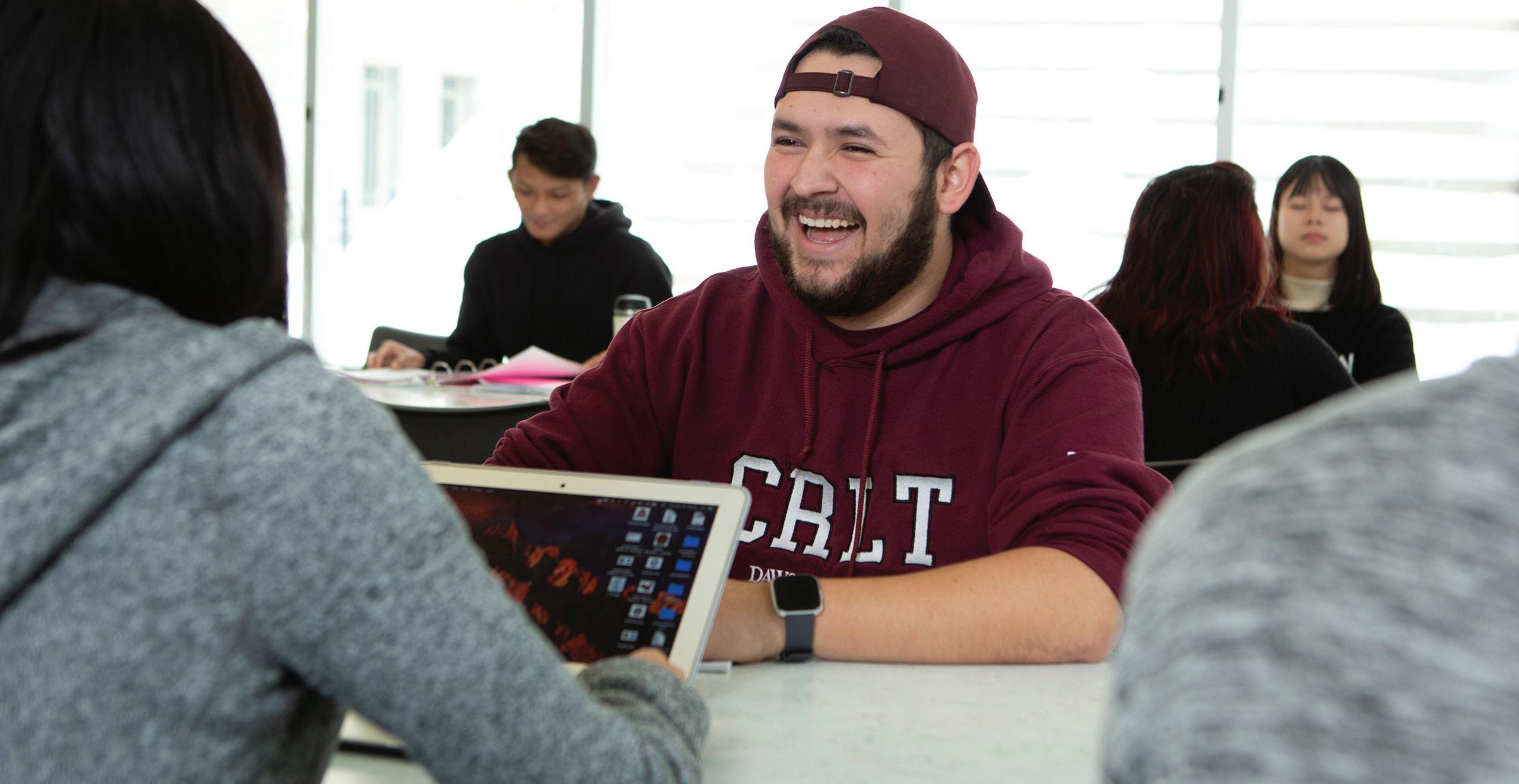
What do you need to apply?
■ A Diploma of Secondary Studies (DES) or academic background judged equivalent to the DES
■ Interview*
3 YEARS
*For the most up-to-date and complete details, visit www.dawsoncollege.qc.ca/communityrecreation-leadership-training-crlt
What else should you know?
■ Students accumulate over 580 hours of practical work experience through three fieldwork placements, which they can choose
■ CRLT is well known for organizing one of Canada’s largest student-driven outdoor education programs. Final year students lead a camp for 100 first-year and second-year students.
■ The CRLT Department has its own sunny and plant-filled space, which helps foster a positive, supportive, effective and collaborative learning environment. Our common room, program-exclusive computer lab, conference room and multipurpose room help build a strong sense of community. The proximity of the faculty offices to these spaces enables open communication and ongoing support to all of our students.
■ All students in the CRLT Program receive First Aid Certification
■ Graduates are eligible to obtain a Peace Studies Certificate and Environment and Sustainability Certificate
■ Students must pass a mandatory police background check in the first semester in order to be placed in a fieldwork setting
■ Make a request to experience life as a CRLT Student for a Day at crlt@dawsoncollege.qc.ca
Application Deadline March 1
www.dawsoncollege.qc.ca/community-recreation-leadership-training-crlt/
If you would like to:
Organize and facilitate events and activities
Effectively lead and manage group dynamics
Work in community development and with grassroots projects
Deepen your knowledge about yourself and others
Develop and practice well-being for all, sustainably
Help others stay healthy through positive recreational activities
Enhance and improve the quality of life of a diverse clientele
Then the Community Recreation and Leadership Training (CRLT) Program could be for you.
What I love most about my program is that it involves education built upon a value system of kindness, empathy and community.
Join one of the most dynamic programs on campus! Upon graduation, you could enjoy a career promoting well-being for all through positive recreation and community development activities. The program emphasizes hands-on learning through local, national and international fieldwork placements, which develop leadership skills and provide real work experience. Students are part of a close-knit and caring community. CRLT is the only three-year technical program of its kind offered in English in Quebec.
What will you learn?
■ To plan, lead and evaluate a variety of recreational and community-based activities and events
■ To develop leadership skills
■ To work as a team and develop group dynamics skills
■ To plan fundraising events
■ To develop networking, communications and public relations skills
■ To develop entrepreneurship, administrative and human resource management skills
LIST OF SPECIFIC COURSES
All students must also take General Education courses such as English, French, Humanities and Physical Education, in addition to complementary courses.
5
■ Leisure Behaviour
■ Recreation & Society
■ Recreation Leadership I
■ Environmental Issues in Outdoor Recreation
■ Health & Safety
■ Research Methods for Recreation
■ Promotion of Recreation Services
■ Leadership of Recreation Activities
■ Environmental Leadership Experience
■ Group Leadership: Theory & Practice II
■ Workplace Management
■ Program Design II
■ Project Management
■ Supervision of Human Resources
■ Entrepreneurship
■ Plan/Design & Maintenance of Recreational Facilities
■ Introduction to Leisure
■ Techniques of Communication for the Recreation Professional
■ Public Relations Term 2 Term 4 Term 6
■ Fieldwork I
■ Creativity
■ Group Leadership: Theory & Practice I
■ Clientele: Consumer Needs
■ Business Administration in Recreation
■ Fieldwork II
■ Organization & Management of Recreation Programs
■ Program Design I
■ Winter Outdoor Experience
■ Principles of Fundraising
3040 Sherbrooke St. West Montreal, Quebec H3Z 1A4 dawsoncollege.qc.ca
■ Internship
■ Integrative Seminar
391.A0
The information contained in this document was accurate and complete at the time of printing.
YEAR
YEAR
YEAR
1
2
3 Term 1 Term 3 Term
“
95 94
— Aaron N.
ACCOUNTING AND MANAGEMENT TECHNOLOGY
Where will this program lead you?
A DEC in Accounting and Management Technology prepares graduates to work in jobs related to accounting, finance and management. Some graduates decide to pursue university studies in these fields.
Graduates who pursue higher learning at Concordia University’s John Molson School of Business can enjoy advanced standing credits where up to five courses may be exempted.
What do you need to apply?
■ A Diploma of Secondary Studies (DES) or academic background judged equivalent to the DES
■ Secondary IV Mathematics: Technical and Scientific or Science Option 564-426 or 565-426 or Secondary V Mathematics: Cultural, Social and Technical Option 563-504
What else should you know?
■ The Accounting and Management Technology and Marketing and Management Technology (410-D0) Programs offer the same courses in the first year. If they wish, it may be possible for students to apply to transfer to the other program in the second year and still be on track to graduate in three years.
■ In the last semester, there is a six-week internship of on-the-job learning. This internship can be done locally or possibly in France.
■ Classrooms are equipped with computers and software for courses
■ The Business Administration Students’ Association (BASA) student resource room is equipped with computers and a printer in a conference room setting
■ A closely-knit department provides strong support for our students
Application Deadline
March 1
www.dawsoncollege.qc.ca/accounting-and-management-technology
If you would like to:
Work with numbers
Solve problems
Help make strategic business recommendations
Work individually and collaborate with others Then the Accounting and Management Technology Program could be for you.
3 YEARS
Every organization and company needs the skills you will learn in the Accounting and Management Technology Program. At Dawson, you will enjoy classes taught by teachers with industry experience, and a community feeling fostered by shared classes and a designated computer lab. In your last semester, you will put all your learning together in a six-week internship experience, which you can do locally or possibly in France. This program also offers a work-study option.
What will you learn?
■ To perform accounting and financial analysis tasks and apply various business methods in public, private and non-profit organizations
■ To process and analyze financial and managerial accounting information
■ To conduct financial analysis of transactions and financerelated activities
■ To contribute to management decision-making
■ To manage inventory and the acquisition of goods and services
■ To use and adapt management methods and tools
LIST OF SPECIFIC COURSES
All students must also take General Education courses such as English, French, Humanities and Physical Education, in addition to complementary courses.
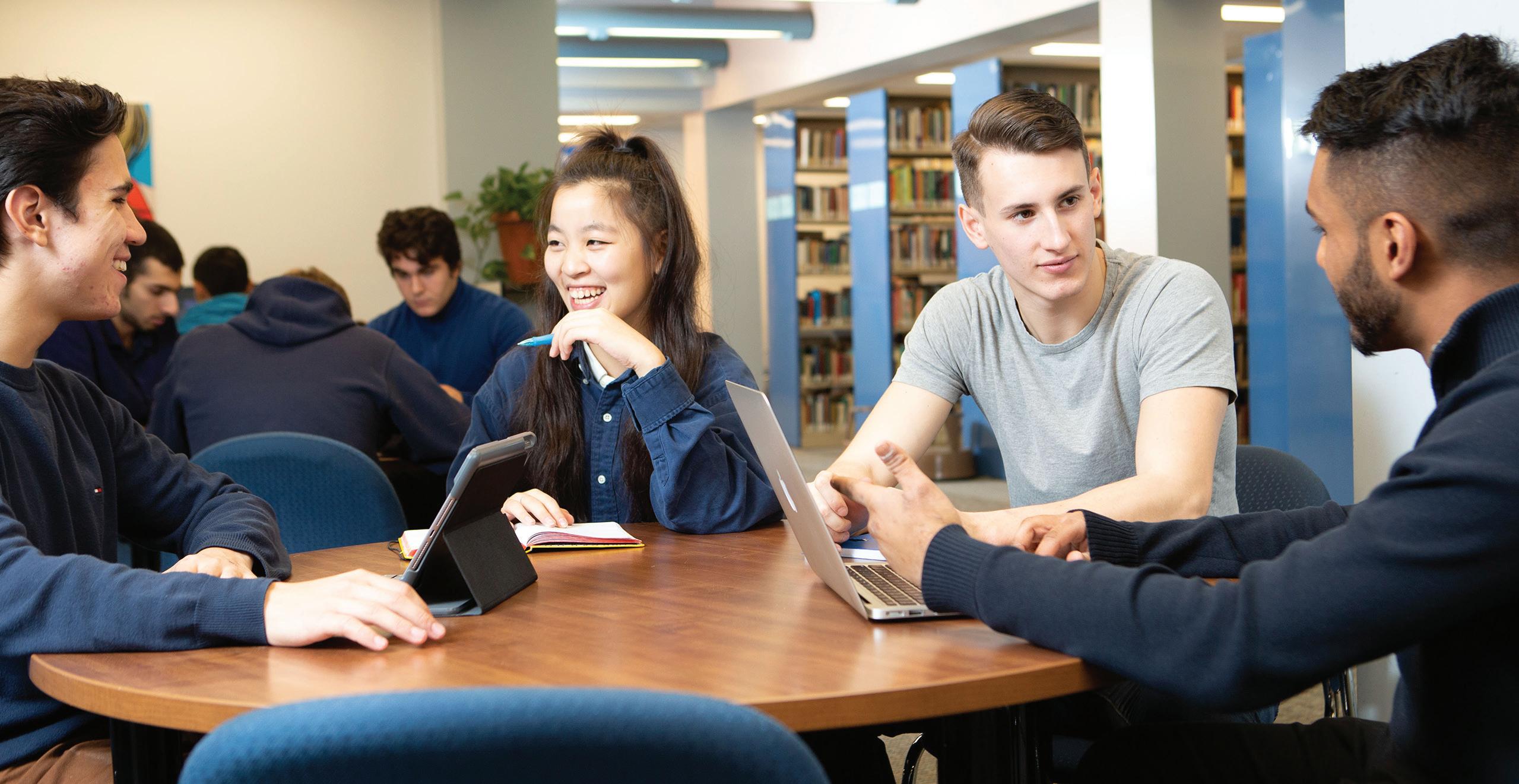
YEAR 1 YEAR 2 YEAR 3
Term 1 Term 3 Term 5
■ Business Communication Fundamentals
■ Business Fundamentals
■ Career Planning
■ Business Software Applications
■ Business Analytics
■ Human Resources Management
■ Web Design
■ Financial Accounting 2
■ Basics of Macroeconomics
■ Taxation
■ Entrepreneurship and Small Business Management
■ Management & Cost Accounting
■ Payroll & Computerized Accounting
■ Comprehensive Business Analysis
Term 2 Term 4 Term 6
■ Global Business
■ Marketing Fundamentals
■ Business Law
■ Financial Accounting 1
■ E-Commerce
■ Advanced Business Computing
■ Inventory & Operations Management
■ Financial Accounting 3
■ Corporate Finance
St. West Montreal, Quebec H3Z 1A4 dawsoncollege.qc.ca
■ Negotiation Strategies
■ Advanced Computerized Accounting
■ Management
■ Financial Planning & Investments
■ Computerized Projects
■ Accounting Internship
The knowledge and skills I acquired at Dawson will help me succeed in an accounting and finance-related career in any environment.
“
— Ning J.
410.B0
The information contained in this document was accurate and complete at the time of printing.
Sherbrooke
3040
97 96
MARKETING AND MANAGEMENT TECHNOLOGY
Where will this program lead you?
A DEC in Marketing and Management Technology prepares graduates to work in a diversity of jobs related to marketing management, advertising and communications, retailing and e-commerce, product development, marketing research, public relations, human resources and public service. Students frequently pursue university studies in Commerce, Administration, Communications or Psychology. Graduates who pursue higher learning at Concordia University’s John Molson School of Business can enjoy advanced standing credits where up to five courses may be exempted.
What do you need to apply?
■ A Diploma of Secondary Studies (DES) or academic background judged equivalent to the DES
■ Secondary IV Mathematics: Cultural, Social and Technical Option 563-414
What else should you know?
■ The Marketing and Management Technology and Accounting and Management Technology (410. B0) Programs offer the same courses in the first year. It may be possible for students to apply to transfer to the other program in their second year and still be on track to graduate in three years.

■ There are two internships totalling five weeks of on-the-job learning. The internship in the last semester can be done locally or possibly in France.
■ Classrooms are equipped with computers and software for courses
■ The Business Administration Students’ Association (BASA) student resource room is equipped with computers and a printer in a conference room setting
www.dawsoncollege.qc.ca/marketing-management-technology
If you would like to:
Work with social media
Be part of the next big trend
Use your creativity
Solve problems
Manage people and projects
Be an entrepreneur
Then the Marketing and Management Technology Program could be for you.
3 YEARS
In a cluttered and competitive landscape, companies need marketing professionals to connect customers to products and services, develop and sustain those relationships and make the business profitable. In the Marketing and Management Technology Program, you will learn about marketing, retail and general management with an emphasis on the client experience. Through two internships, a work-study option and teachers drawn from industry, Dawson’s program provides theoretical knowledge and real-life experiences to form successful marketers ready for any challenge.
What will you learn?
■ To develop marketing plans
■ To manage people and teams
■ To manage product or service projects
■ To deal with stakeholders, such as clients and suppliers
■ To communicate and interact with stakeholders
■ To analyze statistical information
■ To understand and use legal resources
■ To use software and statistics to identify commercial data trends
of marketing.
■ To understand accounting and financial data for preparing operational budgets
■ To research and identify national and international market opportunities
■ To communicate in business French
LIST OF SPECIFIC COURSES
Application Deadline
March 1
All students must also take General Education courses such as English, French, Humanities and Physical Education, in addition to complementary courses.
YEAR 1 YEAR 2 YEAR 3
Term 1 Term 3 Term 5
■ Business Communication Fundamentals
■ Business Fundamentals
■ Career Planning
■ Business Software Applications
■ Business Analytics
■ Human Resources Management
■ Web Design
■ Finance
■ Basics of Macroeconomics
■ Retail Observation Internship
■ Financial Planning
■ Integrated Marketing Communication
■ Sales & Customer Relationship Management
■ E-Marketing & Social Media
Term 2 Term 4 Term 6
■ Global Business
■ Marketing Fundamentals
■ Business Law
■ Financial Accounting 1
■ Marketing Research
■ Inventory & Operations Management
■ Consumer Behaviour
■ Retail Marketing
3040 Sherbrooke St. West Montreal, Quebec H3Z 1A4
dawsoncollege.qc.ca
■ Negotiation Strategies
■ Social Entrepreneurship
■ Marketing Strategy
■ Services Marketing
■ Management
■ Marketing Internship
■ A closely-knit department provides strong support for our students The
“
You will learn from experts, make great friends and acquire both theoretical knowledge and hands-on experience in the field
— Nhi N.
410.D0
in this document was accurate and
at the time of printing.
information contained
complete
99 98
COMPUTER SCIENCE TECHNOLOGY
Where will this program lead you?
A DEC in Computer Science Technology prepares graduates to work in virtually any industry and in a diversity of roles, such as:
■ software developer
■ web developer (front and back end)
■ mobile software developer
■ quality assurance tester
■ other computer science related careers
The Computer Science Technology Program also prepares students to pursue university studies in programs related to the field, such as Computer Science, Software Engineering and Computer Engineering.
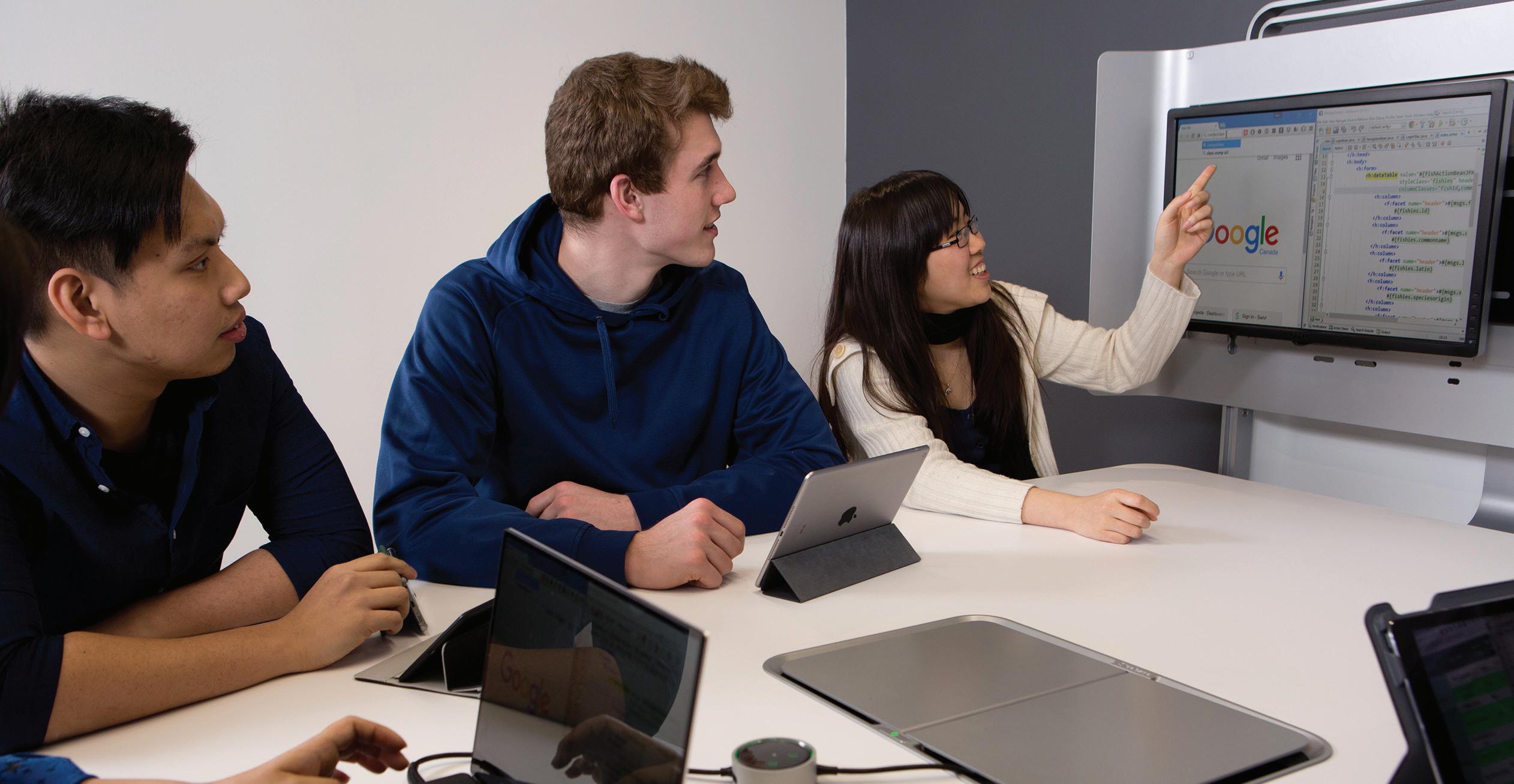
What do you need to apply?
■ A Diploma of Secondary Studies (DES) or academic background judged equivalent to the DES
■ Sec IV Mathematics – Technical and Scientific Option or Science Option 564-426 or 565-426 or Sec V Mathematics, Cultural, Social and Technical Option 563-504
What else should you know?
■ You do not need any programming knowledge to begin this program
■ You may qualify for paid summer work terms (called a Work-Study Option or Alternance travail-études) after your first and second years
■ From work stations to servers to cloud, all computers at Dawson College are networked and equipped with the software tools and components regularly used in industry. Most software programs are also available to students for home use.
■ Graduates enjoy advanced standing credits for some university programs while other programs may require outof-program prerequisite courses
Application Deadline
March 1
DID YOU KNOW?
Students entering this program are eligible for Bourses Perspective scholarships. These $1,500 scholarships will be awarded to students after each successful full-time term, for a total of $9,000 for a three-year program.
Information about how to apply can be found online by searching for “Québec Perspective Scholarship Program” in your browser.
www.dawsoncollege.qc.ca/computer-science-technology
If you would like to:
Solve new and challenging problems every day
Feel a builder’s pride and satisfaction
Use your creativity
Figure out logic games and riddles
Work in virtually any industry
Then the Computer Science Technology Program could be for you.
3 YEARS
The Computer Science Technology Program equips students with the most in-demand skills needed for a career in software development or other information technology fields. In our state-of-the-industry labs, your hands-on learning experience will cover web applications, mobile apps, business software, automation tools and machine learning. Dawson’s Computer Science teachers pride themselves on incorporating the latest technology in their courses. The program concludes with an internship, which helps launch students into a successful career.
What will you learn?
■ To create state-of-the-art software systems, including web, mobile and cloud-based applications
■ To use multiple programming languages in various operating systems
■ To develop analytical and problem-solving skills
■ To develop algorithmic and logical thinking
■ To be resilient and autonomous
■ To spark your curiosity and creativity
■ To work and collaborate as part of a team
LIST OF SPECIFIC COURSES
All students must also take General Education courses such as English, French, Humanities and Physical Education, in addition to complementary courses.
■ Programming I – Java I
■ Infrastructure I – Computer System Organization
■ Web Applications I – HTML5, CSS3 and Javascript
■ Programming III – Java III
■ Web Applications II – Client-side programming
■ Database II – Database Programming
■ Programming V – Simulations
■ Mobile development – Android
■ Web Applications IV – Scalable Web Applications
■ Administration
■ Programming II – Java II
■ Infrastructure II – Linux I
■ Database I – Database Theory and SQL
■ Mathematics I: Applied Mathematics for Computer Science*
■ Mathematics II: Linear Algebra
■ Data Communications & Networking Term 2 Term 4 Term 6
■ Programming IV – Individual Project
■ Infrastructure III – Linux II
■ Web Applications III – Server-side programming
■ Web Applications V – Web Development Project
■ Infrastructure IV – Systems Delivery and Operations
■ Working in the Profession
■ Internship in Industry
“
I walked out of this program with hands-on coding experience and strong knowledge of industrystandard concepts. It opened so many doors for me!
— Trevor E.
420.B0
The information contained in this document was accurate and complete at the time of printing.
Sherbrooke St. West
Quebec H3Z 1A4 dawsoncollege.qc.ca
3040
Montreal,
YEAR 1 YEAR 2 YEAR 3 Term 1 Term 3 Term 5
*Under certain circumstances, a student may choose to take Calculus I as a substitution
101 100
PROFESSIONAL THEATRE (ACTING)
Where will this program lead you?
Graduates often find employment as stage actors, in film and in voice performance industries. Others go on to pursue university studies in dramaturgy, drama therapy or further studies in theatre. Transferrable skills acquired in the Professional Theatre (Acting) Program can lead to a career in law, sales or other people-oriented domains.
What do you need to apply?
■ A Diploma of Secondary Studies (DES) or academic background judged equivalent to the DES
■ Audition*
*For the most up-to-date and complete details, visit www.dawsoncollege.qc.ca/professionaltheatre
What else should you know?
As a student in the program, you will attend plays by Montreal professional theatre companies and benefit from professional artists currently working in the performing Arts who will help you hone your ability to market your skills. You will also perform in five productions at Dawson’s very own theatre, complete with the latest sound equipment, costume shop and set-building workshop.
Application Deadline
March 1
LIST OF SPECIFIC COURSES
3 YEARS
www.dawsoncollege.qc.ca/professional-theatre
If you would like to:
Act on stage or in films
Rehearse and perform with other creative people
Develop your physical and vocal skills
Build characters and investigate theatrical texts
Establish interpersonal and professional communication skills
Network with members of Montreal’s theatre scene
Then the Professional Theatre (Acting) Program could be for you.
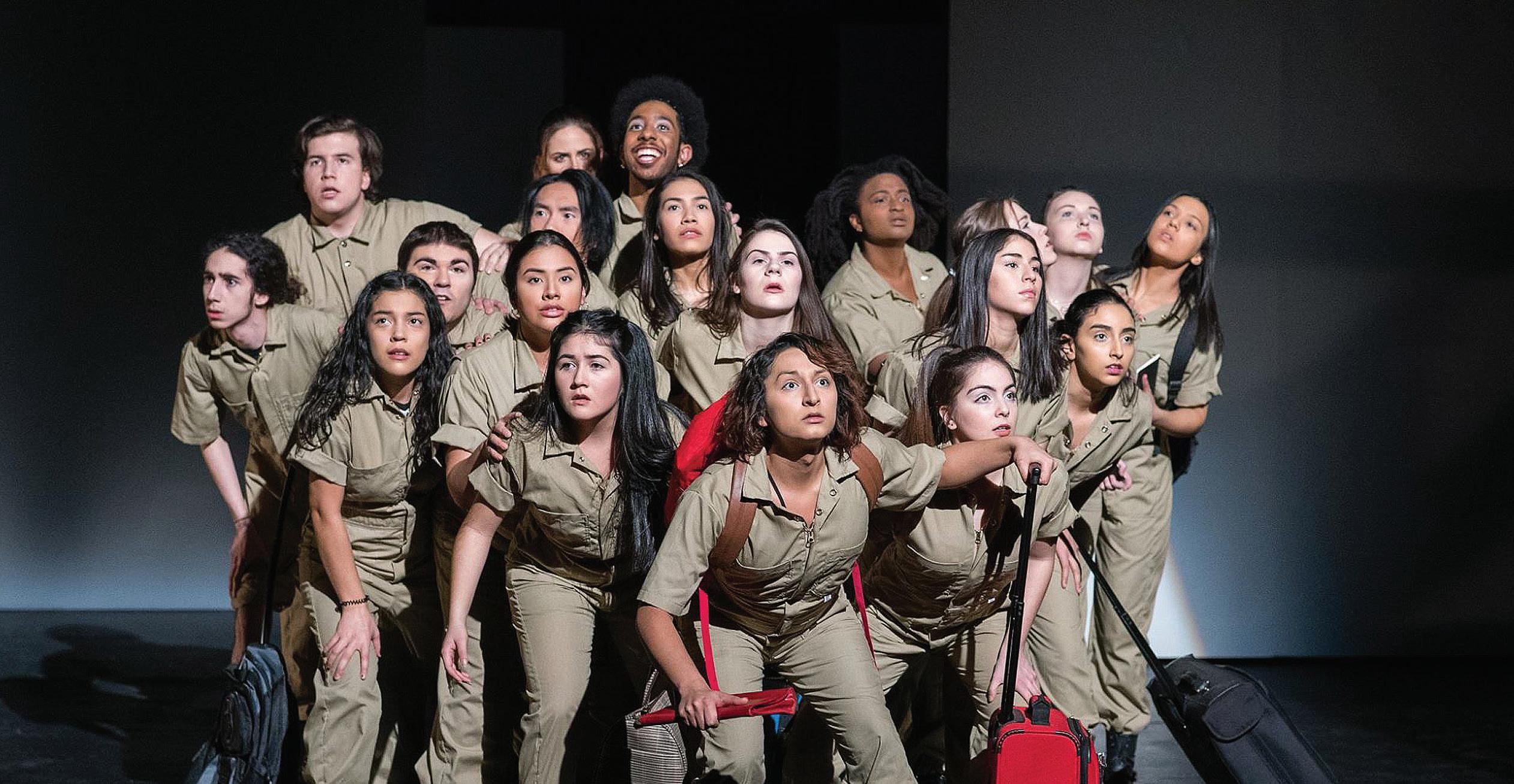
As a student in the Professional Theatre (Acting) Program, you will be trained to work as a professional actor. Working in dedicated rehearsal spaces and performing in a modern theatre, you will be prepared for performance both before the camera as well as on stage. The skills acquired in the Professional Theatre (Acting) Program will allow you to be an excellent communicator in any field.
What will you learn?
■ To master movement techniques, as well as voice and speech techniques
■ To situate theatrical works in their historical perspective
■ To stay in physical shape to keep up with the demands of the profession
■ To develop an artistic sensibility
■ To manage one’s professional life
All students must also take General Education courses such as English, French, Humanities and Physical Education, in addition to complementary courses.
YEAR 1
■ Movement for Actors I
■ Improvisation I
■ Voice and Speech I
■ Acting I (Character)
■ Acting I (Analysis)
■ Text I
■ History and Literature I
2
■ Movement for Actors III
■ Improvisation III
■ Voice and Speech III
■ Acting III
■ Make-up, Rehearsal and Performance I
■ Text III
■ History and Literature III
3
■ Movement for Actors V
■ Improvisation V
■ Voice and Speech V
■ Acting V – Rehearsal
■ Acting Before the Camera I
■ Rehearsal and Performance I
■ History and Literature V
■ Singing I
■ Career Management Term 2 Term 4 Term 6
■ Movement for Actors II
■ Improvisation II
■ Voice and Speech II
■ Acting II (Character)
■ Acting II (Analysis)
■ Text II
■ History and Literature II
■ Movement for Actors IV
■ Improvisation IV
■ Voice and Speech IV
■ Acting IV
■ Make-up, Rehearsal and Performance II
■ Text IV
■ History and Literature IV
■ Movement for Actors VI
■ Voice and Speech VI
■ Acting VI - Rehearsal
■ Acting Before the Camera II
■ Rehearsal and Performance II
■ History and Literature VI
■ Singing II
3040
“
My memories of making truthful art surrounded by like-minded individuals in Dawson’s theatre program will last a lifetime.
— Vassiliki G.
561.C1
The information contained in this document was accurate and complete at the time of printing.
St. West Montreal,
H3Z 1A4 dawsoncollege.qc.ca
Sherbrooke
Quebec
YEAR
YEAR
Term
Term 1 Term 3
5
notes
103 102
INDUSTRIAL DESIGN
What will you learn?
■ To demonstrate creativity with an industrial design methodology
■ To demonstrate curiosity and open-mindedness throughout the design process
■ To use critical thinking skills, specifically for the design process
■ To construct physical and virtual concept models to develop a product’s form and function
■ To verify and validate a design concept, its functionality and usage through physical and/or virtual models and simulation
■ To present product design concepts using visual presentations and technical documentation in a professional industrial design context
■ To play a key role in transforming a concept into a tangible product
■ To design innovative and sustainable products
Where will this program lead you?
Graduates of this program pursue careers as Industrial Design Technicians in consulting offices and manufacturing enterprises. They also work as CAD Technicians and Model Makers. Other graduates choose to pursue university studies in Industrial Design, Architecture, Engineering, Computer Modelling and Animation among other disciplines.
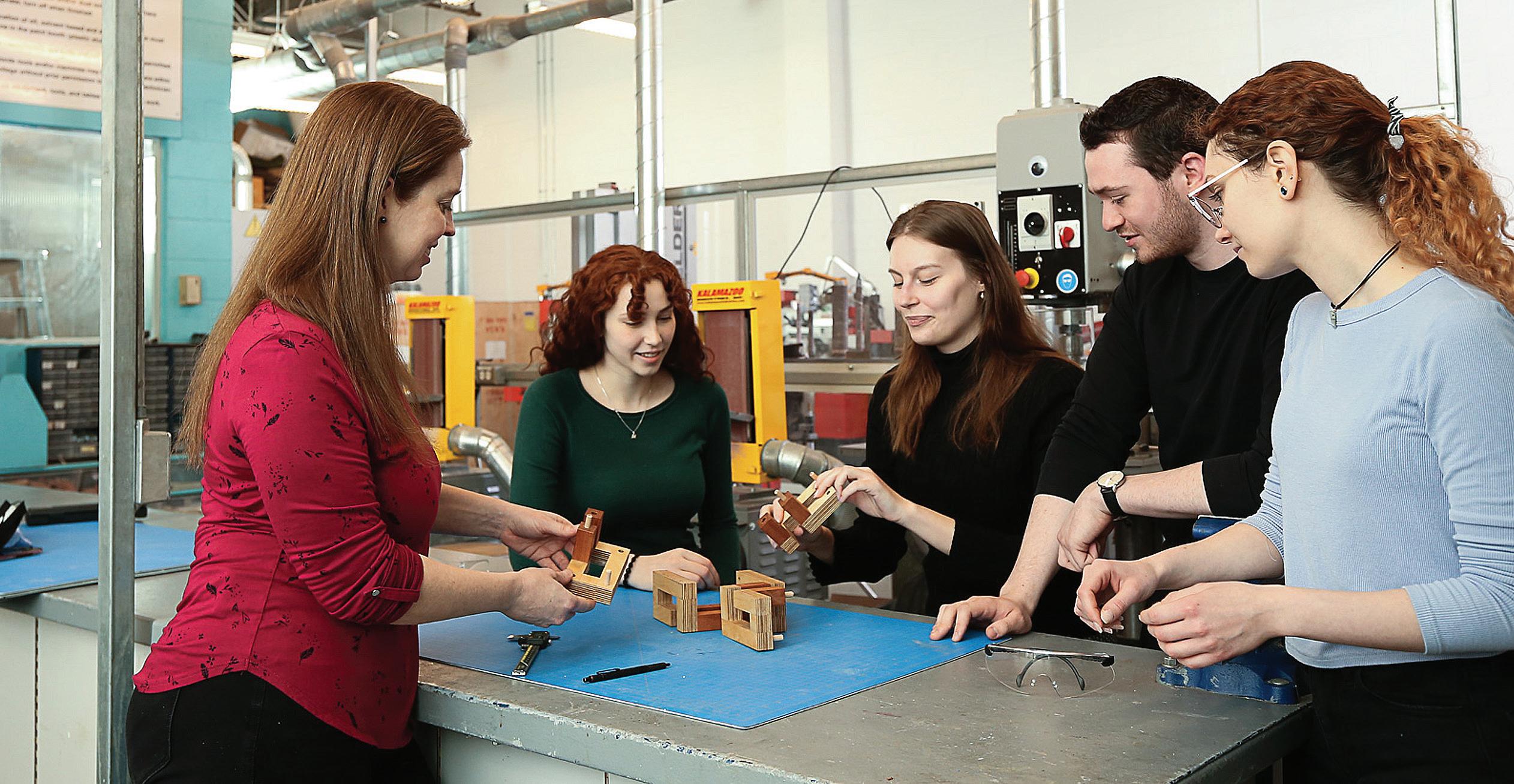
3 YEARS
www.dawsoncollege.qc.ca/industrial-design
If you would like to:
Design the products of the future
Imagine sustainable products that reduce waste
Create new consumer products, furniture, sports equipment, toys and vehicles
Study in a hands-on, project-based learning environment
Master 3D design software to create new forms
Learn to draw and render your own designs on paper and with a professional drawing tablet
Construct design concept models in up-to-date workshops using professional digital drawing tablets, laser cutting, 3D printing and 3D scanning
Take your designs from concept through technical development
Then the Industrial Design Program could be for you.
Certification
Ordre des technologues professionnels du Québec
The Industrial Design Program focuses on product design development, sketching and 3D modelling. As a student, you will create your own designs and produce technical drawings followed by the building of actual models of consumer products. The program will encourage you to use your creativity and curiosity to develop new sustainable product designs to meet the needs of consumers. You will develop the skills necessary to work as part of a multidisciplinary team of professionals in an exciting career that evolves constantly.
LIST OF SPECIFIC COURSES
What do you need to apply?
■ A Diploma of Secondary Studies (DES) or academic background judged equivalent to the DES
■ Sec IV Mathematics – Cultural, Social & Technical option 563-414
■ Sec IV Science 555-444 OR 557-416
■ Portfolio*
■ Letter of intent*
■ Drawing exercise*
* For the most up-to-date and complete details, visit www.dawsoncollege.qc.ca/industrial-design
What else should you know?
As an Industrial Design student, you are studying in a program recognized by the Ordre des technologues professionnels du Québec. You will become accredited by the OTPQ upon application once you graduate.
You will have a student membership in the Association des designers industriels du Québec
Application Deadline
March 1
All students must also take General Education courses such as English, French, Humanities and Physical Education, in addition to complementary courses.
■ Design Studio I
■ Materials and Manufacturing I
■ Presentation Layout I
■ 3D Computer Modelling I
■ Product Design Aesthetics
■ Prototyping I
■ Design Studio III
■ Design Studio III Support
■ Presentation Layout III
■ 3D Computer Modelling III
■ Materials, Processes & Sustainable Design
■ Prototyping III
■ Design Studio V
■ Art and Aesthetics in Product Design
■ Product Usage & Demographics
■ Product Optimization
■ Product Costing
■ 3D Computer Modelling V
2 Term 4 Term 6
■ Design Studio II
■ Materials & Manufacturing II
■ Presentation Layout II
■ 3D Computer Modelling II
■ Manufacturing Fieldtrips
■ Prototyping II
■ Design Studio IV
■ Design Studio IV Support
■ Presentation Layout IV
■ 3D Computer Modelling IV
■ Product Ergonomics
■ Prototyping IV
■ Product Design Semantics
■ Design Studio VI
■ Professional Portfolio
■ Presentation Layout V
■ Prototyping V
■ Manufacturing Technologies
“
Industrial Design is about seeing something that you sketched on paper come to life as a real product. It’s an incredible and unique experience!
— Dylan B.
570.C0
The information contained in this document was accurate and complete at the time of printing. 3040 Sherbrooke St. West Montreal, Quebec H3Z 1A4 dawsoncollege.qc.ca
YEAR 1 YEAR 2 YEAR 3 Term 1 Term 3 Term 5
Term
105 104
www.dawsoncollege.qc.ca/interior-design
If you would like to:
Design commercial and residential interiors
Explore problems and find innovative solutions
Learn from professionals in the Interior Design industry
Collaborate with a team
Creatively address health and safety, function, and aesthetic concerns of Interior Design Study in a high-tech digital learning environment
Then the Interior Design Program could be for you.
3 YEARS
The Interior Design Program will prepare you for an exciting career designing interior spaces. Students will learn how to respond to user needs with creative solutions through analysis and critical thinking, developing skills in sketching, drawing and 3D computer modelling using specialized software. The program emphasizes one-on-one instruction and often collaborates with local designers in Dawson’s studios. Whether designing for restaurants, retail, hospitality or residential spaces, you will develop your skills in our dedicated resource rooms and computer labs.
What will you learn?
■ Space planning and design skills for residential and commercial interiors
■ Individual and collaborative learning skills in studios and active learning environments
■ Knowledge of building systems and construction, art and design history, materials, colour, lighting and furnishings
■ Technical skills for construction drawings and specification packages
■ Traditional and digital communication skills through sketching, drawing and 3-D computer modelling
Where will this program lead you?
Graduates often find employment with interior design firms, architectural firms and related industries of the building trade. Experienced designers may also start their own practices. Areas of expertise include corporate offices, retail, restaurants, hospitality, healthcare, education and residential design. Many graduates choose to continue their studies at university in Interior Design or Architecture.
What do you need to apply?
■ A Diploma of Secondary Studies (DES) or academic background judged equivalent to the DES
■ Portfolio*
■ Letter of intent*
*For the most up-to-date and complete details, visit www.dawsoncollege.qc.ca/interior-design
What else should you know?
The Interior Design Program offers opportunities for students to visit design firms, meet professional designers and architects, attend industry trade shows, and connect with provincial and national professional associations.

Application Deadline March 1
notes
LIST OF SPECIFIC COURSES
All students must also take General Education courses such as English, French, Humanities and Physical Education, in addition to complementary courses.
YEAR 1 YEAR 2 YEAR 3 Term 1 Term 3
■ Drawing from Observation
■ 2D Studies
■ Materials & Furnishings I
■ Interior Design I
■ Visual Language of Design
■ 3D Studies
■ Interior Design III
■ Construction Documents I
■ Visual Communication II
■ CAD II
■ Colour & Lighting II
■ Design & the Built Environment
■ Furniture Design & Construction
■ Interior Design V
■ Construction Documents III
■ Building Information Management
■ Human Factors
■ Professional Practice I
■ Art & the Built Environment
■ Materials & Furnishings II
■ Interior Design II
■ Visual Communication I
■ CAD I
■ Colour & Lighting I
■ Interior Design IV
■ Construction Documents II
■ Visual Communication III
■ Building Systems, Environmental Design
3040 Sherbrooke St. West Montreal, Quebec H3Z 1A4 dawsoncollege.qc.ca
■ Interior Design VI
■ Construction Documents IV
■ Industry Practicum
“
570.E0
If you are passionate about design, you have found your home in the Interior Design Program. You will form strong bonds with peers, which will contribute to your future success.
—
Lyndon S.
INTERIOR DESIGN
The information contained in this document was accurate and complete at the time of printing.
Term 5
Term
Term
Term
2
4
6
■ Professional Practice II 107 106
PROFESSIONAL PHOTOGRAPHY
What do you need to apply?
■ A Diploma of Secondary Studies (DES) or academic background judged equivalent to the DES
■ Portfolio*
■ Letter of intent*
*For the most up-to-date and complete details, visit www.dawsoncollege.qc.ca/professionalphotography
What else should you know?
www.dawsoncollege.qc.ca/professional-photography
If you would like to:
Learn in fully-equipped studios
Study with the latest technology in dedicated labs and studios
Learn from professionals in the photography and videography industry
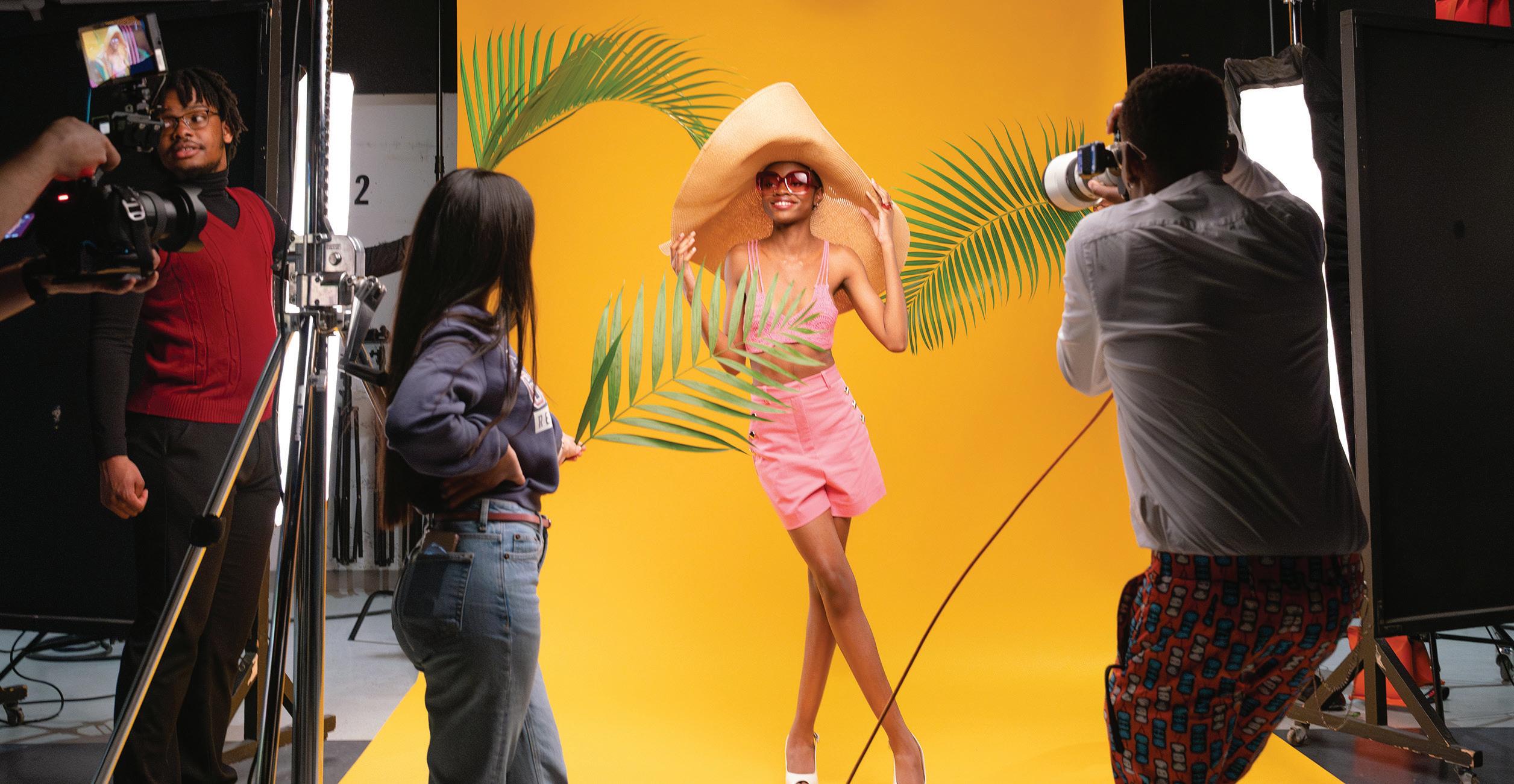
Develop an eye for detail
Acquire skills in photojournalism, editorial, advertising and fashion photography various fields of image-making
Then the Professional Photography Program could be for you.
From the very beginning of the program, you gain hands-on experience as a photographer, accompanied in the process by great teachers and useful course material.
3 YEARS
The Professional Photography Program will provide you with comprehensive experience in all aspects of image-making. From photo editing and management to lighting and studio work, students in the program learn the techniques and strategies of a professional photographer. In addition to the technical skills, you will learn how to manage the business aspects of a career in the industry.
What will you learn?
■ To manage a photo creative project from concept to completion
■ To produce and execute imagery on location and in the studio
■ To use techniques to create professional work
■ To research and adapt to new and emerging technologies, including editing software
■ To promote your personal and commercial work
Where will this program lead you?
Graduates often establish their own business in areas such as portraiture, advertising, architecture, fashion and events photography. Some also find employment as assistants, still- and moving-image editors and production managers for established businesses.
Others go on to pursue studies in such as Fine Arts, Film Studies Design or Communication Studies at university.
Application Deadline March 1
LIST OF SPECIFIC COURSES
All students must also take General Education courses such as English, French, Humanities and Physical Education, in addition to complementary courses.
YEAR 1 YEAR 2 YEAR 3
Term 1 Term 3 Term 5
■ Image and Ideas
■ Photo Studio I
■ Camera Works
■ Digital Lab I
■ Photo Technologies
■ Photo Occupation
■ Photo Studio III
■ Visual Journalism
■ Digital Lab III
■ Photo Location I
■ Professional Practices I
■ Photo Studio V
■ Digital Lab V
■ Photo Production I
■ Production Printing I
■ Promotion Design I
■ Professional Practices II
Term 2 Term 4 Term 6
■ Creative Process
■ Photo Studio II
■ Camera and Motion
■ Digital Lab II
■ Commercial Photographic Styles
■ Photo Studio IV
■ Innovations in Image Making
■ Digital Lab IV
■ Photo Location II
■ Concepts in Commercial Photography
The program offers optional immersive workshops and practical experience that relate to specific types of photography. These can include extracurricular field trips, demonstrations and the paid internships with L’Alternance travail-études. The information contained in this
3040 Sherbrooke St. West Montreal, Quebec H3Z 1A4 dawsoncollege.qc.ca
■ New Venture Business Strategies
■ Photo Studio VI
■ Digital Lab VI
■ Promotion Design II
■ Photo Production II
■ Production Printing II
complete
“
— Arezoo F.
570.F0
printing.
document was accurate and
at the time of
notes
109 108
Photo credit: Tommy Paul Keo
GRAPHIC DESIGN
Where will this program lead you?
Graduates of the Graphic Design Program often pursue careers in graphic design studios, advertising agencies, multimedia studios and publishing houses. Others work independently as freelance graphic designers. Graduates can also choose to continue on to university studies in Design, Arts, Marketing, Communication Studies, Animation and more.
What do you need to apply?
■ A Diploma of Secondary Studies (DES) or academic background judged equivalent to the DES
■ Secondary V Art is considered an asset
■ Portfolio*
■ Timed drawing exercise*
*For the most up-to-date and complete details, visit www.dawsoncollege.qc.ca/graphic-design
What else should you know?
As a student in the Graphic Design Program, you will have access to the most advanced industry-level computer labs, a multipurpose studio and complete printing facilities. Thirdyear students enjoy individual work stations as they prepare their final portfolios for exhibition. You will also have the opportunity to participate in workshops led by leaders of the industry and enter design contests in order to hone your skills throughout your college career.
3 YEARS
www.dawsoncollege.qc.ca/graphic-design
If you would like to:
See your ideas take shape in an exciting learning environment
Learn in an engaging community of creative thinkers
Explore colour, composition, concepts and typography
Study in a hands-on, project-driven program
Work with the latest technology in a modern collaborative setting
Then the Graphic Design Program could be for you.
The Graphic Design Program will prepare you to work in a dynamic, evolving industry. You will study in an engaging environment with teachers who can deliver one-on-one instruction for a truly unique college experience. You will learn the foundational drawing techniques as well as the digital skills necessary to meet the needs of your clientele. You will also acquire the confidence to manage projects independently and build an impressive portfolio of work.
What will you learn?
■ To communicate effectively using graphic design
■ To develop graphic design for branding, publication design, advertising, packaging, websites and other promotional material
■ To use the software used in the industry, including Photoshop, Illustrator, InDesign and others
■ To use website design and multimedia applications
■ To explore the creative and technical aspects of graphic design
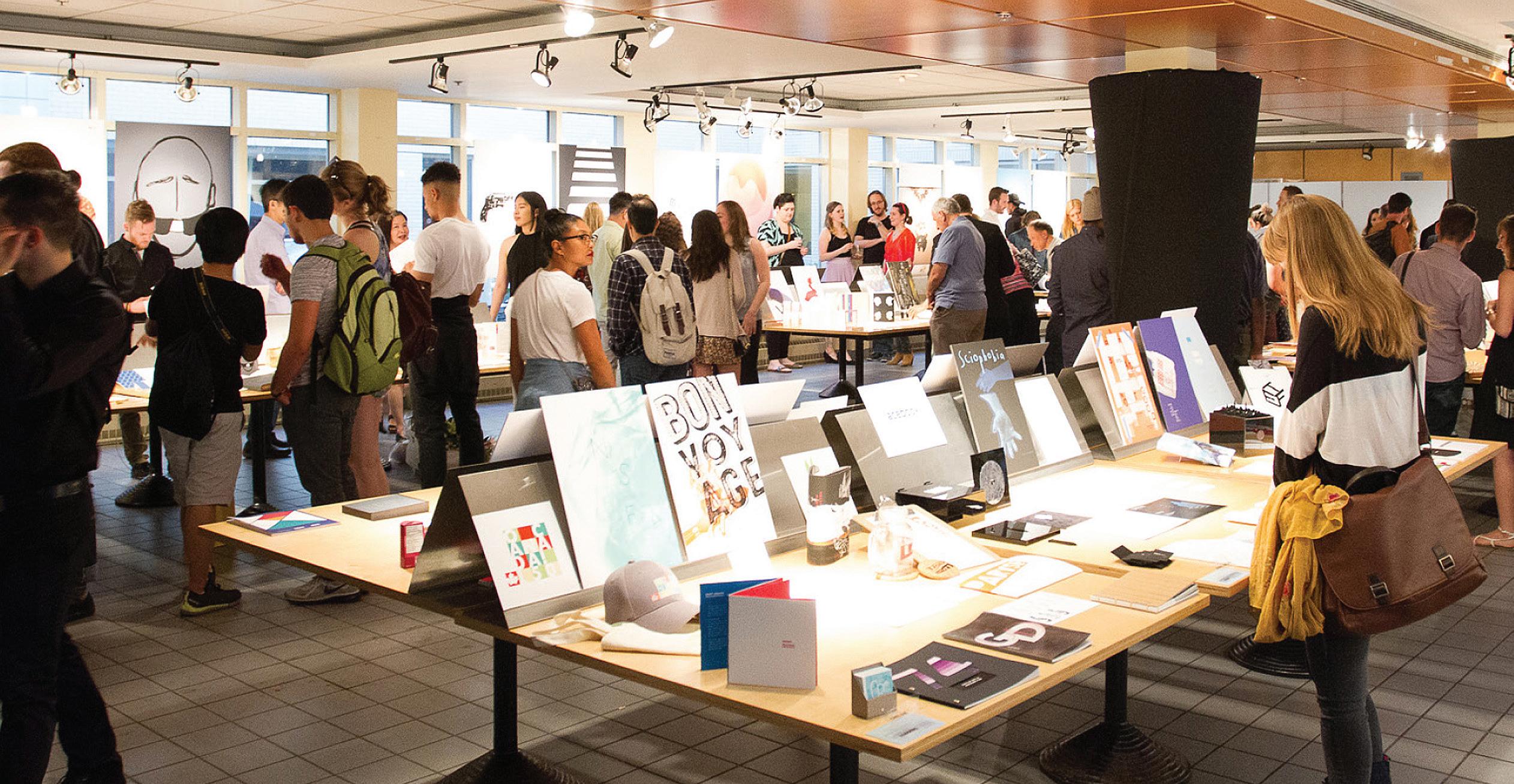
LIST OF SPECIFIC COURSES
All students must also take General Education courses such as English, French, Humanities and Physical Education, in addition to complementary courses.
■ Art and Design History
■ Basic Drawing
■ Typography I
■ Introduction to Page Layout Software
■ Colour and Communication
■ Basic Design I
■ Introduction to Vector Graphics Software
■ Illustration Techniques
■ Pictogram and Icon Design
■ Photographic Lighting for Graphic Design
■ Digital Imaging II
■ Typographic Explorations
■ Visual Communication I
■ Print and Web Production Processes
■ Professional Graphic Design Practice I
■ E-Book Design
■ Explorations in Video Production
■ Information Design
■ Packaging Design
■ Web Design II
■ Motion Graphics II
■ 2D and 3D Technical Production for Print Term 2
■ Life and Still Life Drawing
■ Photography for Graphic Design
■ Typography II
■ Typographic Grid Systems
■ 3D Foundations
■ Basic Design II
■ Digital Imaging I
■ Semiotics and Visual Communication
■ Explorations in Printed Illustration
■ Motion Graphics I
■ Logotype Design
■ Visual Communication II
■ Advertising Design
■ Web Design I
■ Interactive Design and Motion Graphics
■ Publication Design
■ Branding Design
■ Social and Cultural Promotional Design
■ Production Constraints
■ Professional Graphic Design Practice II
“
The teachers in this program prepare us for professional life by sharing experience, knowledge and valuable lessons about the design world.
— Vivian B.
570.G0
Deadline March 1
Application
The information contained in this document was accurate and complete at the time of printing.
Sherbrooke St. West
H3Z 1A4
3040
Montreal, Quebec
dawsoncollege.qc.ca
YEAR 1 YEAR 2 YEAR 3 Term 1 Term 3 Term 5
Term
Term 4
6
notes 111 110
Where will this program lead you?
Application
What do you need to apply?
■ A Diploma of Secondary Studies (DES) or academic background judged equivalent to the DES
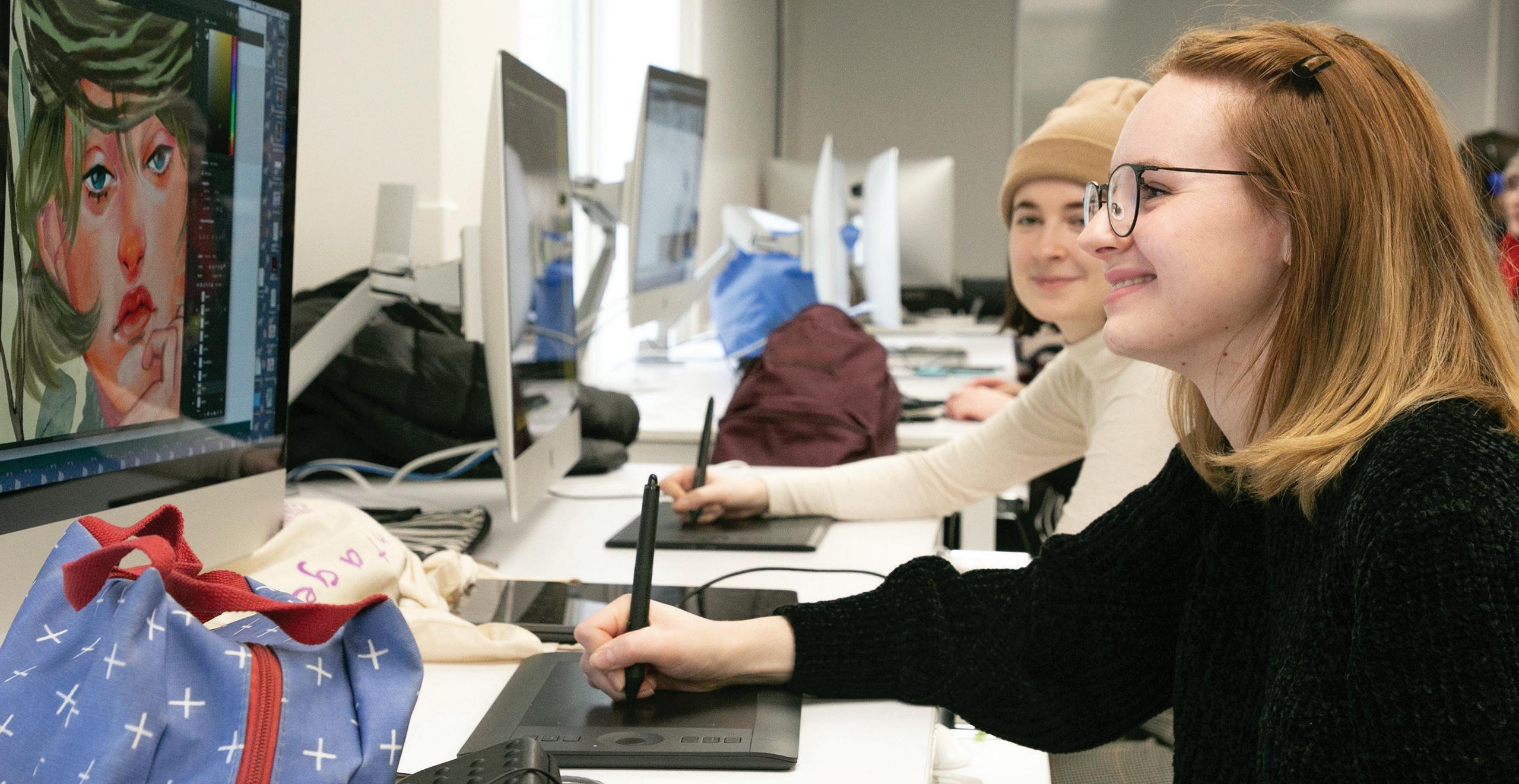
■ Portfolio*
■ Letter of intent*
■ Timed drawing evaluation*
*For the most up-to-date and complete details, visit www.dawsoncollege.qc.ca/illustration
What else should you know?
www.dawsoncollege.qc.ca/illustration
If you would like to:
Prepare for a career as a professional illustrator
Work as a visual artist in the communications field
Learn new techniques in drawing, painting and digital media
Use your creativity to develop new ideas
Study in an environment that encourages creative collaboration
Work in fully-equipped studios set up for traditional and digital illustration
Then the Illustration Program could be for you.
3 YEARS
Prepare for a creative career where your ideas count!
Dawson’s Illustration Program will focus on improving your drawing and painting abilities while introducing you to 2D and 3D software applications. From figure drawing to the business aspects of illustration, you will develop expertise in advertising illustration, editorial illustration and comic illustration, among many other genres. You will graduate with a toolkit of skills that will allow you to work in many creative and professional fields.
What will you learn?
■ Advertising illustration
■ Digital painting: concept art, matte painting
■ Editorial and portrait illustrations
■ Technical illustrations
■ Digital sculpting
■ Storyboards
■ Documentary and scientific illustration
■ Character or comic illustration
■ Assemblage, collage and printmaking techniques for illustration
LIST OF SPECIFIC COURSES
YEAR 1 YEAR 2 YEAR 3 Term 1 Term 3 Term 5
■ Introduction to Illustration Practice
■ Illustrative Drawing I
■ Design Concepts for Illustration I
■ Technical Illustration I
■ Illustration Techniques I
■ Introduction to Digital Illustration
■ Drawing Fundamentals
■ Illustrative Drawing III
■ Design Concepts for Illustration III
■ Technical Illustration III
■ Illustration Techniques III
■ 3D Illustration II
■ Visual Storytelling and Sequential Art I
■ Illustration - Trends and Movements
■ Illustrative Drawing V
■ Design Concepts for Illustration V
■ Technical Illustration V
■ Illustration Techniques V
■ Visual Storytelling and Sequential Art III
■ 3D Illustration IV
■ Specialized Illustration
■ Motion Graphics
Term 2 Term 4 Term 6
■ Illustrative Drawing II
■ Design Concepts for Illustration II
■ Technical Illustration II
■ Illustration Techniques II
■ Photography for Illustration
■ 3D Illustration I
■ Drawing Principles and Practices
■ Illustrative Drawing IV
■ Design Concepts for Illustration IV
■ Technical Illustration IV
■ New Directions in Illustration: Alternative Techniques
■ 3D Illustration III
■ Visual Storytelling and Sequential Art II
3040 Sherbrooke St. West Montreal, Quebec H3Z 1A4 dawsoncollege.qc.ca
■ Illustrative Drawing VI
■ Projects for Portfolio
■ Projects for Industry
■ Production and Presentation
The information contained in this document was accurate and complete at the time of printing.
notes 113 112
“
Because of the Illustration Program, I have a solid foundation in multiple art fields which will allow me to pursue a career in whichever field I choose.
574.AA
— Maggie Z.
ILLUSTRATION
Graduates of the Illustration Program often choose exciting careers in advertising and communication agencies, animation studios, corporate art departments, game design studios, architectural and engineering firms, movie and television studios, printing companies, and comic, magazine and book publishers. Others choose to find work as tattoo artists, commissioned mural artists, educators and freelancers. Although the program is a three-year technical program, some graduates choose to further their studies at the university level in Illustration, Graphic Design, Film and Animation and Studio Arts. Deadline March 1
As an Illustration student, you will participate in field trip visits to museums, visit ateliers where professionals are at work and have the opportunity to attend workshops given by invited experts in the industry.
All students must also take General Education courses such as English, French, Humanities and Physical Education, in addition to complementary courses.
■ Illustration and Media
■ Professional Practice
3D ANIMATION & COMPUTER GENERATED IMAGERY
Where will this program lead you?
Most of our students land industry jobs upon graduation.
Careers may include:
■ Animator
■ Modeller
■ Tech-Artist/Rigger
■ Lighting Artist
■ Motion Capture Editor
■ Visual Development Artist
■ Character Designer
■ Storyboard Artist
■ Texture Artist
■ 3D Tracking Artist
What do you need to apply?
■ A Diploma of Secondary Studies (DES) or academic background judged equivalent to the DES
■ Portfolio*
■ Letter of intent*
■ Drawing exercise*
*For the most up-to-date and complete details, visit www.dawsoncollege.qc.ca/3d
DID YOU KNOW?
Students entering this program are eligible for Bourses Perspective scholarships. These $1,500 scholarships will be awarded to students after each successful full-time term, for a total of $9,000 for a three-year program.
www.dawsoncollege.qc.ca/3d
If you would like to:
Create characters, worlds, and narratives for film and video games
Draw, paint, sculpt
Create digital art
Watch or create animated films
Solve problems
Then the 3D Animation & CGI Program could be for you.
3 YEARS
Write, direct, illustrate, produce and act in your own animated films! Perhaps you will even be part of an Oscar-winning VFX team, like some graduates of Dawson’s unique program. Students develop fundamental art skills while also learning cutting-edge computer skills. Many teachers continue to work in the industry, which keeps the program relevant. Montreal’s world-famous digital effects industry is waiting for you upon graduation.
What will you learn?
■ To animate characters with 3D software
■ To model characters, props and the environment using 3D modelling software
■ To produce digital visual effects and composite them
■ To record, manage and edit motion capture data and to apply that to characters
■ To use cameras and lenses for film and photography
■ To coordinate projects, manage time and respect deadlines
■ To draw in proper perspective
■ To use industry standard software
■ To complete a 3D animated film
■ To network, job search and promote yourself
What else should you know?
■ You are not expected to know how to animate before beginning the program
■ The Motion Capture studio gives students the ability to learn and use this industry-level tool set as part of their core curriculum, thus providing them with a major competitive advantage
■ The Computer Animation Labs allow students to use specialized computers and software for both their classwork and homework. Students have access to the labs on weekends and evenings as well as during the day, which allows students without a computer at home to succeed.
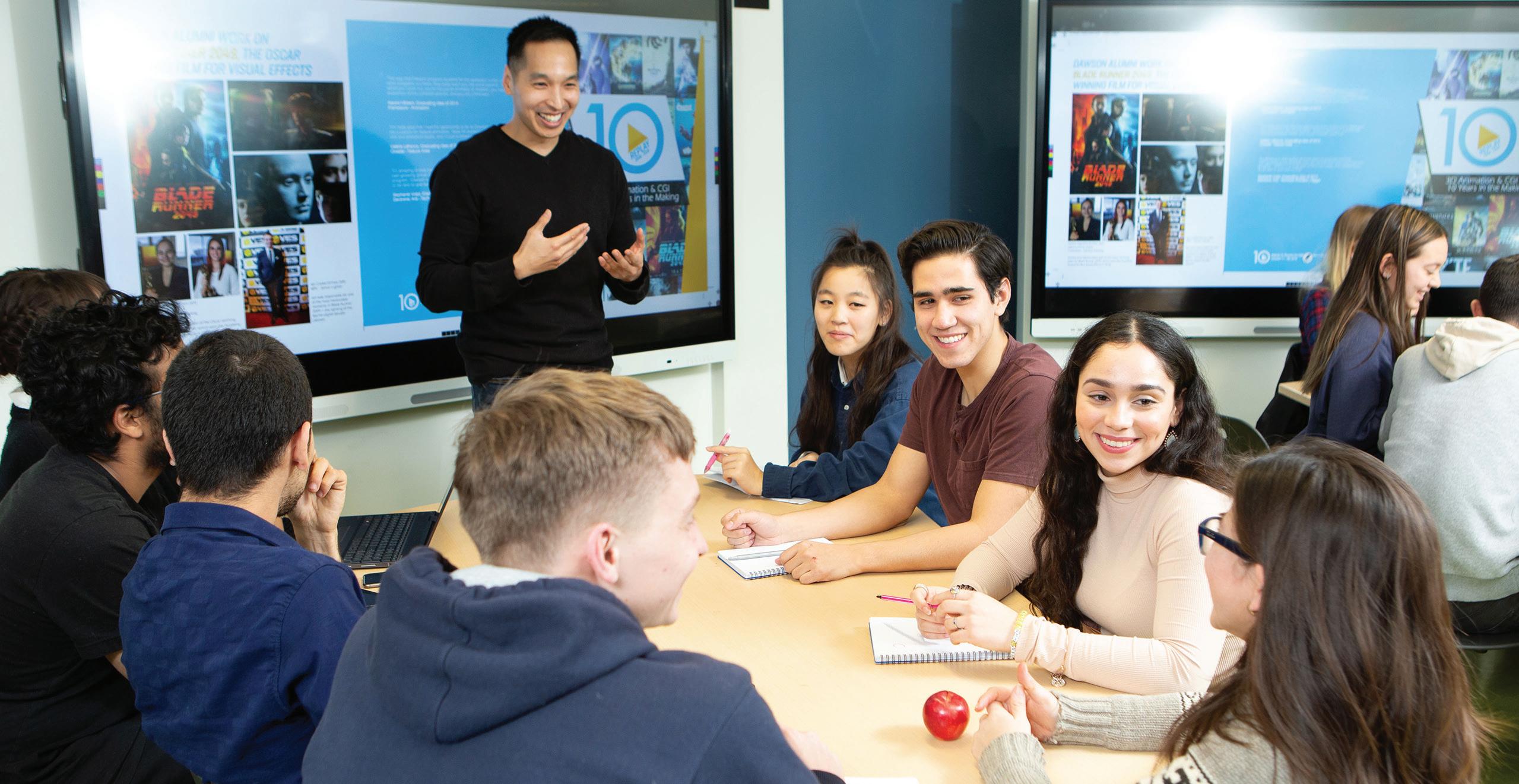
■ The sound recording booth allows students to record voice performances and Foley sound effects for use in the sound design of their film projects
■ Students benefit from belonging to a caring and small community of teachers and students
■ All teachers are well-connected to the industry and some continue to work while teaching
Application Deadline
March 1
Information about how to apply can be found online by searching for “Québec Perspective Scholarship Program” in your browser.
LIST OF SPECIFIC COURSES
All students must also take General Education courses such as English, French, Humanities and Physical Education, in addition to complementary courses.
■ Perspective Drawing Techniques
■ Drawing Anatomy & Expression
■ History of Visual & Graphic Arts
■ Introduction to Preproduction
■ Principles of Animation I
■ Introduction to 3D Animation
■ Sculpting Human Anatomy
■ History of Film Production Techniques
■ Principles of Animation II
■ 3D Animation Techniques
■ Digital Video & Photography
■ Sketching Techniques for Animation
■ Digital Colours & Textures
■ Controlling 3D Movement
■ Character Design
■ Matte Painting
■ Virtual Worlds
■ Modelling Props
■ Lights, Camera & Rendering I
■ Storytelling Techniques in Animated Films
■ Expression & 3D Movement
■ Storyboard
■ Character Modelling
■ Character Rigging
■ Lights, Camera & Rendering II
■ Acting for Animation
■ Visual Effects
■ Non-linear Sound & Video Editing
■ Preproduction
■ Production Pipeline
■ Character Animation I
■ Postproduction of Visual Effects
■ Production Project
■ Character Animation II
■ Career Development
“
This 3D program offers incredible preparation for working in the field. You will be equipped to handle anything the industry throws at you.
— Nicolas L.
574.B0
The information contained in this document was accurate and complete at the time of printing.
Sherbrooke St. West Montreal, Quebec H3Z 1A4 dawsoncollege.qc.ca
3040
YEAR
Term 1 Term 3 Term 5
YEAR 1 YEAR 2
3
2 Term 4 Term 6
Term
115 114
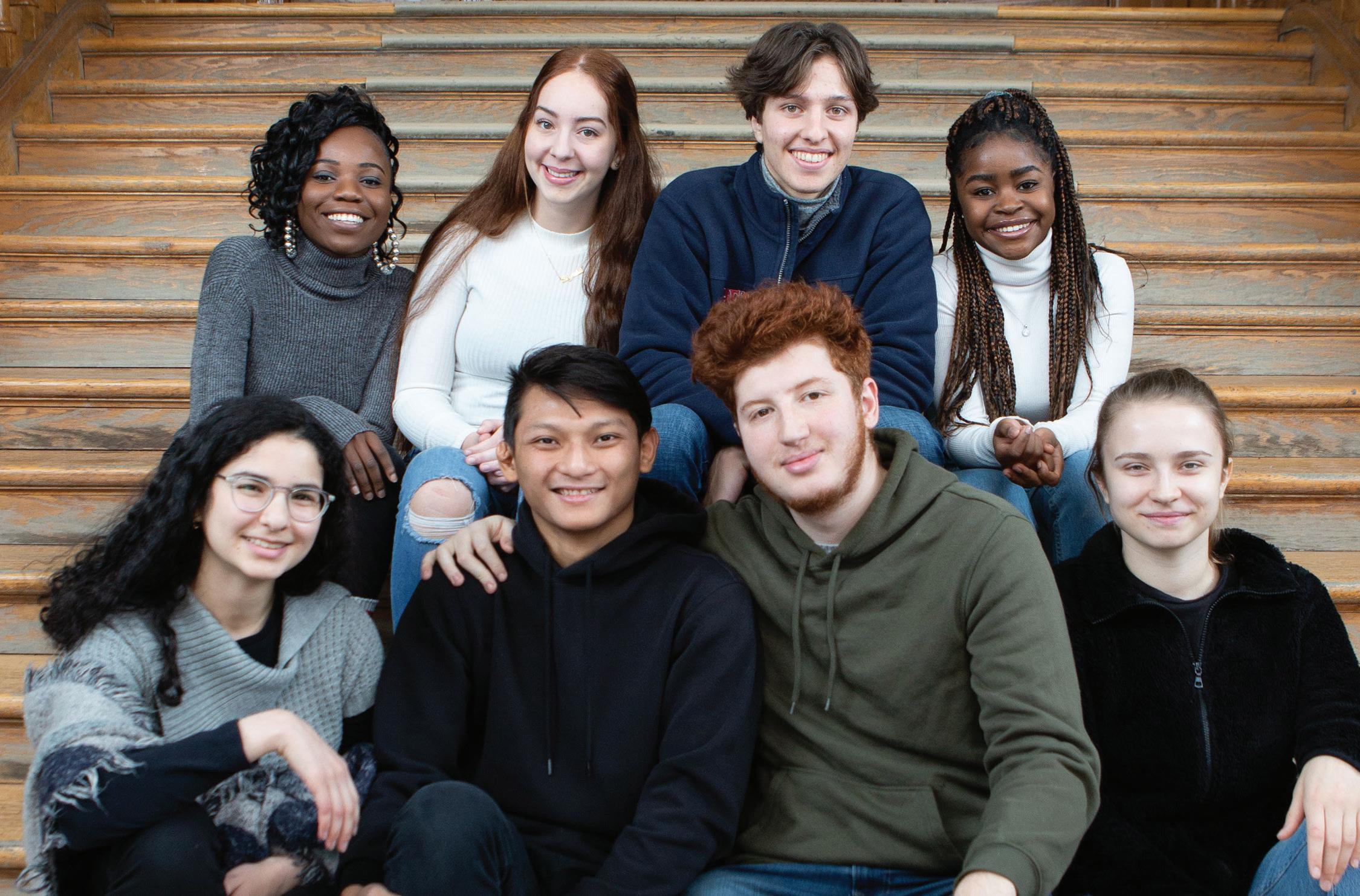
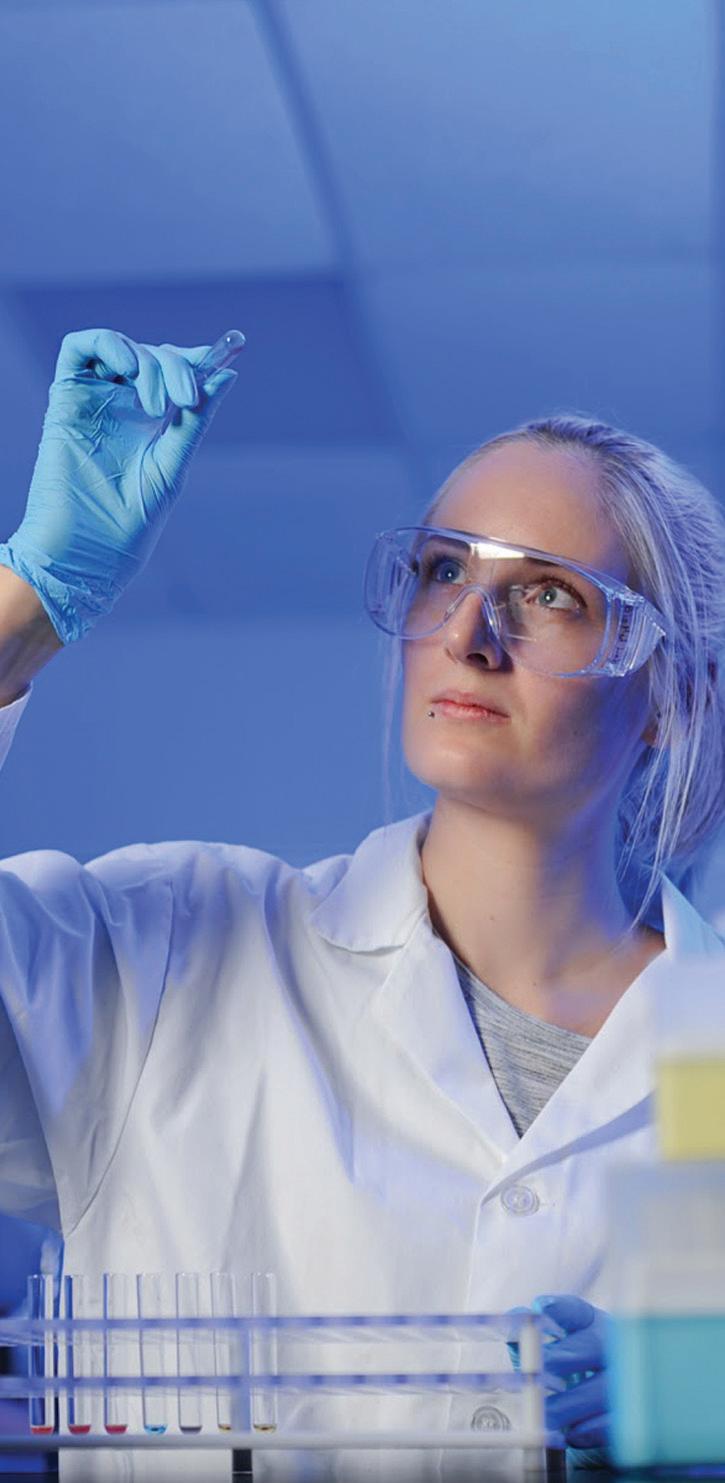
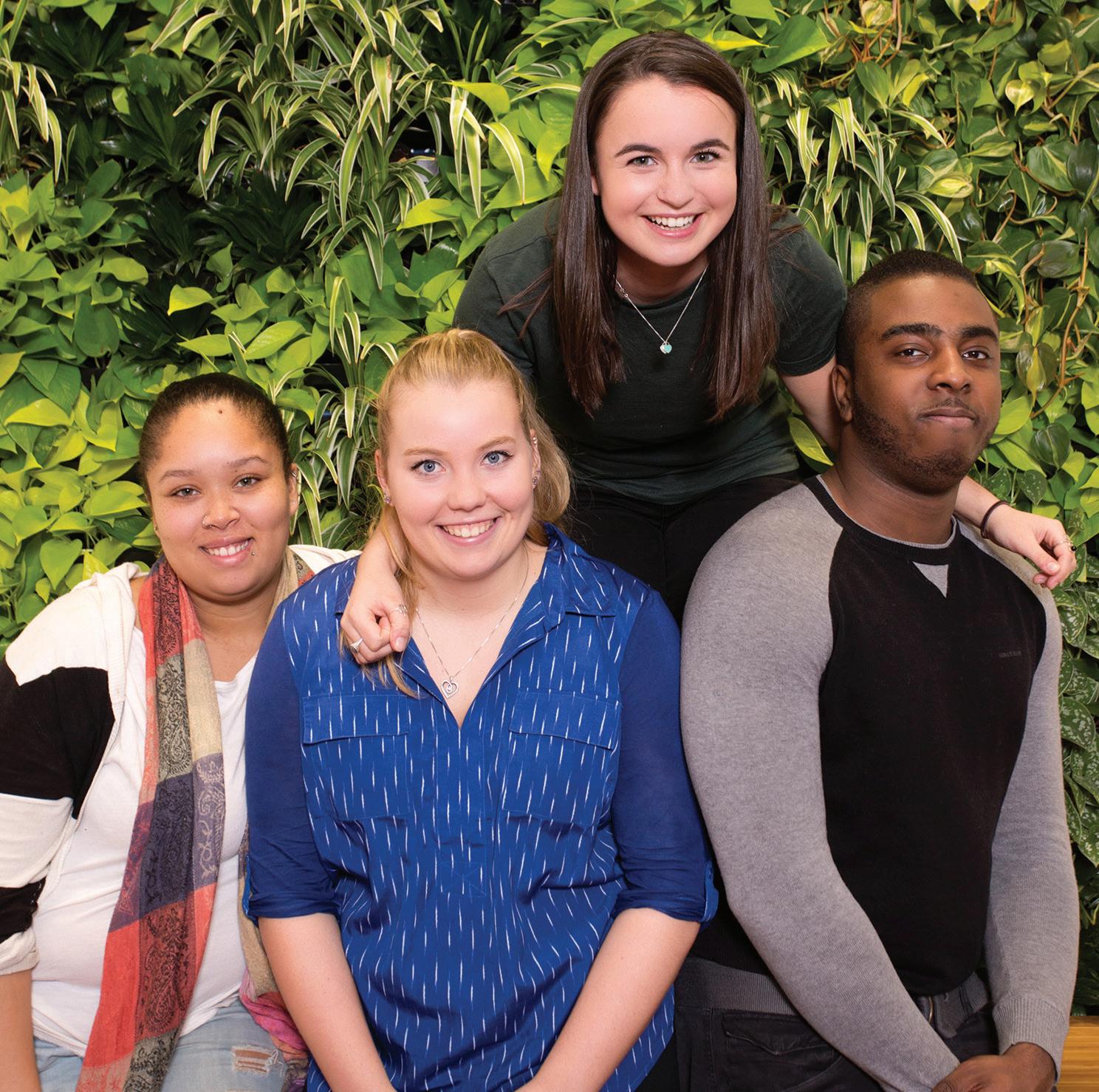
notes
APPLICATION DEADLINES
Nov. 1 for the Winter semester
March 1 for the Fall semester
OPEN HOUSE
Oct. 22, 2023
Feb. 7, 2024
www.dawsoncollege.qc.ca/open-house
Dawson College
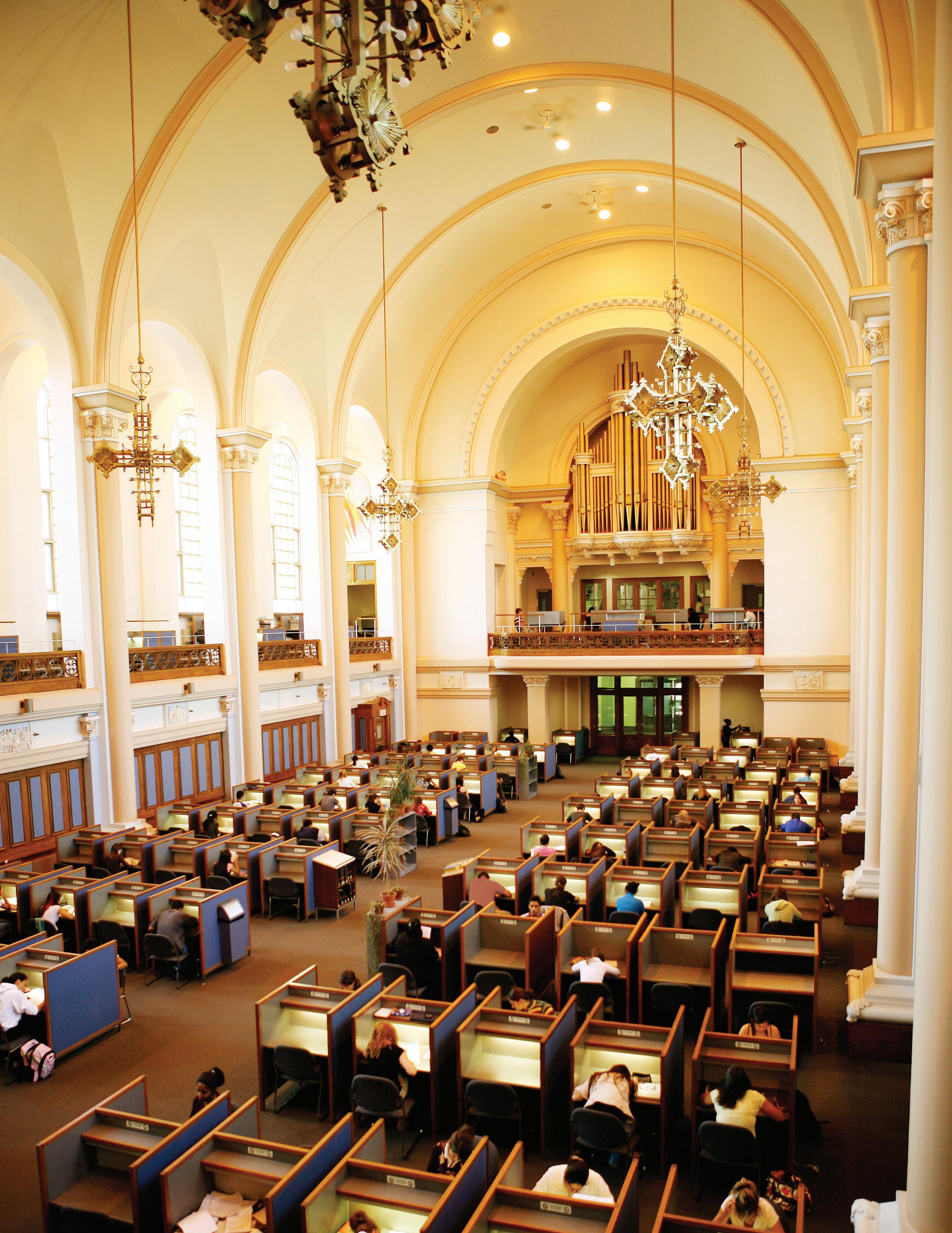
3040 Sherbrooke St. West
Montreal, Quebec H3Z 1A4
514 931-8731
dawsoncollege.qc.ca
The information in this document was accurate at the time of printing.


































































































